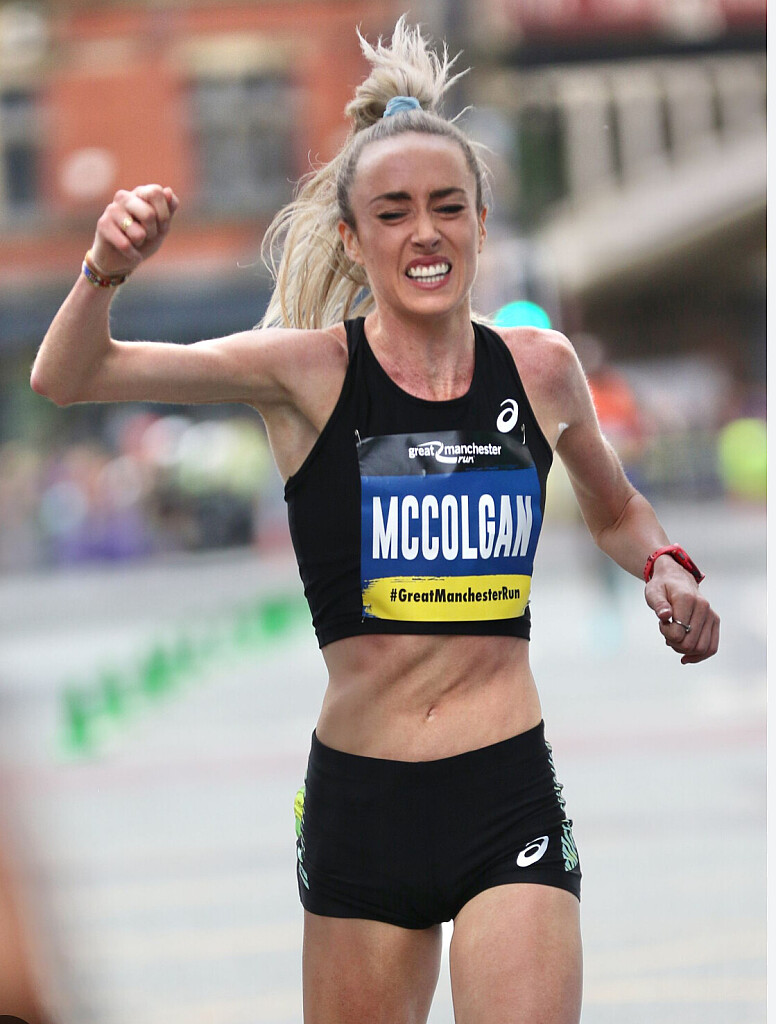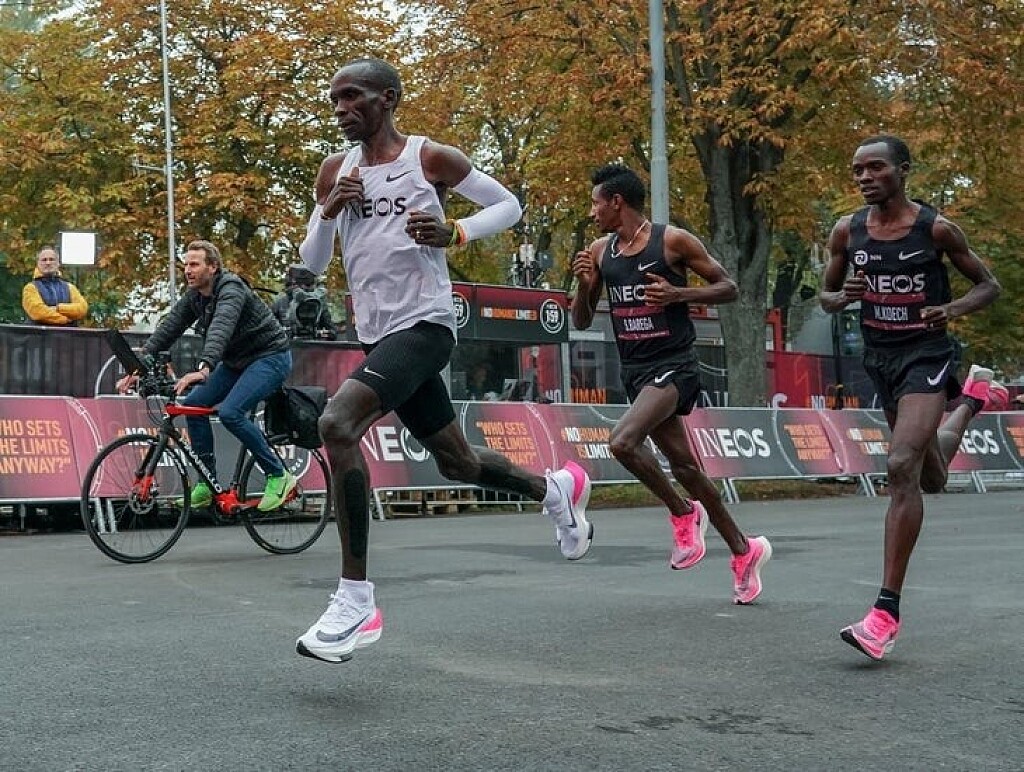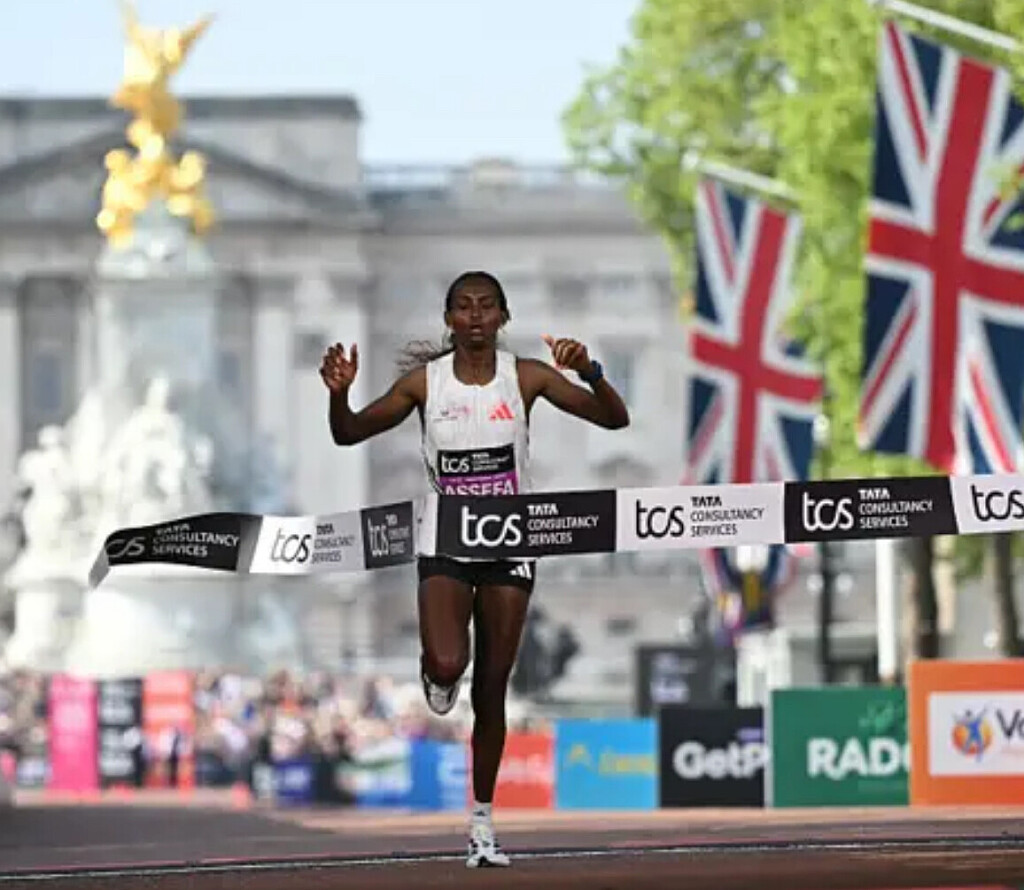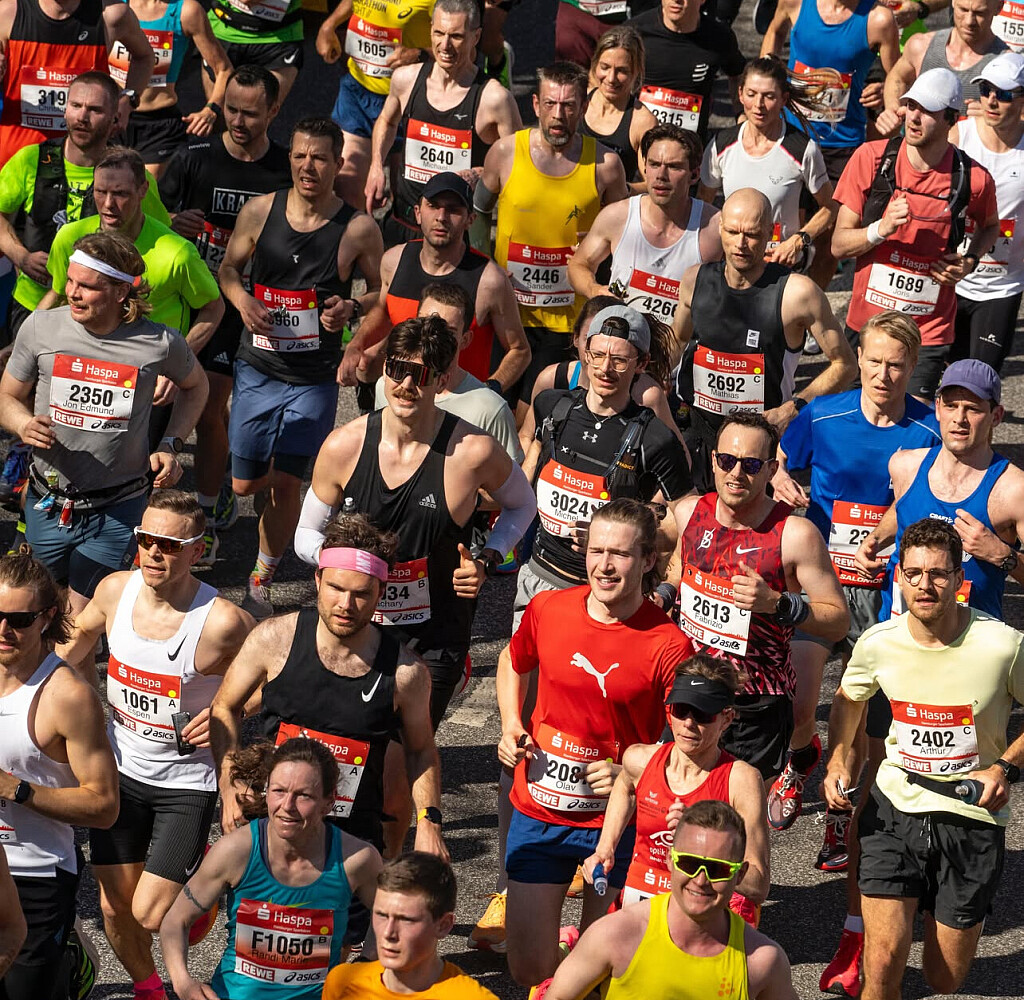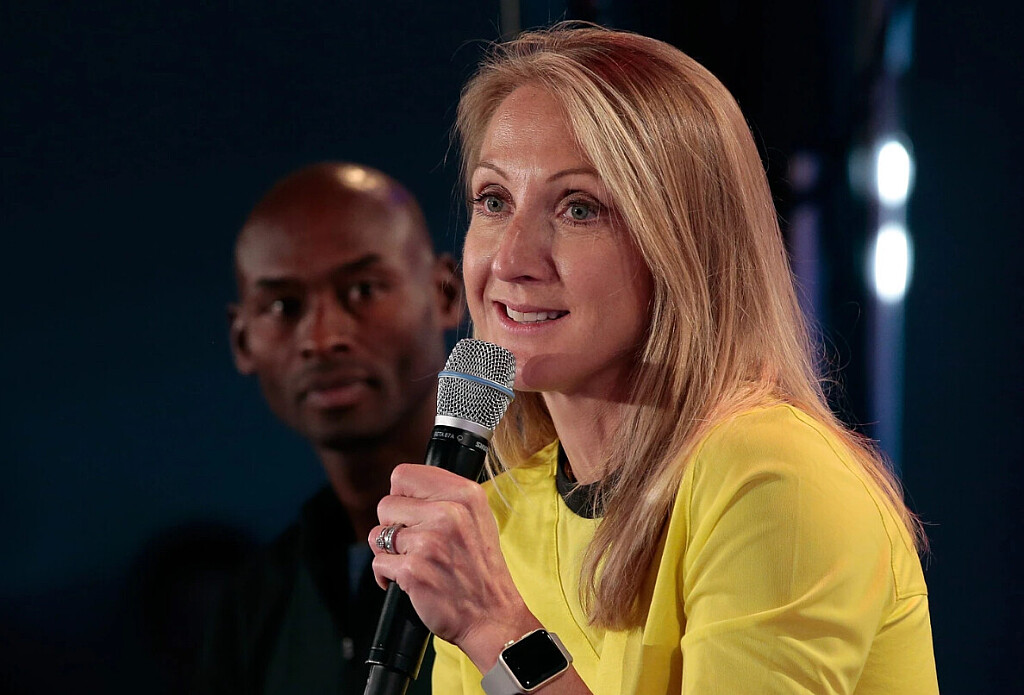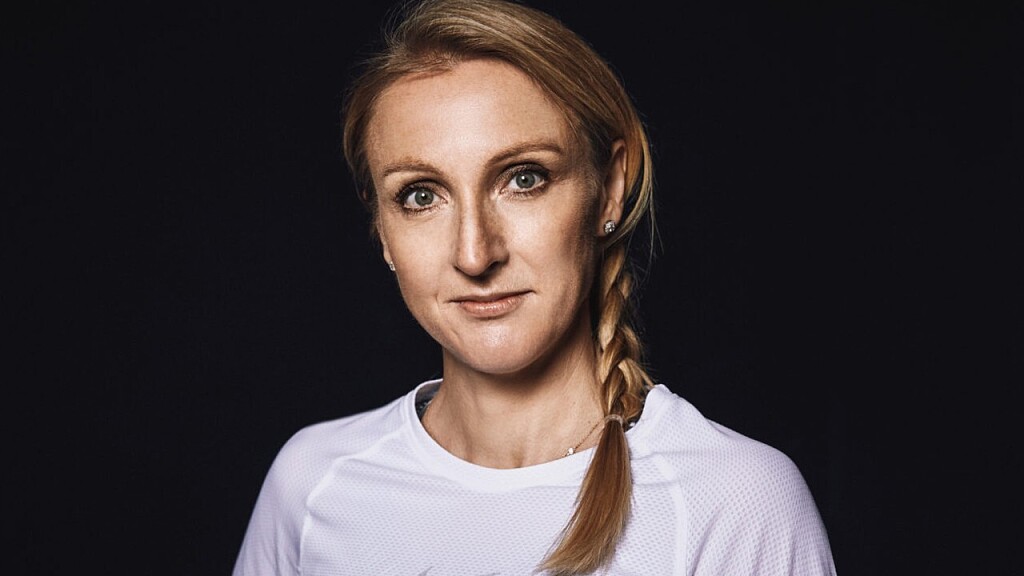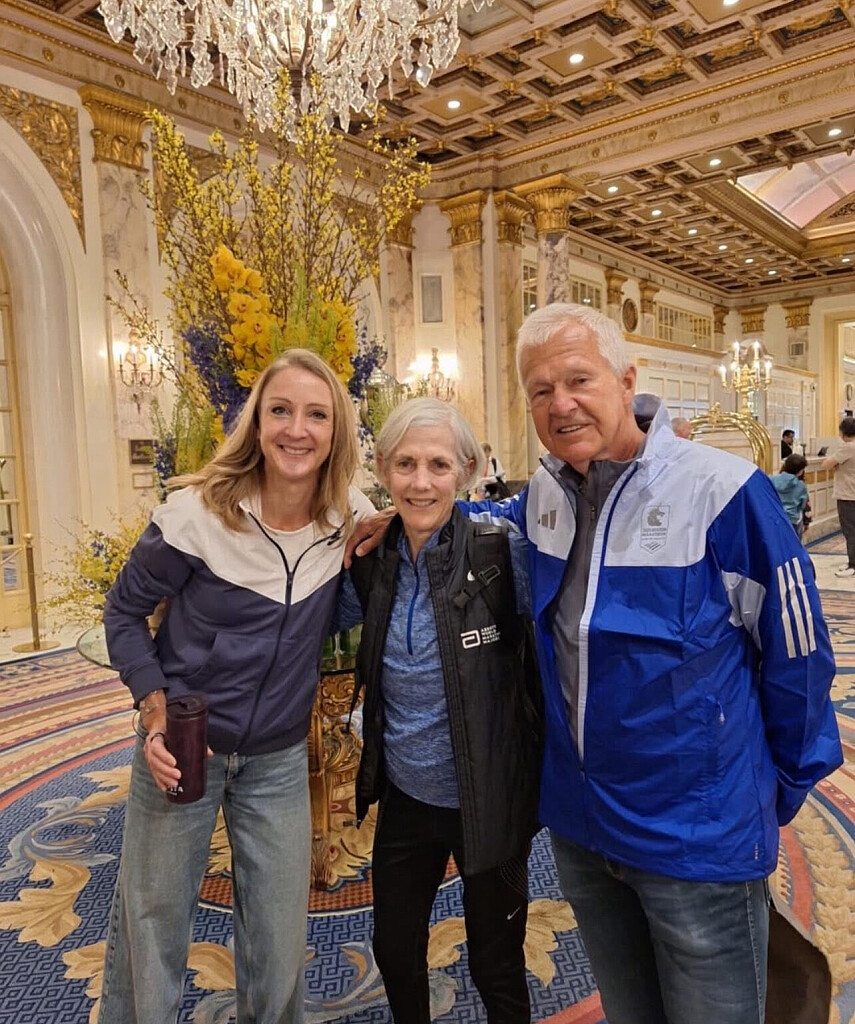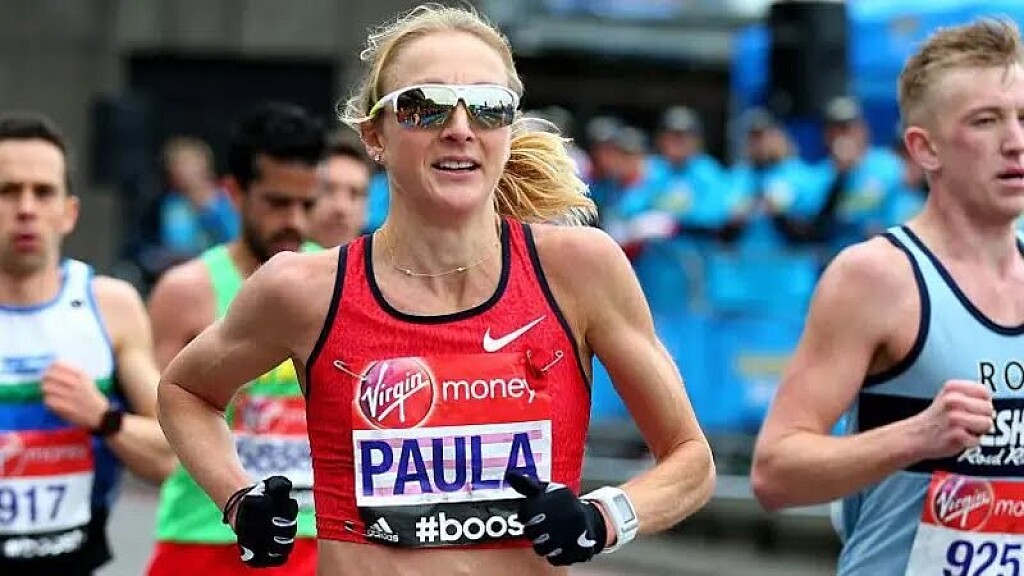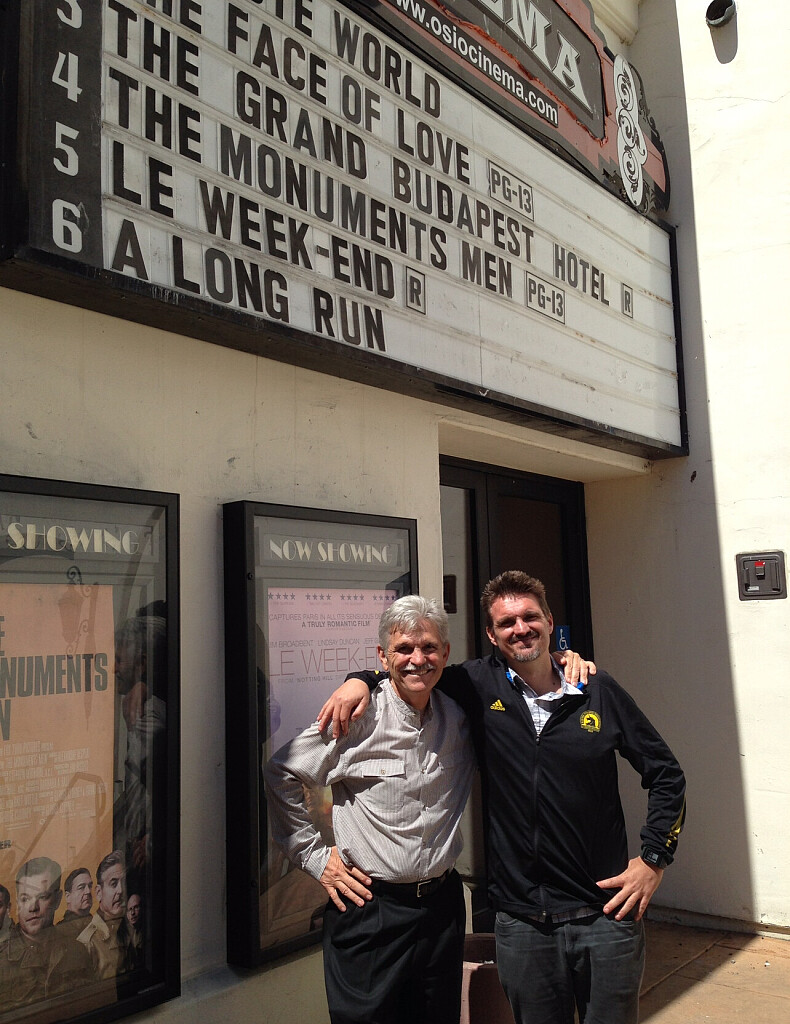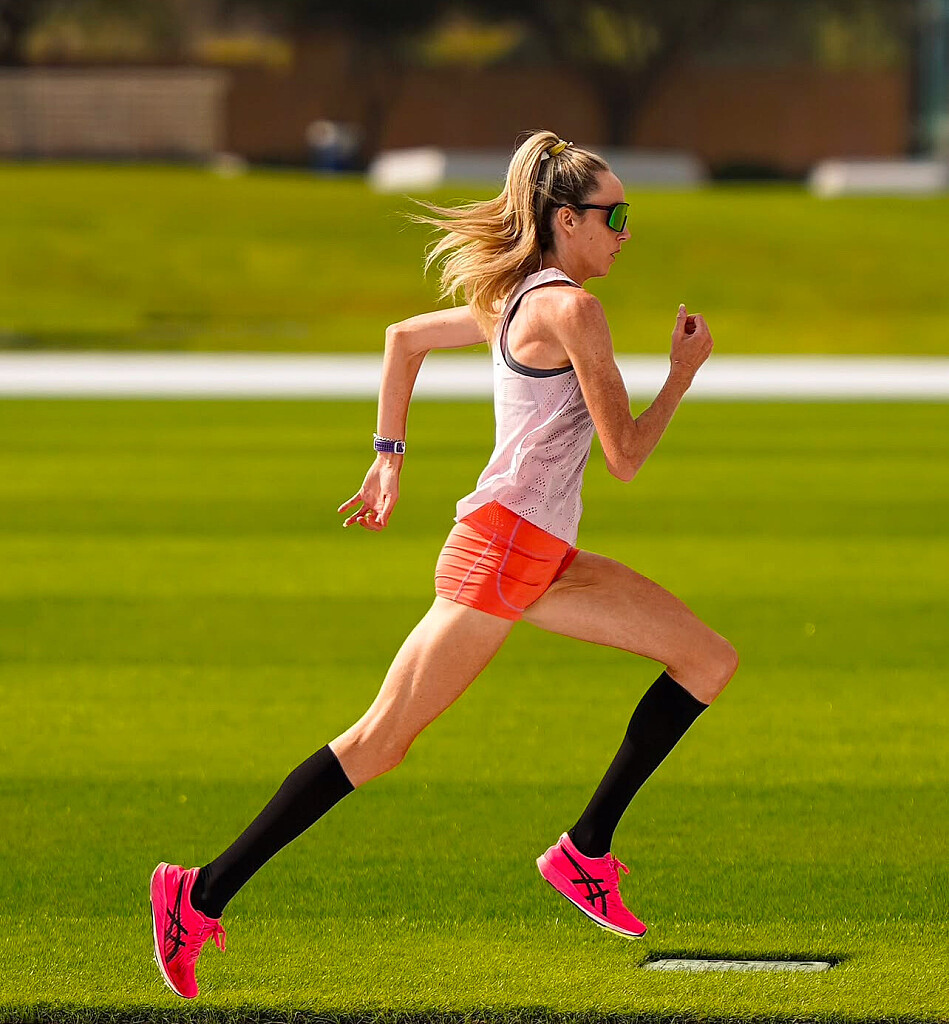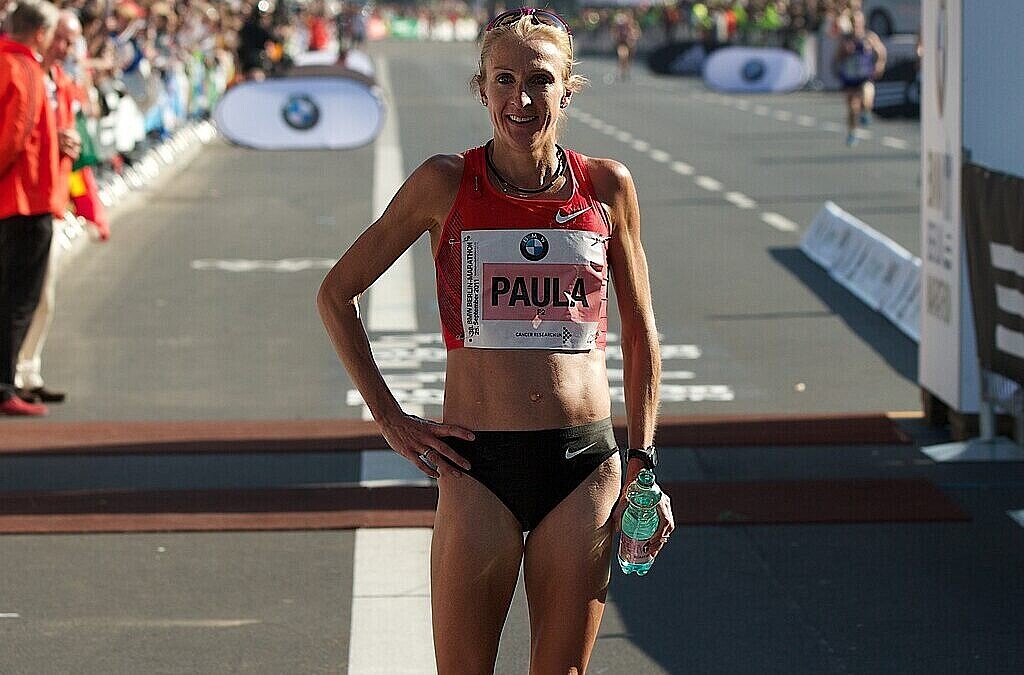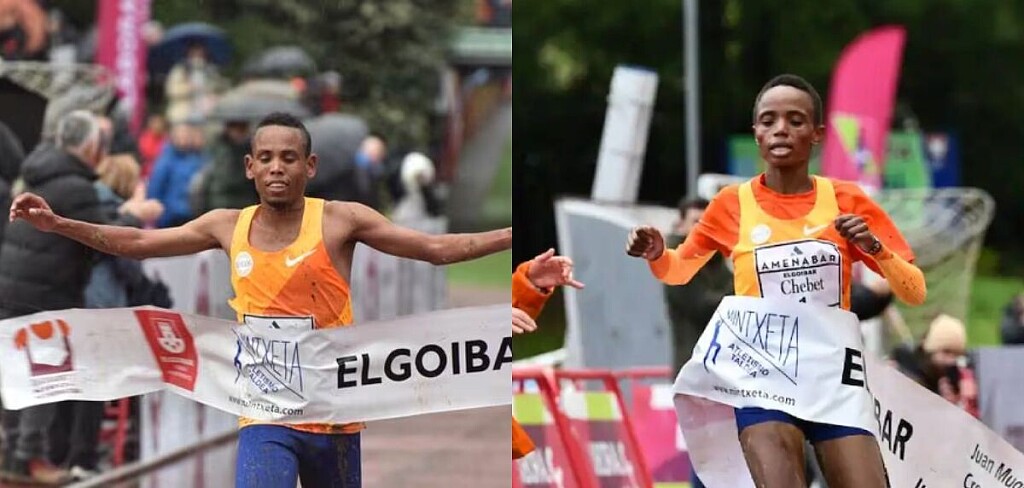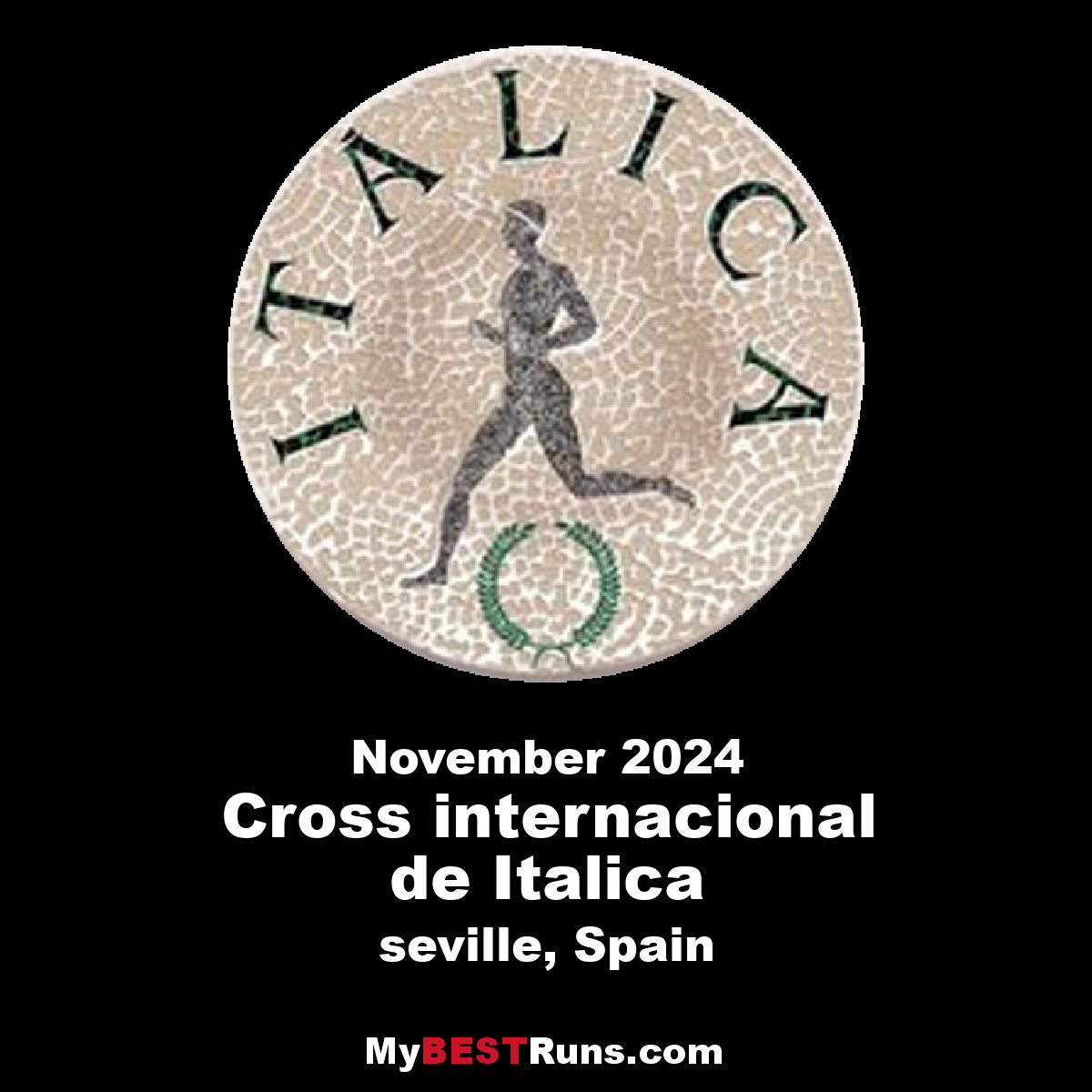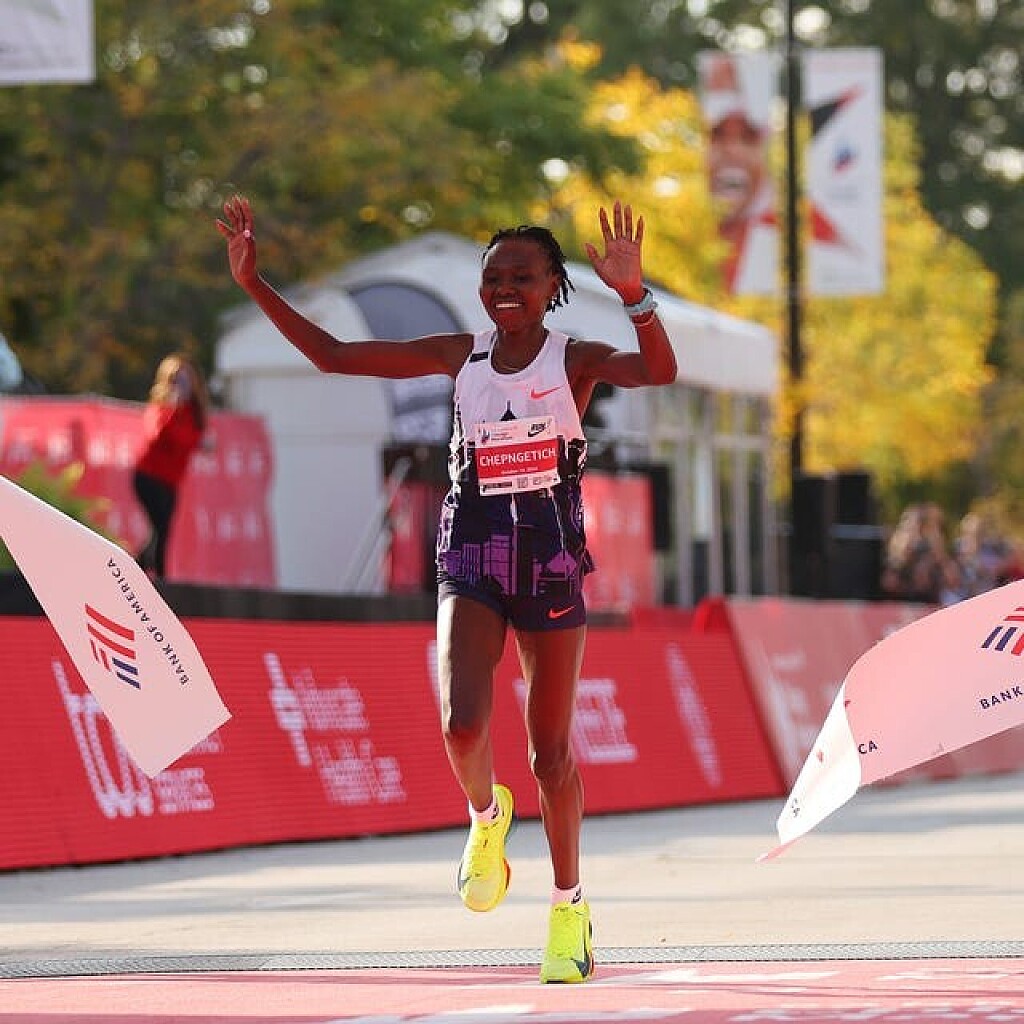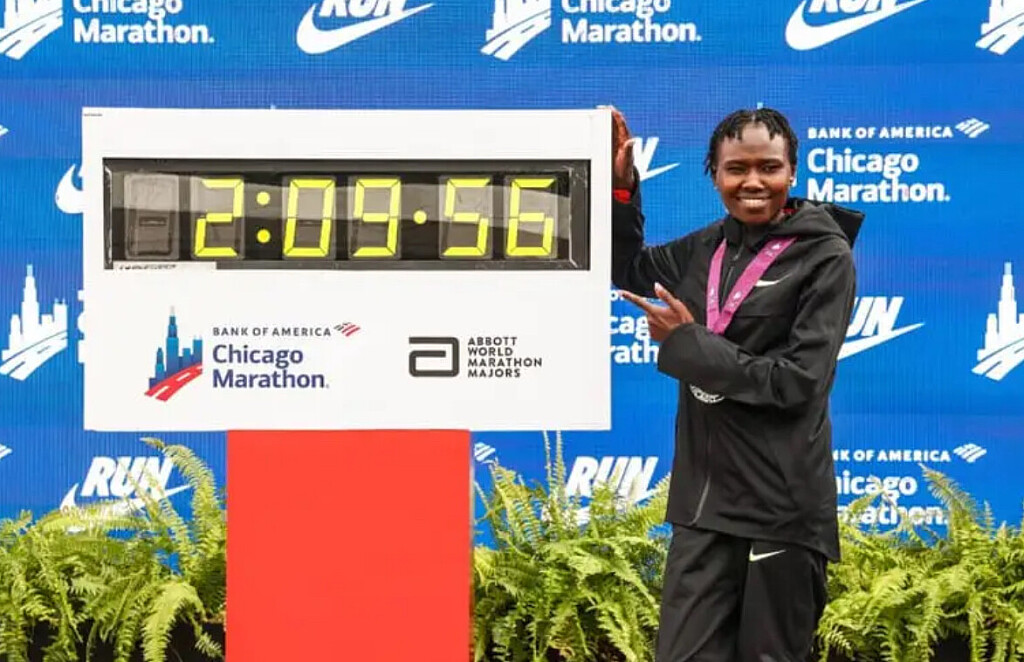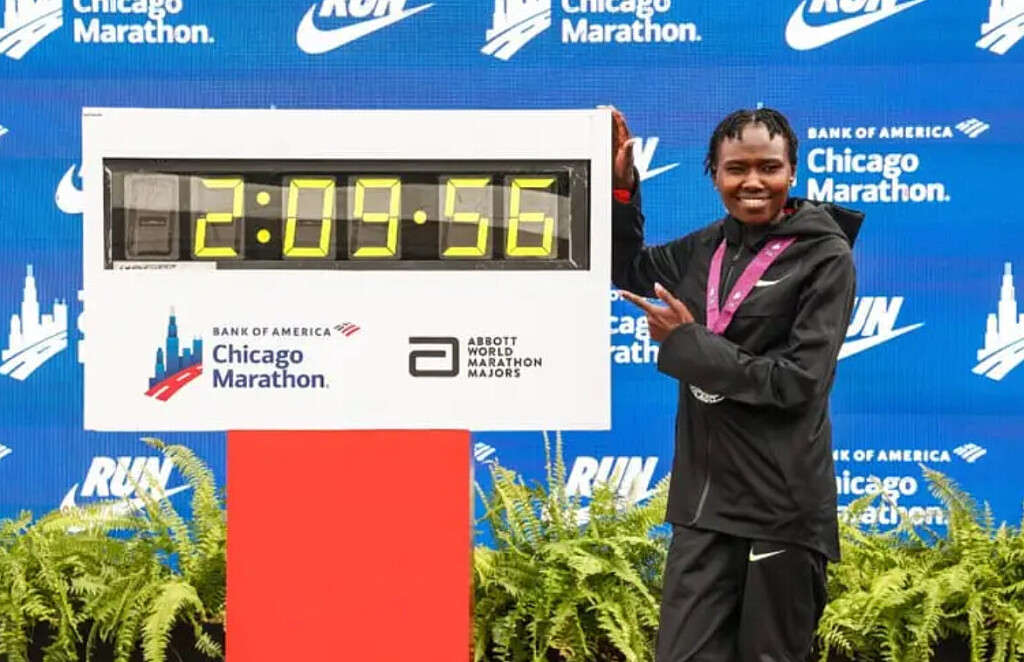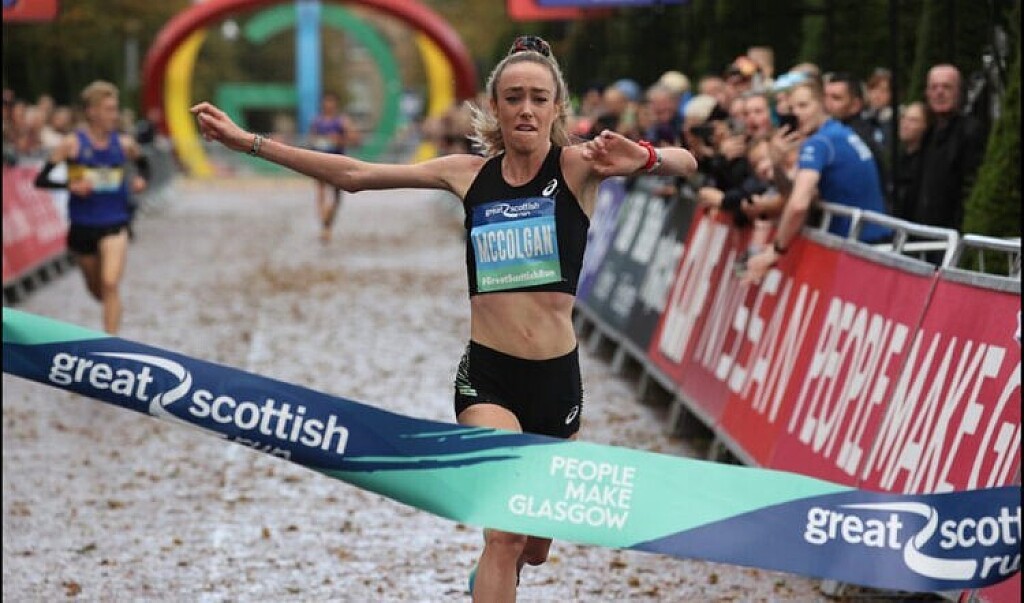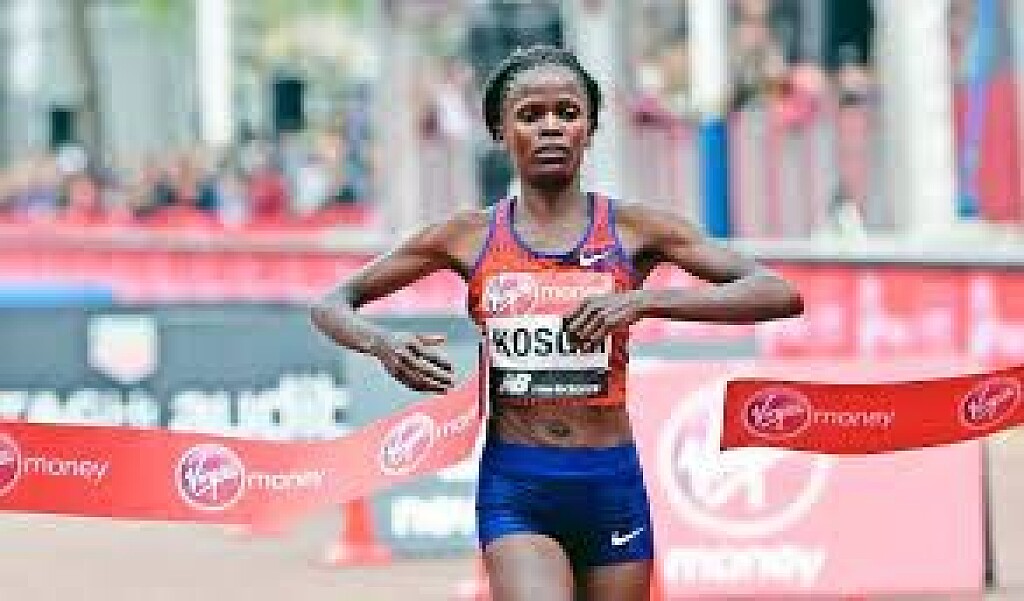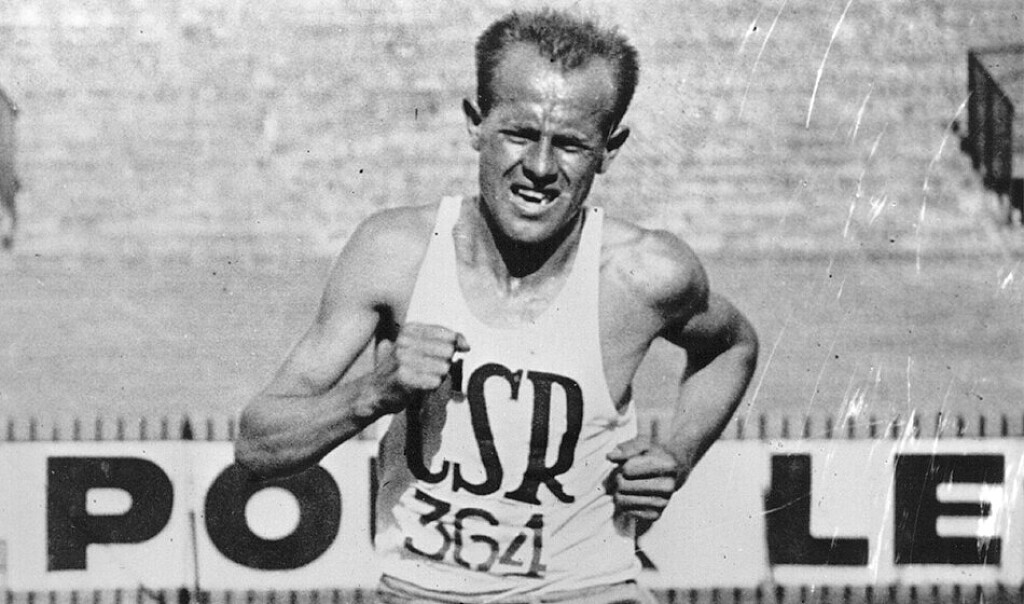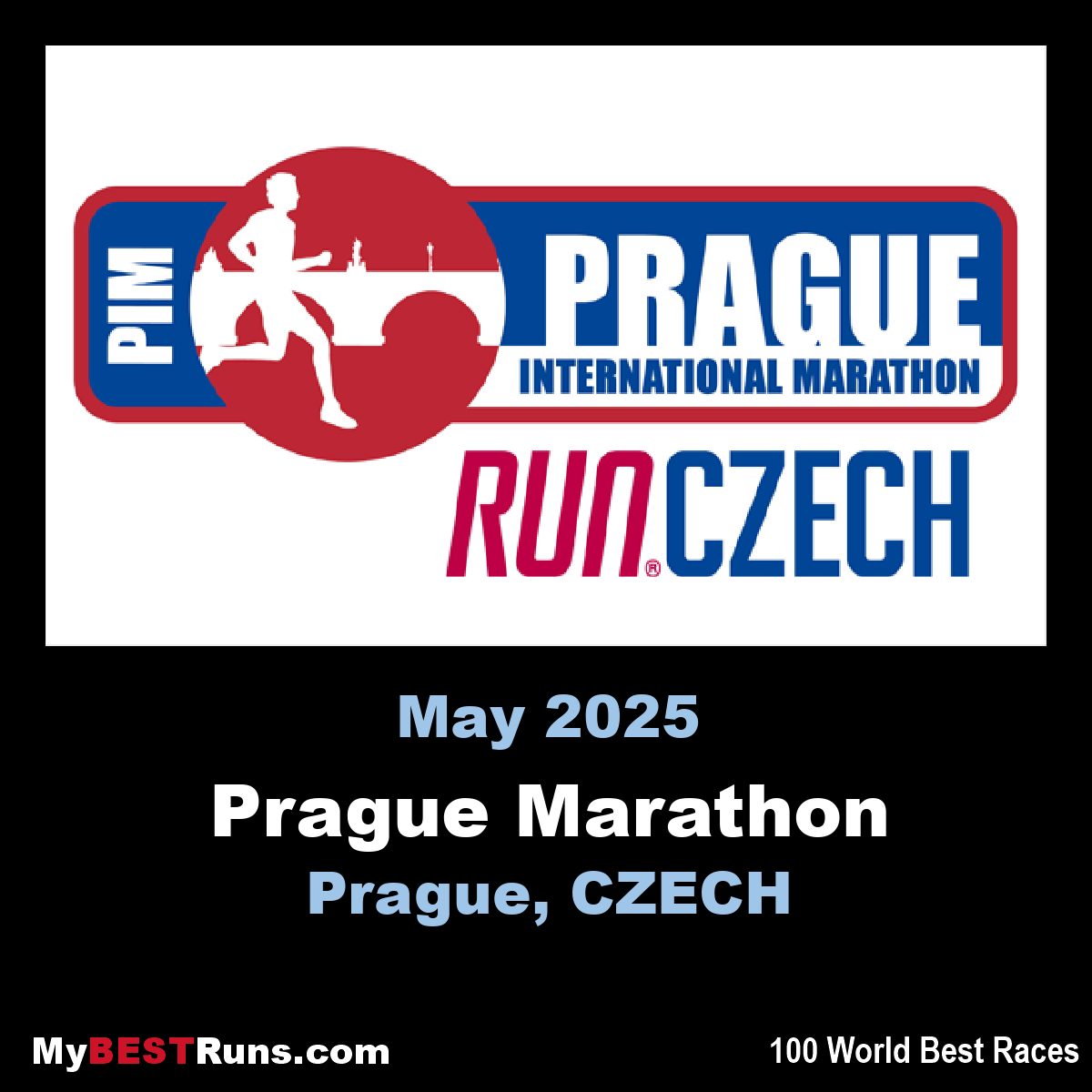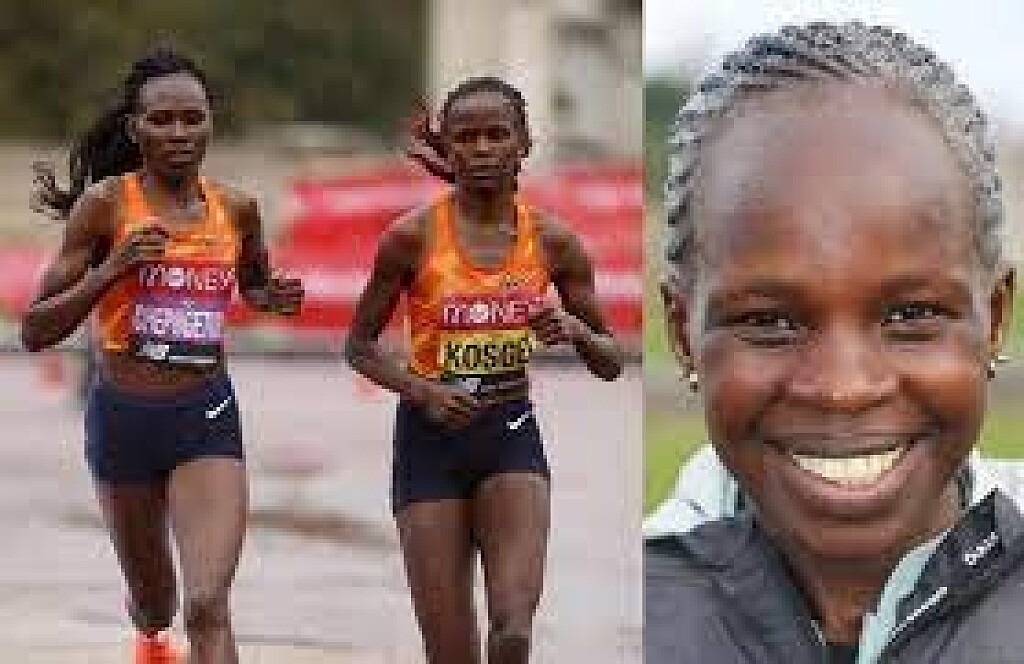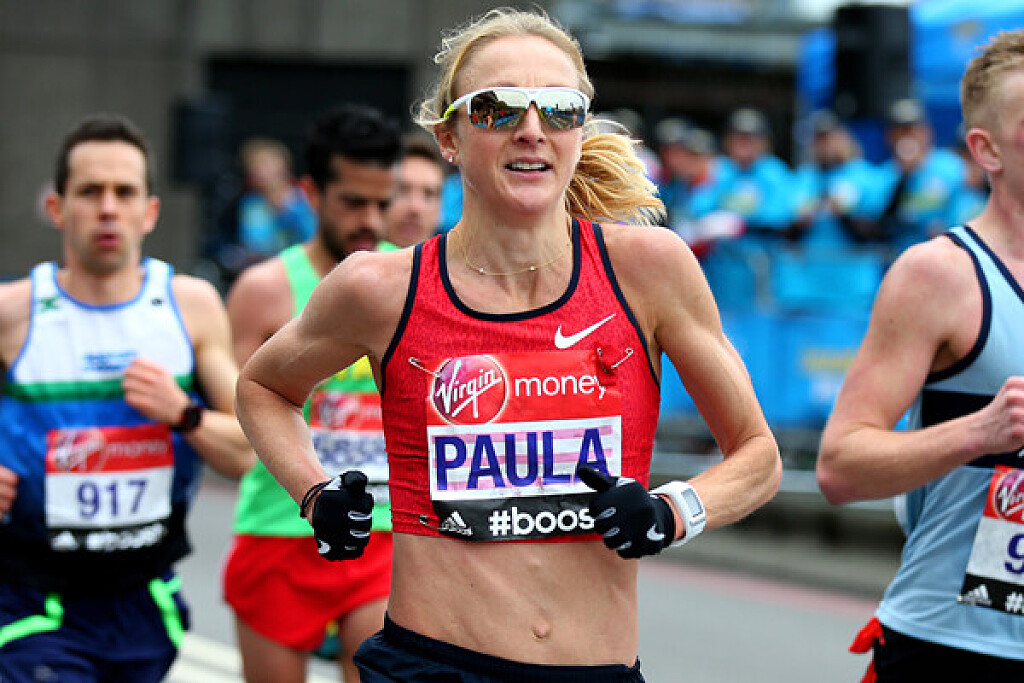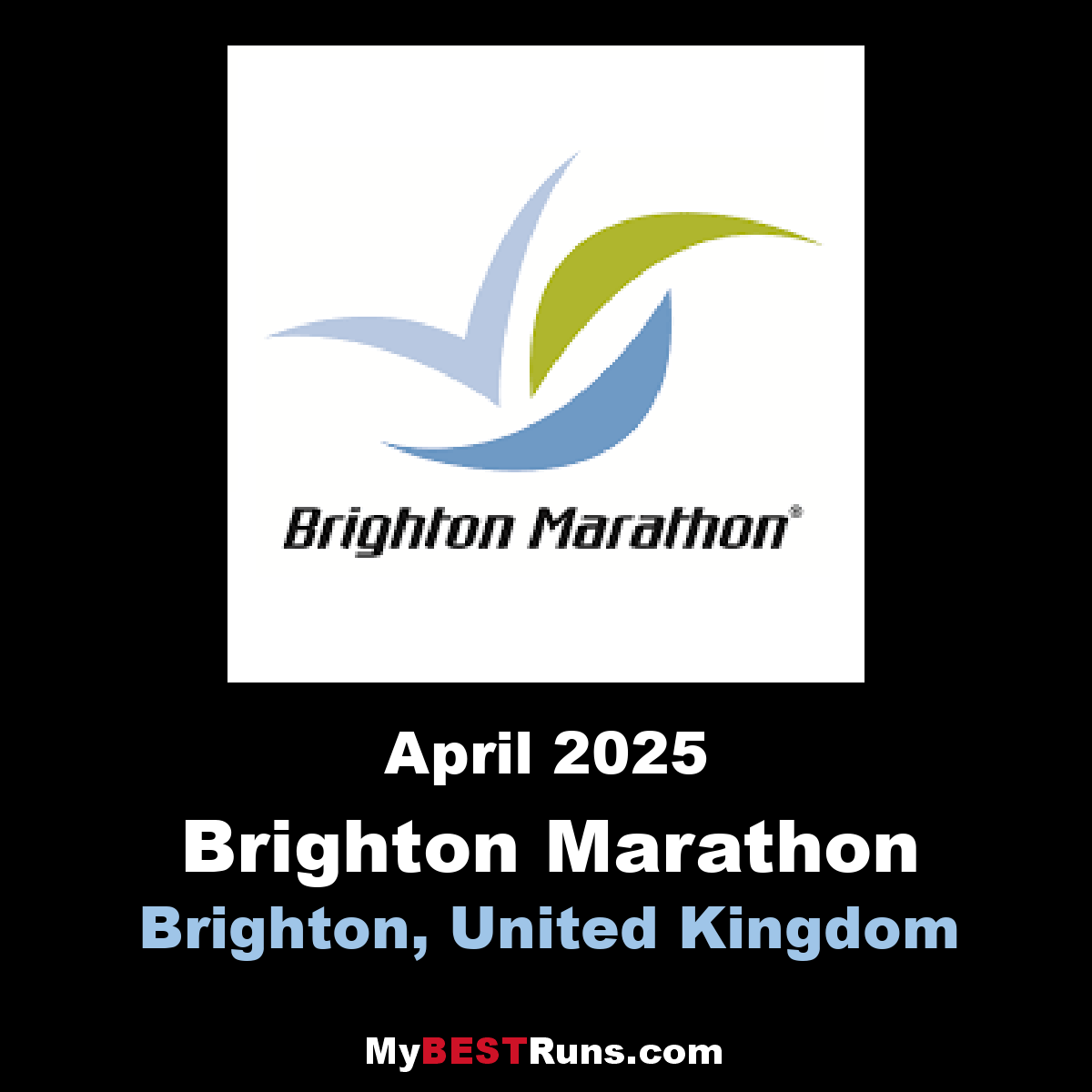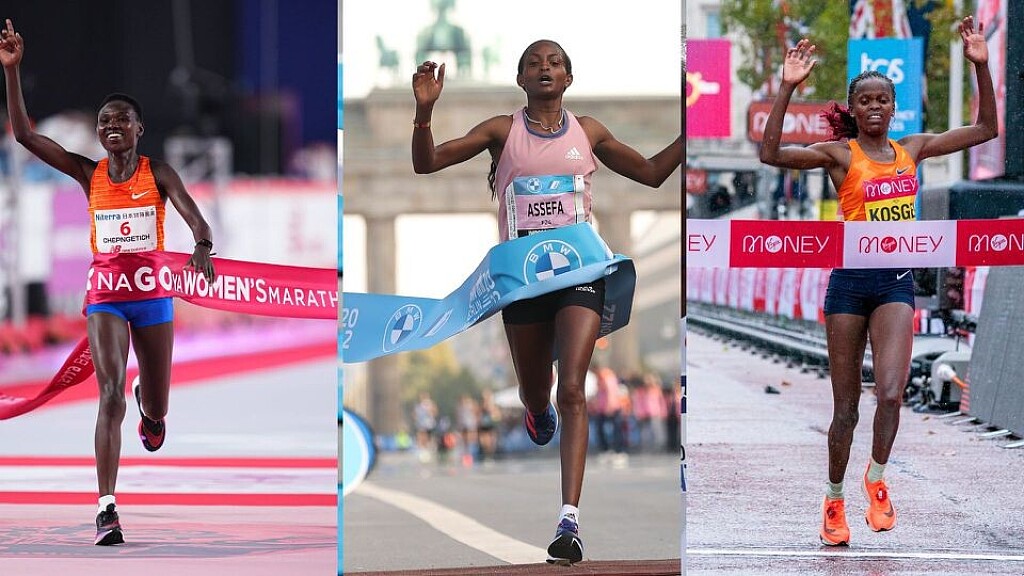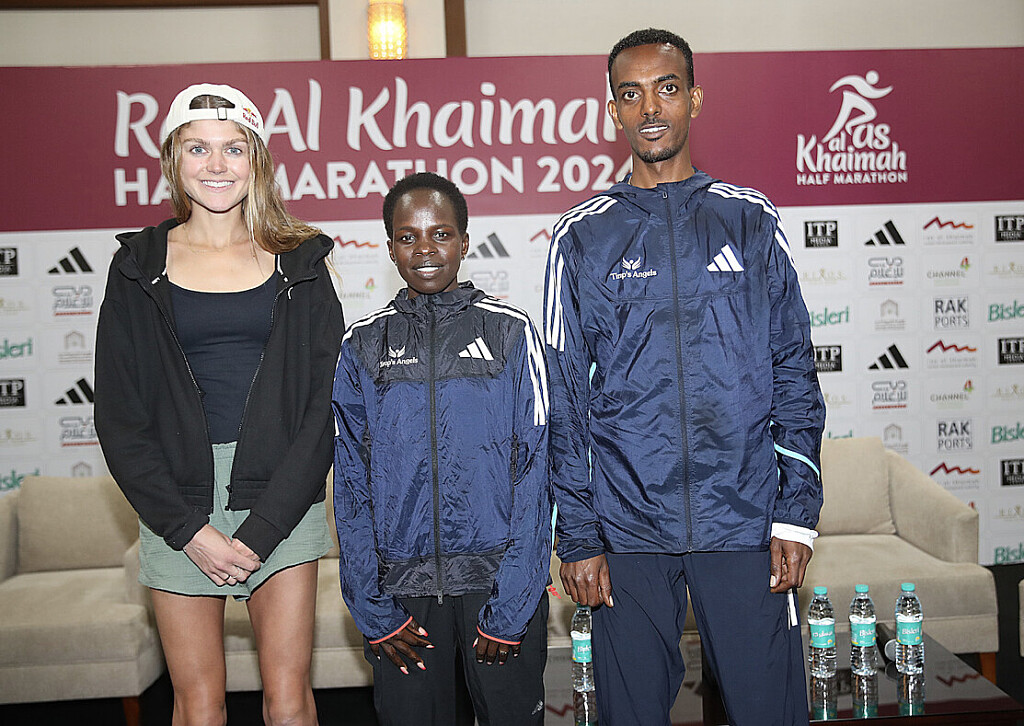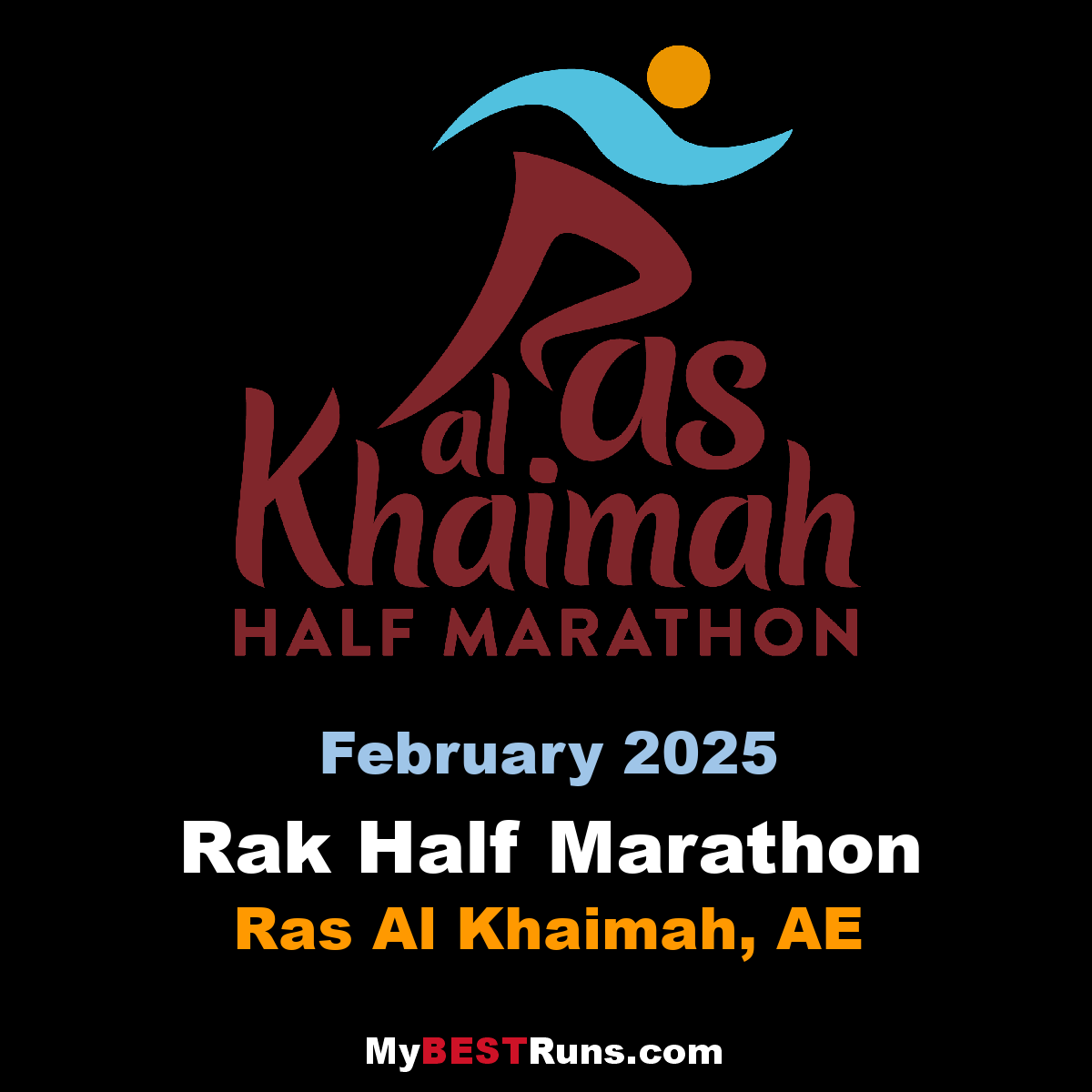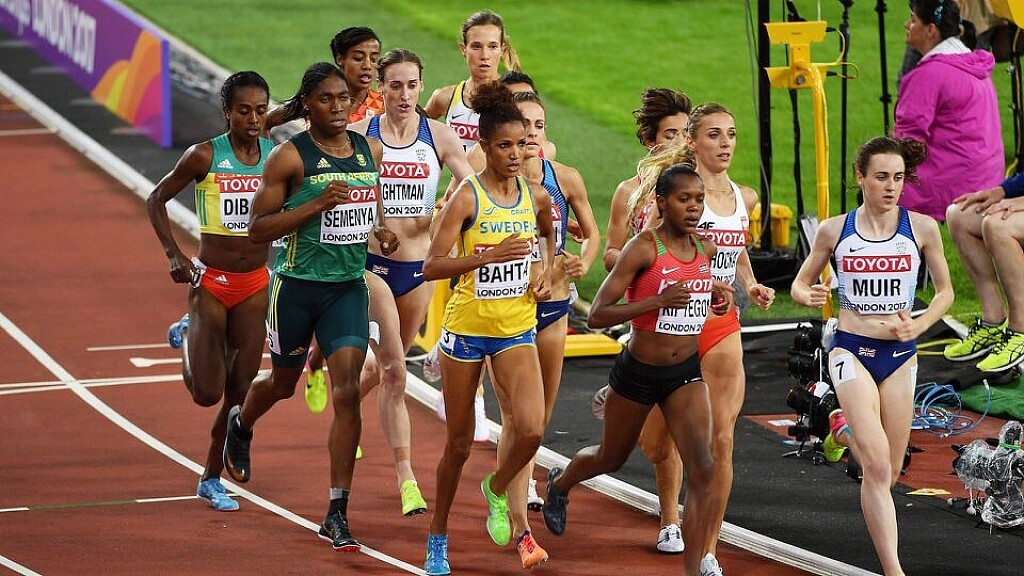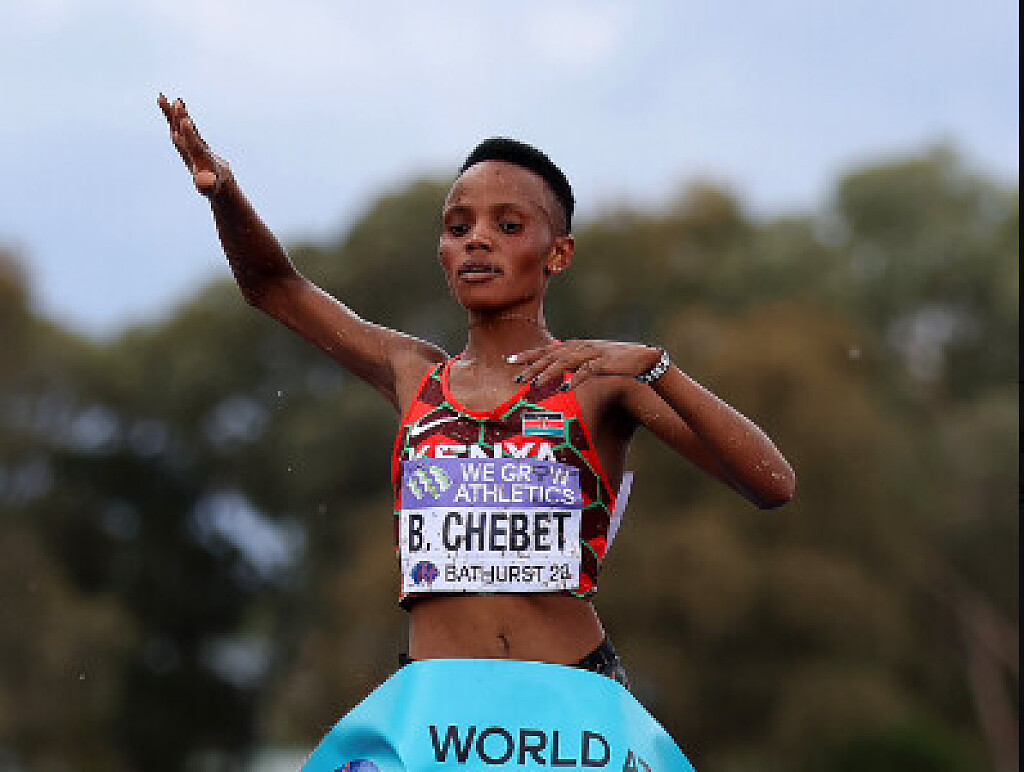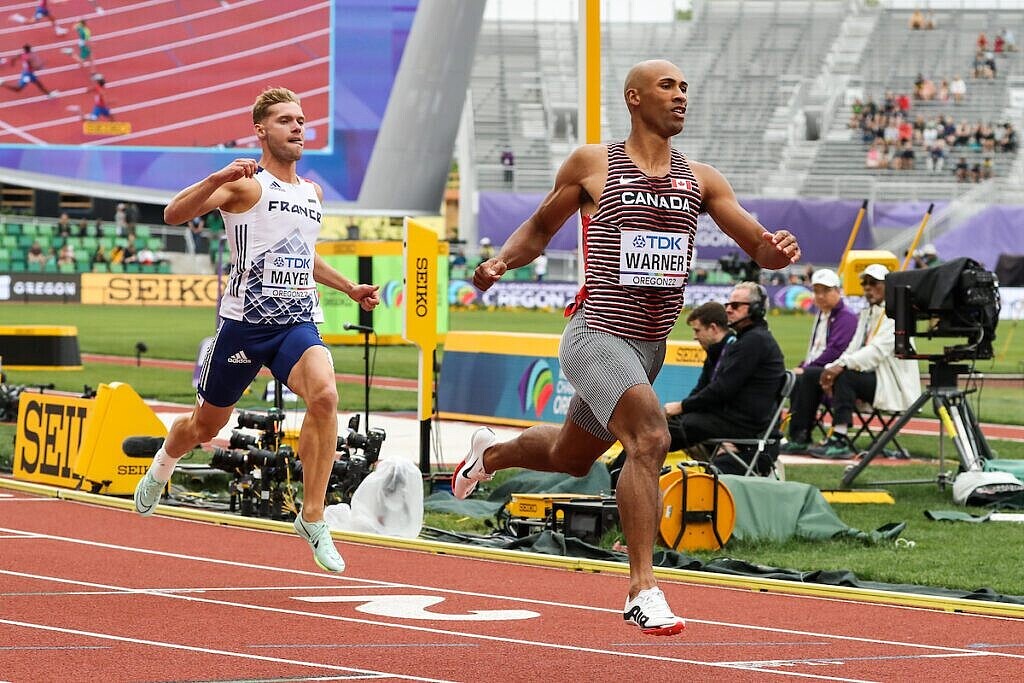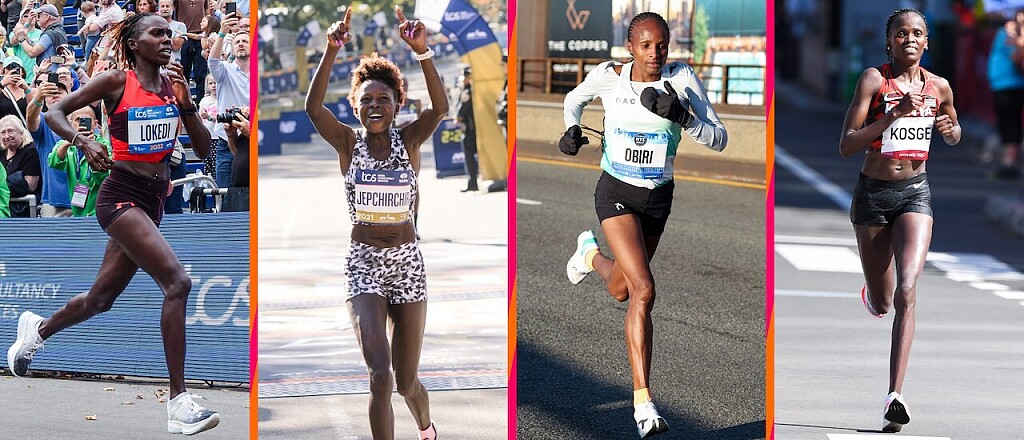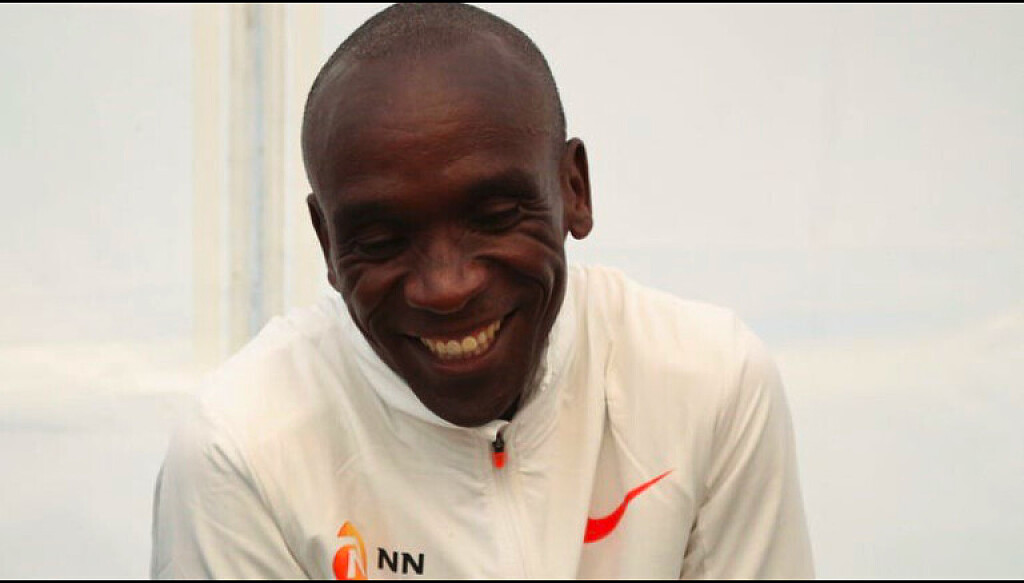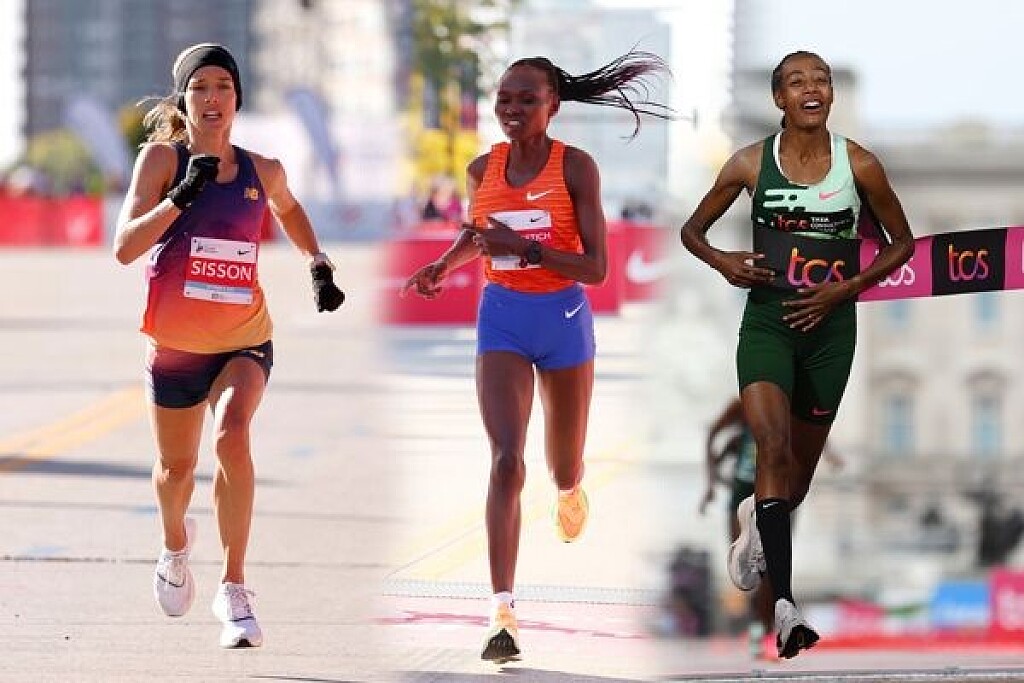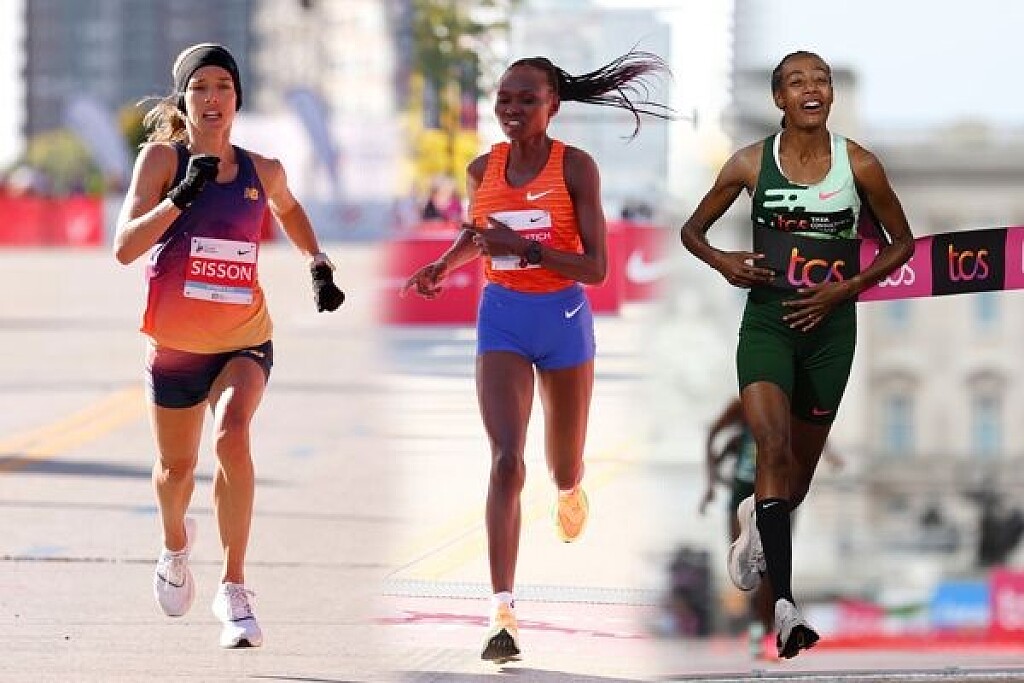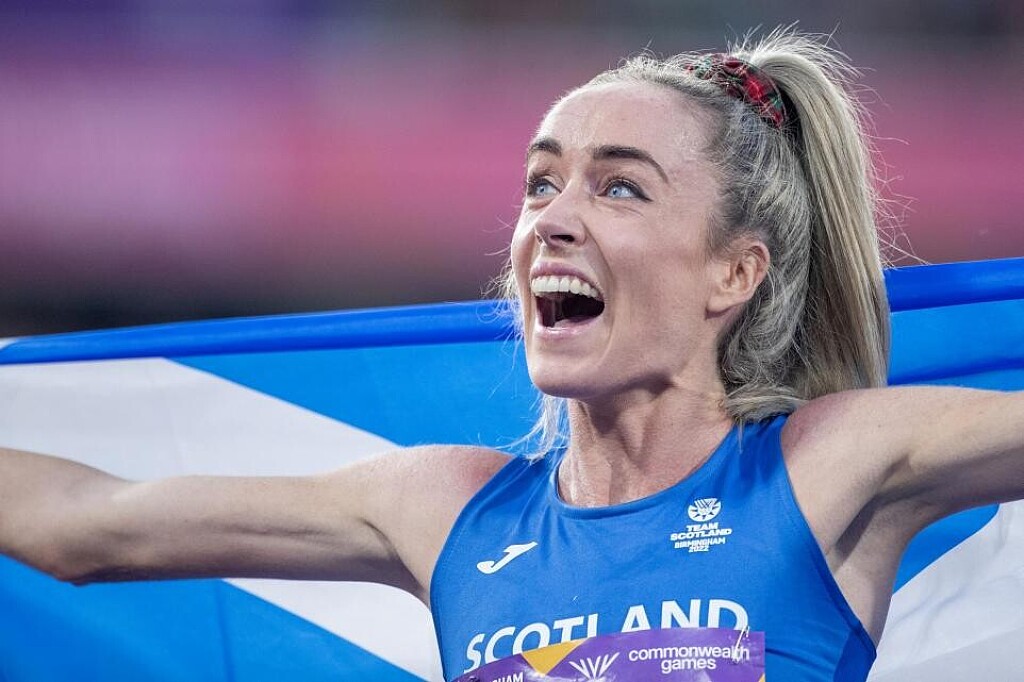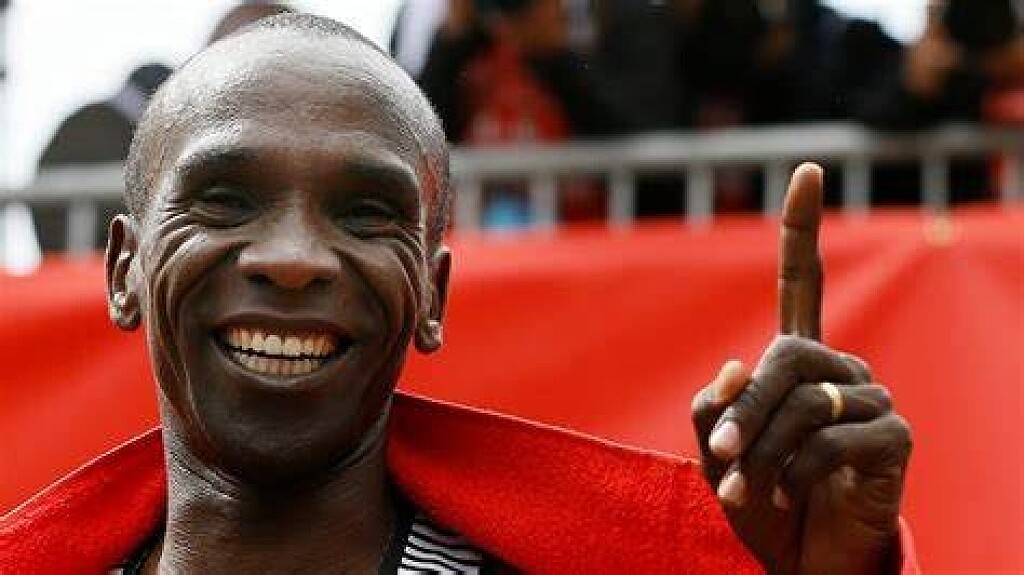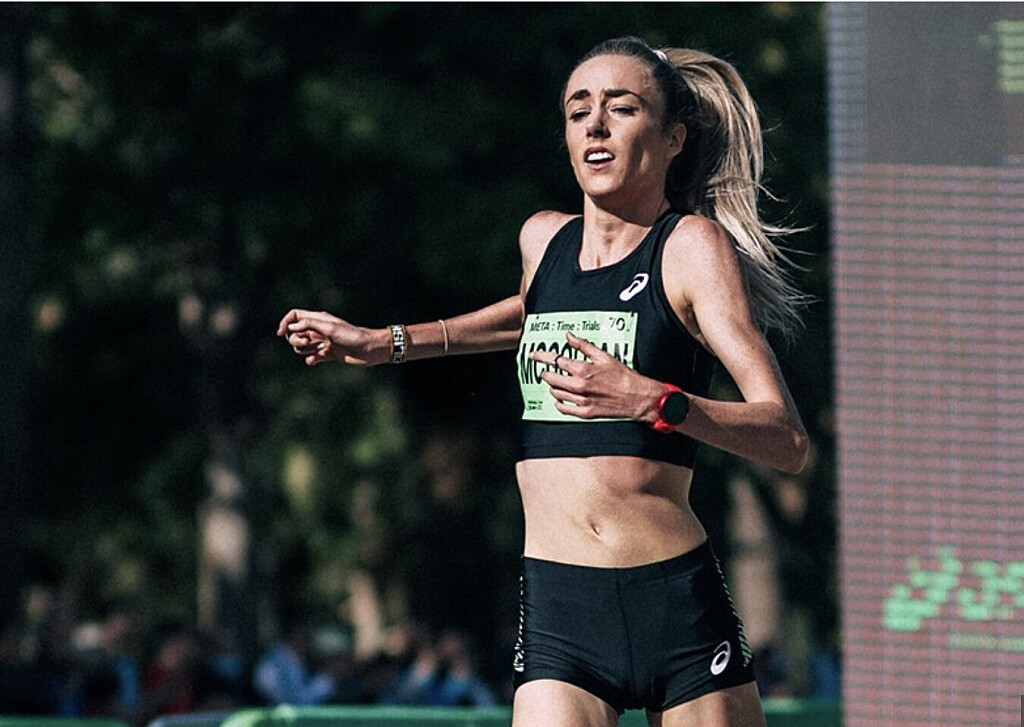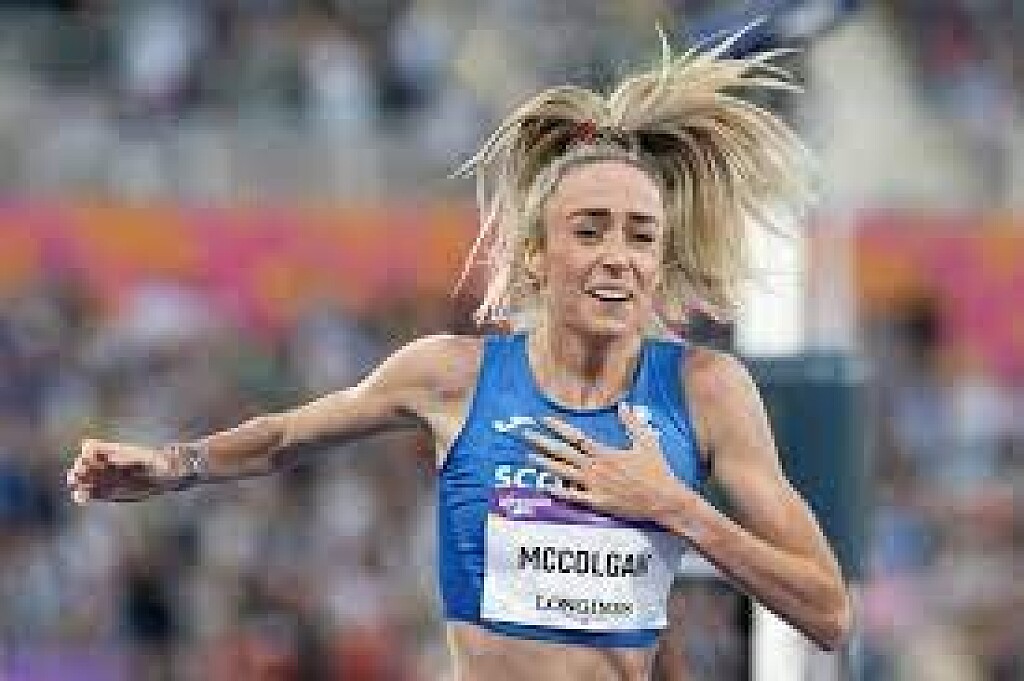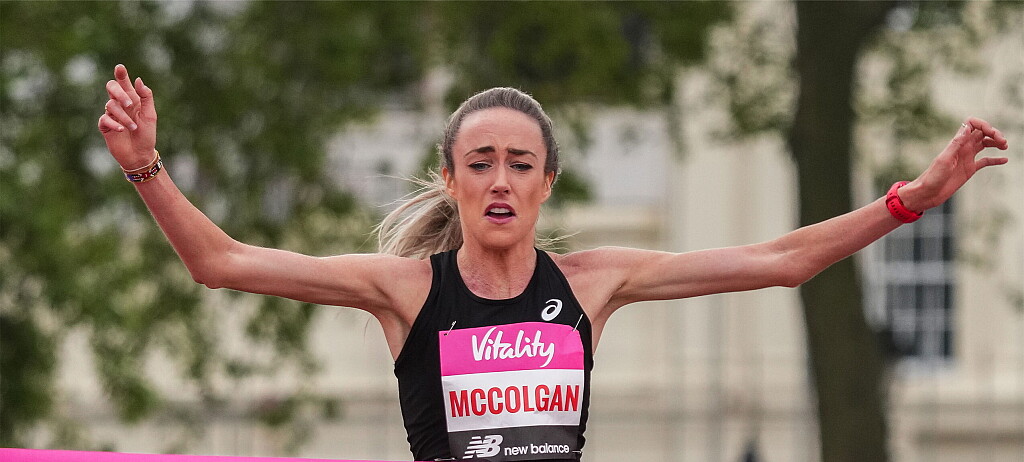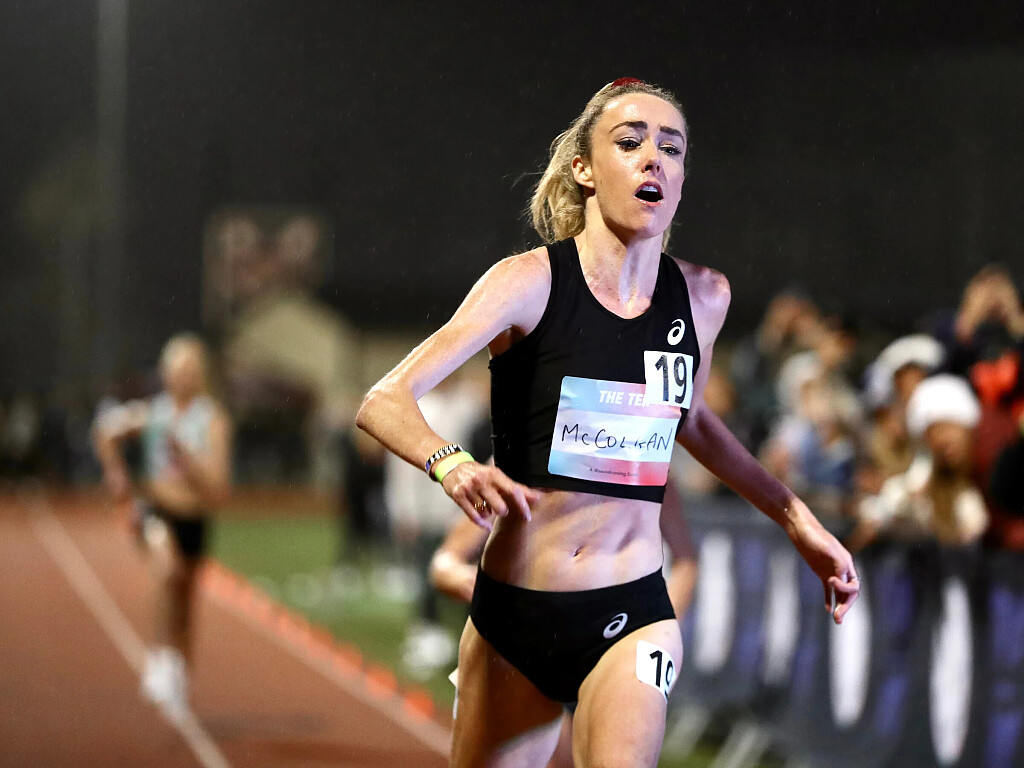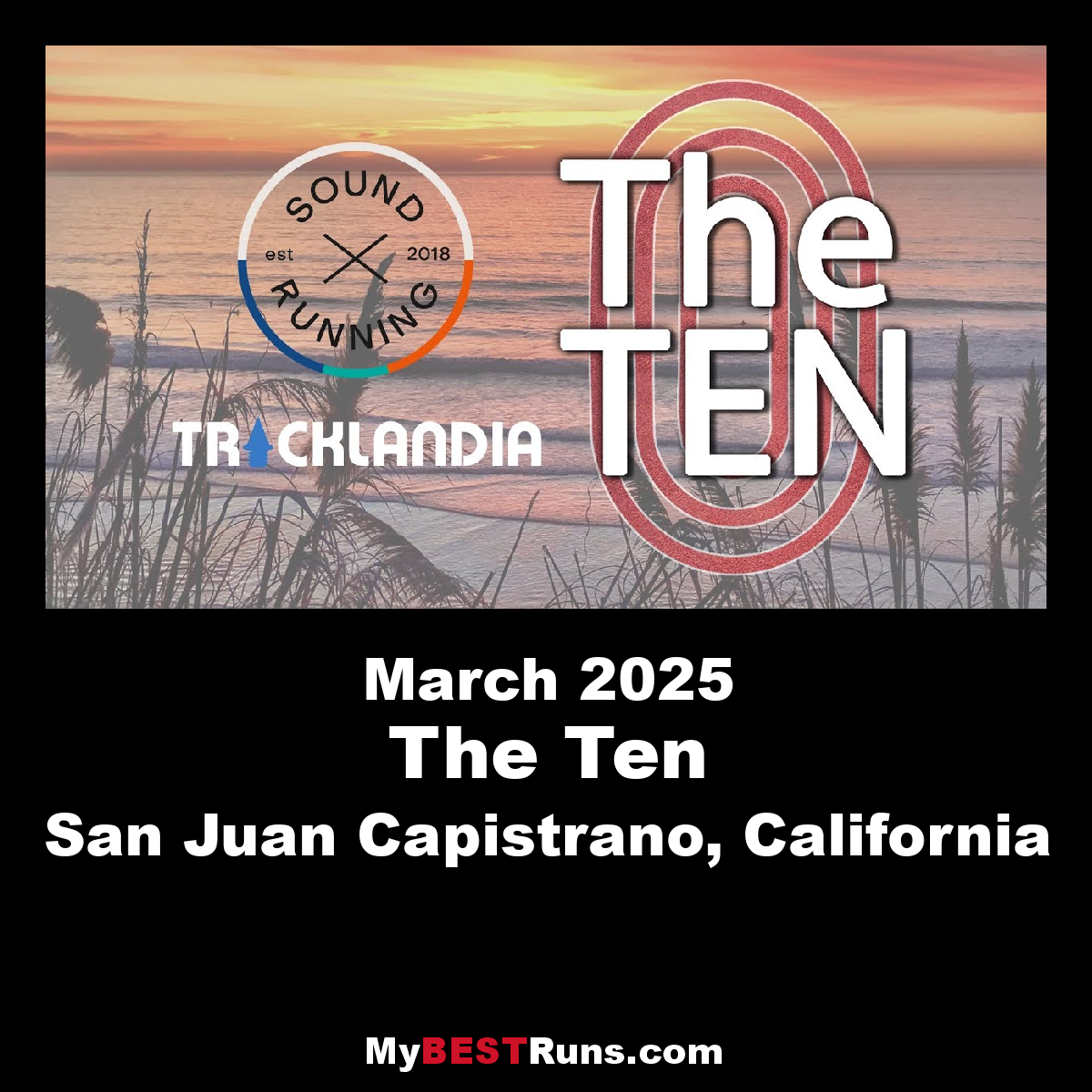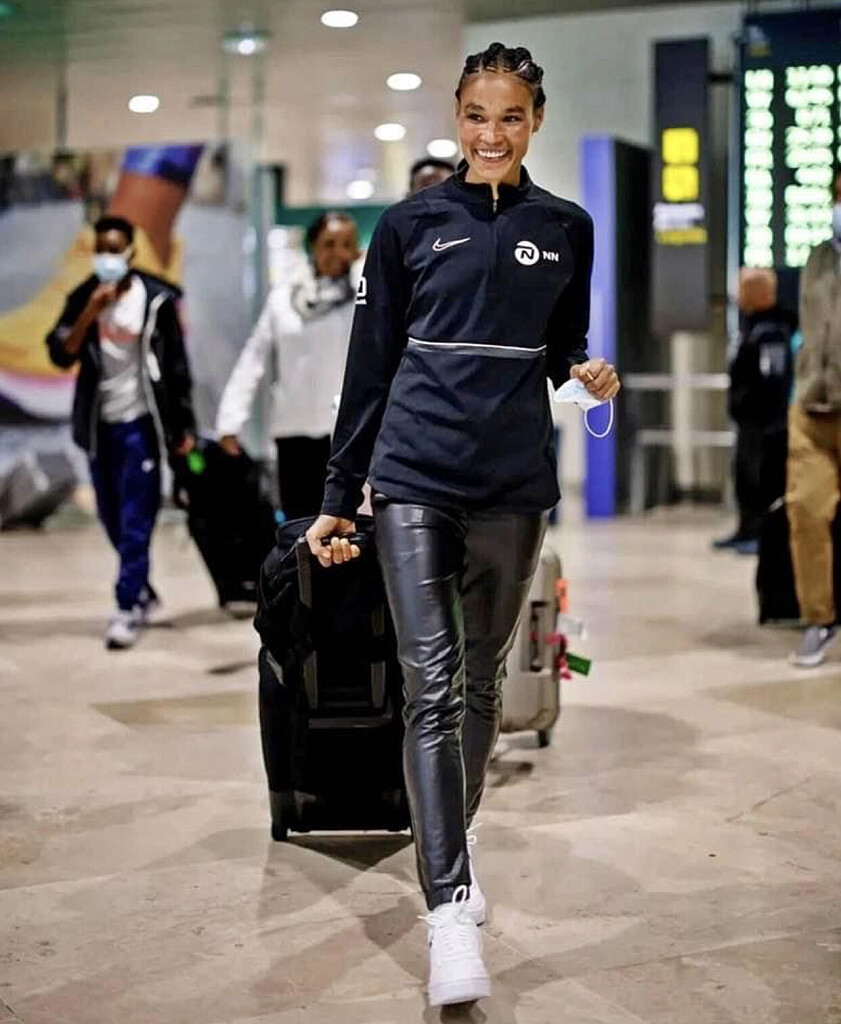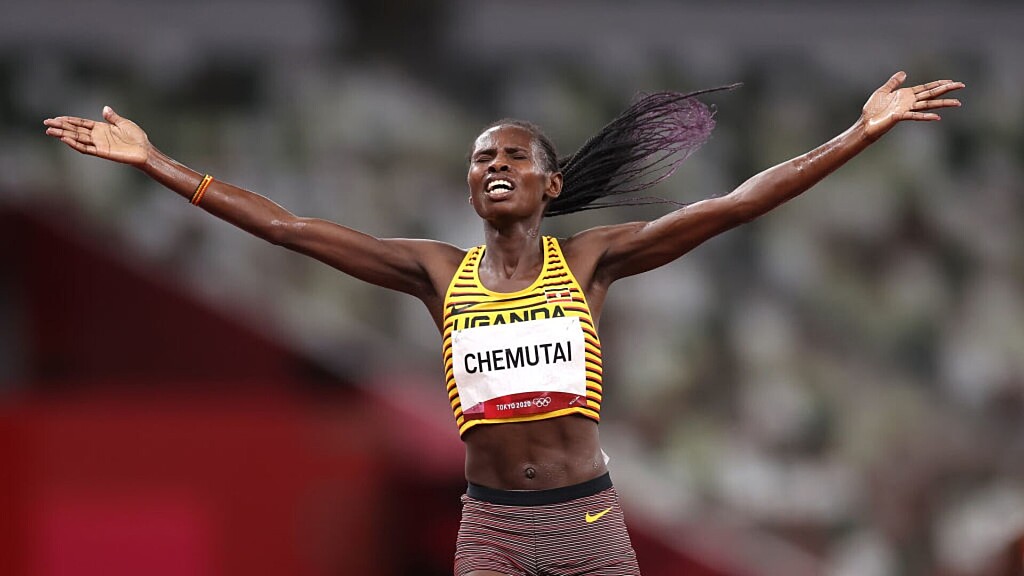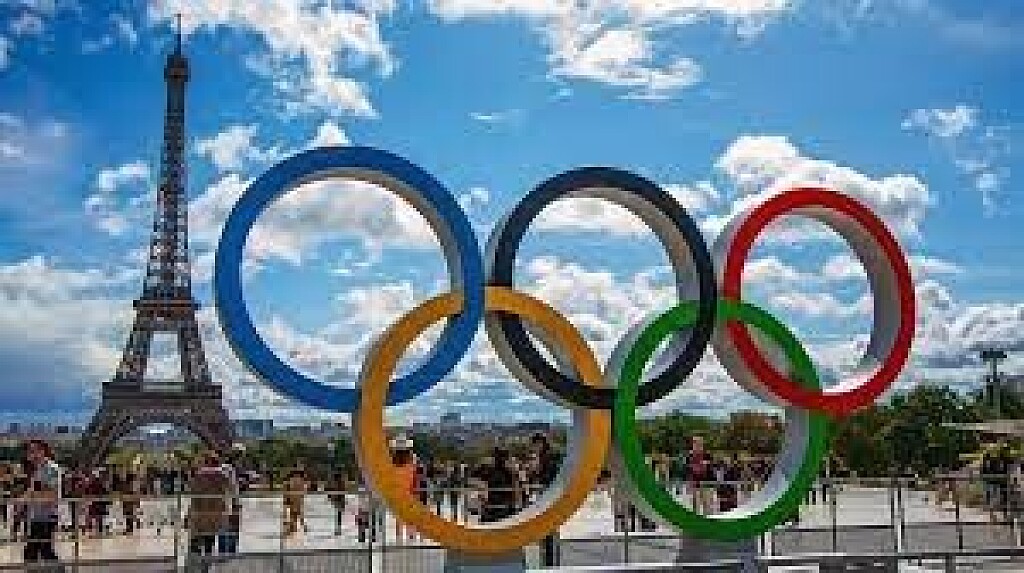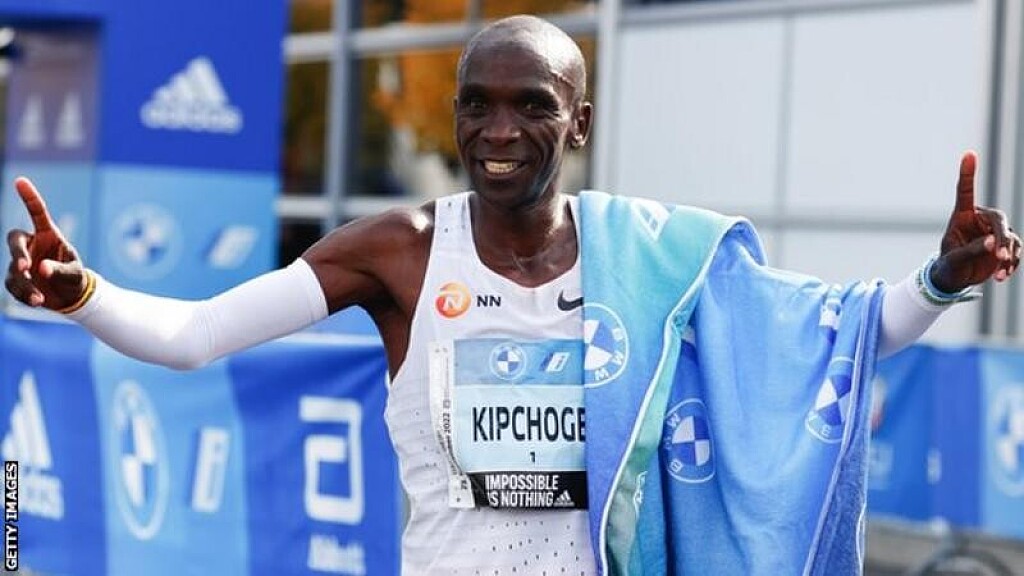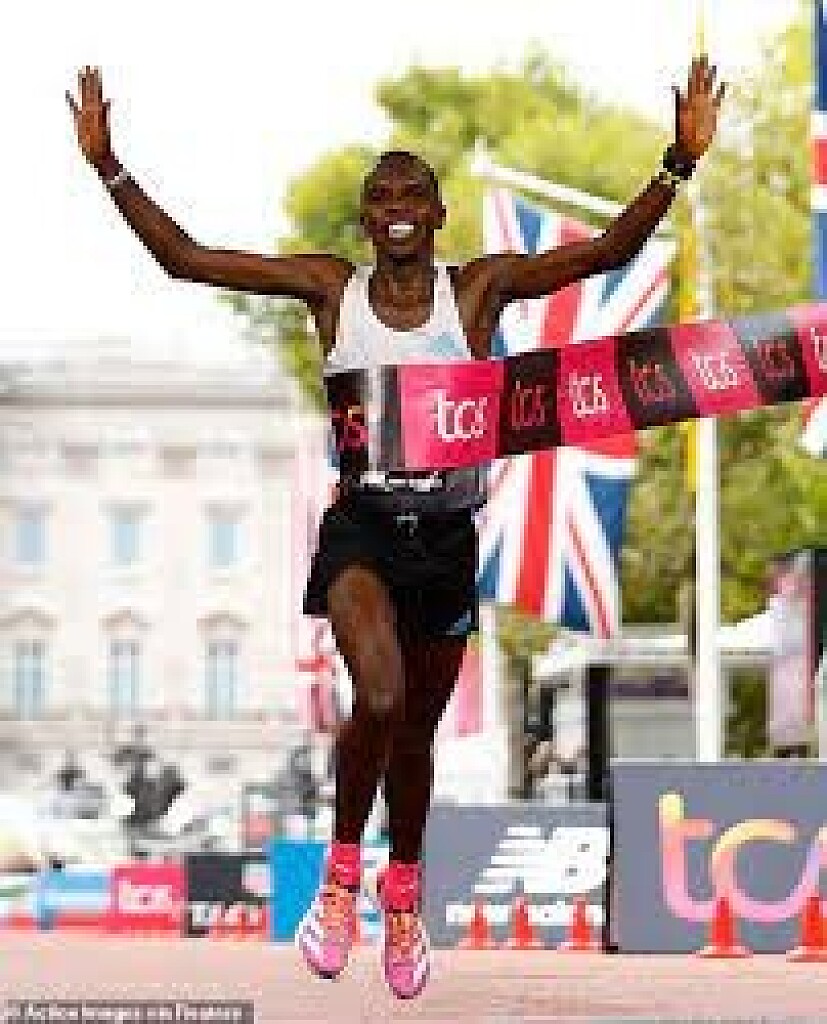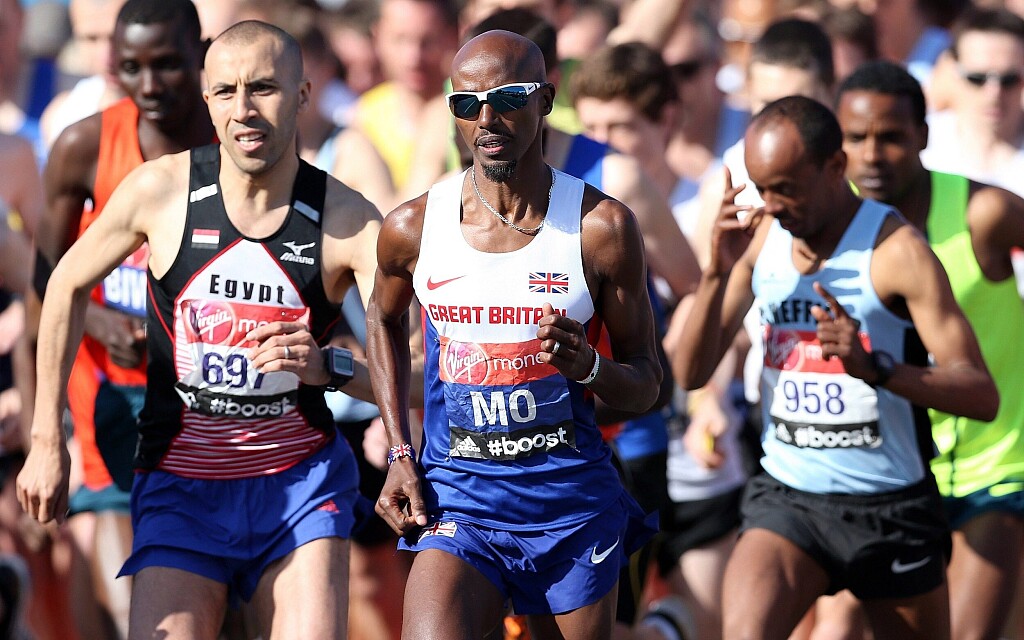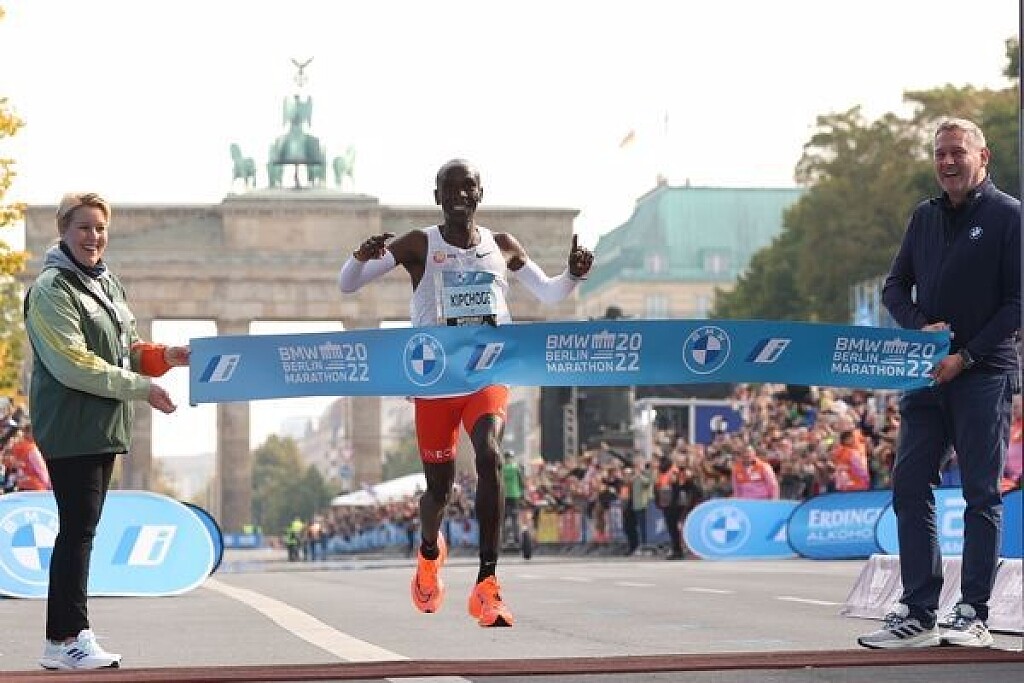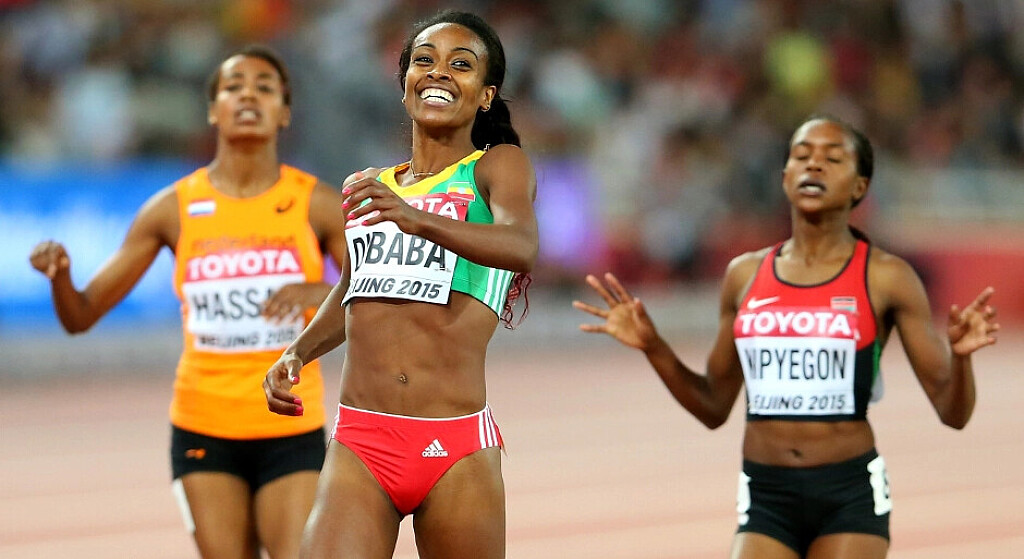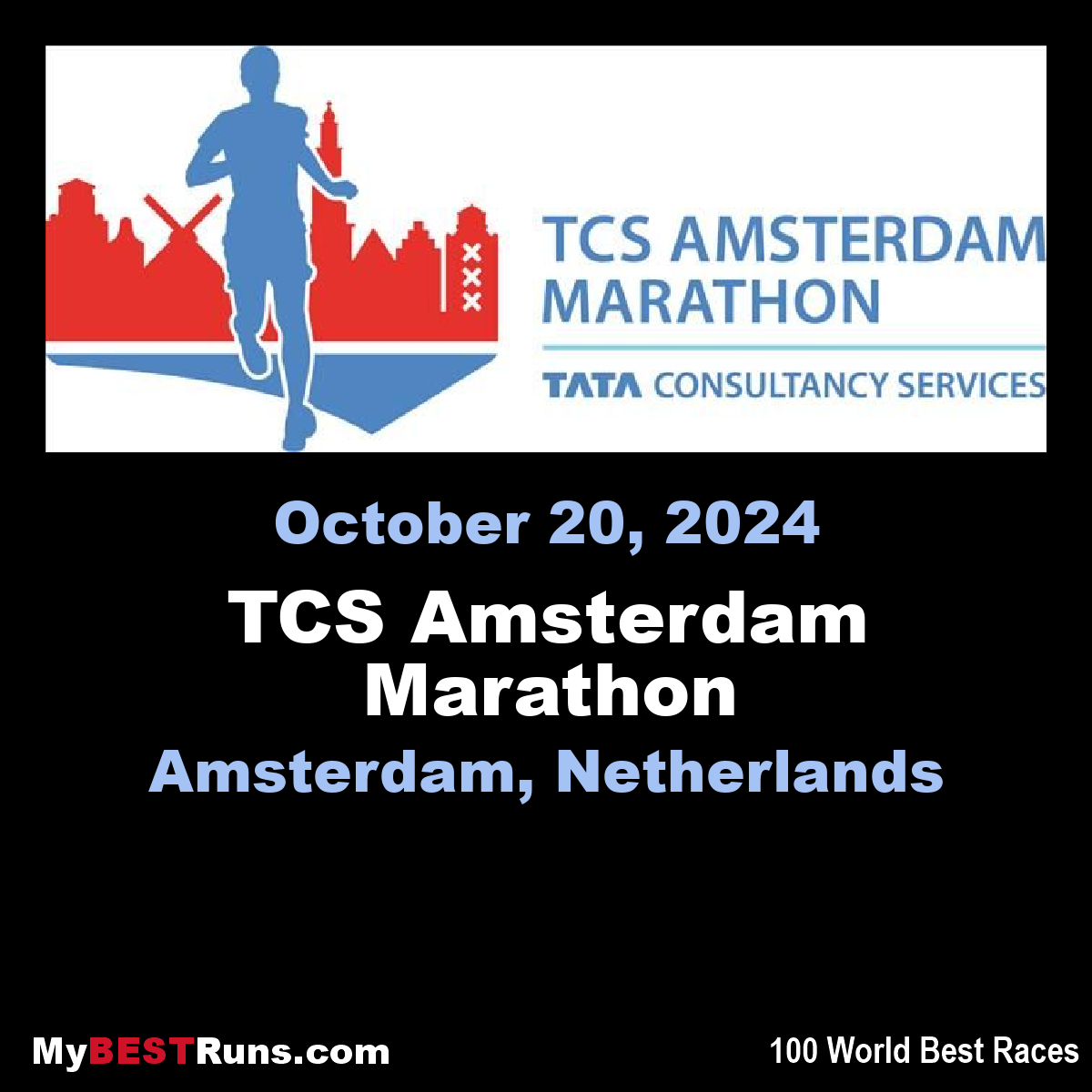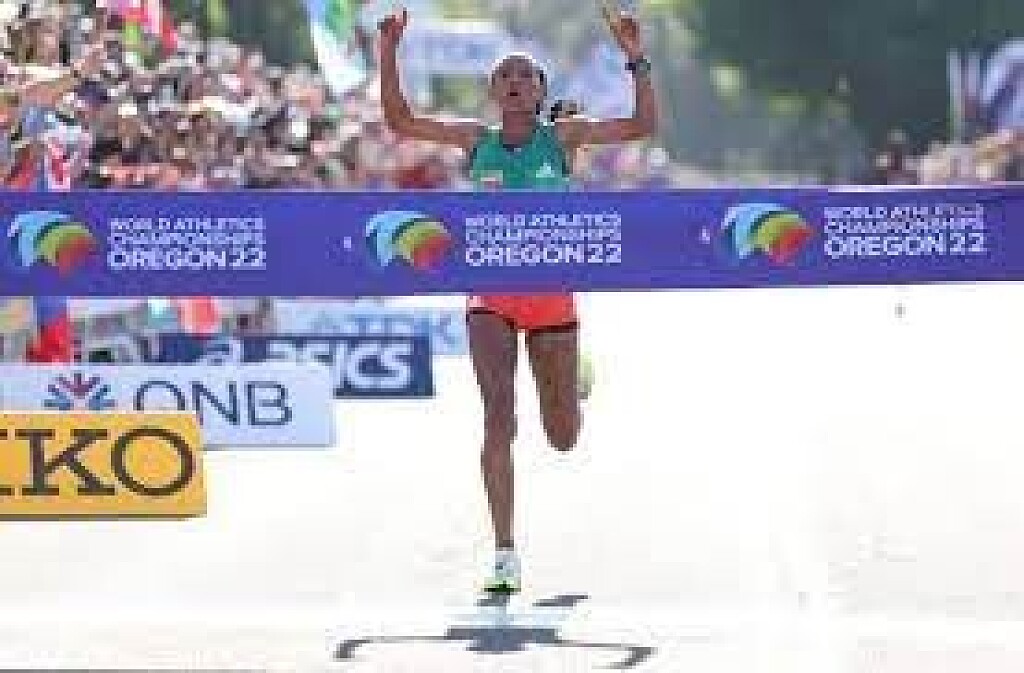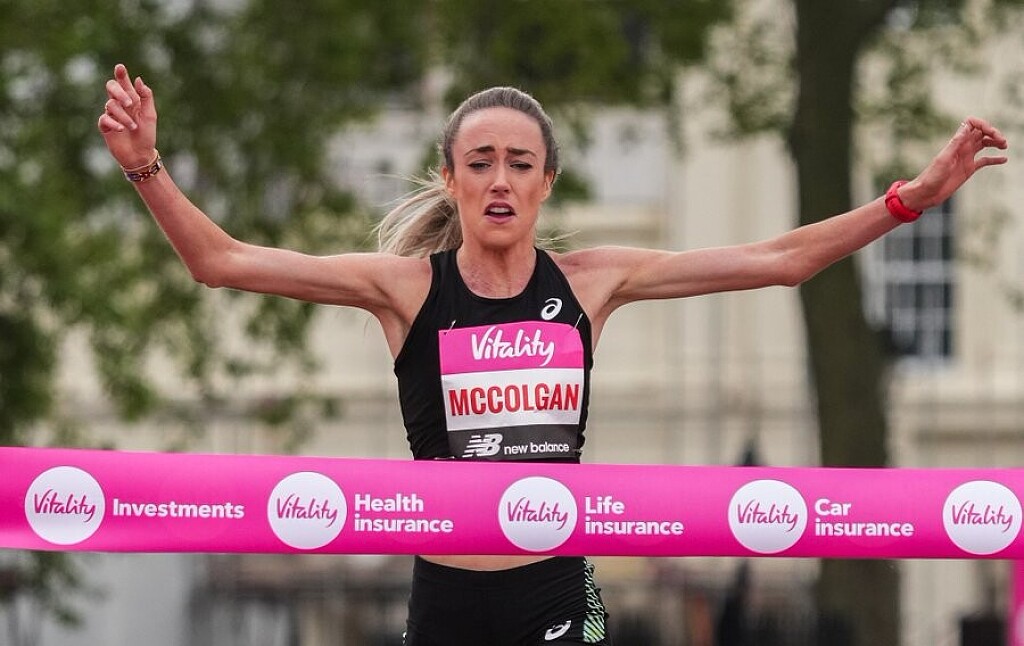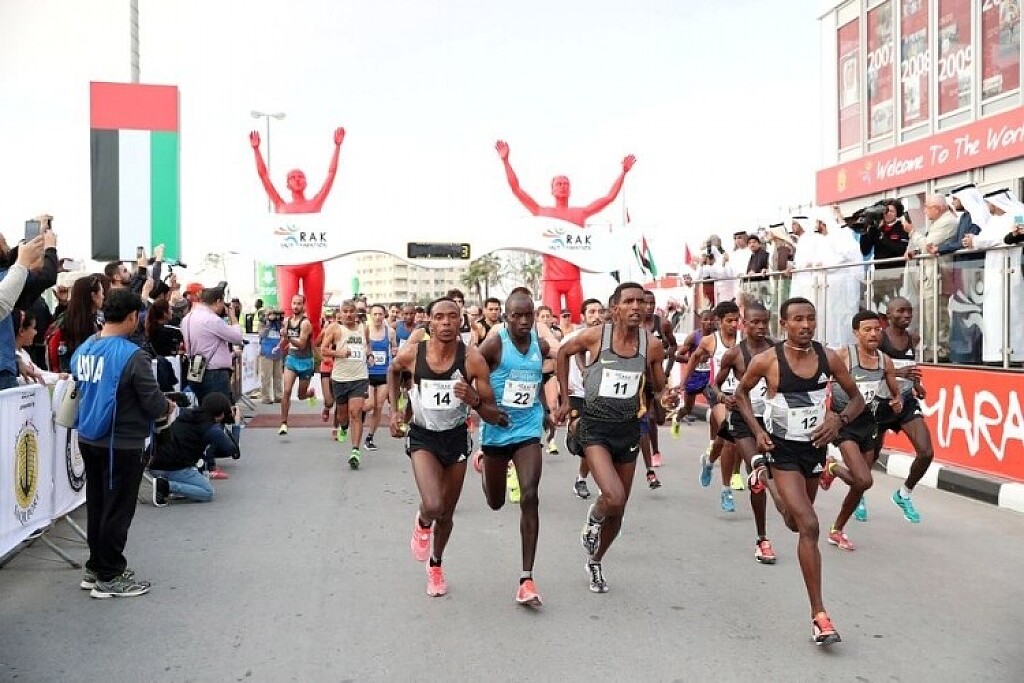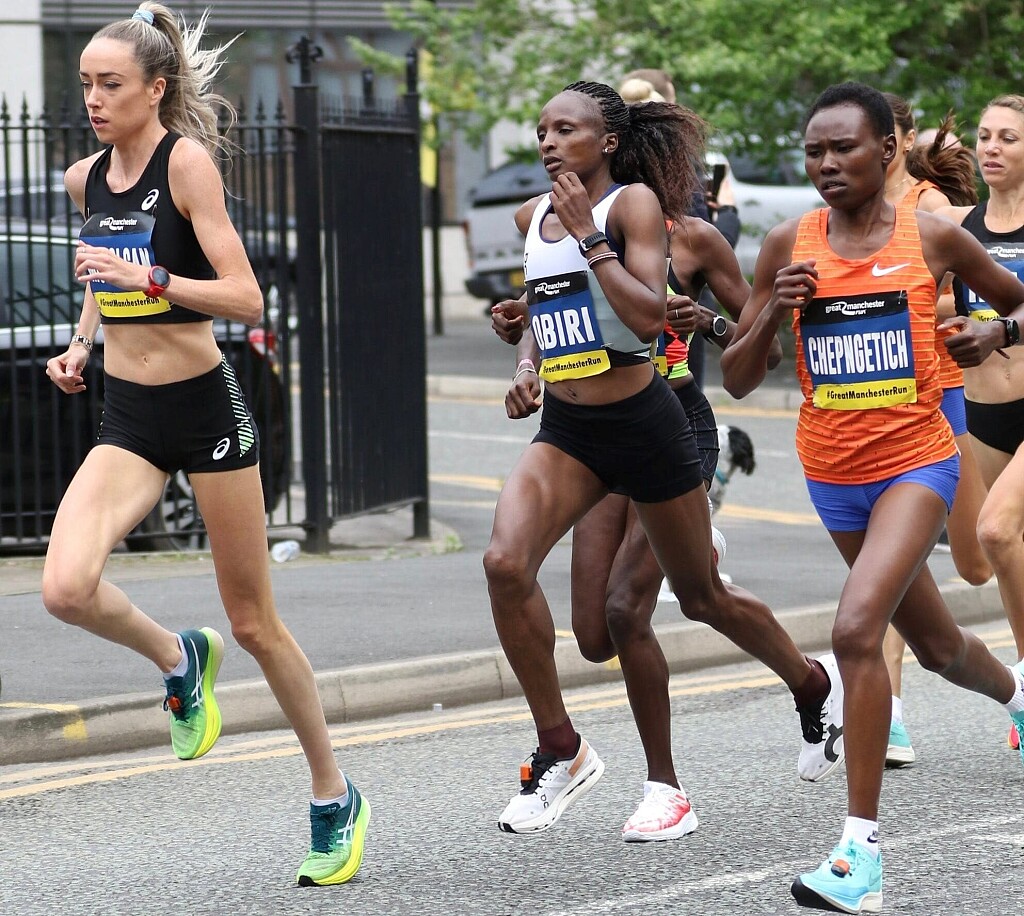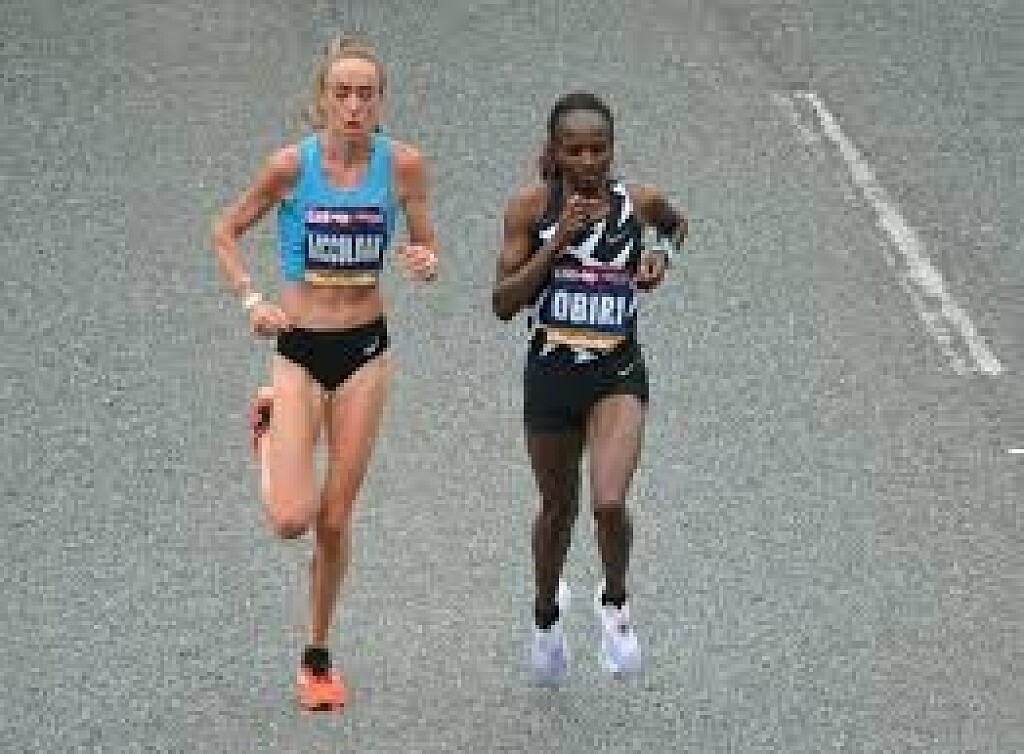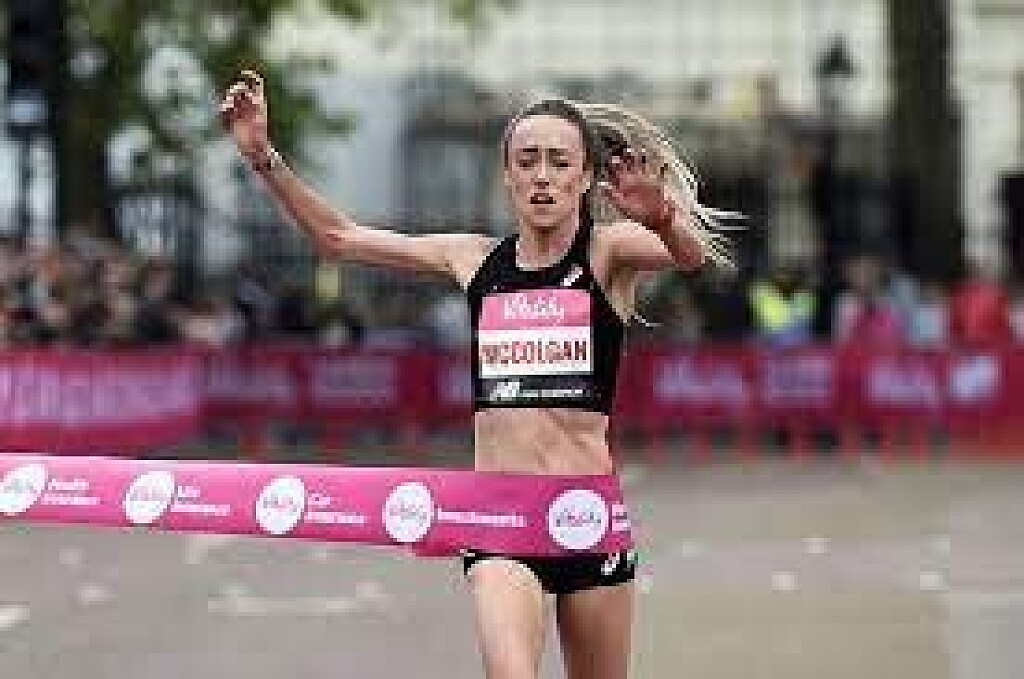Running News Daily
Running News Daily is edited by Bob Anderson. Send your news items to bob@mybestruns.com Advertising opportunities available. Train the Kenyan Way at KATA Kenya and Portugal owned and operated by Bob Anderson. Be sure to catch our movie A Long Run the movie KATA Running Camps and KATA Potato Farms - 31 now open in Kenya! https://kata.ke/
Index to Daily Posts · Sign Up For Updates · Run The World Feed
Articles tagged #Paula Radcliffe
Today's Running News
World-Class Field Set for 2025 Great North Run on September 7
The Great North Run, the world’s largest half marathon, returns on Sunday, September 7, 2025, bringing together over 60,000 participants and a stellar elite field. The iconic 13.1-mile course, which stretches from Newcastle to South Shields, will once again showcase some of the sport’s top international talent.
Kipchumba Returns to Defend His Title
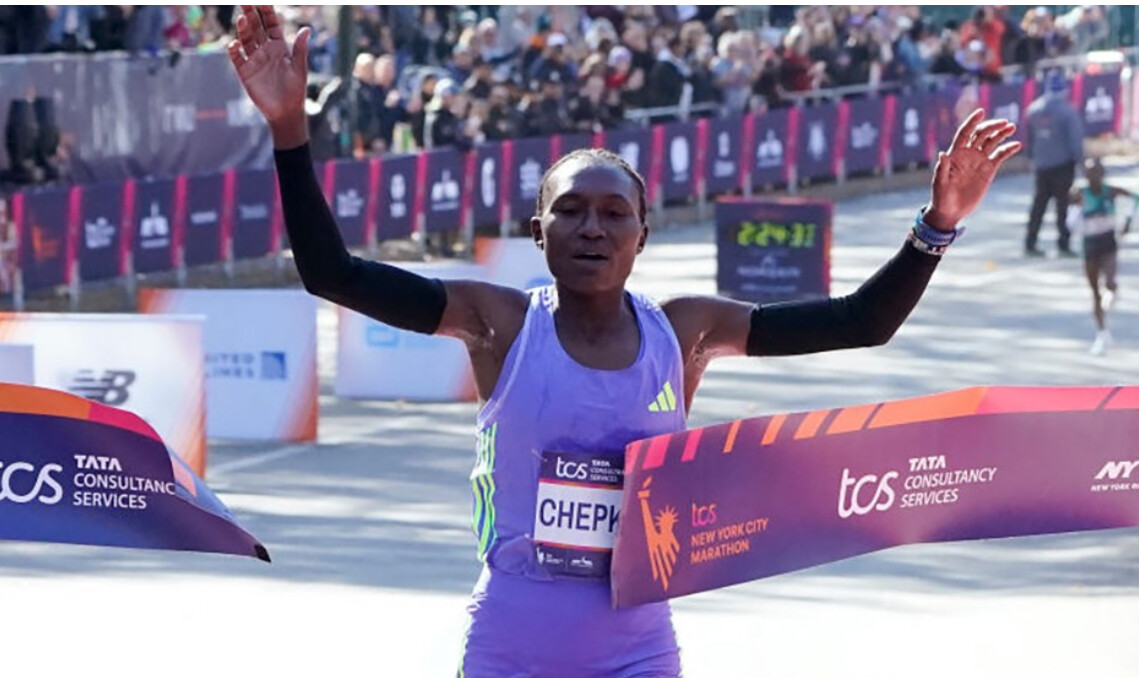
Kenya’s Kipchumba, last year’s men’s champion, is back with his sights set on a repeat victory.
“I’m very happy to return to the Great North Run again this year. It was a great honour to win one of the biggest half marathons in the world at my first attempt. I know I have tough competition this year but am ready for the challenge,” he said.
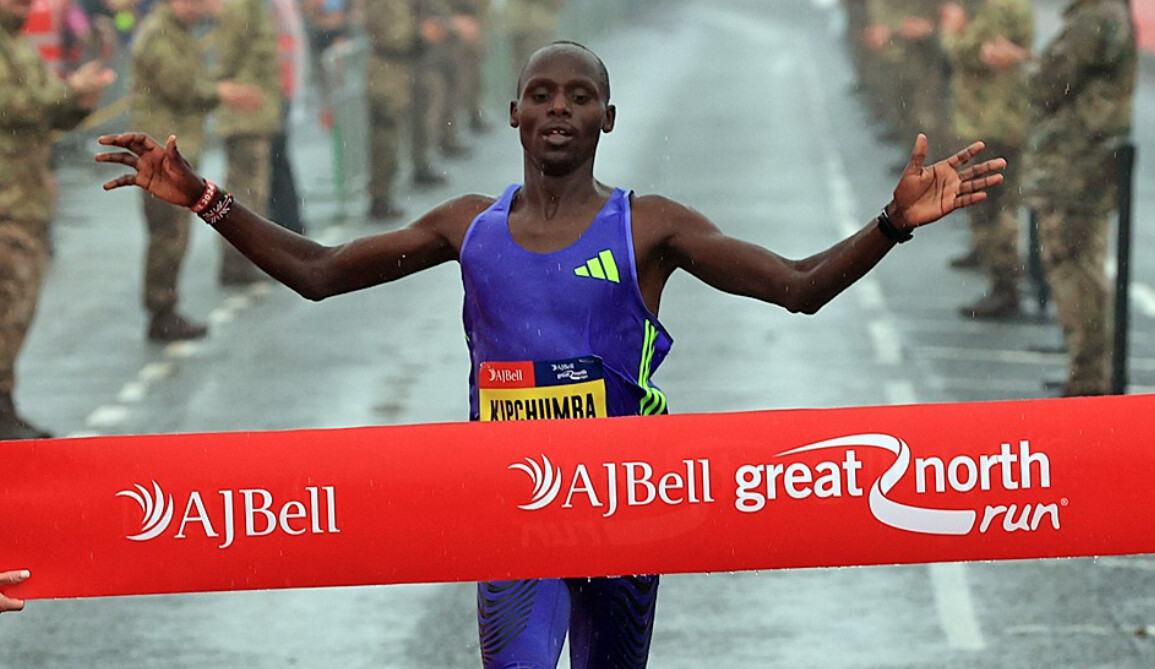
A successful defense would further establish Kipchumba among the premier road runners on the global stage.
McColgan vs. Chepkirui in the Women’s Race
The women’s race will feature a highly anticipated clash between Eilish McColgan of Great Britain and Kenya’s Sheila Chepkirui.
McColgan, the reigning European 10,000m champion and Commonwealth Games gold medalist, has been making a seamless transition from the track to the roads. A win here would be especially meaningful on home soil.
Chepkirui, meanwhile, has emerged as one of Kenya’s most versatile athletes. She earned bronze behind McColgan at the 2022 Commonwealth Games 10,000m, and in 2024 captured the New York City Marathon title, confirming her strength over longer distances.
Vivian Cheruiyot Brings Experience
Adding depth to the women’s field is Vivian Cheruiyot, a four-time Olympic medalist and two-time Great North Run champion (2016, 2018). Her return injects both experience and star power into what is already a world-class lineup.
A Race with History and Prestige
Since its founding in 1981 by Olympian Brendan Foster, the Great North Run has grown into the largest half marathon in the world. Its course—crossing the Tyne Bridge before finishing along the South Shields seafront—is lined with thousands of enthusiastic spectators.
The race has seen some of the sport’s greatest champions, including Mo Farah, Haile Gebrselassie, and Paula Radcliffe. The course records stand at 58:56 for men (Martin Mathathi, 2011) and 1:04:28 for women (Brigid Kosgei, 2019).
2025 at a Glance
• Date: Sunday, September 7, 2025
• Location: Newcastle upon Tyne to South Shields
• Elite Men: Kipchumba (defending champion)
• Elite Women: Eilish McColgan, Sheila Chepkirui, Vivian Cheruiyot
• Course Records: Martin Mathathi (58:56), Brigid Kosgei (1:04:28)
With Kipchumba aiming for back-to-back titles, McColgan and Chepkirui set for a dramatic head-to-head battle, and Cheruiyot returning to familiar ground, the 2025 Great North Run promises another unforgettable day in the history of distance running.
by Boris Baron
Login to leave a comment
Why Negative Splits Win Races and How to Master Them
For serious runners chasing personal records and breakthrough performances, mastering the negative split can be a game-changer. A negative split means running the second half of a race faster than the first—and while it sounds simple, it requires discipline, pacing, and confidence.
Elite marathoners like Eliud Kipchoge and Paula Radcliffe have used negative split strategies to break records and win major races. Kipchoge’s historic sub-2-hour marathon in Vienna was executed with near-perfect even splits, and many of his victories were sealed with strong second halves.
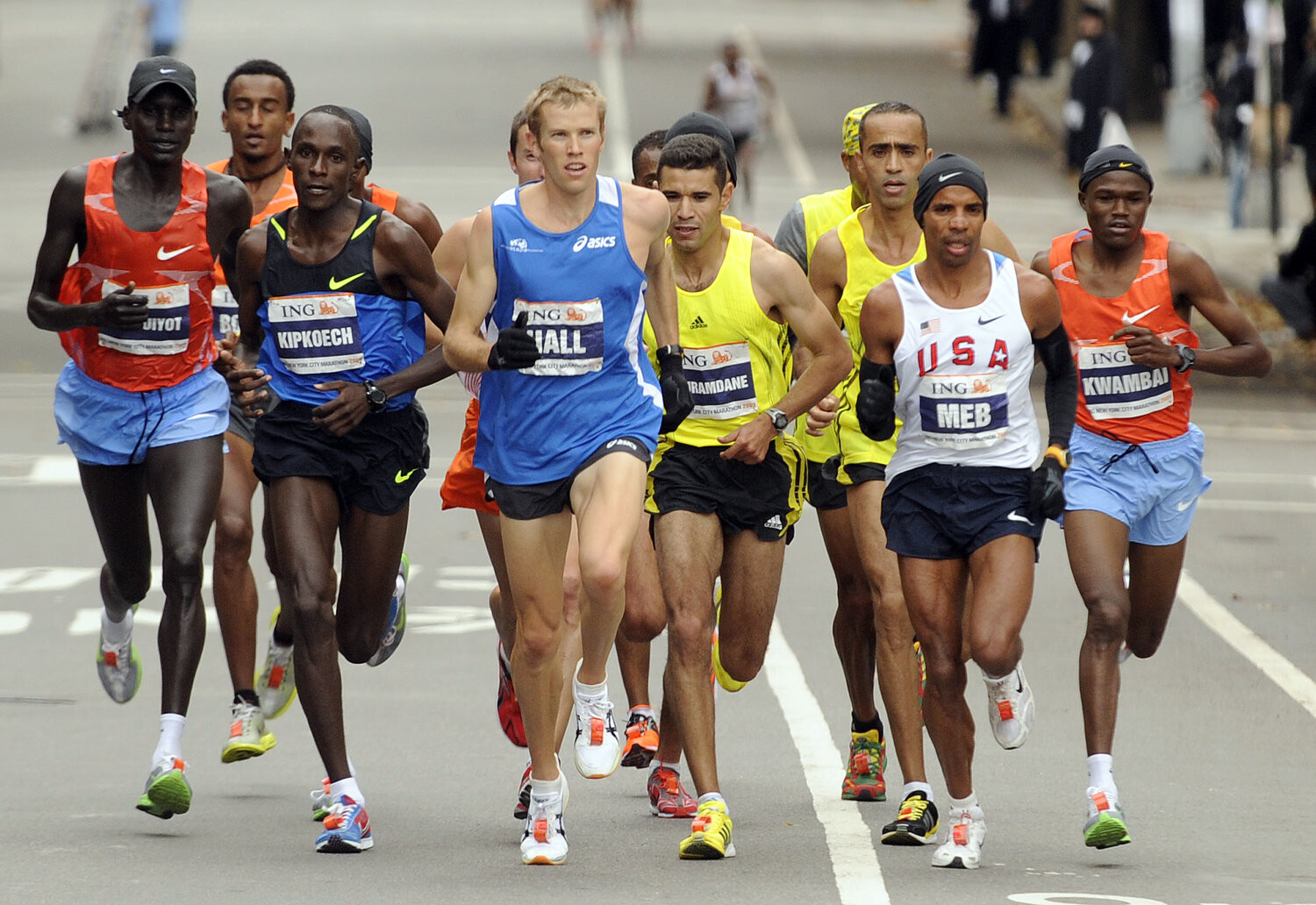
Why It Works
Running a negative split allows you to conserve energy early, delay fatigue, and surge when it counts most. By holding back slightly in the first half, you avoid lactate buildup and maintain better control. Mentally, it can be a major boost—there’s nothing more empowering than passing fading runners in the final miles.
Pacing too fast early is a common mistake, even among experienced runners. But a controlled first half followed by a confident finish often leads to faster times, stronger performances, and more satisfying races.
Bob Anderson’s Progressive Step-Up Method
Bob Anderson, founder of Runner’s World and owner of KATA Portugal at Anderson Manor and KATA Kenya, has long believed in the power of progressive step-ups in training. “Every mile needs to be faster than the one before,” he says.
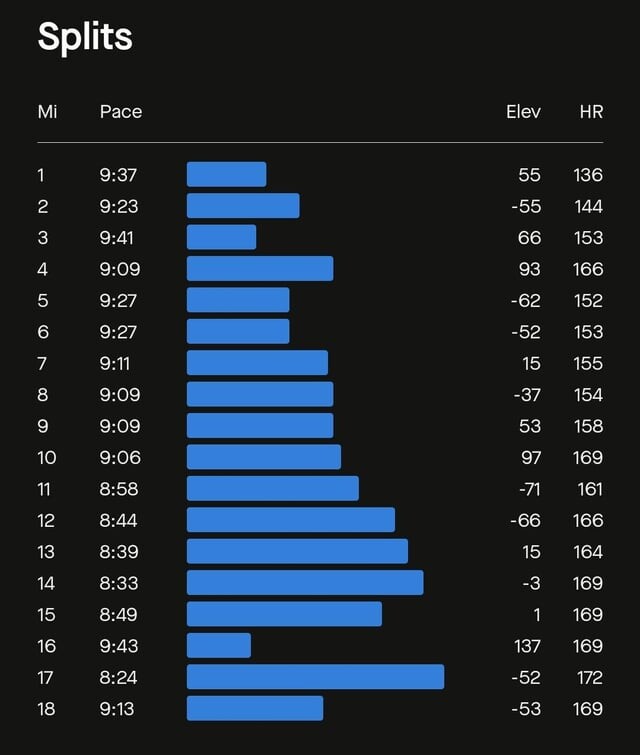
At age 53, Anderson ran a ten-mile race in 59:17 using this principle. In one key workout leading up to the race, he ran six one-mile repeats, starting with a 5:47 and finishing with a 5:17—each one faster than the last. His rest periods ranged from three to five minutes, enough to regroup but not fully recover. Once he felt ready to run faster, he did.
Even if you don’t run negative splits during a race, training this way helps build the strength, stamina, and mental focus needed to finish fast and stay in control.
How to Train for Negative Splits
Want to incorporate this strategy into your training? Try the following:
• Progression Runs: Start easy and increase pace gradually every few miles.
• Tempo Finishes: End long runs with 2–3 miles at goal pace or faster.
• Split Tempos: Run the second half of a tempo run faster than the first.
• Step-Up Intervals: Run repeats with each one faster than the last to simulate race finish intensity.
Pacing on Race Day
A successful negative split starts with patience. Know your goal pace and run slightly slower for the first few miles. Let others surge ahead—your time will come. For the marathon, aim to reach the halfway point feeling strong and confident. Then turn it up.
Final Thoughts
Negative splits aren’t just a strategy—they’re a mindset. With smart training, steady pacing, and progressive workouts, you’ll not only race faster—you’ll finish stronger. Whether you’re chasing a new PR or just want to run your best race yet, mastering this approach can take your performance to the next level.
by Boris Baron
Login to leave a comment
Tigst Assefa Shatters Women’s-Only World Record at the 2025 London Marathon
History was made on the streets of London this morning. Ethiopia’s Tigst Assefa surged to victory at the 2025 TCS London Marathon, setting a new women’s-only world record with an unofficial time of 2:15:50.
With cool, crisp conditions early in the race, Assefa quickly established her dominance. Pulling away from her rivals by the halfway point, she maintained a strong and steady pace through the final miles. In the closing stages, it was clear the race against the clock had begun — and she delivered in spectacular fashion, crossing the finish line with a commanding lead of over a minute ahead of second-place Joyciline Jepkosgei.
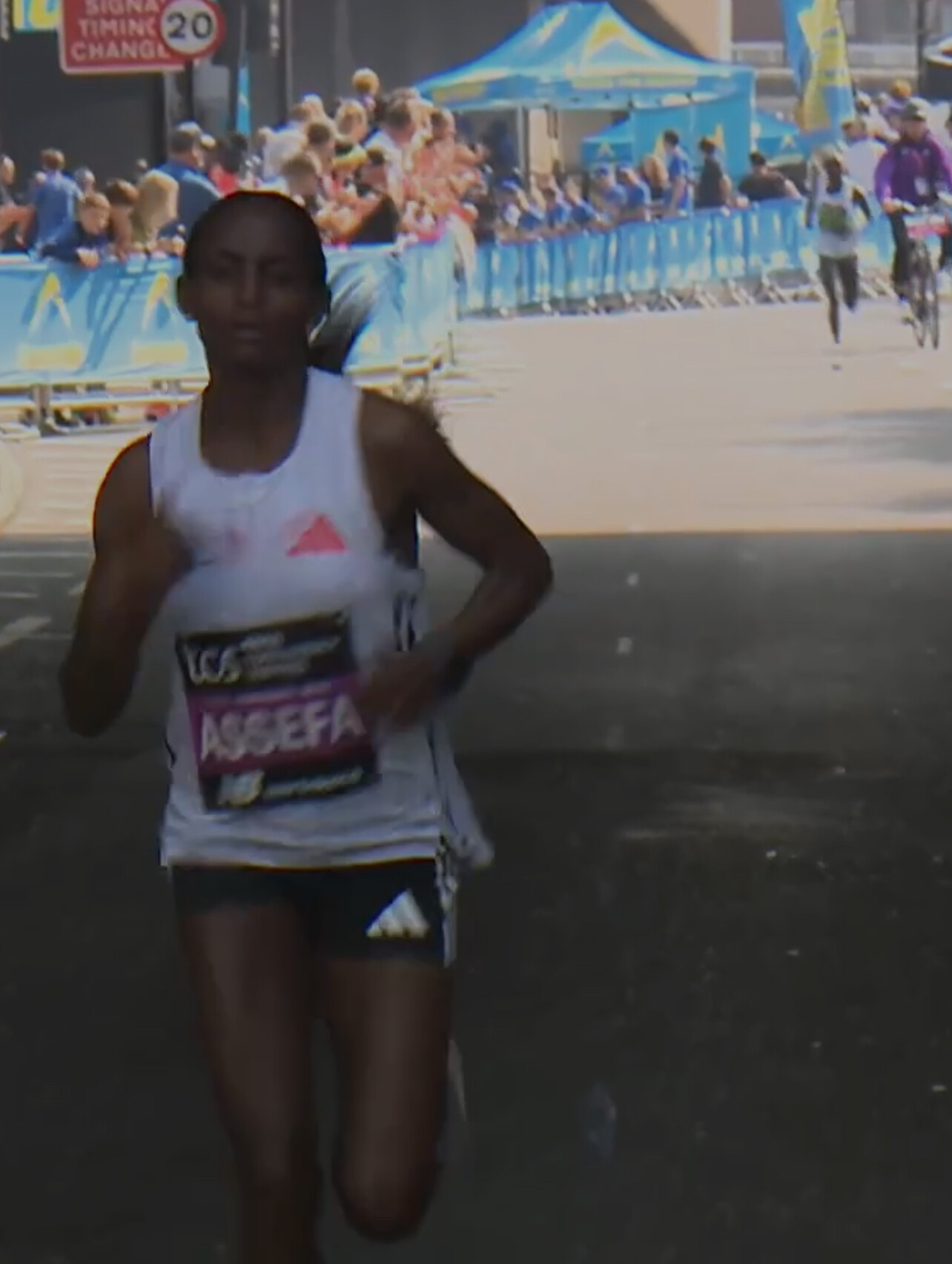
The previous women’s-only world record was held by Britain’s Paula Radcliffe, whose 2:17:01 mark from London in 2005 had stood for two decades. Assefa’s breakthrough performance, pending official ratification, trims over a minute from that legendary time.
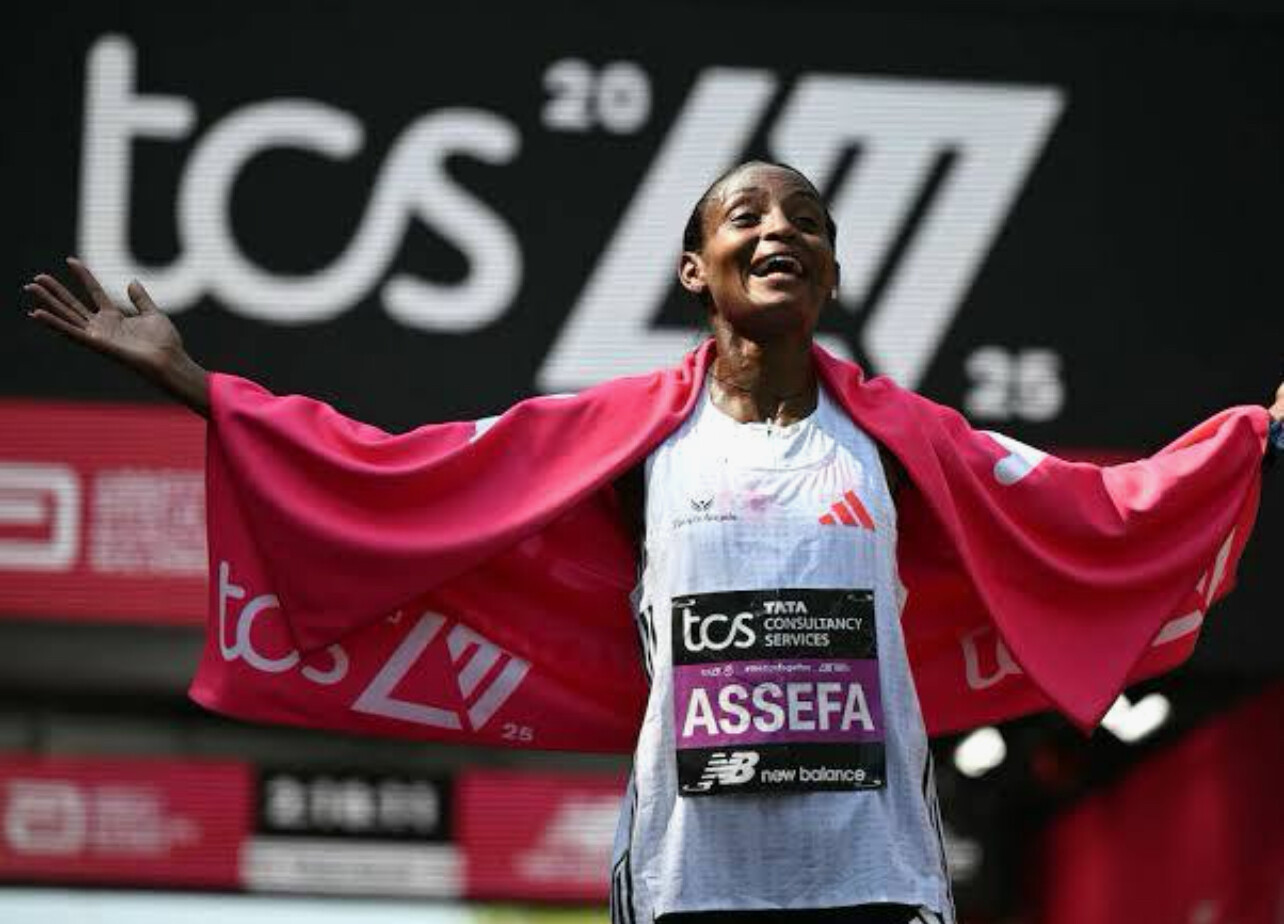
Tigst Assefa had already stunned the running world with her mixed-race world record of 2:11:53 set in Berlin in 2023. Today, she confirmed her place among the all-time greats by dominating a race staged without male pacemakers, underlining her incredible solo strength.
Assefa’s record run headlined what has already become one of the most memorable editions of the London Marathon, with over 56,000 participants and perfect spring weather creating an electric atmosphere.
Paula Radcliffe posted "That was a phenomenal race so hats off to Tigst Assefa for being brave enough to go out in the pace she did!
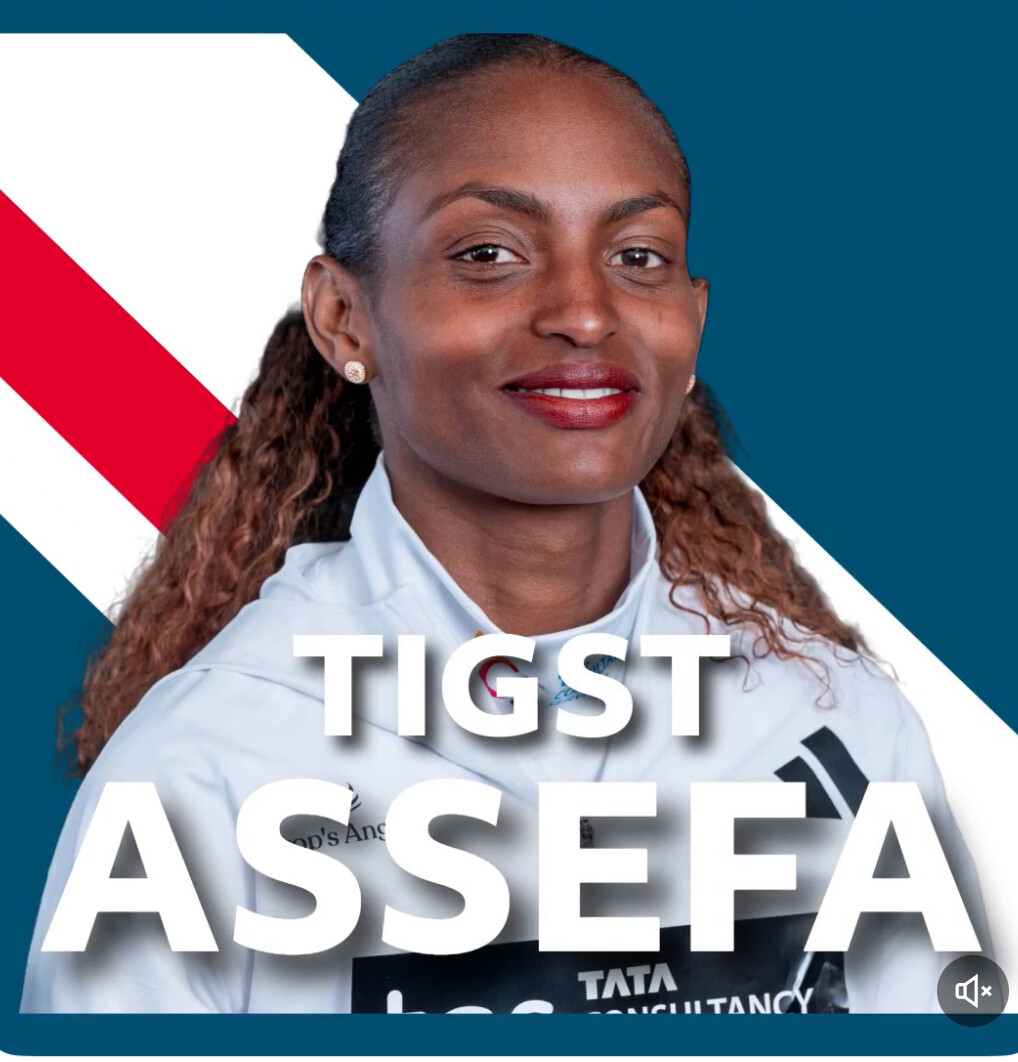
The manner in which she lifted herself to get across the line as well.
You can see how much it means to her. It's more to build on for her moving forward."
Eilish McColgan picks up the pace as she comes across the line in 02:24:25 for eighth place.
She's tired on her marathon debut but has done one thing she wanted - beat her mum Liz's best time. Liz McColgan won here in 1996.
A decent effort for a first attempt.
Top 13 Women’s Elite Finishers
1. Tigst Assefa (ETH) – 2:15:50
2. Joyciline Jepkosgei (KEN) – 2:18:44
3. Sifan Hassan (NED) – 2:19:00
4. Haven Hailu Desse (ETH) – 2:19:17
5. Vivian Cheruiyot (KEN) – 2:22:32
6. Stella Chesang (UGA) – 2:22:42
7. Sofiia Yaremchuk (ITA) – 2:23:14
8. Eilish McColgan (GBR) – 2:24:25
9. Rose Harvey (GBR) – 2:25:01
10. Susanna Sullivan (USA) – 2:29:30
11. Phily Bowden (GBR) – 2:30:28
12. Molly Bookmyer (USA) – 2:32:31
13. Holly Archer (GBR) – 2:39:45
Ethiopia’s Tigst Assefa delivered a historic performance, setting a new women-only world record with a time of 2:15:50. She broke away from the pack after the 30-kilometer mark and maintained her lead to the finish line.
Kenya’s Joyciline Jepkosgei secured second place with a strong finish at 2:18:44, while the Netherlands’ Sifan Hassan completed the podium in third with a time of 2:19:00.
Notably, Great Britain’s Eilish McColgan finished eighth, setting a new Scottish marathon record with her time of 2:24:25.
by Boris Baron
Login to leave a comment
Brigid Kosgei and Amos Kipruto Lead the Deepest Fields Ever at Haspa Marathon Hamburg
European star Karoline Grovdal targets historic debut
The 39th edition of the Haspa Marathon Hamburg on Sunday promises to be the fastest and most competitive in the event’s history. Headlining the men’s race are Kenya’s Amos Kipruto and Ethiopia’s Kinde Atanaw, both with personal bests under 2:04. Meanwhile, former women’s world record holder Brigid Kosgei leads a stellar women’s lineup, becoming the fastest woman ever to start in Hamburg.
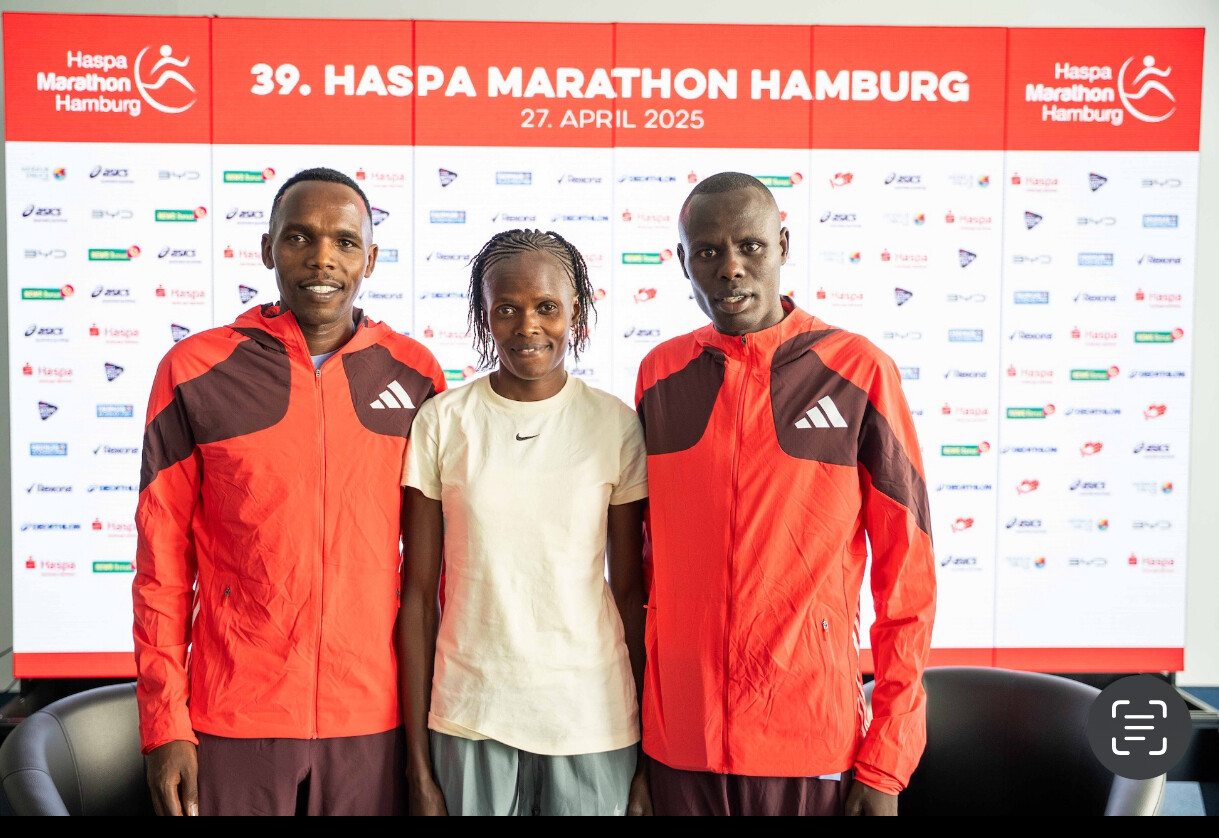
A total of 15,000 runners have entered Germany’s biggest spring marathon, with 38,000 participants across all weekend events—setting a new record. “We are experiencing another running boom, and our elite fields are stronger than ever,” said Chief Organiser Frank Thaleiser.
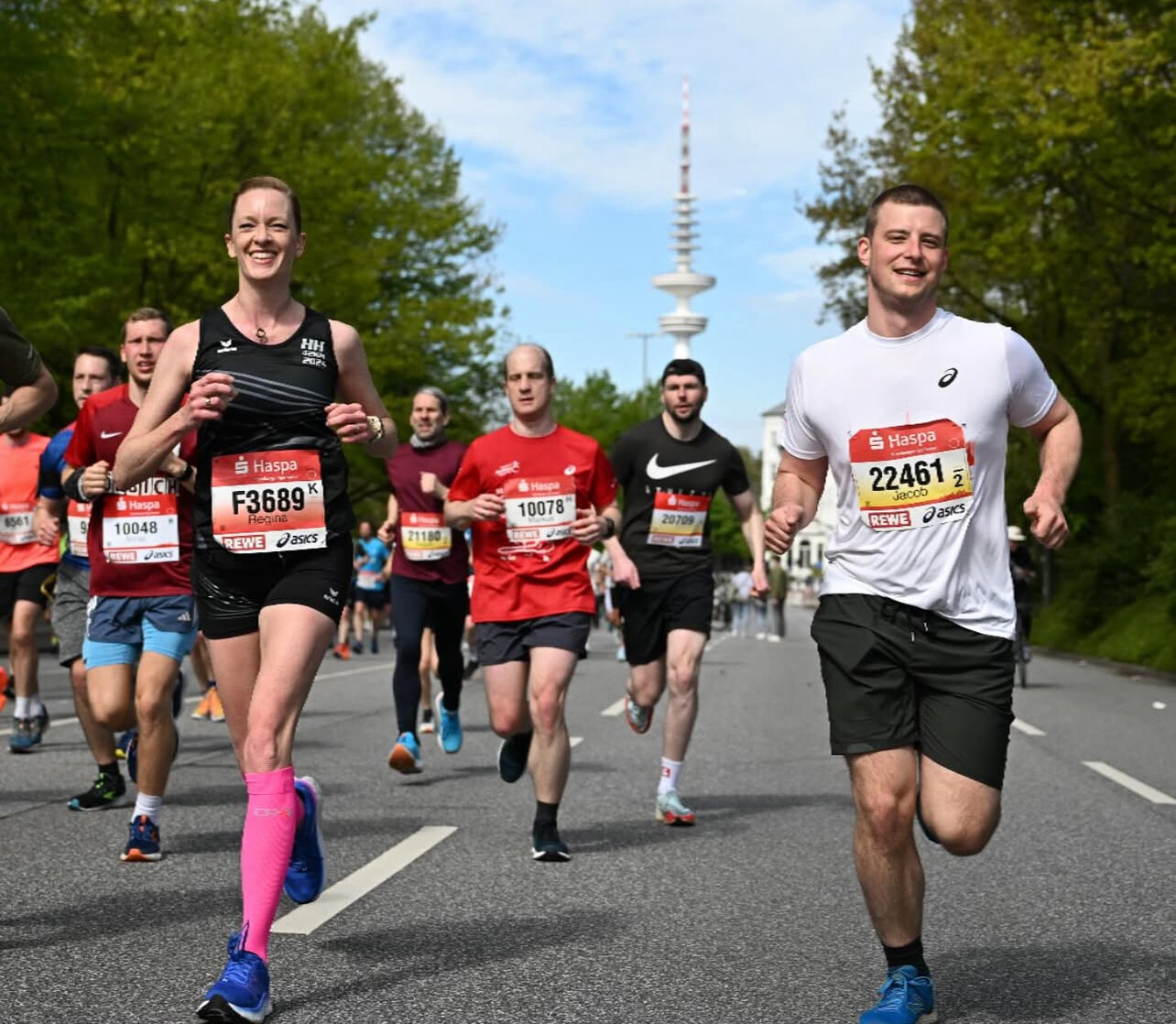
With near-perfect weather conditions forecasted, fast times are expected. The men’s course record of 2:04:09, set by Bernard Koech in 2023, could be under threat, with the potential for Hamburg’s first sub-2:04 performance.
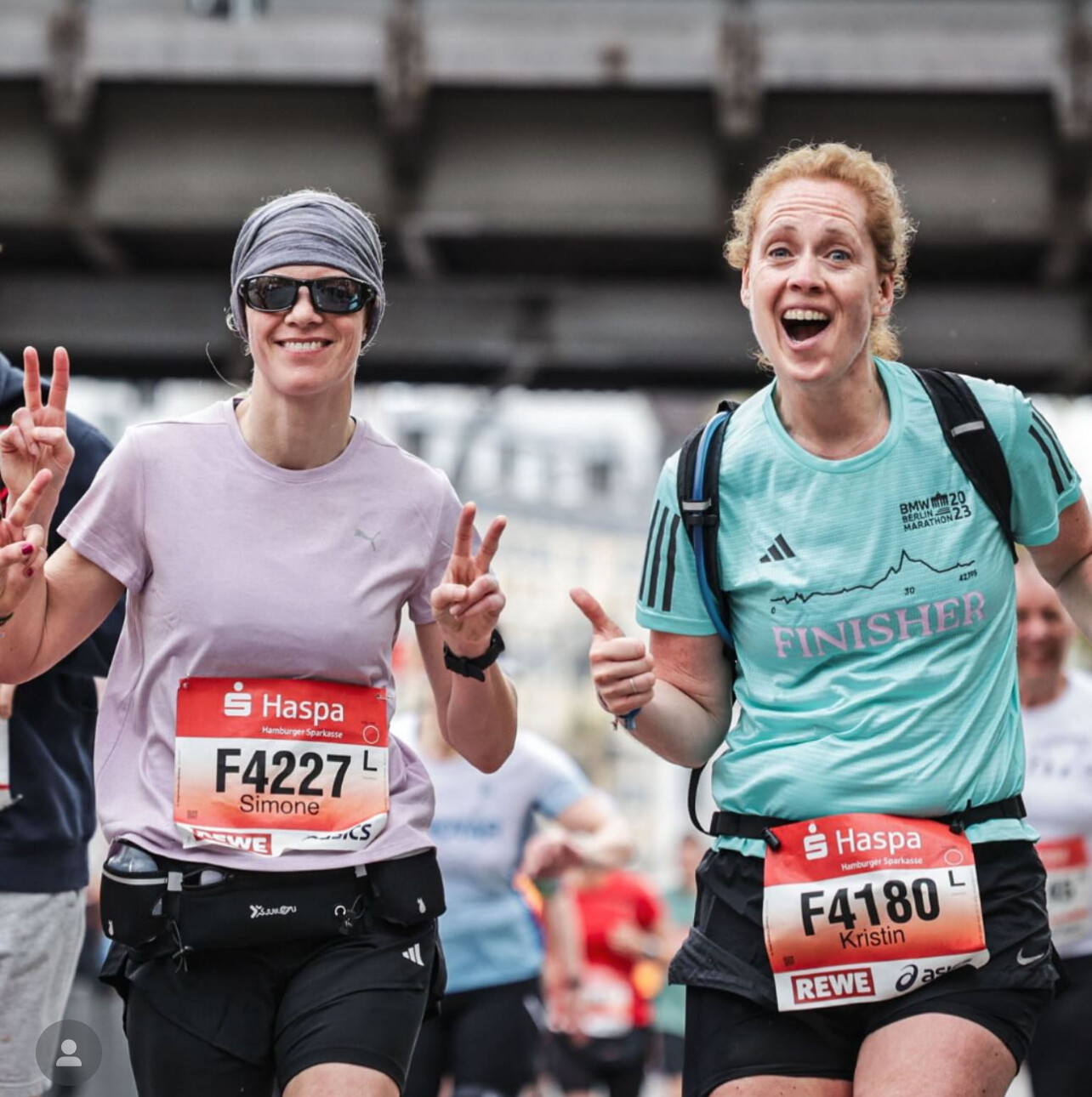
Amos Kipruto, who ran a personal best of 2:03:13 when finishing second behind Eliud Kipchoge in Tokyo 2022, is focused on running fast. “If I had the choice, a personal best would mean more to me than victory,” said Kipruto at the pre-race press conference. He’ll be joined by Kinde Atanaw (2:03:51), Tsegaye Getachew (2:04:49), and Philemon Kiplimo (2:04:56) in chasing the record. Kiplimo, who finished third in Hamburg last year, knows the course well and is aiming for an aggressive second half after a planned 62:00 opening.
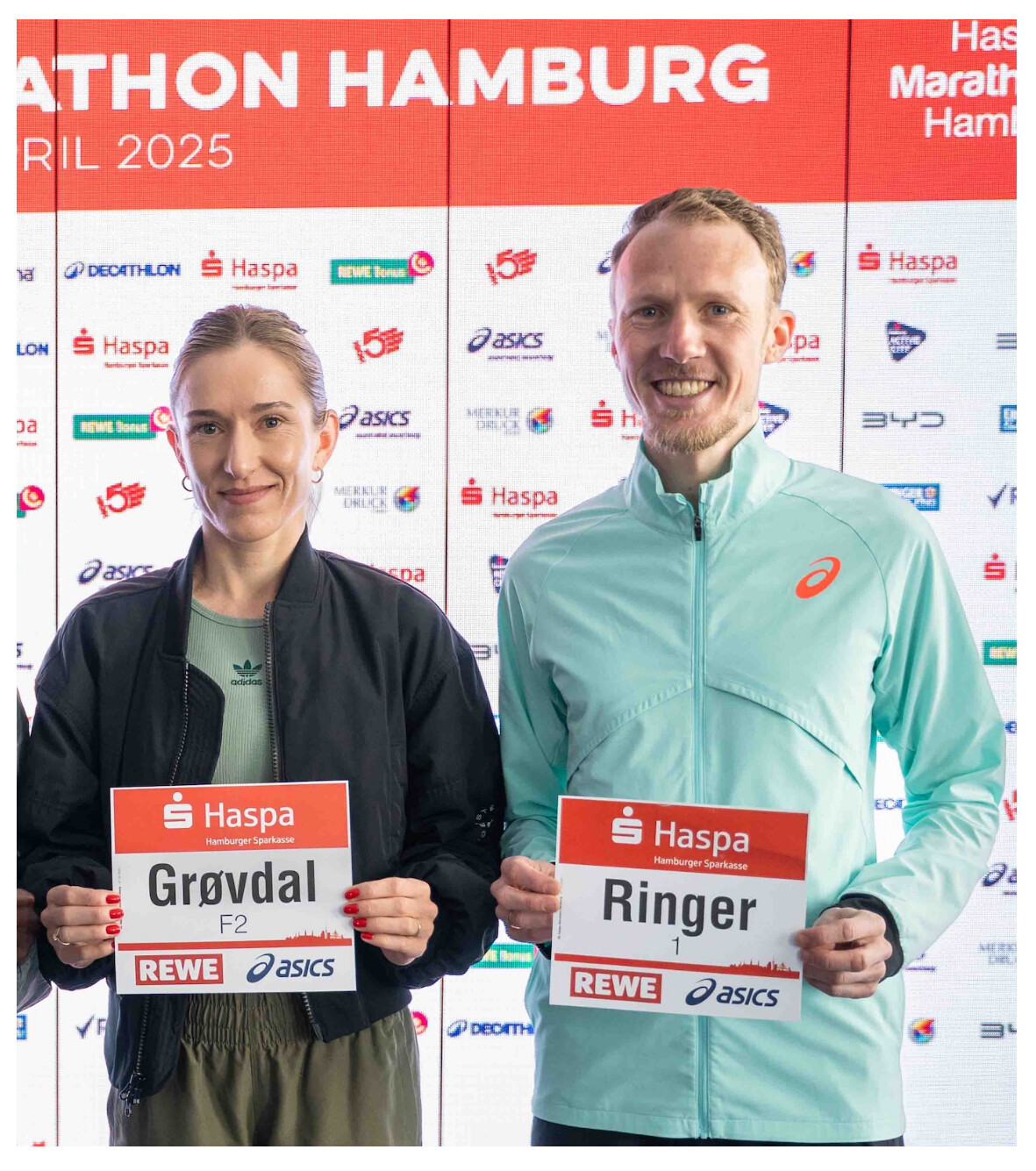
Germany’s top hope is Richard Ringer, the 2022 European marathon champion, who recently improved his personal best to 2:05:46. “I want to improve my Hamburg result from last year and aim to run under 2:07:00,” said Ringer, who also ran a new half marathon PB of 60:51 in Berlin this spring.
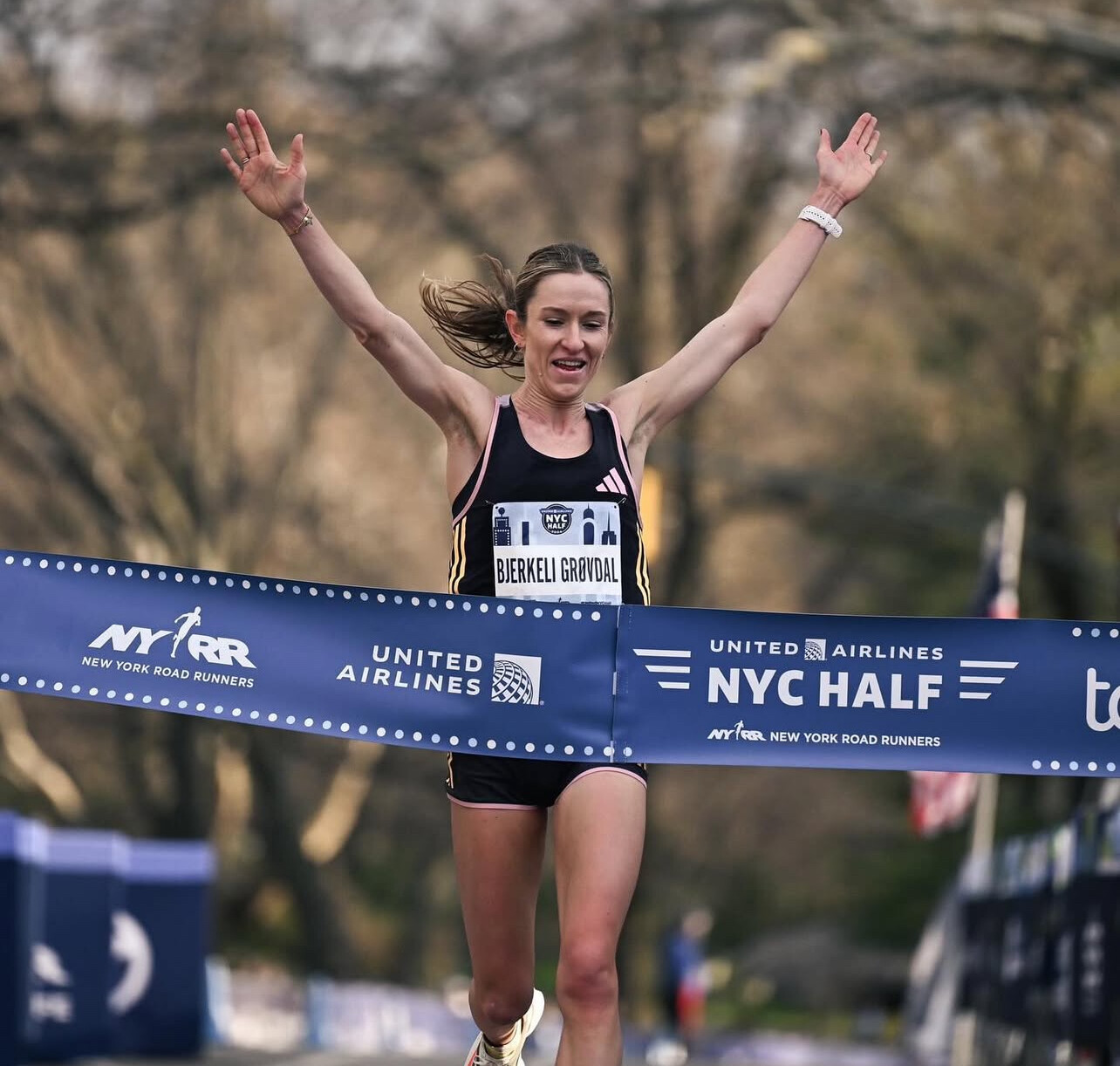
On the women’s side, Brigid Kosgei is back after battling injury, having last raced at the 2023 London Marathon where she clocked 2:19:02. Kosgei, who broke Paula Radcliffe’s long-standing world record with her 2:14:04 performance in Chicago 2019, is confident: “I am fit now and excited to run a good race in Hamburg.”
The women’s course record of 2:17:23, set by Ethiopia’s Yalemzerf Yehualaw in 2022, will be tough to beat, but with Kosgei, Ethiopia’s Workenesh Edesa (2:18:51), and rising star Sichala Kumeshi (2:20:42) in the field, a sub-2:20 finish is very possible. Edesa recently won in Osaka with 2:21:00 and is aiming to go faster, while Kumeshi is coming off a strong victory in Houston under tough conditions.
A major European storyline is Norway’s Karoline Grovdal, who will make her marathon debut. Grovdal, a multiple European Champion and last year’s half marathon gold medalist in Rome, is targeting Ingrid Kristiansen’s legendary Norwegian record of 2:21:06—set in London back in 1985 when it was a world record.
Elite Field Highlights
Men:
Amos Kipruto (KEN) – 2:03:13
Kinde Atanaw (ETH) – 2:03:51
Tsegaye Getachew (ETH) – 2:04:49
Philemon Kiplimo (KEN) – 2:04:56
Kebede Tulu (ETH) – 2:05:19
Goitom Kifle (ERI) – 2:05:28
Richard Ringer (GER) – 2:05:46
Others include Awet Habte (ERI, 2:06:25), Felix Kibitok (KEN, 2:06:28), and Julien Wanders (SUI, 2:11:52)
Women:
Brigid Kosgei (KEN) – 2:14:04
Workenesh Edesa (ETH) – 2:18:51
Etagegn Woldu (ETH) – 2:20:03
Sichala Kumeshi (ETH) – 2:20:42
Karoline Grovdal (NOR) – Marathon Debut
Others include Shitaye Eshete (BRN, 2:21:33) and Natasha Cockram (GBR, 2:26:14)
by Race News Service with Boris Baron
Login to leave a comment
Haspa Marathon Hamburg
The HASPA MARATHON HAMBURG is Germany’s biggest spring marathon and since 1986 the first one to paint the blue line on the roads. Hamburcourse record is fast (2:05:30), the metropolitan city (1.8 million residents) lets the euphoric atmosphere spill over and carry you to the finish. Make this experience first hand and follow the Blue Line....
more...Paula Radcliffe’s Daughter to Run London Marathon After Beating Cancer
This year’s TCS London Marathon will be especially poignant for British running legend Paula Radcliffe—not because she’s racing, but because her daughter is.
Now 51, Radcliffe will be on the sidelines as her 18-year-old daughter Isla runs her first marathon, raising money and awareness for Children with Cancer UK, the charity that supported her through one of the most difficult times in her life.
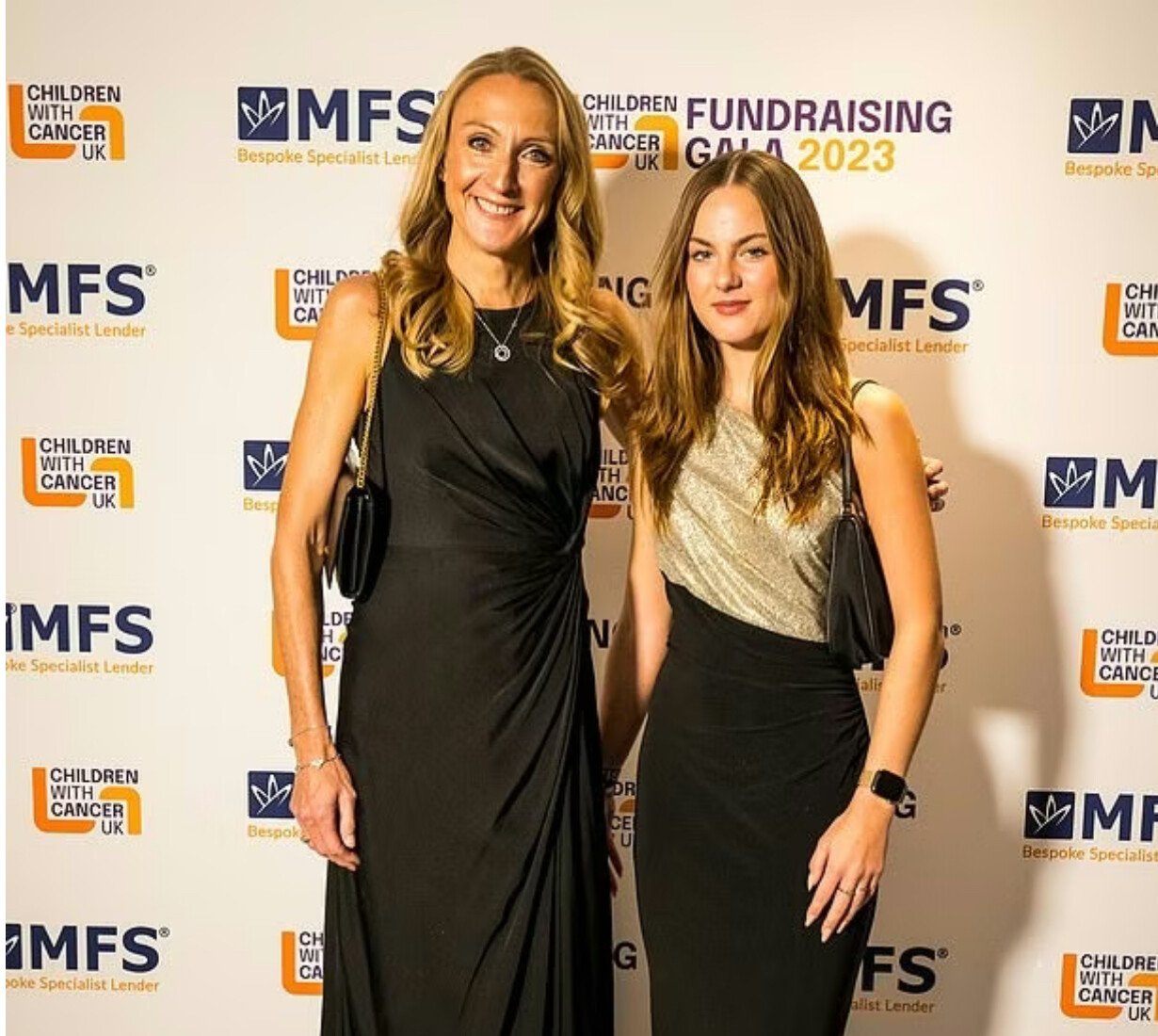
Isla was diagnosed with a rare form of ovarian cancer at just 13 years old. “I knew something was wrong when she started getting chronic stomach aches and was bleeding,” Radcliffe told Radio Times. The diagnosis was a shock for the entire family and began a long and challenging journey.
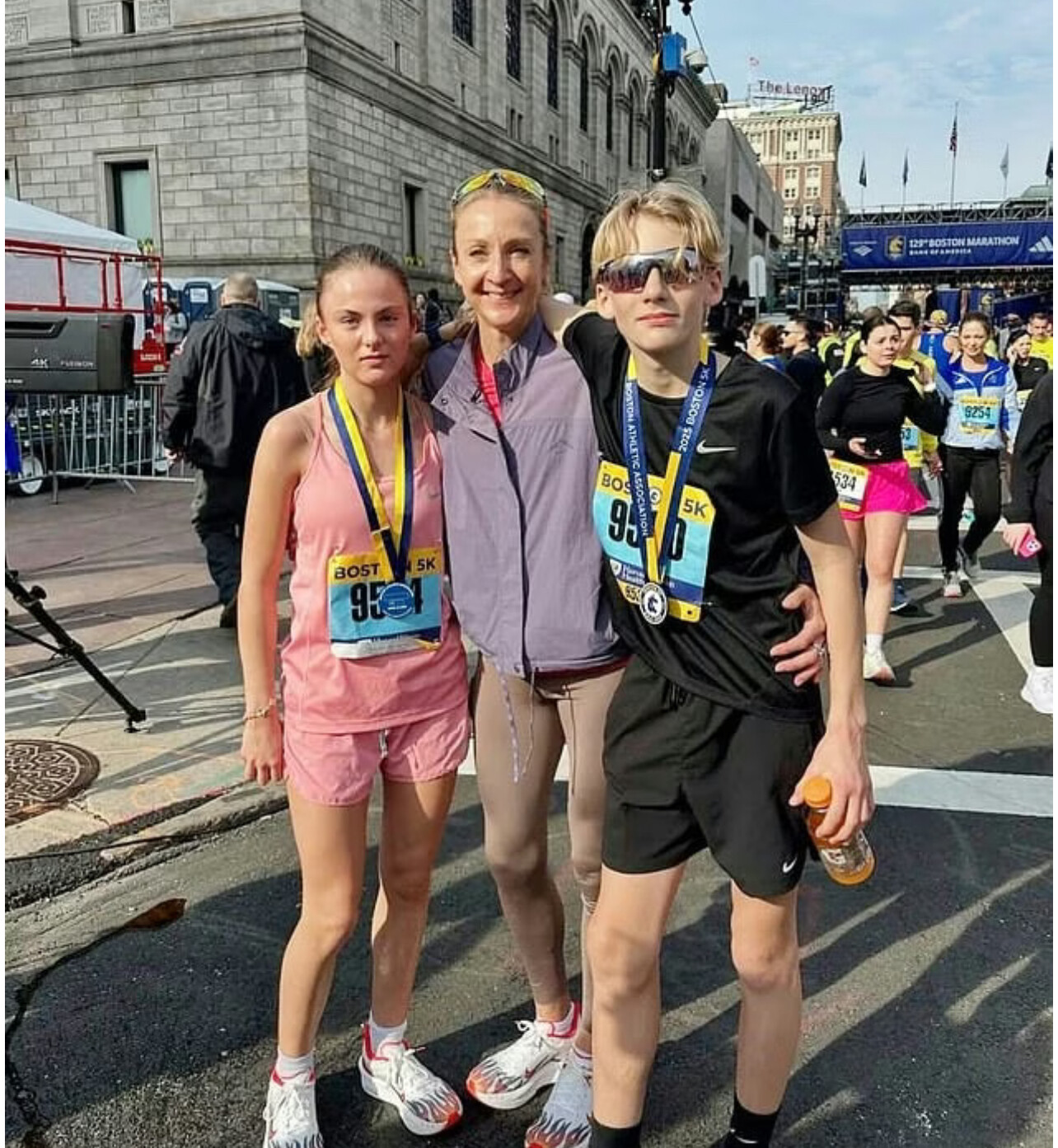
Having now fully recovered, Isla is not only healthy but strong—and ready to take on the 26.2 miles through London on April 27. She’ll be running in support of the very cause that helped her through treatment.
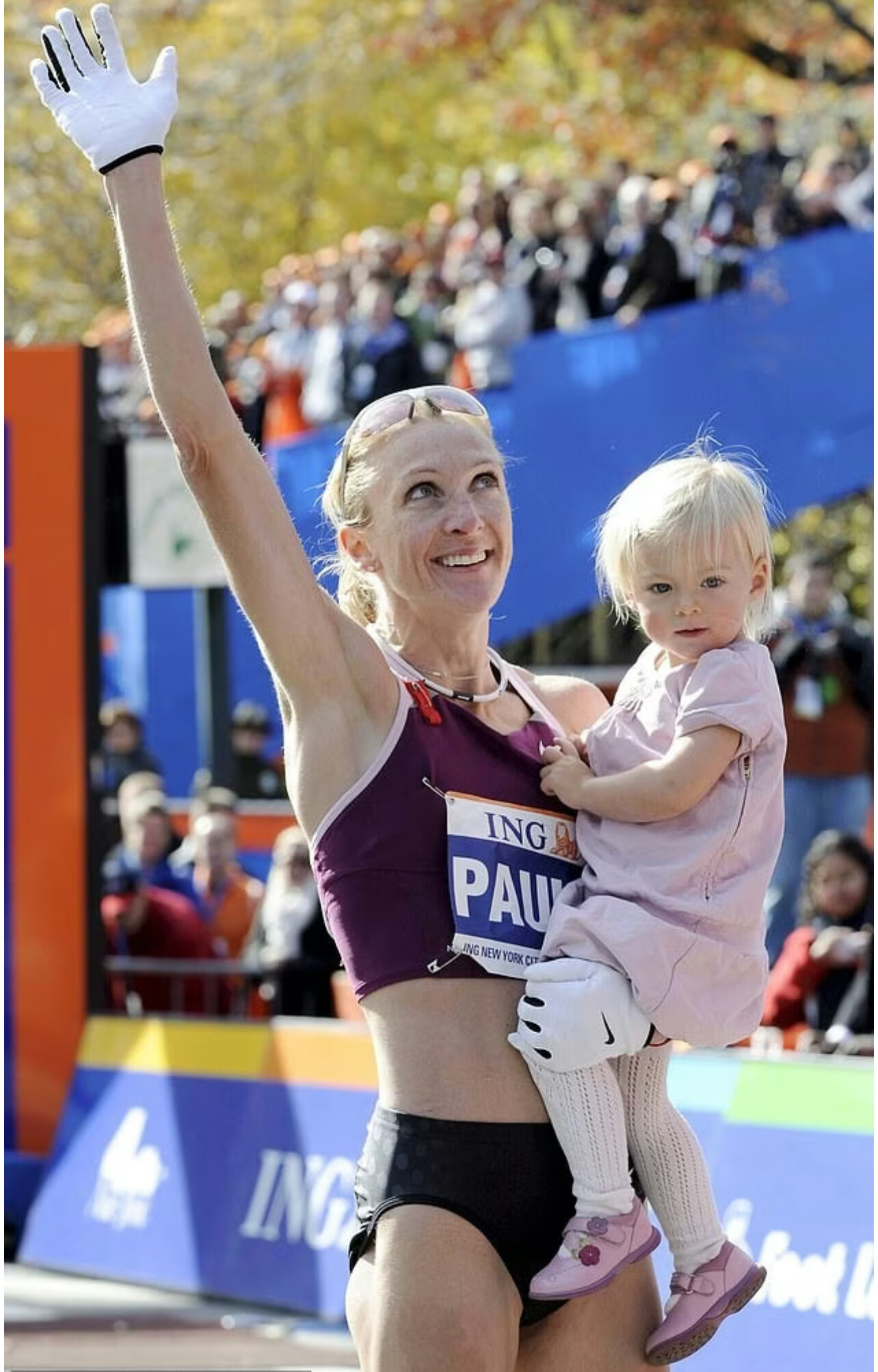
Radcliffe, who broke the marathon world record in 2003 with her iconic 2:15:25 in London, has returned to marathoning herself. She’s also been chronicling her journey—and helping others train—through her new podcast series Paula’s Marathon Run Club, also sponsored by Children with Cancer UK.
“This is going to be a really emotional year,” Radcliffe said. “To see Isla cross the finish line will mean more than any time I’ve crossed it myself.”
More than a race, the moment will represent survival, strength, and the bond between a mother and daughter who have endured—and overcome—a terrifying ordeal.
by Boris Baron
Login to leave a comment
Paula Radcliffe Returns to Boston and Claims Age Group Victory with Powerful Symbolism
Paula Radcliffe, one of the most iconic names in marathon history, made her long-awaited Boston Marathon debut on April 21, 2025—and she didn’t just run it, she owned it. Competing in the female 50–54 division, the 50-year-old Radcliffe finished in 2:53:44, placing first out of 1,336 runners in her age group and nearly breaking into the top 150 women overall.
Her strong performance came just weeks after finishing the Tokyo Marathon—making this effort across Boston’s rolling hills even more impressive, especially considering the long-term foot injury she's been managing.
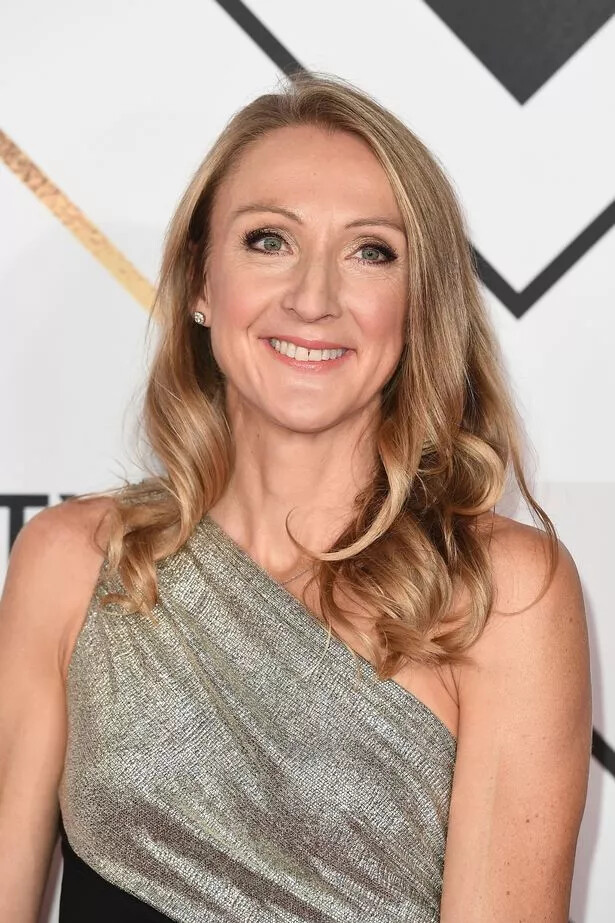
Strong from the Start
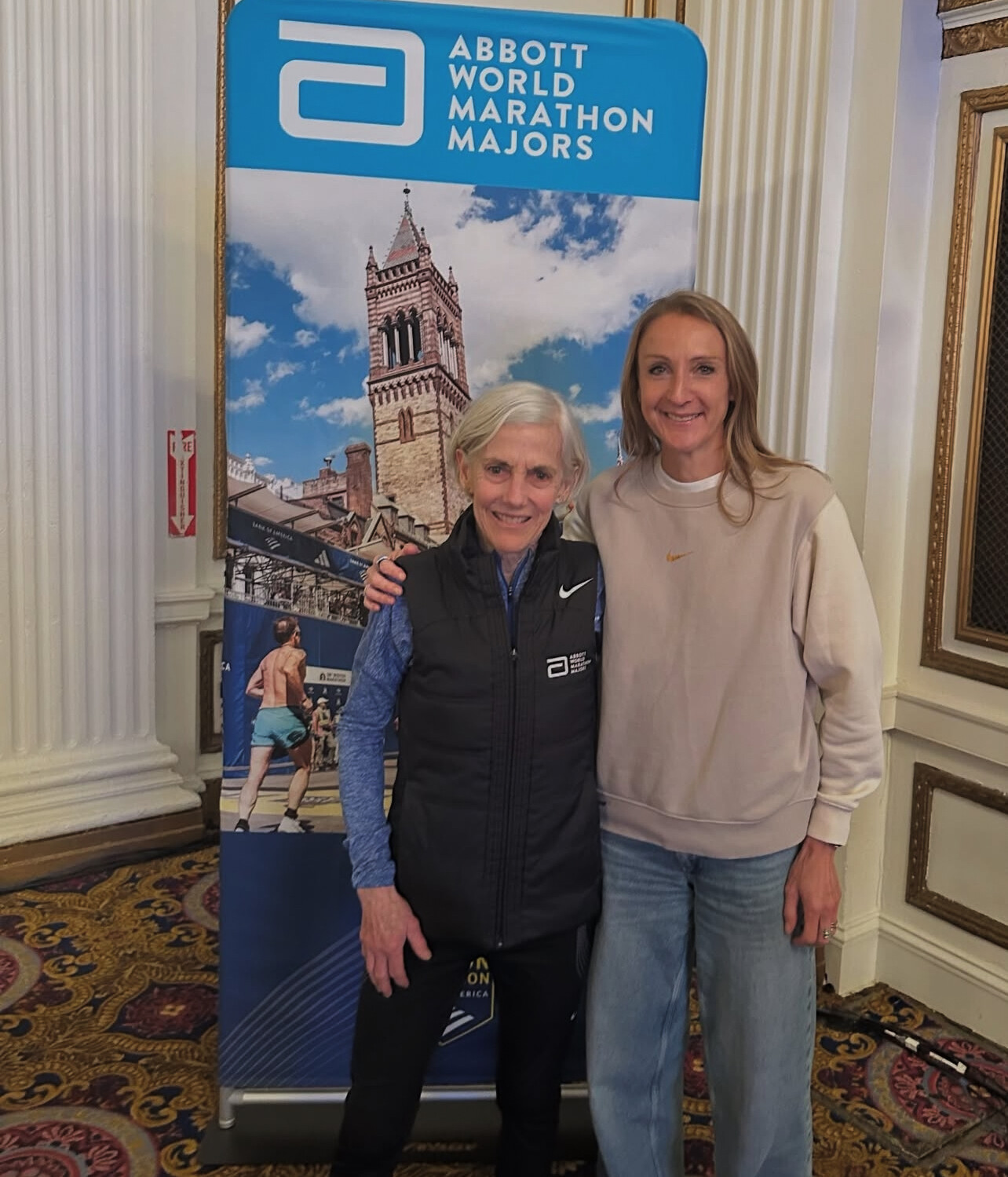
Radcliffe got out quickly, clocking 38:00 flat for her opening 10K and reaching the half marathon mark in 1:23:15. Despite the physical demands of racing two marathons in less than two months, she maintained her momentum all the way to Boylston Street.
Her finishing time placed her comfortably atop her age division, showing the endurance and grit that have defined her career for decades.
Bib #215: A Tribute to History
Radcliffe raced wearing bib number 215, a subtle yet powerful tribute to her former world record time of 2:15:25, set at the 2003 London Marathon—a time that still stands as one of the most iconic performances in women’s marathon history.
For context, this year’s Boston winner, Sharon Lokedi of Kenya, ran a brilliant 2:17:22, breaking the previous course record of 2:19:59. Yet, Lokedi’s winning time still sits nearly two minutes behind Radcliffe’s 2003 world best—a reminder of the remarkable standard she set over two decades ago.
A Dream Fulfilled
Despite a decorated marathon career, Radcliffe had never run Boston before this year. With the London Marathon traditionally scheduled so close to Boston, the opportunity had always eluded her—until now.
“This felt like a full circle moment,” Radcliffe said. “Boston has always been a race I wanted to do, and to finally be here, wearing 215, was incredibly meaningful.”
Still Inspiring the Running World
While Radcliffe may no longer be chasing world records, her ability to compete at a high level at age 50 is nothing short of inspirational.
by Boris Baron
Login to leave a comment
Boston Legends Reunite Ahead of 2025 Boston Marathon
Three legendary figures in the running world gathered in Boston this weekend ahead of the 129th Boston Marathon set for Monday: Paula Radcliffe, Joan Benoit Samuelson, and Jack Waitz, husband of the late Grete Waitz.
The photo, taken inside the grand Fairmont Copley Plaza Hotel, captures more than just a moment—it reflects the legacy of marathon greatness. Radcliffe, the former world record holder in the marathon; Samuelson, the 1984 Olympic gold medalist; and Jack Waitz, who has carried forward Grete’s remarkable story as a Boston champion and nine-time NYC Marathon winner.
“I am proud to say I know all three of these amazing people,” says My Best Runs editor Bob Anderson, who fulfilled a lifelong dream by running the Boston Marathon in 2013 at age 65. “As publisher of Runner’s World, I organized our first Boston open house at the Copley Plaza in the late 1970s. Thousands gathered—it was a few years before expos started being held before races. This photo brings back so many memories.”
As Boston prepares for Marathon Monday, this reunion of icons reminds us that the marathon is more than a race—it’s a celebration of tradition, community, and the pioneers who helped shape the sport.
by Boris Baron
Login to leave a comment
Paula Radcliffe Returns to Marathon Running, Completes Tokyo Marathon
On March 2, 2025, British marathon legend Paula Radcliffe made a remarkable return to marathon running, completing the Tokyo Marathon in 2:57:26 at the age of 51. This race marked her first marathon in a decade and brought her closer to achieving the prestigious Six Star Medal, awarded to those who complete all six World Marathon Majors.
Radcliffe’s illustrious career includes three victories each at the London and New York Marathons, as well as a win at the Chicago Marathon. Her world record time of 2:15:25, set at the 2003 London Marathon, stood unchallenged for 16 years and remains the British record.
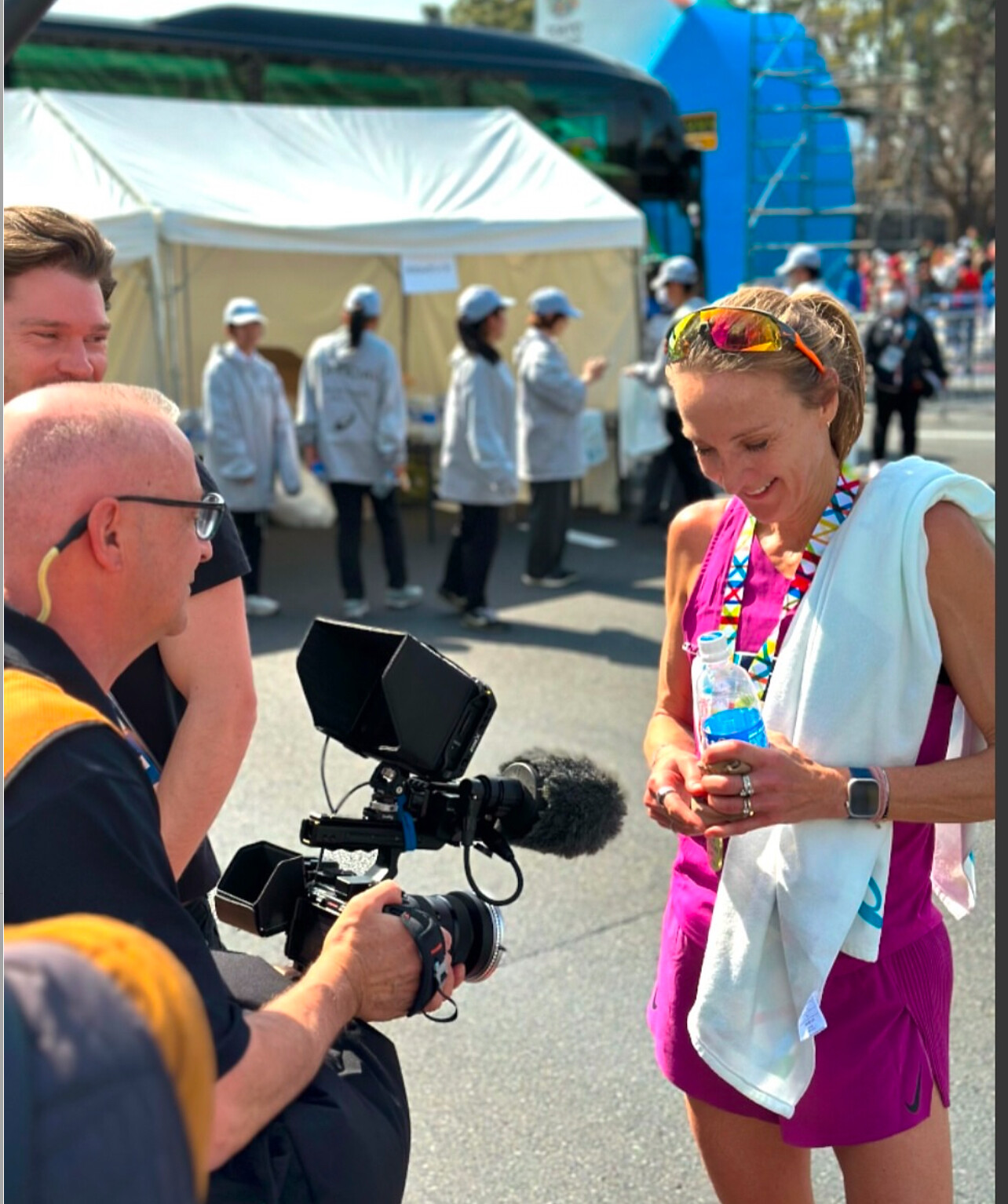
Despite a long-term foot injury, Radcliffe approached the Tokyo Marathon without specific time goals, focusing instead on participation and the experience. She expressed excitement about joining the camaraderie of fellow runners, stating, “I think the camaraderie is almost bigger and better in the middle of the race than it is at the [front] in the elite race.”
During the race, Radcliffe encountered some difficulties, including issues with hydration due to the heat and challenges with drinking from paper cups. She humorously noted, “I was even looking at the elite bottles and wondering if I should just take one!” Despite these challenges, she persevered, motivated by the thought, “I’m not coming back here again!”
With Tokyo completed, Radcliffe now sets her sights on the Boston Marathon, scheduled for April. A successful finish there will earn her the Six Star Medal, a testament to her enduring passion and commitment to the sport.
Paula Radcliffe’s return to marathon running serves as an inspiration, demonstrating that dedication and love for the sport transcend age and time.
Login to leave a comment
A Long Run – The Running Documentary That’s Inspiring Runners Everywhere
Some films tell a story. Others ignite a movement. A Long Run does both.
But don’t just take our word for it—here’s what real runners who watched the film had to say:
@no1fibersplicer525"I love this! I’m 49 and I started ‘Couch to 5K’ three weeks ago. I signed up for my first 5K last night. I’m super excited...I’m tired after each run, but even as I run further, it’s the same ‘tired’—I’m adapting! I’m becoming that guy I see on TV. I will run this 5K and I will start calling myself a runner! Thanks for the encouragement!"
@AdventuresomeOutlook"I love hearing stories of people picking up running. Running saved me from a deep depression after getting diagnosed with multiple medical conditions. I picked up running (something I never desired doing), and it’s helped me gain so much confidence and pride in myself..."
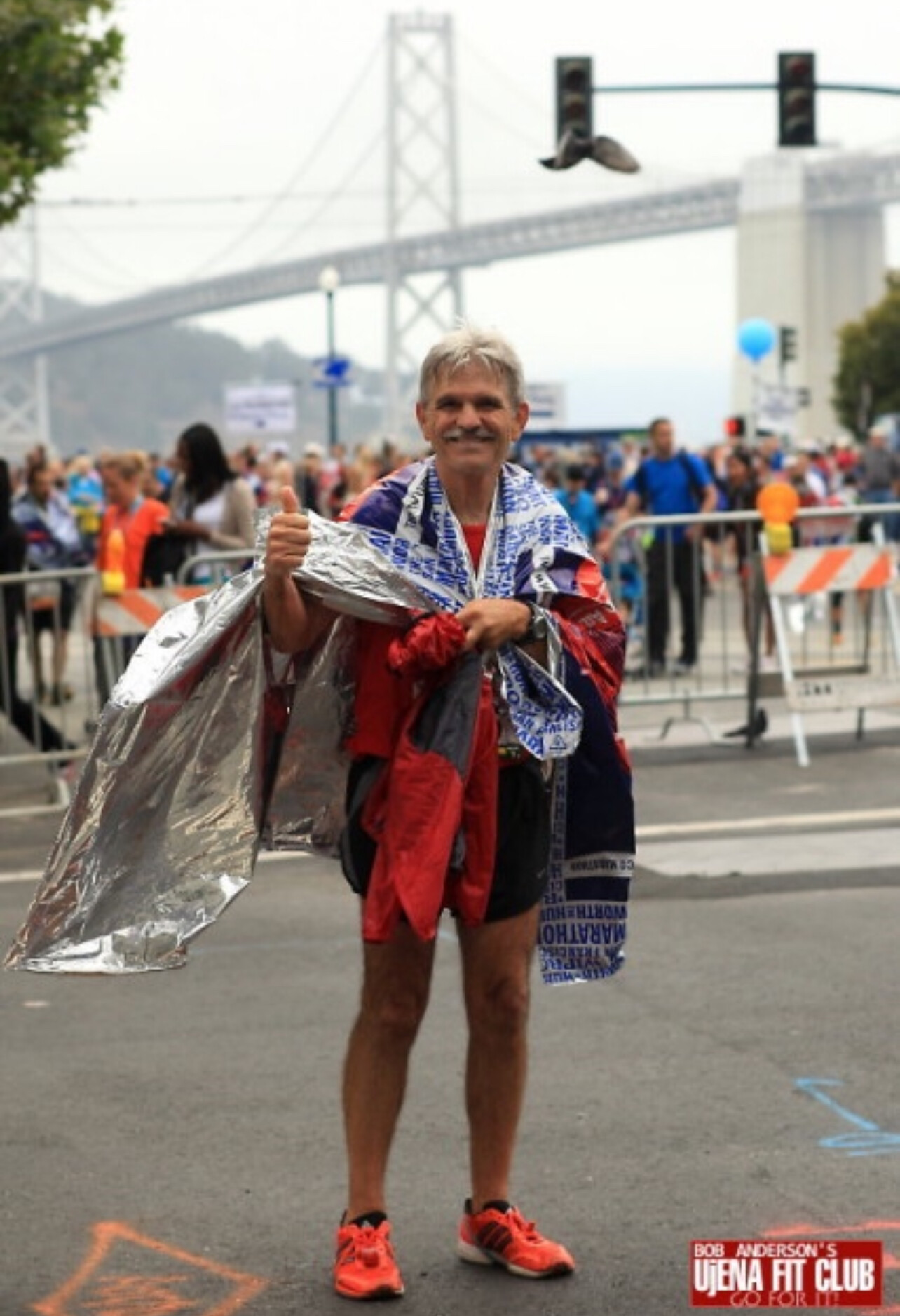
@deldridg"So many life lessons here. Thank you for such a wonderful documentary and for all the inspiration. Tomorrow after dropping the kids off at school, this Sydney dad will be heading out to a gorgeous trail to enjoy running through 10km of views over the Hawkesbury River, endless bird song, and the company of the occasional goanna. On Sunday, the whole family will do it again. I can’t wait!! Cheers and thank you!"
The Man Behind the Journey
The old guy still has it. A runner will always be a runner.
That “old guy” is Bob Anderson, the man who founded Runner’s World magazine at age 17 with just $100 and a typewriter. He built the magazine into a global running institution before selling it to Rodale Press in 1984. But his love for running never faded.
50 years after his first run, Bob took on a bold challenge: run 50 races in one year covering 350 miles at an average pace under 7 minutes per mile—all at the age of 64.
That’s equivalent to a 5:30 pace for a 30-year-old male or a 6:00 pace for a 30-year-old female—elite-level speed at any age.
Could he do it? How would he handle injuries, fatigue, and the mental grind?
A Film Narrated by an Icon
What makes A Long Run even more special is that it’s narrated by actor Sean Astin, best known for his roles in Rudy, The Goonies, and The Lord of the Rings trilogy.
Bob met Sean at one of the races he was staging, and the two immediately bonded over their shared passion for running. Sean, an avid marathoner himself, was the perfect voice to bring Bob’s incredible journey to life, adding emotional depth and energy that captures the heart of the film.
More Than a Personal Challenge—A Tribute to Running
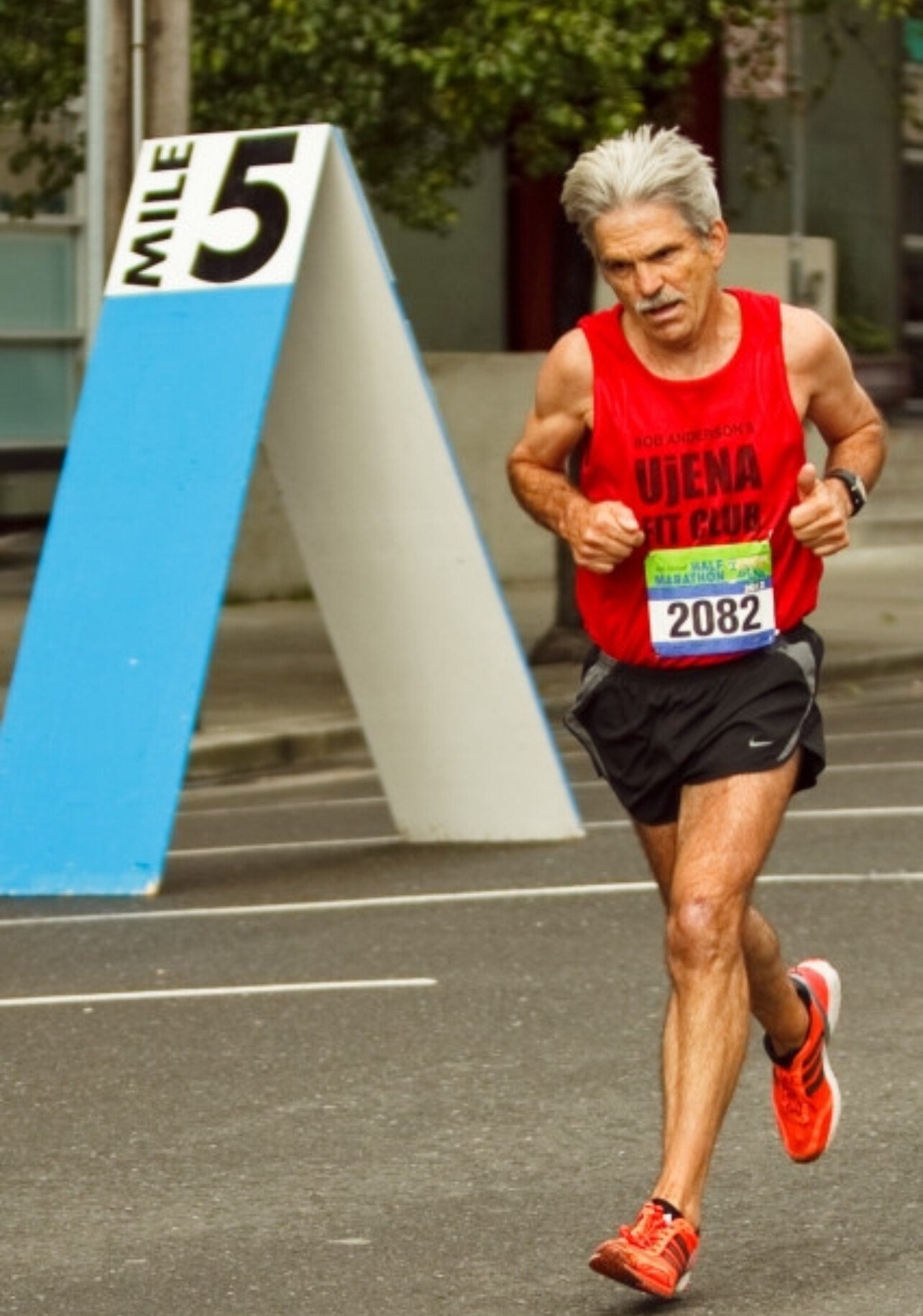
The film isn’t just about Bob. It’s about the sport itself.
The history – A Long Run takes you back to the early days of the running boom, featuring icons like Bill Rodgers, Billy Mills, Paula Radcliffe, Dean Karnazes, and George Hirsch.
Some of the races – Experience the thrill of running through:
Avenue of the Giants – Towering redwoods in California create a breathtaking race backdrop.
San Francisco’s hills – A stunning yet brutal testing ground for runners.
Coastal Fort Bragg – Where the ocean’s rhythm meets the rhythm of the runner.
Run the Parkway Half Marathon (Kansas) – The race near Overland Park, Kansas, where Bob founded Distance Running News, the publication that later became Runner’s World.
Falmouth Road Race (Massachusetts) – One of the most scenic and historic road races on the East Coast.
Kauai Half Marathon (Hawaii) – A September race offering breathtaking ocean and mountain views in paradise.
@angellosmalefakis1321"This was a wonderful film, Bob! Wonderful in so many ways! Good to see that you presented so many icons of the sport of running. I was with Runner’s World when it was young. There in NYC when the marathon was at its infancy. We still miss Fred. Miss Greta. Wonderful film in so many ways! I love it! I am 65 and still running—now winning masters races!"
Why You Should Watch A Long Run
If you’ve ever laced up your shoes for a jog, if you’ve ever wondered how far you could go, or if you just need a spark to get moving again, this film is for you.
With over 342,000 views, A Long Run has inspired runners around the world. The best part? It’s completely free to watch!
@mpgrewal00"Bob loves running. Bob lives running. Good work, Bob."
@shamelesssheamis545"I’m 35 and started 5 months ago. One day I just got up and ran a mile. It was slooow. But that was it for me. I’m up to running 12 miles now and I cannot wait to see where this goes! Happy running, everyone!"
@barefootbeachrunner9498"Awesome. Inspiring film. Thanks for reminding me why I run!"
Where to Watch
Watch the full film for free on YouTube: A Long Run.
Or visit alongrun.com for more information.
We hope you’ll watch it and let us know what you think. Leave a comment, share your thoughts, and help us reach 500,000 views!
This is your chance to see what happens when passion meets determination. To feel the runner’s high without breaking a sweat. To be inspired by the sport we all love.
Because, as Bob Anderson has proven, a long run never really ends.
by Boris Baron
Login to leave a comment
Eilish McColgan Eyes Paula Radcliffe’s British Marathon Record—But Not on Debut
Eilish McColgan, the reigning Commonwealth Games 10,000m champion, is preparing to take on the marathon distance for the first time in April at the London Marathon. While the 34-year-old has her sights set on eventually breaking Paula Radcliffe’s longstanding British marathon record of 2:15:25, she is clear that it won’t happen on her debut.
“It’s so unrealistic to think I’m going to go in and break Paula Radcliffe’s record on my first attempt,” McColgan admitted. “That’s nonsense. It just isn’t going to happen. But do I think I’m capable of getting down to those times in the future? Absolutely. I wouldn’t be here if I didn’t think I was. But I’m playing more of a long game, and just taking things month by month and year by year rather than trying to rush things.”
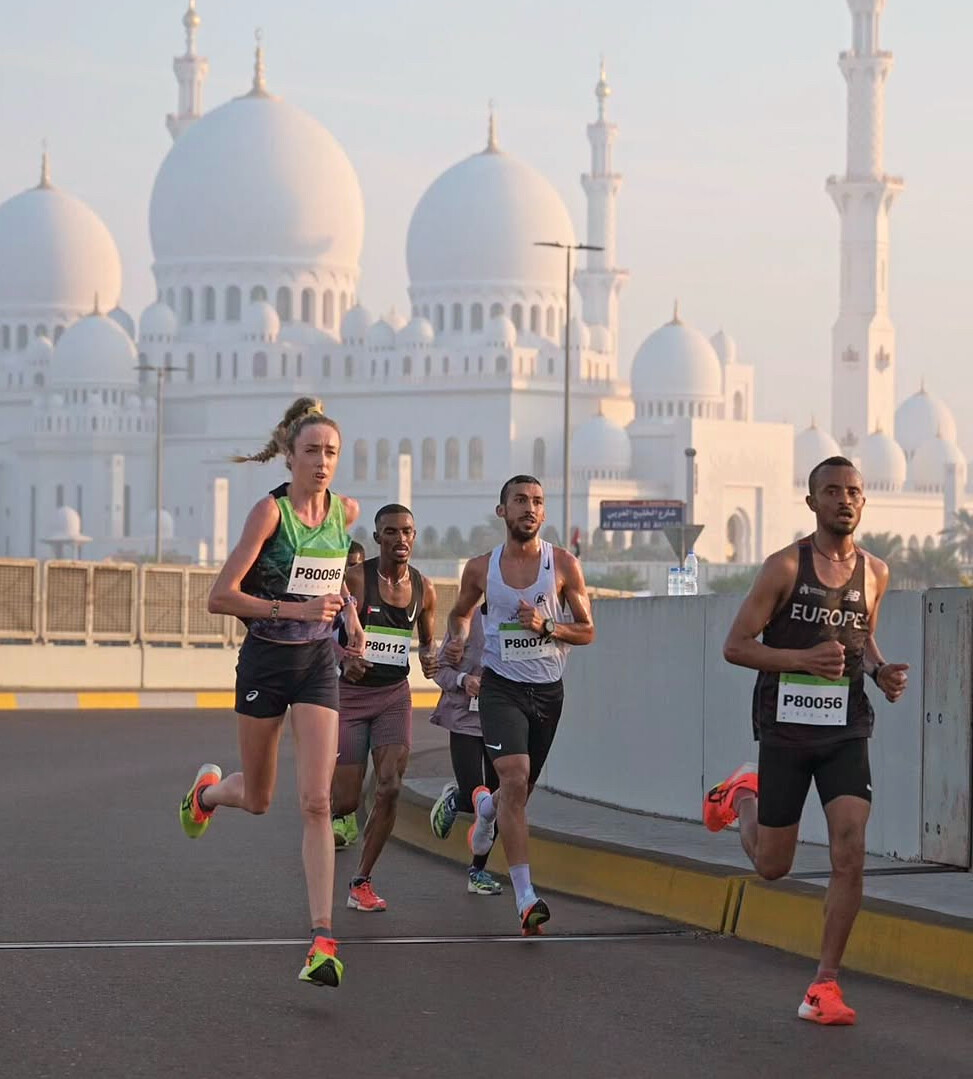
For McColgan, this marathon debut has been a long time coming. She originally planned to run London in 2023, but injuries forced her to withdraw. In hindsight, she believes that rushing her marathon training contributed to the issues that kept her sidelined for nearly six months.
Now, with a more structured approach, she sees this as the start of a new chapter in her career. The transition from elite track racing to the marathon is a challenge that many great distance runners have taken on, and McColgan is determined to build gradually rather than force a record-breaking performance too soon.
A Running Legacy

McColgan’s marathon ambitions are deeply rooted in her family history. Her mother, Liz McColgan, was a world champion over 10,000m in 1991 and a London Marathon winner in 1996. Throughout her career, Liz McColgan was known for her incredible endurance and grit—qualities that Eilish has clearly inherited.
Having her mother as a mentor has been invaluable. Liz has guided Eilish through her development as a long-distance runner, offering both coaching insights and first-hand experience of what it takes to succeed over 26.2 miles. While Eilish has carved out her own path in the sport, her mother’s legacy as a champion marathoner serves as both an inspiration and a benchmark.
“It’s a totally different challenge,” McColgan said. “The marathon is so much more about patience and experience. Having my mum’s advice has been really helpful, especially after last year when I probably rushed into things too quickly. Now, I feel like I’m approaching it the right way.”
Building Toward the Record
Before injury struck, McColgan was in the best shape of her career. She had just shattered Radcliffe’s 21-year-old British 10,000m record and had lowered her own British half marathon mark in Berlin. These performances suggested that she was well on her way to transitioning into the marathon successfully.
Now, after months of careful rebuilding, she believes she has the foundation needed to complete her first 26.2-mile race. But rather than going all-in for a record-breaking debut, McColgan is focused on learning the marathon, understanding the pacing, and building toward future attempts.
“I still think my best years are ahead of me,” she said. “I’ve got a lot more to give in the marathon, but I know I have to respect the distance. This first one is about learning. I want to build from here and put myself in a position to attack fast times in the future.”
While Radcliffe’s 2:15:25 remains one of the most iconic marathon performances in history, McColgan believes that with time, experience, and the right training, she can one day challenge that mark.
For now, her London debut is just the beginning of that journey. With her mother’s guidance, a more measured approach, and a career built on resilience, McColgan is well on her way to becoming Britain’s next great marathoner.
by Boris Baron
Login to leave a comment
Former world record holder coming out of retirement to run Boston Marathon
It’s been over a decade since former women’s marathon world record holder Paula Radcliffe ran her last marathon, but the 51-year-old says she’s ready to make her awaited return. Radcliffe says she intends to run the 2025 Tokyo Marathon and the 2025 Boston Marathon seven weeks later.
On Monday, Radcliffe announced her comeback on her newest podcast, Paula’s Marathon Run Club, which she co-hosts with two-time British Olympic marathoner Chris Thompson.
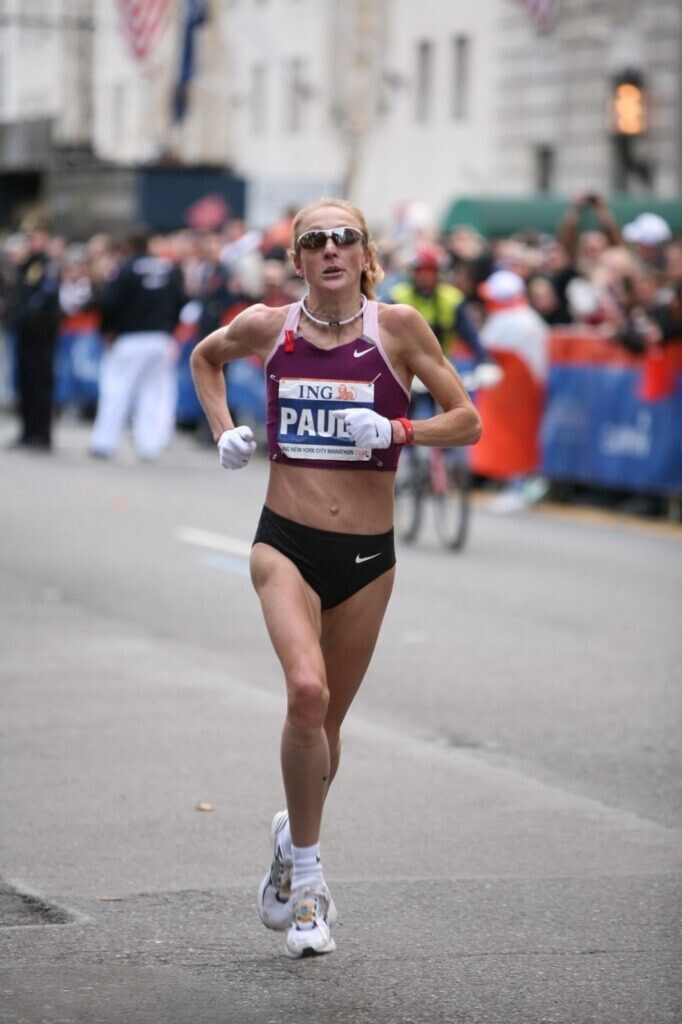
Radcliffe is the most decorated British female marathoner in history, having won both the London and New York marathons three times in her career. She is a seven-time Abbott World Marathon Major champion, and her 2:15:25 from the 2003 London Marathon still stands as the British marathon record. She held the world record for 16 years until Kenya’s Brigid Kosgei broke the mark in 2019.
The 51-year-old hasn’t announced her specific goals for either race yet, but it will be interesting to see if she still has the speed in her legs. Her last marathon came in 2015 in London, where she ran 2:36:55, winning her W40-44 age category and the masters division at the time. Despite it being 10 years ago, it will be intriguing to see if she can still run fast and challenge the British W50+ masters record of 2:47:44.
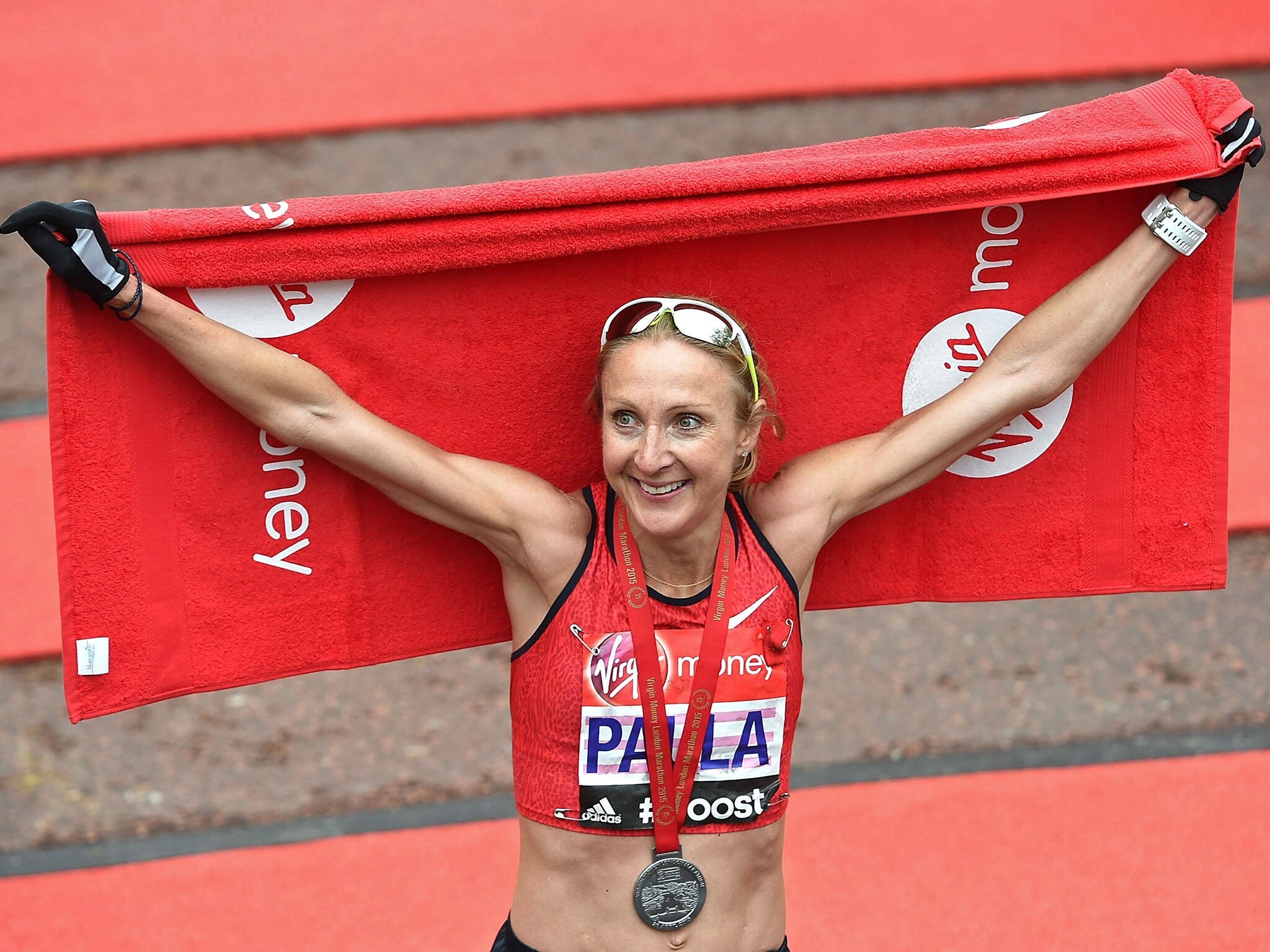
The 2025 Tokyo Marathon is scheduled for March 2, and the 2025 Boston Marathon is seven weeks later on Monday, April 21.
The weekend after Boston, Radcliffe revealed she will be heading to London to cheer on her daughter Isla as she makes her marathon debut. Isla will be running the race for charity, raising funds for Children with Cancer UK, which supported her family after she was diagnosed with cancer at age 13.
by Marley Dickinson
Login to leave a comment
Boston Marathon
Among the nation’s oldest athletic clubs, the B.A.A. was established in 1887, and, in 1896, more than half of the U.S. Olympic Team at the first modern games was composed of B.A.A. club members. The Olympic Games provided the inspiration for the first Boston Marathon, which culminated the B.A.A. Games on April 19, 1897. John J. McDermott emerged from a...
more...Chebet and Aregawi poised to strike in Seville
The Cross Internacional de Itálica in Santiponce on the outskirts of the Spanish city of Seville – the fifth Gold standard meeting in the current World Athletics Cross Country Tour – always boasts a quality line-up, and this year’s race on Sunday (17) features the most prominent line-up so far this season.
Entries for the women’s race, contested over 7.5km, are headed by Kenya’s two-time world cross-country champion and double Olympic gold medalist Beatrice Chebet. The 24-year-old has enjoyed a superb season, topped by her 5000m and 10,000m titles at the Paris Olympics, three months after becoming the first woman to dip under the 29-minute barrier for the latter distance thanks to a 28:54.14 clocking in Eugene on 25 May.
Chebet, who is also the reigning world champion and world record holder for the road 5km, will be making her third appearance here following her runner-up spot in 2020 and her third place in 2021. It will be her first race since her 14:09.82 5000m victory at the Diamond League Final in Brussels.
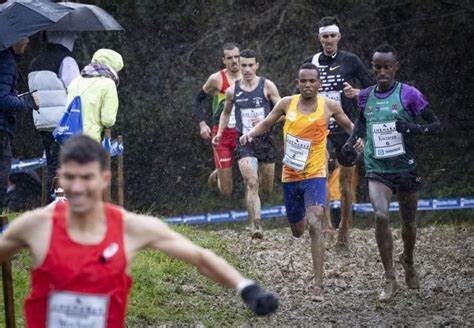
She will start as the overwhelming favourite for the victory, though she’ll face quality opposition in the form of compatriot Mercy Chepkemoi and Kazakhstan’s Daisy Jepkemei. The latter finished seventh at this year’s World Cross Country Championships in Belgrade, and more recently she captured a commanding win in Atapuerca last month.
Chepkemoi is fresh from a fine win in Cardiff last Saturday. She placed fourth over 5000m at the World U20 Championships in Lima in August, finishing just behind bronze medalist Charity Cherop of Uganda, who will also be racing in Santiponce this weekend.
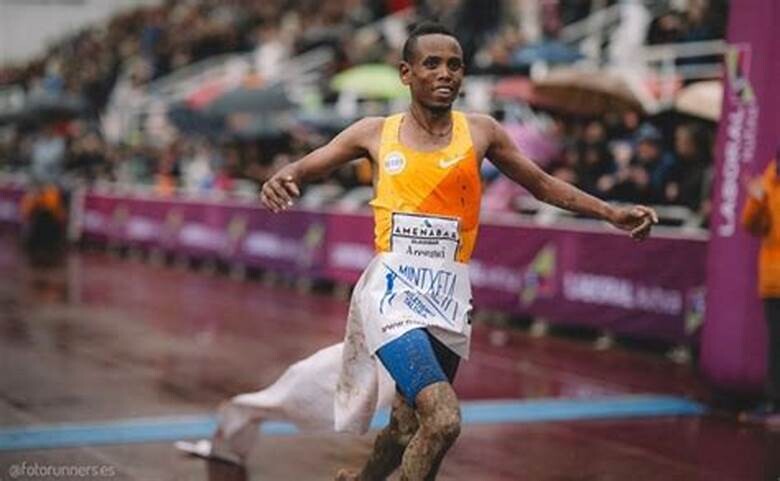
The line-up also comprises Diana and Sharon Chepkemoi, who finished third and seventh respectively in the steeplechase in Lima. Both also competed in Soria last Sunday where they finished third (Diana) and fourth (Sharon).
Meanwhile, France’s Alice Finot, who set a European record of 8:58.67 when finishing fourth in the steeplechase at the Paris Olympics, will be contesting just her second cross-country race in the past seven years.
Portugal’s Mariana Machado recently finished sixth in Atapuerca, sandwiched between Spanish cross-country champion Carolina Robles and Olympic 1500m finalist Agueda Marques who finished fourth and seventh respectively there, closely followed by Maria Forero, the 2022 European U20 cross-country champion. All of them will renew their rivalry this weekend.
European 5000m bronze medalist Marta García, meanwhile, will be making her only cross-country outing of the winter before focusing on the indoor season.
The men’s race has been reduced to 7.5km which plays into the hands of the middle-distance specialists. But that shouldn’t be a problem for Olympic 10,000m silver medalist Berihu Aregawi, as the Ethiopian is also the third-fastest man in history over 3000m.
The 23-year-old opened the year in style by retaining his silver medal at the World Cross Country Championships in Belgrade before setting a 10,000m PB of 26:31.13 in Nerja. Following his Olympic silver in Paris, he clocked an Ethiopian record of 7:21.28 for 3000m and won the 5000m at the Diamond League Final in Brussels.
Sunday’s race will be Aregawi’s first cross-country outing this season, but fellow Etiopians Ayele Tadesse and Wegene Addisu have already made a mark on the tour, finishing second and fourth respectively in Soria last weekend.
Yet Aregawi’s fiercest opposition should come from Burundi’s Rodrigue Kwizera and Spain’s Thierry Ndikumwenayo. Kwizera is still unbeaten this cross-country season, having won in Amorebieta, Atapuerca and Soria. He has successively finished first, second and third on his appearances in Seville over the past three years.
Meanwhile, his training partner Ndikumwenayo – winner in Seville in 2022 – is the European 10,000m bronze medallist and lowered his 10,000m PB to 26:49.49 for ninth place at the Paris Olympics. Ndikumwenayo will travel to Seville from his altitude stint in Sierra Nevada where he’s building up for the European Cross Country Championchips in Antalya on 8 December.
Watch out too for Uruguay’s Santiago Catrofe. He boasts PBs of 7:37:15 for 3000m and 13:05.95 for 5000m and was a surprise winner in San Sebastian two weeks ago when he kicked away from Uganda’s Martin Kiprotich, who’ll also be in contention on Sunday.
Kiprotich will be joined by his compatriots Kenneth Kiprop, Dan Kibet and Hosea Kiplangat. The former is the world U20 5000m bronze medallist and triumphed in Cardiff where Kibet had to settle for third.
The Spanish charge will be led by European indoor 3000m silver medallist Adel Mechaal, US-based Aarón Las Heras, national 10km record-holder Abdessadam Oukhelfen, and the always consistent Nassim Hassaous.
Past winners in Seville include Fernando Mamede (1984 and 1985), Paul Tergat (1998 and 1999), Paula Radcliffe (2001), Kenenisa Bekele (2003, 2004 and 2007), Faith Kipyegon (2016), Joshua Cheptegei (2018) and Jacob Kiplimo (2019).
Temperatures between 22-24C are predicted for the time of the elite races on Sunday.
by World Athletics
Login to leave a comment
Cross internacional de Italica
The Cross Internacional de Itálica is an annual cross country running competition it will be held on 21st of November in Santiponce, near Seville, Spain. Inaugurated in 1982, the race course is set in the ruins of the ancient Roman city of Italica. As one of only two Spanish competitions to hold IAAF permit meeting status, it is one of...
more...MARATHON GROUNDBREAKERS
Since Australia’s Derek Clayton ran history’s first sub—2:10 marathon in Fukuoka, Japan, on 3 December 1967, there have been a total of 4538 sub—2:10 marathons (as of 30 October 2024), 4537 by men, one by a woman.
As with any new ground-breaking performance, Ruth Chepngetich’s 2:09:56 in Chicago on 13 October has forced us to reassess all our past assumptions, or, like many, to doubt the validity of the performance itself. But no matter how we got here, to whatever you want to ascribe it, this is where we are now, 2:09:56 by a woman.
In this new reality, until proven otherwise, Ruth Chepngetich is the new Paula Radcliffe, just as Paula was the new Grete Waitz, one ground-breaker to the next, 1978 to 2003 to 2024.
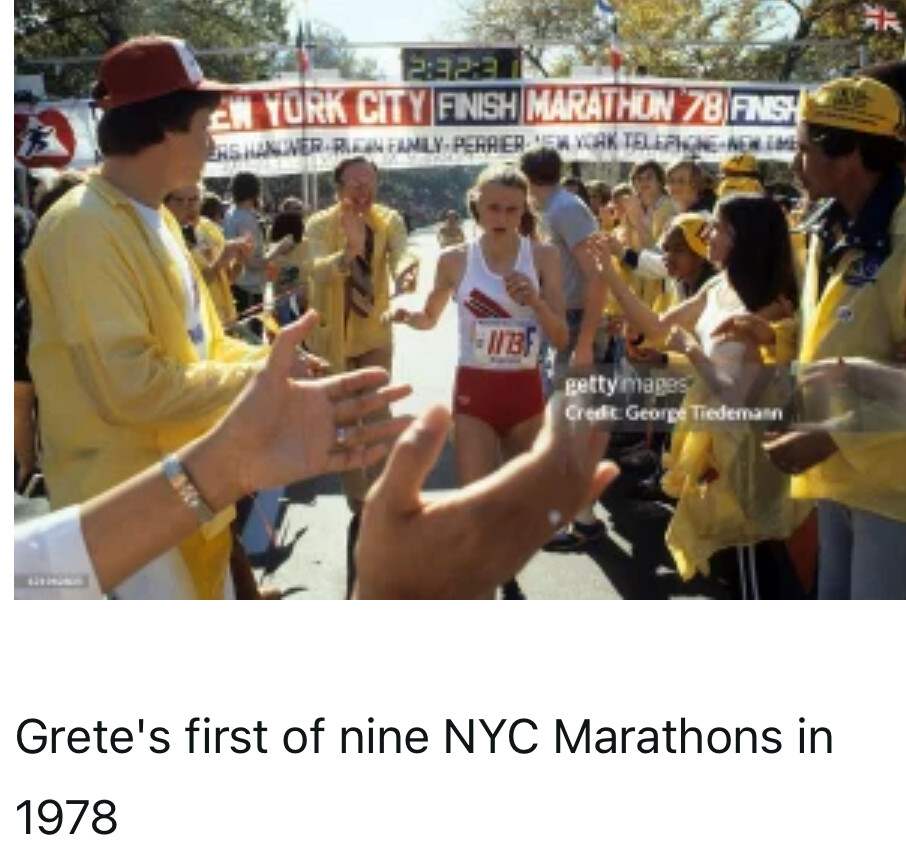
There have been many talented women champions through the years besides those three, including all the pioneers who had to overcome centuries of gender bias that restricted women from even showing their stuff.
But in terms of pure ground-breaking, the 1978 New York City Marathon drew a bright line between what once was and what would be.
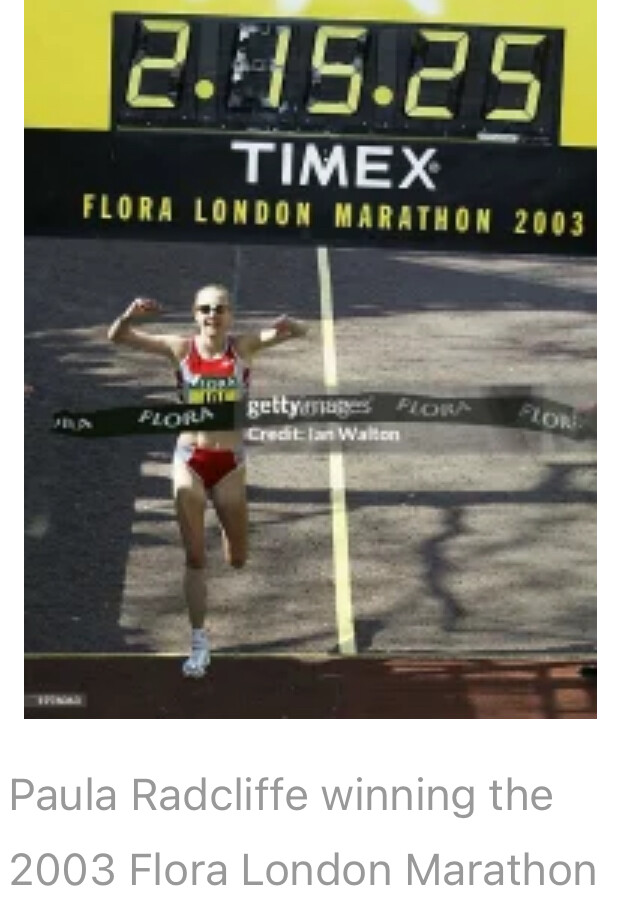
On 22 October 1978, Norway’s track and cross-country star Grete Waitz participated in the marathon for the first time, almost on a whim, as the trip was more of a honeymoon for her and husband Jack after the long track season.
The 2:32:30 world record Grete ran that day was totally unexpected by both the public and Grete herself. She wore bib #1173, wasn’t included on the list of elite women, and came with no specific marathon preparation (not a single run over 13 miles). In fact, she was so upset with husband, Jack, for suggesting she come run the marathon that she threw her shoes at him in the hotel room following her victory.
Still, like almost all debuting marathoners, after a short period of recovery and reflection, Grete concluded she could probably improve next time.
Thus, in New York 1979, following a more careful preparation, Grete ripped nearly five full minutes off her 1978 mark to record history’s first sub—2:30 by a woman at 2:27:33. Her margin of victory over England’s Gillian Adams was 11 minutes (2:38:33). The combination of the mild-mannered former geography teacher from Oslo and the raucous New York City crowds proved transformative, elevating women’s running to heights previously unimagined.
Though Japan’s Naoko Takahashi broke the 2:20 barrier for women in Berlin 2001, after Norway’s Ingrid Kristiansen (2:21:15, London ‘85), America’s Joan Benoit Samuelson (2:21:21, Chicago’85), and Kenyan Tegla Loroupe (2:20:43, Berlin ‘99) all challenged the barrier in the 1980s and ‘90s, it was England’s Paula Radcliffe who established new headlands in the marathon in London 2003 with her 2:15:25.
Nearly two minutes faster than her own 2:17:18 record from Chicago the year before, her 2:15 arced away from Catherine Ndereba’s 2:18:47 from Chicago 2001, completed just one week after Takahashi’s first sub-2:20 in Berlin.
The quality of Paula’s 2:15 can be seen in the 16 years and an entire shoe technology revolution that developed before Kenya’s Brigid Kosgei did Paula one better in Chicago 2019 at 2:14:04. That performance plowed new ground again. And now we have Ruth Chepngetich in Chicago 2024 with history’s first sub-2:10, just a year after Ethiopia’s Tigst Assefa’s first sub—2:12 in Berlin `23 (2:11:53).
Twice before, Chepngetich had come to Chicago with world record intentions. In 2022, she won the race in 2:14:18, just 14 seconds off Kosgei’s record. In 2023 she finished second in 2:15:37. On both occasions she flew through halfway under 66 minutes, only to falter in the second half. Perhaps she was a close reader of Malcolm X.
“There is no better teacher than adversity. Every defeat, every heartbreak, every loss, contains its own seed, its own lesson on how to improve your performance the next time.” – Malcolm x
In simple terms, making innovative strides in athletics requires time, experimentation, and reviewing, similar to how new scientific theories are examined before full acceptance. But women just haven’t been at the marathon game long enough to produce a large enough sample size to define their outer limits with any accuracy. They are barely two generations in since 1978.
Men have been competing for a much longer time with a much larger sample size.
Though Eliud Kipchoge surpassed the two-hour barrier in Vienna in 2019, that was accomplished as an exhibition, not a sanctioned race. In that sense, we are still awaiting the next barrier breaker on the men’s side in the Marathon.
Looking back, England’s Jim Peters stands as the first modern barrier breaker with his 2:18:40 win at the 1953 Polytechnic Marathon between Windsor and Chiswick in West London, England, history’s first sub—2:20.
Next was Ethiopia’s Abebe Bikila, the legendary double Olympic victor in Rome 1960 and Tokyo 1964. His 2:15:17 in Rome still stands as the barefoot marathon world record.
Next came Australia’s Derek Clayton, the first man under both 2:10 and 2:09. His 2:08:34 from Antwerp 1969 lasted for 12 years, holding off challenges throughout the entire Running Boom era headed by Americans Frank Shorter and Bill Rodgers.
Though never world record holders, the two Americans dominated the 1970s boom era, Shorter through the first half, Rodgers the second.
The Eighties were the last decade of international marathon champions: American (Al Salazar, Greg Meyer); European (Steve Jones, Carlos Lopes); Japanese (Toshihiko Seko and the Soh brothers); and Australian (Rob de Castella). Kenya’s Joe Nzau won Chicago in 1983 in a thrilling duel with England’s Hugh Jones when Chi-town was still developing its reputation as a world class event.
Ibrahim Hussein set new records in Honolulu and kick-started the Kenyan marathon revolution
The full East African deluge didn’t begin until 1987 and ‘88 when Kenya’s Ibrahim Hussein (already a two-time and soon to be three-time Honolulu Marathon champion) became Africa’s first New York City and Boston Marathon winner and Ethiopia’s Belayneh Dinsamo set the world record, 2:06:50, in Rotterdam 1988 that lasted over a decade.
The list of marathon stars from other nations scaled back markedly in the 1990s. Mexico had its turn at the top via greats like Dionicio Cerón (1994-`96 London champion), and back-to-back New York Ciy winner German Silva (1994 & 1995).
Moroccan-born American Khalid Khannouchi twice ran a world marathon record, first in Chicago 1999 (2:05:42), then three years later in London 2002 (2:05:38). And who could forget the personable Brazilian, Marílson Gomes dos Santos, who won New York City twice in 2006 & 2008, or Meb in NYC `09 and Boston 2014??
But the United Nations pickings get rather meager after that as East African athletes have had a stranglehold on the sport of marathoning, most dominatingly by Kenya’s Eliud Kipchoge. His run of sustained excellence over 42.2 kilometers was, and is, unprecedented in its longevity, including double gold in Rio 2016 and London 2020. And his last world record of 2:01:09 in Berlin 2022.
Sadly, the current record holder, Kelvin Kiptum, died in a car accident in February 2024 after establishing the 2:00:35 world record in Chicago 2023.
With the 2024 TCS New York City Marathon scheduled this weekend, we don’t expect to see any record performances. Yet, all the above is why we follow the game, isn’t it, to witness the arc of improvement over time, while hoping to discover a new name to remember? It’s as valid a focus as any other in this life.
And despite its many flaws and corruptions, the sport of marathoning retains an innate dignity that many endeavors do not. People may have bruised, battered, and tarnished it in the name of glory and money. But it survives, nonetheless, as a simple reflection of the human drive to achieve more in the quest to discover our best.
Doesn’t always turn out that way, but I don’t think we are done with it quite yet. Onward!
by Toni Reavis
Login to leave a comment
WHAT THE NUMBERS SAY (ABOUT WOMEN’S MARATHOING)
I am a numbers’ guy. I’ve always been a numbers’ guy. I always want to see what the numbers tell me before I opine from an emotional standpoint.
Accordingly, I did a deep dive into the last five women to hold the marathon world record going back to Kenyan Catherine “The Great” Ndereba, in 2001. What I found was a changing world order.
Catherine Ndereba was the last of the old school road racers who then progressed to the marathon. Catherine came to compete on the U.S. road tour beginning in 1995, but really began winning convincingly in 1996 at age 24, winning four times in New York City; Spokane, Washington; Utica, NY; Flint, Michigan; and Philadelphia, Pa.
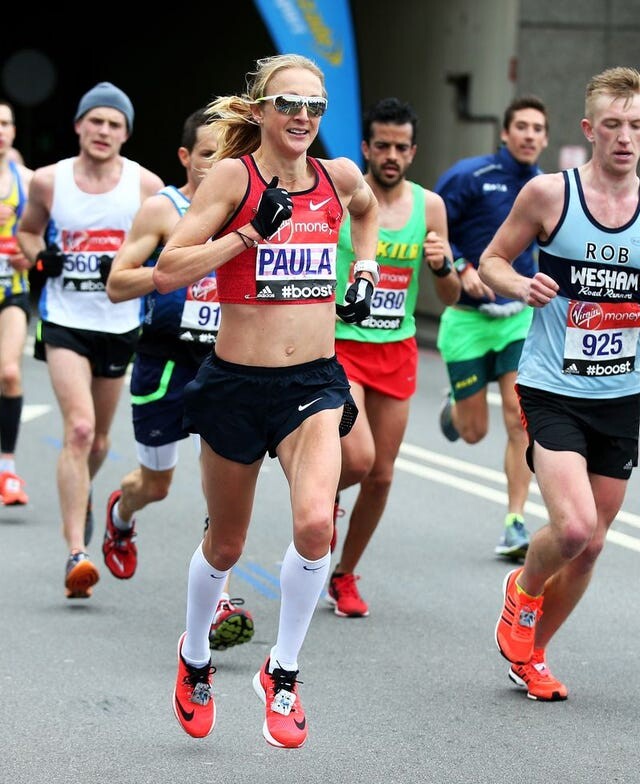
In 1999, she made her marathon debut in Boston, running to eighth place in 2:28:26. Later that fall, she finished second in New York City in 2:27:34. But she also had eight wins on the road circuit when you could still make money there and the marathon wasn’t yet as lucrative as it is today.
The following year, 2000, Catherine won her first Boston and Chicago Marathons, with another eight wins on the road circuit. She won Boston again in 2001 in 2:22:53, then set her world record in Chicago in the fall in her sixth career marathon, running 2:18:47, with another eight wins on the roads. Catherine was 29 when she ran her record and set her personal best by 2:46 seconds.
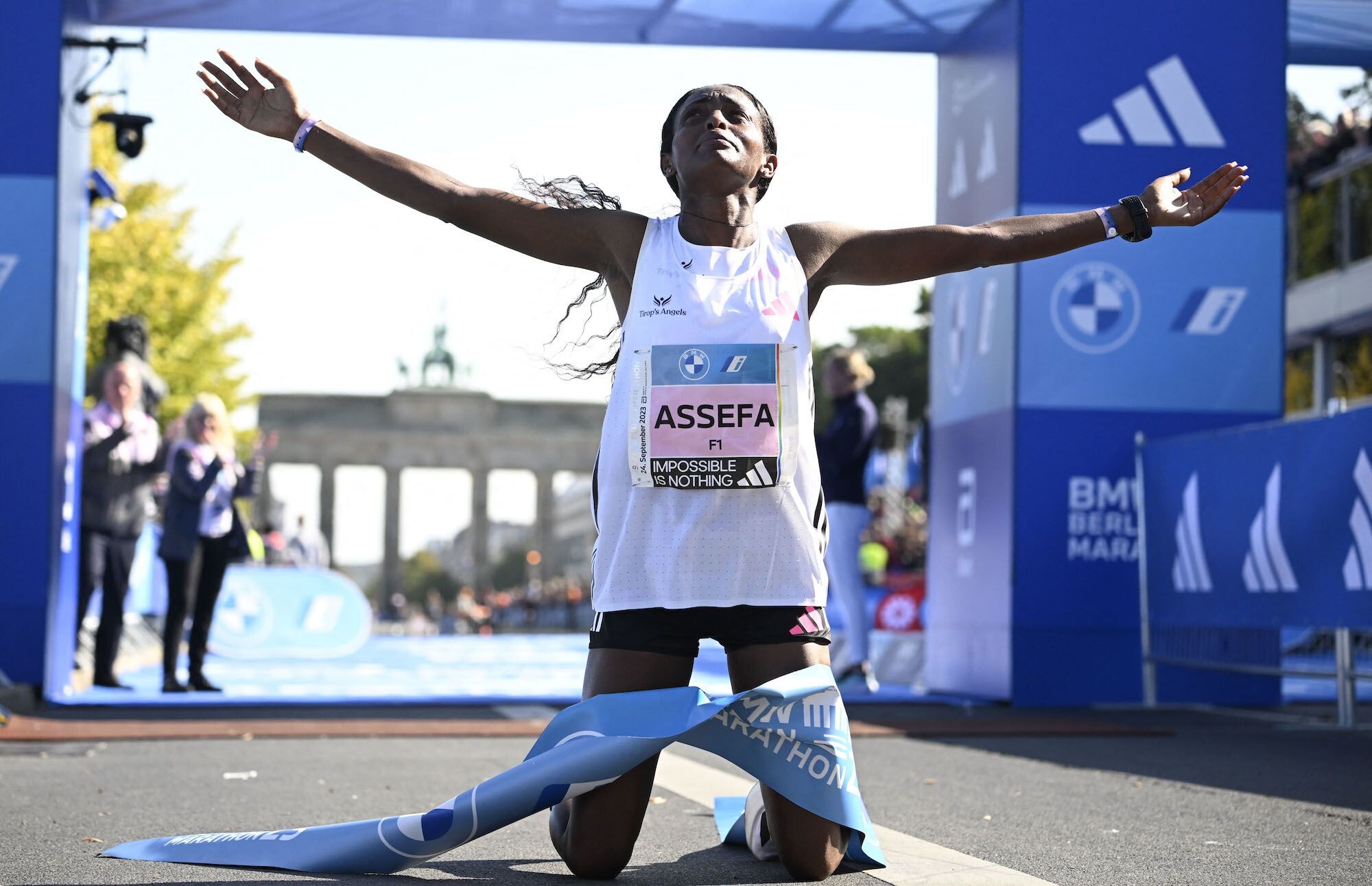
In all, she ran 23 marathons, finished 23, won 8.
Great Britain’s Paul Radcliffe broke Catherine‘s world record one year later in Chicago 2002 (2:17:18) then smashed her own record one year later in London (2:15:25), a record that would last 16 years, by far the longest standing women’s marathon world record in history. Before that, Paula had run her debut in the spring of 2002 in London, at age 28, winnng in 2:18:56, a debut record.
In all, Paula started 13 marathons, finished 12, won 8. She, like Catherine, was age 29 when she set her final record at 2:15:25.
But Paula had a long, distinguished career in cross country and track going all the way back to 1992 when won the IAAF World Cross Country U20 championship in snowy Boston before finishing fourth in the World Junior Championships in the 3000m, a circumstance that would repeat itself over the years until she moved up in distance.
Paula ran fifth at the 1996 Olympic 5000m final in Atlanta. Then fourth in the 1997 World Championships 5000 in Athens; second in the WC 10,000m in Seville; and fourth again in the 2000 Olympic 10,000 in Sydney. She just couldn’t finish the last 200-300m with the East Africans like Derartu Tulu and Gete Wami to nab gold.
She entered her first marathon in London 2002 after showing her ability at the half marathon, winning at the Great North Run and the World Half Marathon Championships in Vera Cruz in 2000, and again in Bristol in 2001 – though she still ran on the track at 3k, 5k and 10k. From there, it was clear sailing, as the world came to expect Paula’s 2:15:25 to last for a long, long time.
It wasn’t until Brigid Kosgei came along in Chicago 2019, running 2:14:04, that Paula’s mighty record fell. But that was a bit of a stunner, as people didn’t see it coming. That gave even more gravity to the super-shoe era, because Brigid was 25 years old running the ninth of her 17 career marathons when she set her record. It was a personal best by 4:16, very similar to what we saw with Ruth Chepngetich last Sunday in Chicago. Both were deep into their marathon careers before producing their other worldly record performances.
Between Brigid and Ruth came Ethiopia’s Tigst Assefa. She ran her world record of 2:11:53 at age 26 in Berlin in the third of only five career marathons. And that WR was a personal best by 3:44 at age 26.
And now, of course, we have Ruth Chepngetich, whose 2:09:56 in Chicago last Sunday has had heads spinning faster than Linda Blair in the Exorcist.
Ruth has run 15 marathons, finished 13, won 9, while running her world record in her 15th marathon, seven years into her career, setting a PB by 4:22. That last stat is the one people have trouble getting their heads around. You don’t improve that much so late in your career; they say.
But Brigid Kosgei ran her world record in the ninth of 17 career marathons with a personal best by 4:16. So what Ruth did was not unprecedented, though taken from a tiny sample.
The ages when they produced their world records:
Catherine, age 29; Paula, age 28 and 29;Brigid, age 25; Tigst, age 26; Ruth, age 30.
The world is constantly spinning, changing. Catherine Ndereba and Paula Radcliffe came from an old world, not just pre-super shoes, but pre-only focusing on marathons and half marathons.
And with the super shoes and super nutrition and super coaching and super God knows what else, there has been a great stir in the running community. Some refuse to even consider the possibility of these record times. Others say “wait and see if any positive testing follows down the line”, as we have seen many times before. And very few say, “everything‘s on the up and up. There’s nothing here to see other than a great performance.”
That doesn’t leave the sport in a very good place. But guess what? We are kidding ourselves if we think 2:09:56 is going to last very long. Look at Chicago’s women’s splits: 15:00 at 5K = 2:06:46 pace; 45:32 at 15k = 2:08:16 pace; and 64:16 at halfway = 2:08:32 pace. You even out that effort just a little, and you’re looking at sub-2:09! It’s coming. You can count on it. Plus, once one-person shows what’s possible, it inspires many more to try.
Remember, we are still in the first two generations of world-class women’s distance running. We have no idea what their limits may be, notwithstanding all nefariousness that attends the sport these days.
And so the debate continues, even as the sport searches for leadership, which seems to be missing in action. It’s one hell of a Wild West show, isn’t it?
by Tony Reavis
Login to leave a comment
Another look at the new women’s marathon record set in Chicago today
30-year-old Kenyan Ruth Chepngetich destroyed the women’s marathon world record today (13 Oct. 2024) at the 46th Bank of America Chicago Marathon. Her time of 2:09:56 ripped 1:57 from the previous mark set in Berlin 2023 by Ethiopia’s Tigst Assefa (2:11:53).
At this point, the athletics record book feels like it ought to be written in No. 2 Ticonderoga pencil. That’s how fast records fall in this age of technological and nutritional advances. This is especially true at the longer distances where such advancements create greater margins.
Still, Ruth Chepngetich’s new world record stands out as history’s first women’s sub-2:10, and first sub-5:00 per mile pace average. But Tigst Assefa’s 2:11:53 mark set last year in Berlin had us all cradling our heads, as well. That performance cut 2:11 off Brigid Kosgei‘s 2:14:04 record from Chicago 2019, which shattered Paula Radcliffe‘s seemingly impregnable 2:15:25 set in London 2003.
In each case: Radcliffe’s, Kosgei’s, Assefa’s, and now Chepngetich’s record have caused mouths to gape in the immediacy of their efforts. But nothing should surprise us anymore.
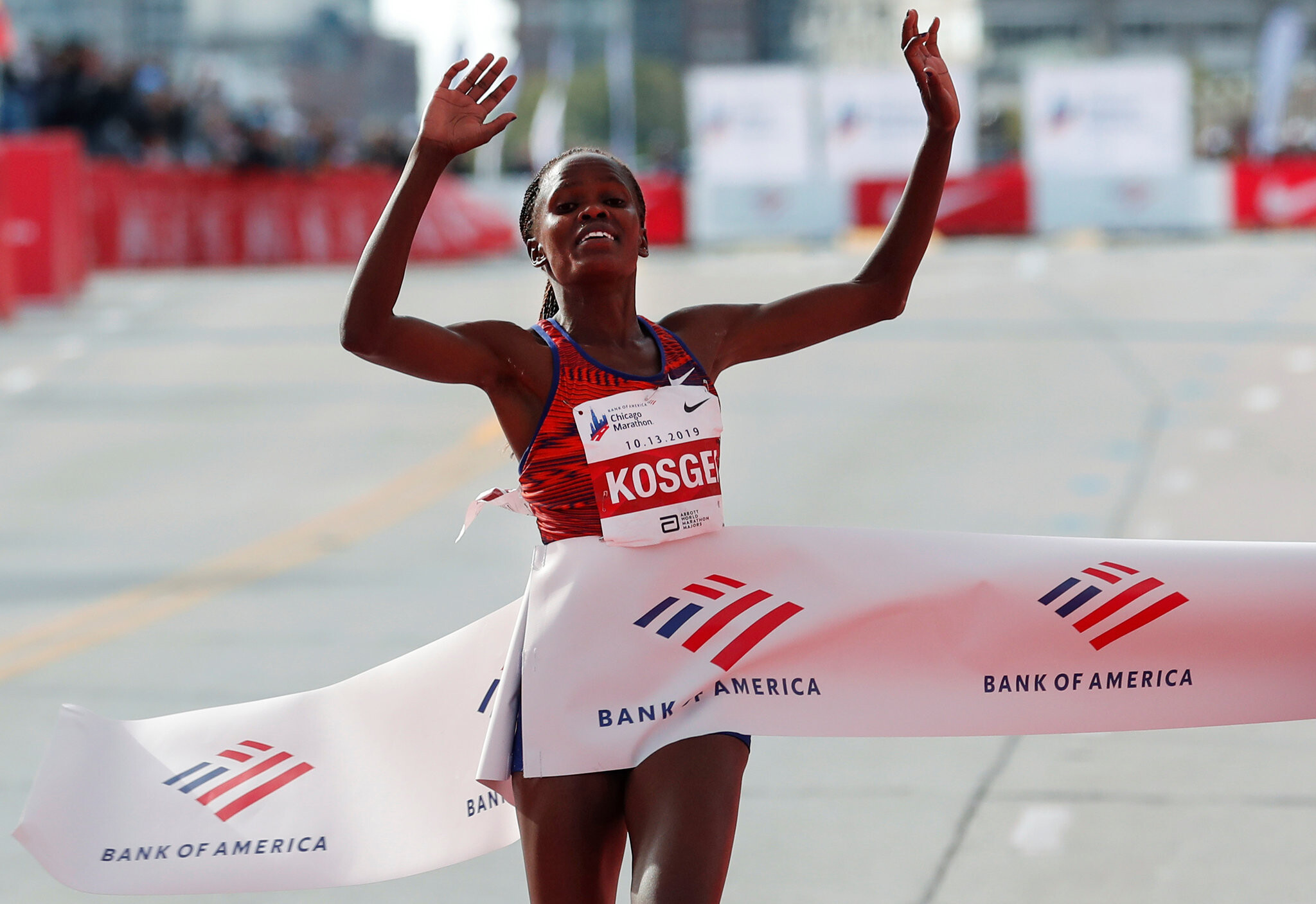
Racing is often a self-fulfilling prophecy determined by one’s build-up. Ruth Chepngetich said in her TV interview she came into Chicago off a perfect three-months of training after her disappointing ninth-place finish in London in April (2:24:36). Two previous wins in the Windy City (2021 and 2022) and a runner-up in 2023 meant Ms. Chepngetich arrived well seasoned on this course, with a keen understanding of what training was required to produce such a record run.
Of course, sadly, no record in athletics can be free of skepticism considering the industrial level of PED use that is uncovered, seemingly, every other Tuesday. Though understandable, cynicism should not be one’s default reaction.
To maintain any allegiance to the game, to follow it with any interest at all, we have to celebrate each record at face value. Just as rabid fans have to acknowledge some records to be ill-gotten, cynics accept that many special runs are exactly as they appear, above reproach.
Besides, when you break down Ruth’s 5k splits, each one from 5k to 35k was slower than the previous 5k. Not until the split from 35k to 40k (15:39) did she run faster than the split before (15:43 from 30 to 35k)
5k – 15:0010k – 30:14 (15:14)15k – 45:32 (15:18)20k – 60:51 (15:19)25k – 1:16:17 (15:26)30k – 1:31:40 (15:32)35k – 1:47:32 (15:43)40k – 2:03:11 (15:39)Fini – 2:09:56
1st half – 64:162nd half – 65:40
So congratulations to Ruth Chepngetich and her team for a marvelous run through a beautiful city. Now, let’s see how long this mark stays on the books before the No. 2 Ticonderoga pencil gets pulled out again.
BY THE NUMBERS
There have been 26 women’s world records set in the marathon since Beth Bonner‘s 2:55:22 in New York City in 1971. Over the ensuing 53 years, the average percentage change from one record to the next has been 1:26%. See WOMEN’S WORLD RECORD PROGRESSION.
Today’s record by Ruth Chepngetich, 2:09:56 (just one second slower than Bill Rodgers‘ American men’s record in Boston 1975!), lowered Tigst Assefa’s 2:11:53 mark by a healthy 1.5%. And Assefa’s time cut Brigid Kosgei’s 2:14:04 by 1.65%.
These latest records are still taking significant chunks off their predecessors and doing so in quick order. That suggests women are far from slicing everything they can from even this new record.
Yet, when comparing the women’s marathon world record to the men’s (2:00:35, set by Kelvin Kiptum in Chicago 2023), we see a differential of 7.2%. That is by far the best women’s record vis-à-vis the men’s throughout the running spectrum. Second place on that list is Florence Griffith-Joyner‘s 10.49 100m in relation to Usain Bolt‘s 9.58, a percentage difference of 8.675%.
The traditional rule of thumb has been a 10% gap between men’s and women’s records. But there are so many factors in play, it is difficult to make any definitive statement that explains one event, much less one athlete from another. I guess that’s why we keep watching.
by Toni Reavis
Login to leave a comment
Bank of America Chicago
Running the Bank of America Chicago Marathon is the pinnacle of achievement for elite athletes and everyday runners alike. On race day, runners from all 50 states and more than 100 countries will set out to accomplish a personal dream by reaching the finish line in Grant Park. The Bank of America Chicago Marathon is known for its flat and...
more...Eilish McColgan leads Great North Run elite line-ups
Berihu Aregawi, Sisay Lemma and former winner Marc Scott are part of a strong men’s field for the September 8 event.
Eilish McColgan’s autumn road racing steps up a gear on September 8 when she tackles the AJ Bell Great North Run.
The 33-year-old holds the British records on the roads at 5km, 10km, 10 miles and half-marathon but has not yet won the iconic 13.1-mile race during her career. She has, however, won several other Great Run events and in 2021 finished runner-up to Hellen Obiri at the Great North Run.
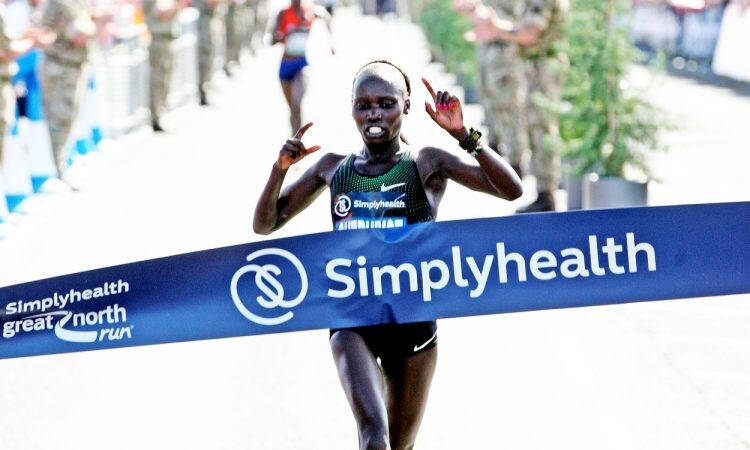
After an injury-hit 2023, McColgan returned this summer to make the Olympic team in Paris, finishing 15th in the 10,000m. But after several more weeks of training she is expected to be stronger as she tackles the Big Half in London on September 1 followed by the Great North Run seven days later and then the Vitality London 10,000 on the roads of London again on September 22.
At the Great North Run she will face, among others, Vivian Cheruiyot, the Great North Run winner in 2016 and 2018, plus Sheila Chepkirui, the Kenyan who was third behind McColgan when the Scot won the Commonwealth 10,000m title in 2022.
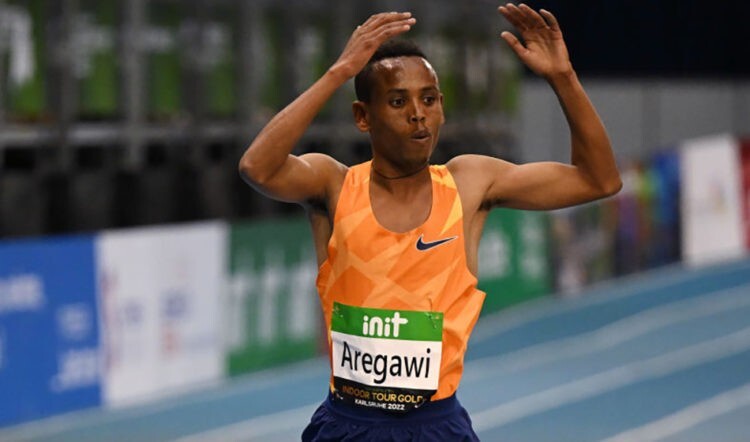
Cheruiyot, who is now 40, also won the London Marathon in 2018 and the Olympic 5000m gold in 2016.
There is also Senbere Teferi, the former women-only 5km world record-holder and 65:32 runner in the half-marathon, plus two-time London Marathon podium placer Mergetu Alemu and British-based Kenyan Mary Ngugi-Cooper.
In the men’s race Marc Scott returns to try to retain the title he won in 2021. But he faces tough opposition from Berihu Aregawi, the Ethiopian who won Olympic 10,000m silver close behind Joshua Cheptegei in Paris.
Last weekend Aregawi also went No.3 on the world all-time rankings for 3000m behind Jakob Ingebrigtsen’s world record in Poland.
Also racing on Tyneside are 2024 Boston Marathon and 2021 London Marathon winner Sisay Lemma, 2023 Boston Marathon winner Evans Chebet and Kenya’s NYC Half winner from earlier this year, Abel Kipchumba.
McColgan said: “I have incredible memories of competing in Newcastle and participating in the Junior Great North Run events over 20 years ago, and we have a family history at the Great North Run, with mum being a three-time winner, so this year’s Great North Run will be a special one for me to finally follow in my mum’s footsteps and because as I have yet to run the original route from Newcastle to South Shields.”
She added: “Returning from this year’s Paris Olympics and on the road back from injury, I’m especially looking forward to the thousands of spectators lining the streets of the North East, as well as the 60,000 inspirational runners taking part in their own journey.”
McColgan’s best half-marathon time is 65:43 set in Berlin last year. Paula Radcliffe has run three seconds quicker – at the Great North Run in 2003 – but the course is not eligible for records.
This year’s run will also welcome back the elite men’s and women’s wheelchair races, held to the backdrop of this year’s Paralympic Games closing ceremony in Paris. Notable competitors include JohnBoy Smith, Sean Frame, Michel McCabe and Jade Hall.
Sir Brendan Foster, founder of the Great North Run, said: “Our fantastic spectators are once again in for a great day thanks to our impressive elite field at the top end of our Great North Run Sunday.
by Jason Henderson
Login to leave a comment
Great North Run
Great North Run founder Brendan Foster believes Britain is ready to welcome the world with open arms after the launch of the event's most ambitious plan to date. The Great World Run campaign seeks to recruit one runner from every country in the United Nations – 193 in total – to take part in the iconic half marathon in...
more...Kosgei believes she can go one step further and win title in Paris
Tokyo 2020 Olympics women's marathon silver medalist Brigid Kosgei believes she can go one step further and nail the title in Paris this year.
In an exclusive interview on Wednesday Kosgei said she is ready to annihilate the rich field of competitors in the cut-throat 42km race on her way to the winner's dais.
The two-time world champion constitutes the starry eight-member Team Kenya marathon delegation for the Paris 2024 Olympic Games unveiled by Athletics Kenya last week.
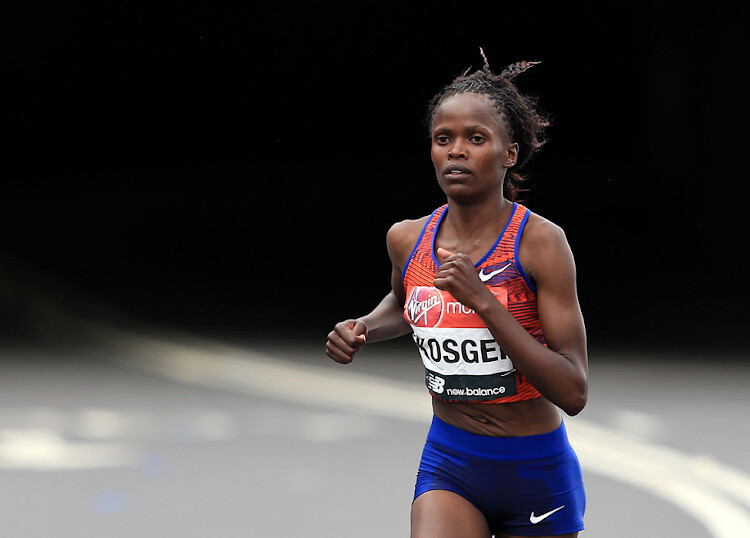
"I'm happy to be part of the team. The biggest dream of any athlete is to don the national colours and I'll do everything within my power to make the country proud," Kosgei remarked.
"It's one great opportunity I cannot take for granted. Several brilliant Kenyan athletes deserved to be on board but were left out. My goal is to steer the nation to victory," she added.
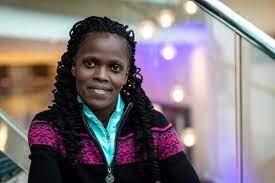
Kosgei will be gunning for the women's accolade alongside compatriots Peres Jepchirchir and Hellen Obiri. Sharon Lokedi is the reserve in the squad.
"We have a strong team of marathoners and I'm certain we can achieve something positive results if we put our heads together," Kosgei stated.
Her performance at the London Marathon on April 21 was, however, disappointing after she clocked two hours, 19 minutes, and two seconds to fizzle out to a disappointing fifth.
She will, nevertheless, find comfort in her masterclass act on March 17, 2024, where she stormed to the Lisbon Half Marathon title.
Kosgei is well aware she has a lot to pan out in Paris after her inclusion in the starting lineup ahead of Lokedi ruffled some feathers, with a section of fans arguing that she ought to have been the reserve runner judging by their recent performances.
Born on February 20, 1994, in Elgeyo-Marakwet County, Kosgei has demonstrated her gumption as a course diva since her inauguration, having bagged five World Marathon Majors.
She gleamed to the Chicago Marathon title in 2018; and took the 2019 London Marathon gold medal, becoming the youngest woman to win the event. The feat saw her record the third-best time after Paula Radcliffe in 2005 ( 2:17:42) and Mary Keitany in 2017 ( 2:17:01).
She went on to replicate her conquering exploits at the 2019 Chicago Marathon. Her credentials were boosted further by a first-place finish at the 2020.
London Marathon and another gold medal at the 2021 Tokyo Marathon.
This will be her second appearance at the Olympics after wrapping up second behind Jepchirchir at the Tokyo 2020 Olympic Games and ahead of compatriots Cheruiyot and Ruth Chepng'etich.
by Tony Mballa
Login to leave a comment
Paris 2024 Olympic Games
For this historic event, the City of Light is thinking big! Visitors will be able to watch events at top sporting venues in Paris and the Paris region, as well as at emblematic monuments in the capital visited by several millions of tourists each year. The promise of exceptional moments to experience in an exceptional setting! A great way to...
more...How Emil Zátopek helped create the Prague International Marathon
Founder of Prague International Marathon Carlo Capalbo opens up about meeting in 1995 that changed everything
This weekend’s Prague International Marathon will be the 29th edition of the event and, courtesy of organizers RunCzech, has become one of Europe’s fastest-growing road races.
It was founded back in 1995 by Carlo Capalbo, alongside 1988 Olympic men’s marathon champion Gelindo Bordin and quadruple Olympic gold medalist Emil Zátopek.
Zátopek, nicknamed the “Czech Locomotive”, is one of the country’s greatest ever athletes. He is best known for being the only person in history to claim three Olympic gold medals over the 5000m, 10,000m and the marathon in the same Games, at Helsinki 1952.
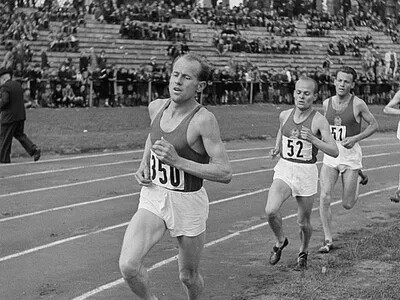
Incredibly, Zátopek’s gold in the marathon came in his first ever race over 26.2 miles.
The Czech athlete was also the first runner in history to go sub-29 minutes in the 10,000m and went undefeated in his first 38 races over the distance from 1948 through to 1954.
Zátopek’s legacy isn’t just defined by his athletics achievements though. The 8000-plus runners that will take to the streets on Sunday (May 5) for the Prague International Marathon – starting and ending around the Old Town Square – can thank Zátopek, Capalbo and Bordin for their vision back in 1995.
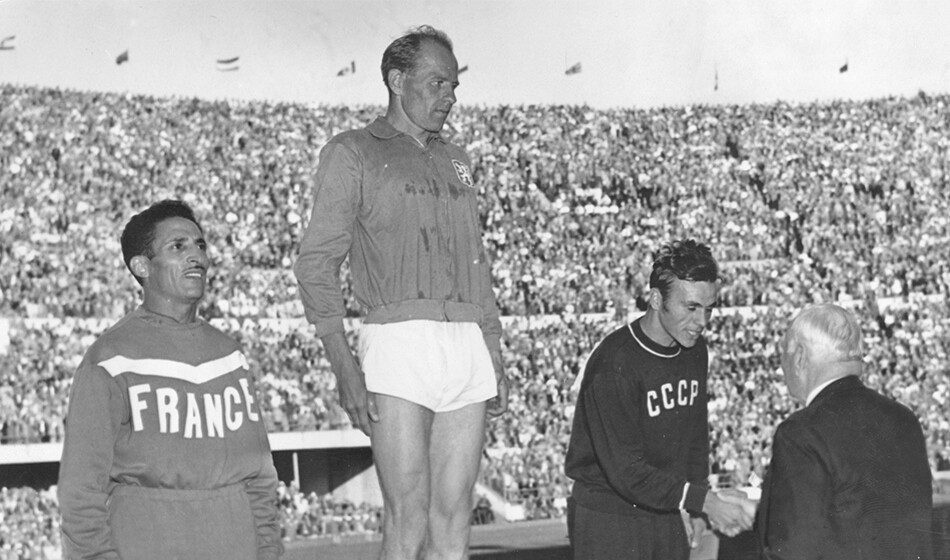
“You know, nearly 30 years ago I had this simple and beautiful dream,” Capalbo tells AW. “A friend of mine [Bordin] said to me that we should organize a marathon. So we went to see Mr Zátopek. That was the start of everything.
“When we went and met Mr Zátopek, we started off with a coffee and bábovka. At the end we tasted some lovely brandy that Mr Zátopek had. After that, we’d devised the marathon but we needed to work out where the people would run.
“So Mr Zátopek decided to draw the course for the Prague International Marathon on a napkin. The rest is history.”
The elite winners in the inaugural year of the event were Ethiopian Turbo Tummo (2:12:44) and Ukrainian Svetlana Tkach (2:38:33).
Since then, the course records have plummeted and are currently held by Alexander Mutiso (2:05:09 – 2023) and Lonah Salpeter (2:19:46 – 2019), although sadly Zátopek did not live to see the recent races as he died in 2000 aged 78.
Prague is a historically quick meet and the fact that the IOC have extended the qualification period for the Olympic marathon past the April 30 date, to include the Prague International Marathon, says a lot.
It means runners from a multitude of continents have flocked to the Czech Republic to meet the standard.
“The Prague International Marathon is a very prestigious event for both the IOC and World Athletics,” Capalbo says.
“There are so many people running to get the standard. The Olympics is the pinnacle of sport and it’s a celebration.”
Capalbo is also keen to stress of the importance of the masses. He states that running is much more than just one individual and his mission is to create sports events to make “people happy and healthy”, plus making the sport “more watchable for the general public”.
“This is not a normal job and running is not a normal sport,” he adds. “It’s a little bit specific. We wanted to give the perception that the winners of running are those who finish the race, not just those first across the line. The marathon is a fantastic advertisement for the city and it’s great for people’s mental health.
“We are a small country in the Czech Republic and many people come from abroad to the marathon. It’s a great income for Prague. This generates happiness and love for an event which is a tradition for us.”
There will also be the added element of “Battle of the Teams”. Successfully introduced last year, the idea is that both masses and elites are split into teams. It means that the placing of every runner matters.
This year, there will be four teams: Team Mattoni, Team Prague Airport, Team Turkish Airlines and Team Volkswagen.
“There is still the elephant in the room,” Capalbo says. “The masses don’t know the name of the winners. It’s why we’ve done Battle of the Teams so the people taking part in the marathon can look at the names of the elite athletes.
“We want to get the people close to the elite athletes. They also need European legends like Paula Radcliffe, Sebastian Coe and Rosa Mota to look up to. When you go to watch a football match you go crazy for your team and that’s what I need to see in running.”
by Tim Adams
Login to leave a comment
Prague Marathon
The Volkswagen Prague Marathon, established in 1995, has evolved into a premier event on the international running calendar, renowned for its scenic course through one of Europe's most picturesque cities. The marathon's route meanders through Prague's historic streets, offering runners views of iconic landmarks such as the Charles Bridge and Old Town Square. The predominantly flat terrain provides an excellent...
more...Kosgei, Chepngetich, Jepchirchir headline stellar Kenyan cast in London Marathon chase
Three Kenyan women aim to break the women’s-only marathon world record at the 2024 TCS London Marathon.
Three of the top four fastest women in marathon history, all from Kenya, are set to take center stage at the 2024 TCS London Marathon, aiming to break the women's-only world record.
This elite trio, comprised of Brigid Kosgei, Ruth Chepngetich, and Peres Jepchirchir, are gearing up for what could be a historic race on the streets of London.
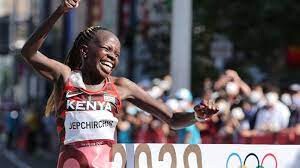
Brigid Kosgei, who previously set the world record at the 2019 Chicago Marathon with a time of 2:14:04, is the veteran of the group.
She has been in top form since breaking Paula Radcliffe's longstanding record and is no stranger to the pressures of big-city marathons.
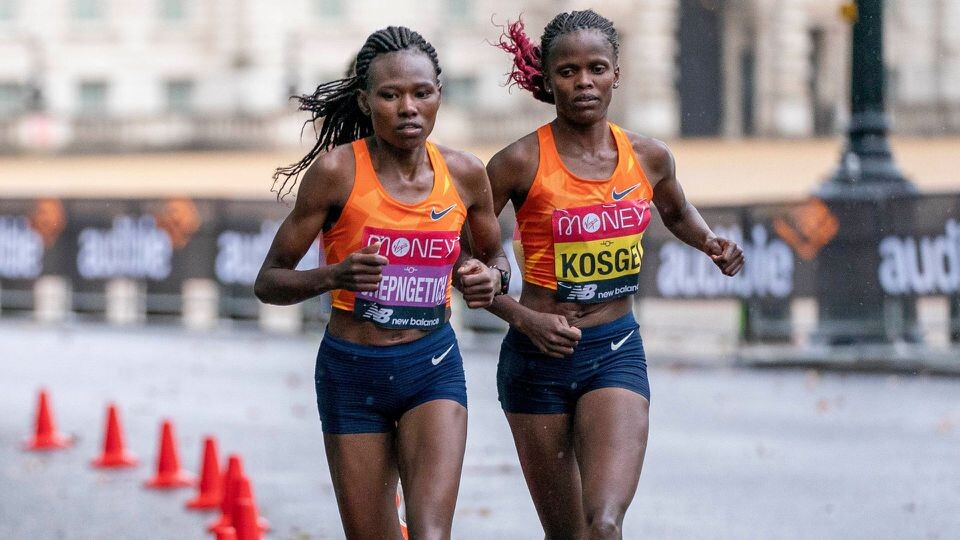
Joining Kosgei is Ruth Chepngetich, the fourth-fastest woman of all time with a personal best of 2:14:18.
Chepngetich's aggressive racing style and ability to maintain a blistering pace make her a serious threat to the current record.
Rounding out the trio is Peres Jepchirchir, the reigning Olympic champion.
Jepchirchir's tactical acumen and proven track record, especially in championship races, position her as a key challenger in this record-breaking attempt.
Her victory at the Tokyo Olympics showcased her endurance and determination, qualities necessary for a successful run in London.
The current women's-only world record was set by Mary Keitany during the 2017 London Marathon, with a time of 2:17:01.
However, with advancements in training and competition, this record has been under threat, particularly with the recent performances of these Kenyan athletes.
Hugh Brasher, Event Director of the TCS London Marathon, emphasized the significance of this race in the context of marathon history.
"We are in a golden age of women’s marathon running," said Brasher. He added, "Despite the incredible achievements in recent years, Mary Keitany’s record has remarkably stood the test of time.
However, with athletes like Kosgei, Chepngetich, and Jepchirchir in the field, alongside ten other women who have all run under 2:17:30, that record is under serious threat."
The race strategy for Kosgei, Chepngetich, and Jepchirchir will likely involve a collaborative effort with pacemakers to ensure a fast, consistent pace throughout.
The London Marathon's unique setup, with elite women running separately from the men, provides an optimal environment for record-breaking performances.
Additionally, the event will feature other top-tier athletes, including Ethiopia’s Tigst Assefa, the current world record holder, and Yalemzerf Yehualaw, the 2022 TCS London Marathon champion.
by Festus Chuma
Login to leave a comment
TCS London Marathon
The London Marathon was first run on March 29, 1981 and has been held in the spring of every year since 2010. It is sponsored by Virgin Money and was founded by the former Olympic champion and journalist Chris Brasher and Welsh athlete John Disley. It is organized by Hugh Brasher (son of Chris) as Race Director and Nick Bitel...
more...Paula Radcliffe to open Brighton Marathon
Three-time London Marathon winner Paula Radcliffe and Paralympic gold medallist David Weir are the official starters of this year’s Brighton Marathon weekend.
Radcliffe, who set a new world record for the London marathon in 2003, will signal the start of the race in East Sussex on 7 April.
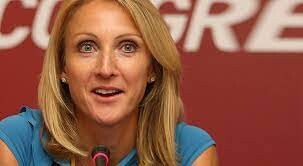
She said the start of a marathon was “inspirational” and conveyed “the warmth, empathy and power of the marathon family”.
Brighton Miles, an accessible running event on 6 April, will be launched by wheelchair athlete Weir.
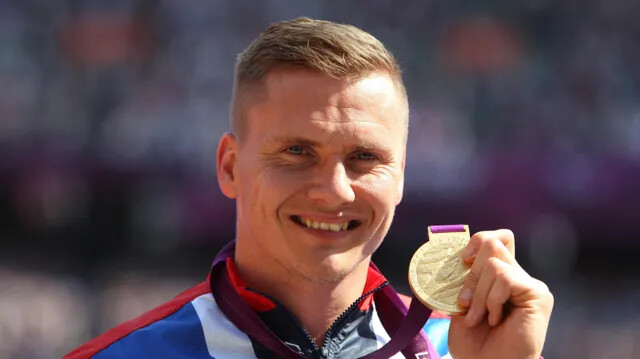
About 13,000 people are expected to run in this year’s Brighton Marathon, which is now in its 15th year.
“I’m delighted to be coming back to Brighton to start the 2024 Brighton Marathon,” said Radcliffe, who is an ambassador for Children with Cancer UK.
Weir praised the inclusivity of the Brighton Miles event, saying: “No matter your age, ability or disability, the Brighton Miles is for you.”
Entries for the Brighton Miles and the 10k are still available, however the Brighton Marathon is sold out.
by Zac Sherratt
Login to leave a comment
Brighton Marathon
The Brighton Marathon is one of the UK’s favorite marathons. With stunning coastal scenery in one of the country’s most energetic cities, this is the perfect race for runners with all different levels of experience. The fast and beautiful course of the Brighton Marathon makes this a ‘must do’on any runners list. Come and experience it for yourself over 26.2...
more...World record in danger! Three of the top four fastest women confirmed for London Marathon
The world record will be in danger with three of the top four fastest women in the history having been confirmed for the 2024 London Marathon.
World marathon record holder Tigst Assefa will brace up for a tough battle at the 2024 London Marathon that has attracted three of the top four fastest women in history.
The strong field assembled for the assignment on Sunday, April 21 will be keen to ensure that the women’s world record goes down one more time after being lowered during the 2023 Berlin Marathon.
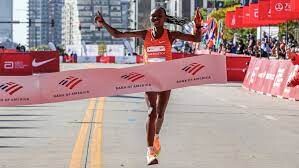
The record was set by Assefa, who became the new world record holder when she ran an incredible 2:11:53, obliterating the previous best mark of 2:14:04 set by Brigid Kosgei during the 2019 Chicago Marathon.
Assefa and Kosgei will now clash for the first time with Kosgei going for the world record which she noted belongs to Kenya.
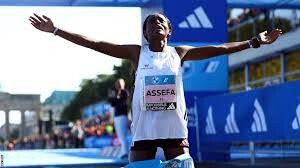
Others with eyes on the record include Ruth Chepng’etich, the fourth-fastest woman of all time (2:14:18), Peres Jepchirchir (Kenya), the reigning Olympic champion, and Yalemzerf Yehualaw (Ethiopia), the 2022 TCS London Marathon champion.
Pacemakers will be tasked with keeping the leading women on track for the women’s-only world record, which is possible at the TCS London Marathon as the elite women run a separate race to the elite men and masses.
Hugh Brasher, Event Director of the TCS London Marathon, said: “We are in a golden age of women’s marathon running.
“When Paula Radcliffe ran her incredible world record of 2:15:25 at the 2003 London Marathon, we had to wait 16 years for Brigid Kosgei to beat it.
“But since then, a further four women have run faster than Paula’s time including Tigst Assefa, who lowered the world record even further with her stunning run in Berlin last year.
“Despite this, the women’s-only world record of 2:17:01, set by the great Mary Keitany here at the London Marathon in 2017, has amazingly stayed intact.”
He added that however, he suspects that with Assefa, Kosgei and the likes of Chepng’etich, Jepchirchir and Yehualaw in the field, the world record is going to be under serious threat at the 2024 TCS London Marathon.
by Abigael Wuafula
Login to leave a comment
TCS London Marathon
The London Marathon was first run on March 29, 1981 and has been held in the spring of every year since 2010. It is sponsored by Virgin Money and was founded by the former Olympic champion and journalist Chris Brasher and Welsh athlete John Disley. It is organized by Hugh Brasher (son of Chris) as Race Director and Nick Bitel...
more...RAS AL KHAIMAH HALF MARATHON IS ON SATURDAY AND IT SHOUlD BE A FAST ONE
New regime, new course, but with Olympic and world champions and the usual array of speedsters, Saturday’s Ras Al Khaimah Half Marathon is virtually assured of the sort of fast times that have been a feature of the event throughout its 17 year history, including three women’s world records.
Pride of place both on the start list and at this morning’s press conference in one of the smaller emirates in the UAE were Olympic marathon and three time world half-marathon champion, Peres Jepchirchir of Kenya, and keeping the balance in the long-term East African distance running rivalry, world marathon champion Tamirat Tola of Ethiopia heads the men’s entry. The wild card, hoping to gatecrash the party is Konstanze Klosterhalfen of Germany, who surprised the East Africans when she beat a dozen of them to win her debut half-marathon in Valencia in 2022.
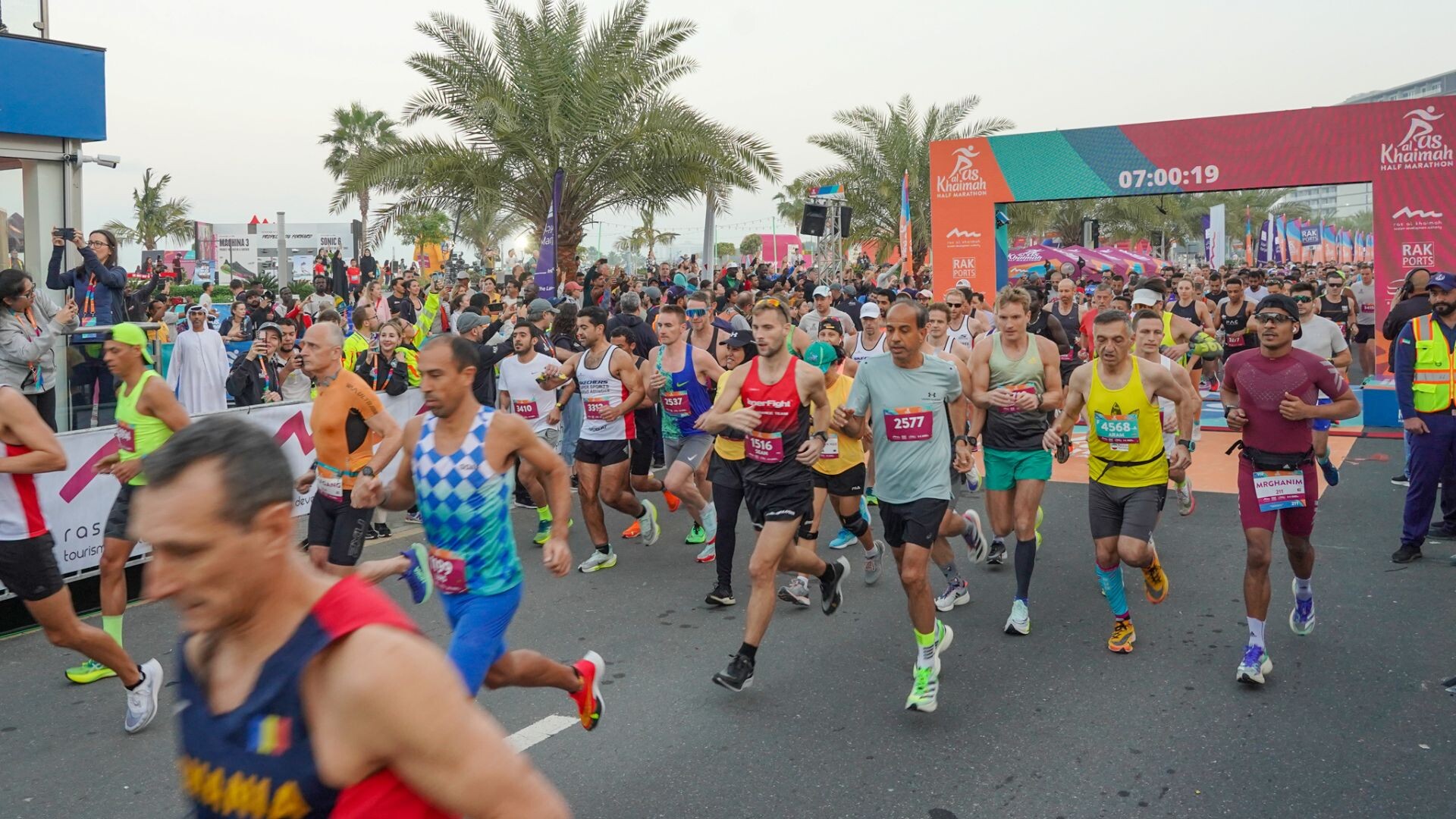
Jepchirchir may neither be the fastest marathoner or half-marathoner among current women long distance runners, but she knows how to win races, an asset far more valuable than fast times. In the seven months between late August 2021 and mid-April 2022, she won the Olympic, New York and Boston Marathons, a rare collective achievement. In her comeback marathon following an injury, she finished third in last year’s London Marathon. And she has won 12 of her 16 half-marathons. She is loath to admit her plans yet, but this RAK ‘half’ is perfectly scheduled as a springboard, to going back to London in April, to upgrade that third place.
Tola was similarly annoyed that an injury preventing him successfully defending his 2022 world marathon title in Budapest last summer, but a speedy recovery saw him break the long-standing New York Marathon record with 2.04.58 three months later. He is one of the few elites to be making his debut in the RAK ‘half’ and the scale of his task may be judged by the fact that on paper there are 15 men faster than his best of 59.37 set seven years ago in Prague. But he suggested that is due for drastic revision. ‘I’d like to think I can do under 59 minutes if the race turns out to be fast,’ he said at the press conference. Fastest man in the field is Daniel Mateiko of Kenya with 58.26, but his colleague Benard(sic) Kibet has the advantage of having won last year in 58.45.
Klosterhalfen, ‘Koko’ to her pals may prove to be not only the wild card, but the joker in the pack in the women’s race. A world bronze medallist on the track and European 5000 metres champion, the German called a halt to her summer season last year when a foot injury caused her to reassess her career. She had changed her shoe sponsor, left her coach and long-term training venue in the USA already. She then switched again and has teamed up with Gary Lough, latter-day coach to Mo Farah and spouse of former world record holder Paula Radcliffe (here in RAK as a TV commentator). Klosterhalfen has also switched her altitude training venue to Addis Ababa, where she has just spent six weeks, coming directly to here. ‘Road running is still a bit of an adventure for me’, she said this morning. ‘I still want to run on the track, but I want to more road races’.
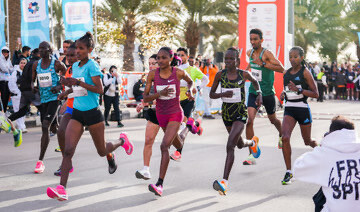
The roll-call of winners since the race began in 2007 is a ‘Who’s Who’ of distance running over the last two decades; beginning with Sammy Wanjiru and Berhane Adere in the inaugural race, via luminaries such as Patrick Makau, Geoffrey Mutai, Elvan Abeylegesse, Mary Keitany, Geoffrey Kamworor, Lelisa Desisa, Samson Kandie and Hellen Obiri. Add to that Jepchirchir herself who won in 2017 in a then world record of 65min 06sec.
The promoters of the successful marathon down the road in Dubai have been invited this year to give the RAK ‘half’ a makeover, and they began by introducing a 10k race for locals and altering the half-marathon course. ‘It’s faster and better than any route before here in Ras Al Khaimah; we’ve cut out some of the sharp turns,’ said race director Peter Connerton, ‘so we’re hoping for at least similar times and hopefully better. But with a couple of good races into the bargain’.
ELITE CONTENDERS
MEN
Daniel MateikoKEN58:26
Kennedy KimutaiKEN58:28
Seifu TuraETH58:36
Amdework Walelegn ETH 58:40
Benard Kibet KoechKEN58:45
Alex Korio KEN 58:51
Birhanu Legese ETH 58:59
Haftu Teklu ETH 59:06
Tamirat TolaETH59:37
WOMEN
Ababel YeshanehETH64:31
Margaret KipkemboiKEN64:46
Peres JepchirchirKEN65:06
Catherine Amanang’ole KEN 65:39
Konstanze KlosterhalfenGER65:41
Tsigie Gebreselama ETH65:46
Evaline ChirchirKEN66:01
Vivian Kiplagat KEN 66:07
Yalemget YaregalETH66:27
Login to leave a comment
Rak Half Marathon
The Rak Al Khaimah Half Marathon is the 'world's fastest half marathon' because if you take the top 10 fastest times recorded in RAK for men (and the same for women) and find the average (for each) and then do the same with the top ten fastest recorded times across all races (you can reference the IAAF for this), the...
more...Are periods a hinderance to better performance for female runners?
In an exclusive interview with Pulse Sports, Ferdinand Omanyala's fiancee, Laventa Amutavi opened up on whether periods affect a female runner's performance.
Being a female runner has been encompassed with different challenges like bouncing back after childbirth, hormonal imbalance, and period cramps. In the recent past, female athletes have been forced to pull out or perform poorly in major championships due to stomach cramps that are brought on by periods.
A good example of such a scenario was during the 2022 European Championships where Dina Asher-Smith and Daryll Neita made it to the 100m women’s final.
However, Asher-Smith was forced to withdraw from the race and Neita was not too quick to bag a gold medal, both because of cramps. Later, Asher-Smith revealed hers to be a symptom of her period and shared her frustration at its impact on her sport.
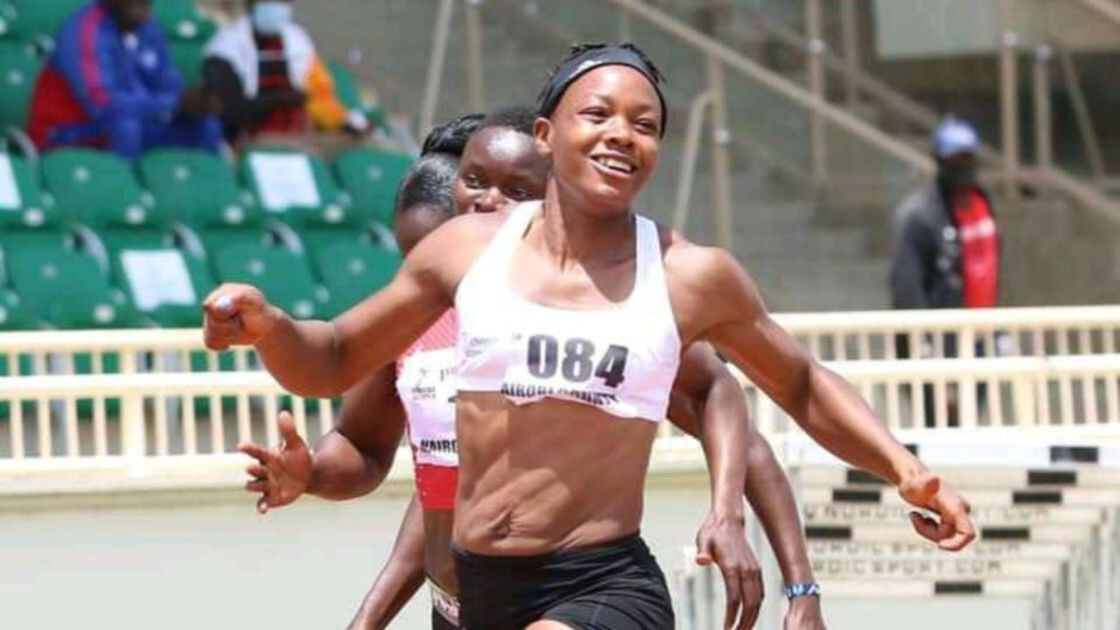
However, such case scenarios do not apply to every woman and some just treat those four or five days of their periods like normal days and maybe they would just adjust their training routines.
Ferdinand Omanyala’s fiancée, Laventa Amutavi, argues that her period days do not affect how she performs. Speaking to Pulse Sports, she insisted that it is not mentally draining since she has mastered the art of handling such days.
“It’s not challenging at all because I train even on days when I’m having my period…I can’t boycott my training because I’m on my period.
“I’m very lucky because I don’t experience cramps so I might not be able to understand the turmoil that women who have severe cramps go through.
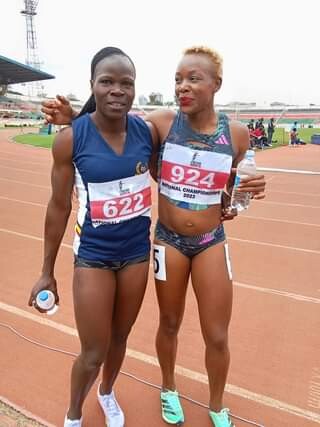
“Mostly, I don’t think cramps adversely affect sports people because, in my years in the sport, I’ve never heard people complain of severe cramps that force them to miss their training.
“I also think it’s because we are always very active so the effects and very minimal and the pain is manageable and it can’t stop someone from running their daily activities,” Amutavi said.
Amutavi added that her coach, Geoffrey Kimani, who is also Omanyala’s coach advised that during the time of a woman’s period, she is required to do very light training.
This is because women tend to lose a lot of nutrients during this time and heavy training will leave them weaker.
“During periods, my coach told me women tend to lose a lot of nutrients through the blood. So, during this period, an athlete is not supposed to train hard,” she added.
She also insisted that during competitions, periods should not be a hindrance to how an athlete performs.
“During a championship, you just compete…you need to take the safety measures to make sure you are okay and step on that starting line.
“It’s not a big deal…like at the World Championships, you can’t withdraw from the race due to that especially when you have made it to the final,” she said.
According to a study by Runner’s World, most women are keenly aware that the cramps menstruation can bring and elite athletes are not immune. Top Great Britain marathoner Aly Dixon says her cramps are so bad they have often left her curled into a fetal position.
“I’ve been very lucky that, in the last few years, races have fallen at the right time in my cycle. I’ve found that I can race quite well on day three, but the previous four days are not so good.
“I always try to make day one an easy or a rest day, as I often suffer with cramps so bad I can’t move from a curled-up ball on the sofa.
“I also get an achy back and heavy quads in the two days leading up to my period, which makes running hard a bit tougher, but my sessions still tend to go well,” she said.
While cramps might be horrible, they don’t need to ruin your race, and exercise itself can help to alleviate them. Paula Radcliffe proved the point when she broke the world marathon record in Chicago in 2002, despite suffering period cramps during the latter stages of the race.
Meanwhile, a journalist from the Mayo Clinic also asked Dr. Petra Casey about an elite athlete or some women who exercise a lot and tend to miss their periods.
“That is called hypothalamic amenorrhea, and what that means is that the hormones that are produced in the brain and then kind of cascade down to signal hormones that are produced in the ovary are not produced.
“So, GnRH, the gonadotropic releasing hormone that is produced, triggers the follicular stimulating hormone, and the luteinizing hormone that is produced in the ovary, that signal does not translate to production of estrogen and progesterone, so the woman loses her periods. They may become irregular initially and then they may stop completely.
“The trigger for that has been studied, and it’s still a little unclear whether it’s body fat percentage, whether it’s weight, whether it’s cortisol levels that stimulate a decrease in GnRH, based on stress and the intensity of workouts.
“All of that is a little bit unclear, but, at the end of the day, a woman will not have her period if she is too lean, and she may be working out too intensely for too long. Many women athletes are trying to become quite lean, because, in endurance sports, it’s advantageous to be lighter,” she said.
by Abigael Wuafula
Login to leave a comment
Beatrice Chebet ready to star in Seville
The Cross Internacional de Itálica in Santiponce on the outskirts of the Spanish city of Seville – the fourth Gold standard meeting in the current World Athletics Cross Country Tour – always boasts a mouth-watering line-up, and this year’s race on Sunday (12) is no exception.
Entries for the women’s race, contested over 9.9km, are headed by Kenya’s world cross-country and 5km champion Beatrice Chebet. The 23-year-old triumphed in Atapuerca two weeks ago and will be looking for her first victory here after her runner-up place in 2020 and a third place the following year.
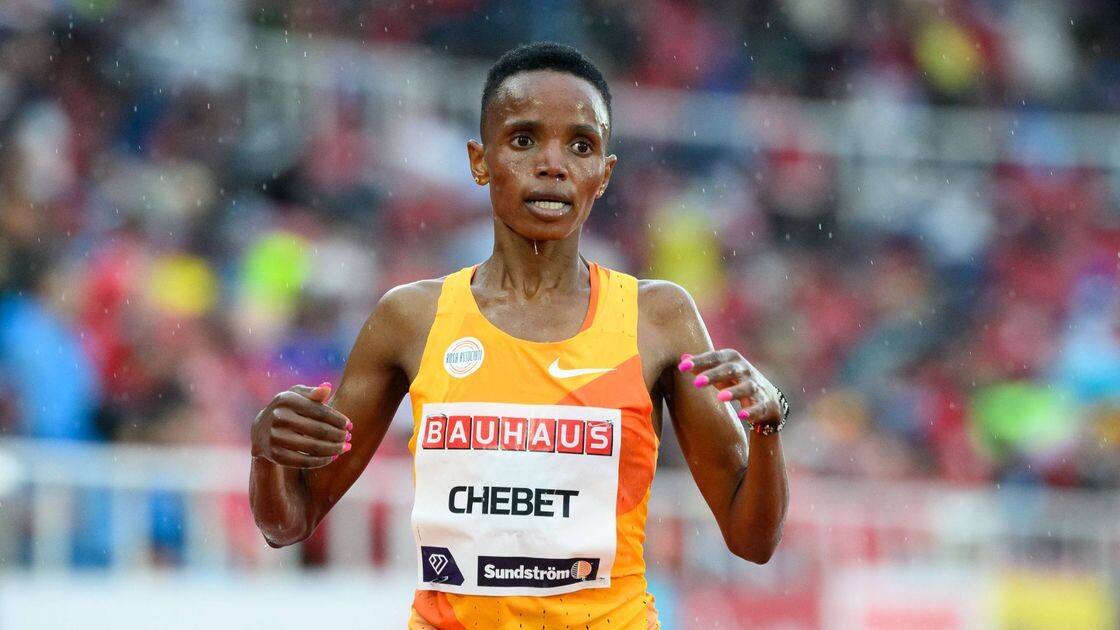
The world 5000m bronze medalist will be joined by her compatriot Edinah Jebitok, who was eighth at the World Cross in Bathurst and third in Atapuerca. The 1500m specialist was also a clear winner in San Sebastian last weekend.
World U20 cross-country champion Senayet Getachew and fellow Ethiopian Wede Kefale – who was 15th in the senior women’s race at this year’s World Cross – will also be in contention for a podium place.
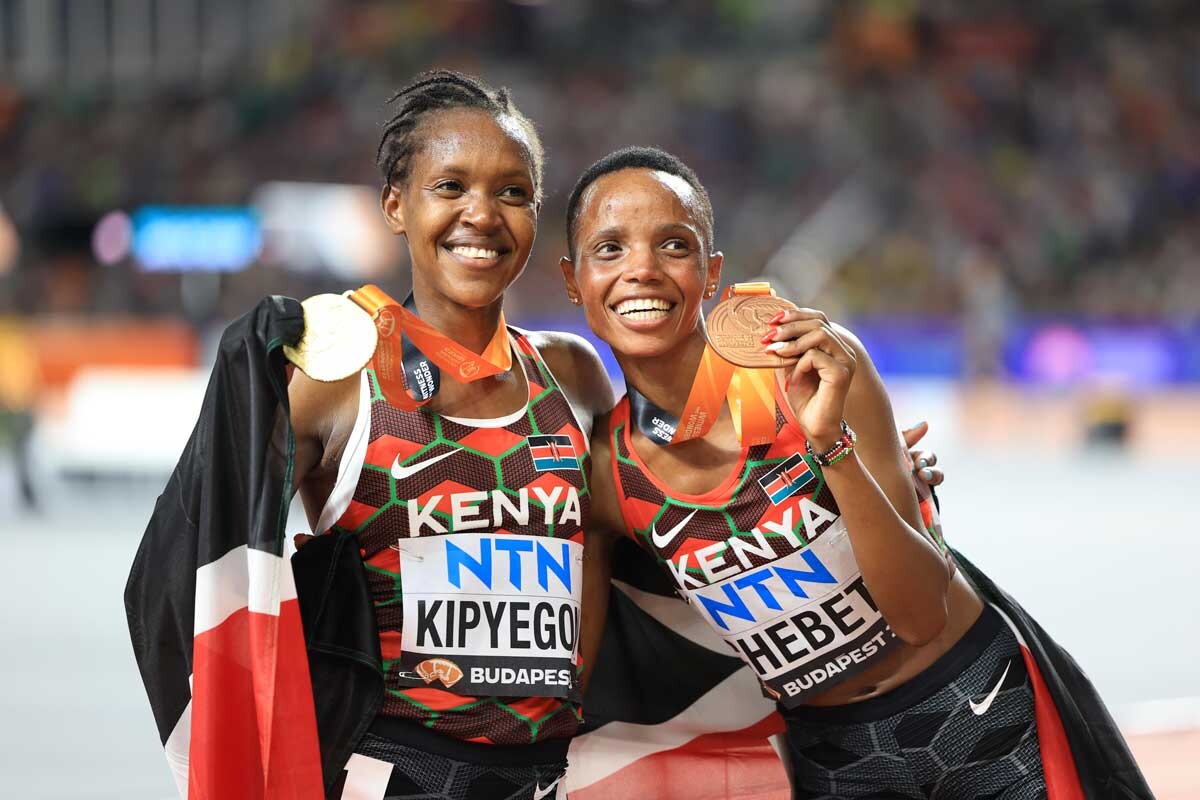
Uganda's Anne Chelangat, 13th at the World Cross and third last week in San Sebastián, is another strong contender.
World and Olympic finalist Nadia Battocletti will be racing in Santiponce for the first time. She recently placed fifth in the 5km at the World Road Running Championships in Riga, finishing just 10 seconds shy of Chebet, so will be trying her best to stay in contention with the Kenyan on Sunday.
The line-up also includes Spanish steeplechasers Irene Sánchez-Escribano and Carolina Robles plus European U20 cross-country champion María Forero and Britain's Amelia Quirk, who was 25th in Bathurst.
The men’s 9.9km contest looks set to be a three-way battle between the Kenyan pair of Ronald Kwemoi and Ishmael Kipkurui plus Burundi's Rodrigue Kwizera.
The 28-year-old Kwemoi will compete for the third consecutive time on Spanish ground after his runner-up spot in Atapuerca two weeks ago and a narrow win over Kipkurui last Sunday in San Sebastián. On that occasion, world U20 cross-country champion Kipkurui pushed hard for most of the race but he couldn't avoid being overtaken by world U20 1500m record-holder Kwemoi in a thrilling sprint finish with the two men being separated by one second.
Their Kenyan compatriot Hillary Chepkwoni, fresh from a huge PB of 58:53 at the Valencia Half Marathon three weeks ago, will also be on the start line.
Kwizera, co-winner of the 2022-2023 World Cross Country Tour, finished eighth at the World Cross Country Championships in Bathurst at the start of 2023. More recently he placed third in Atapuerca where he was beaten by Kwemoi over the closing stages but grabbed an easy victory last weekend in his Spanish base of Castellón at a low-key cross country race.
Eritrea’s Aron Kifle, the 2018 world half marathon bronze medalist, will be making his 2023 cross country debut on Sunday. He’ll be joined by compatriot Merhawi Mebrahtu, the world U20 5000m silver medalist, who finished second in Amorebieta and ninth in Atapuerca the following week.
Uganda’s 2022 world 5000m bronze medalist Oscar Chelimo, who recently finished third in San Sebastian, will contend for a top-five finish on Sunday. The 21-year-old will be joined by his compatriot Martin Kiprotich, who finished 18th at the World Cross in Bathurst.
The Spanish contingent will be headed by Mohamed Katir. The world 5000m silver medalist has been training in the altitude of Sierra Nevada since mid-October and will be back there right after the race for another week. He has planned a quiet cross-country campaign with only a few appearances.
Other Spaniards in the line-up include the in-form Abdessamad Oukhelfen, who was fourth in San Sebastian behind Chelimo, 2017 European cross-country silver medalist Adel Mechaal and national silver medalist Sergio Paniagua.
Adrian Ben, who finished fourth over 800m at this year’s World Championships, could also be in contention. The 25-year-old was a 1500m specialist at the beginning of his career and there's talk of a potential move back up in distance ahead of the Paris Olympics. Ben is fresh from a cross country victory over 5km in his native Lugo last Sunday when he defeated steeplechaser Víctor Ruiz.
Other noteworthy middle-distance specialists in the line-up include European U20 1500m and 5000m champion Niels Laros of the Netherlands and Britain's newly-minted world mile silver medalist Callum Elson.
Famous previous winners in Santiponce include Kenenisa Bekele (2003, 2004 and 2007), Fernando Mamede (1984 and 1985), Paul Kipkoech (1987 and 1988), Paul Tergat (1998 and 1999), Moses Kipsiro (2008 and 2009), Leonard Komon (2010 and 2011), Linet Masai (2010 and 2012) and Paula Radcliffe (2001), among others.
Weather forecasters predict a sunny and windless day with temperatures in the 20-22C range by the time of the event.
by World Athletics
Login to leave a comment
Cross internacional de Italica
The Cross Internacional de Itálica is an annual cross country running competition it will be held on 21st of November in Santiponce, near Seville, Spain. Inaugurated in 1982, the race course is set in the ruins of the ancient Roman city of Italica. As one of only two Spanish competitions to hold IAAF permit meeting status, it is one of...
more...How to train your mind like an elite athlete
What separates an elite athlete from the rest of us? Most people will argue they have a superhuman-like level of physical superiority that is unattainable for the average Joe. While it is true that most of us will never reach the levels of success of Eluid Kipchoge or Paula Radcliffe, there is one way we can be more like our running heroes–our mental game. In 2019, the Canadian non-profit Own the Podium gathered six elite sports psychologists to scour the current sports psychology research. They developed “The Gold Medal Profile for Sport Psychology” and published it in The Journal of Applied Sports Psychology. Want to know how to improve your mental game? We’ve broken down their findings here.
The mental elite
Yes, elite athletes are blessed with physical gifts that the rest of us don’t have. But that isn’t the only reason they’re successful. It’s their natural ability combined with their obsessive passion for practising and improving that has allowed them to rise above their peers and reach the highest level of sport. But how do these athletes stay so dedicated, even when things aren’t working out in their favour? How do they always seem to push through and carry on, no matter how tough a practice or competition gets?
The psychologists interviewed by Own The Podium have come up with 11 mental skills that the elites have mastered, broken down into three categories: fundamental skills, self-regulation skills and interpersonal skills. Olympic podiums may not be in your future, but improving these mental skills may help you snag that new PB or age-group podium you’re after.
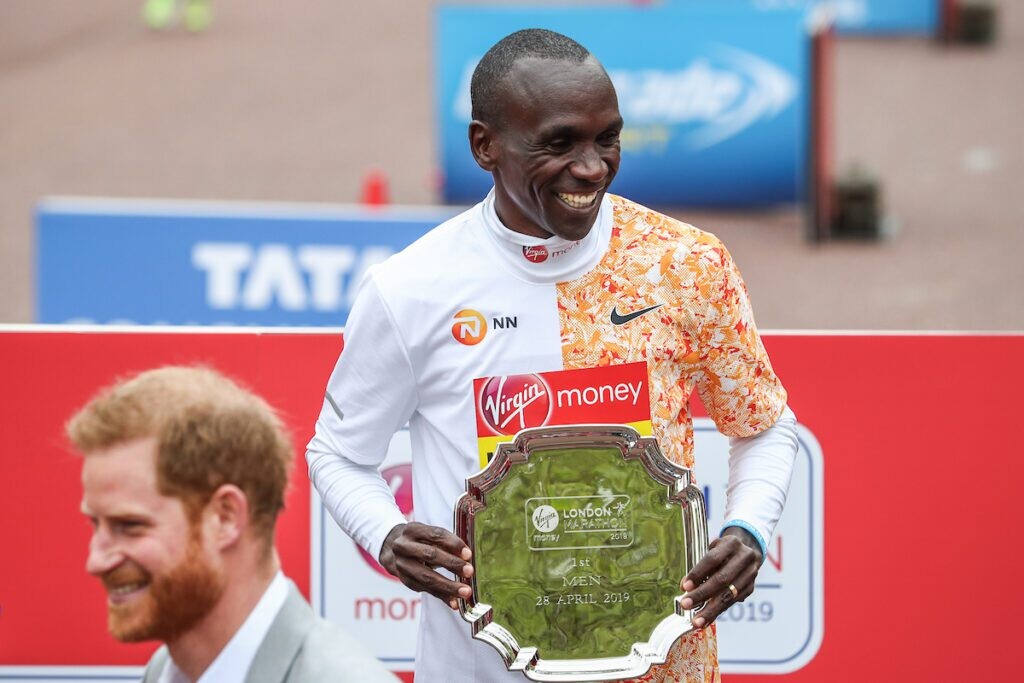
Fundamental skills
The psychologists deemed these skills as the most important, which is why they’re in the gold category.
Motivation: In particular, intrinsic motivation, which comes from within, rather than being dictated from someone or somewhere else. Intrinsic motivation results when someone has high levels of competence, relatedness and autonomy–i.e., they’re good at them and want to perform well for the sake of performing well, rather than for accolades or medals (even though those are usually be present also).
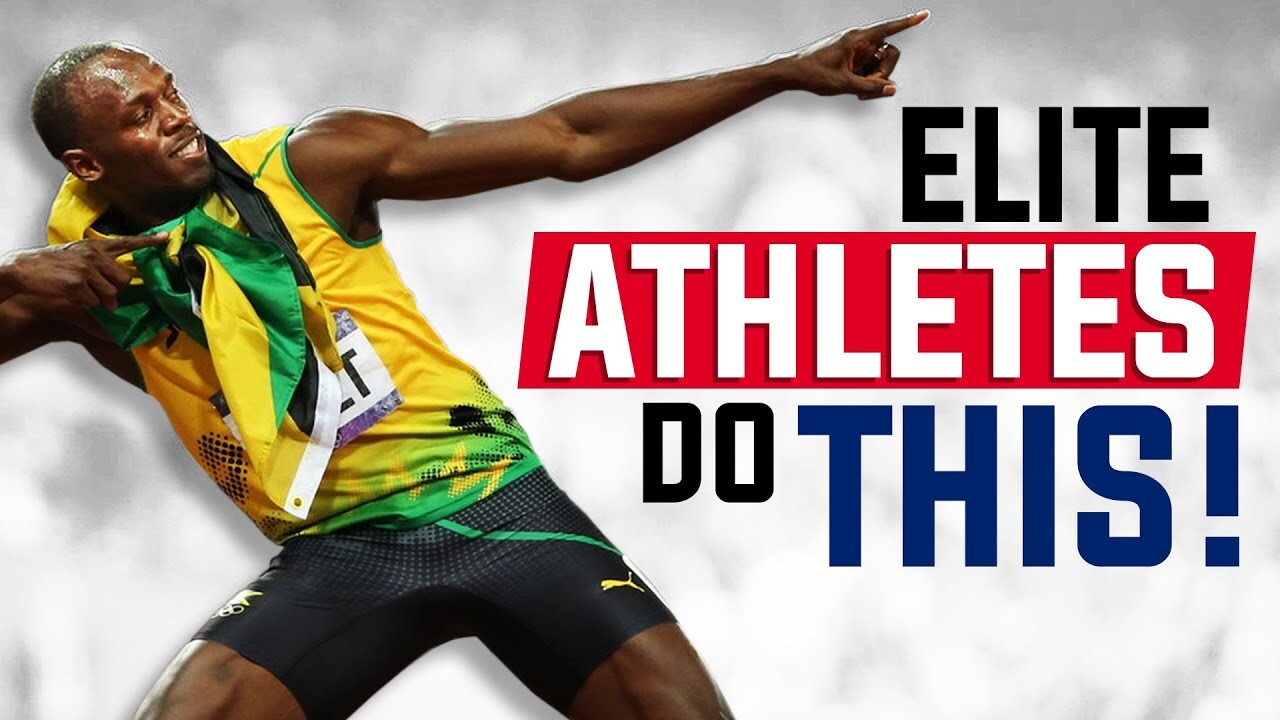
Confidence: You can watch countless interviews with athletes who have finally reached a career-long goal, and they all say something along the lines of: “I just knew I had it in me, I knew I could do it if I just kept at it.” If you believe you will achieve something, you’re much more likely to do so.
Resilience: Remember when Evan Dunfee made a heroic push to go from fifth to third in the final stretch of the men’s 50K race walk at the 2021 Olympics? Most of us would’ve counted ourselves out, but he didn’t. How many times have you watched an athlete fall in the first lap of a race, only to get up and storm back to take the win? Things don’t always go perfectly, but an athlete who can deal with and rise above adversity will always have the advantage.
Fundamental skills for recreational runners:
Don’t shy away from a challenge
Find a group to train with and keep you motivated
Believe in your ability to achieve your goal
Don’t throw in the towel just because conditions aren’t perfect or you encounter an injury or other setback
Self-regulation skills
These are in the silver category, and involve your ability to manage your thoughts and emotions in a way that helps (rather than hinders) achievement. They include mastering things like self-awareness, stress management, emotion and arousal regulation and attention control.
Self-regulation skills for recreational runners
Figure out what kind of psychological state you need to be in to perform well, and how “pumped up” you need to be before a workout or competition
Work on looking inwardly and understanding where you’re at psychologically at any given moment, so you can assess whether you’re “in the zone” or not
Figure out what tools you need (like deep breathing, upbeat music, etc.) to get yourself ready for competition
Practise focusing your attention on your body and its cues and filtering out distractions
Interpersonal skills
These are in the bronze category and describe how you deal with other people, like coaches, teammates and other competitors. They include aspects such as the athlete-coach relationship, leadership, teamwork and communication.
Interpersonal skills for recreational runners
Build yourself a good support system–get a coach or a dedicated running buddy, or join a running club
Communicate effectively with your coach or running friends. A good coach or running group can help you troubleshoot problems when you’re in a training rut.
Login to leave a comment
Sharon Lokedi, Hellen Obiri, Peres Jepchirchir and Brigid Kosgei to Race 2023 TCS New York City Marathon
Defending TCS New York City Marathon champion Sharon Lokedi, reigning Boston Marathon and United Airlines NYC Half champion Hellen Obiri, Olympic gold medalist and 2021 TCS New York City Marathon champion Peres Jepchirchir, and marathon world-record holder Brigid Kosgei will headline the women’s professional athlete field at the 2023 TCS New York City Marathon on Sunday, November 5.
When the four Kenyans line up in New York, it will be the first time in event history the reigning TCS New York City Marathon champion, Boston Marathon champion, Olympic champion, and world-record holder line up against each other in the TCS New York City Marathon.
Lokedi won the TCS New York City Marathon in her marathon debut last year, pulling away in the final two miles to finish in 2:23:23 and became the eighth athlete to win the race in their true 26.2-mile debut. In preparation for the marathon, Lokedi had raced the United Airlines NYC Half and the Mastercard New York Mini 10K, finishing fourth and second, respectively, in those races.
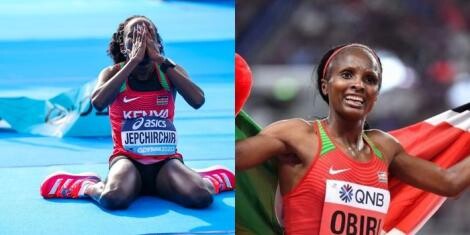
“Last year, I came into the TCS New York City Marathon with the goal of being in the thick of the race, and the result was better than I could have ever hoped for,” Lokedi said. “This year, I’m returning with a different mindset, hungry to defend my title and race against the fastest women in the world.”
Obiri is a two-time Olympic medalist and seven-time world championships individual medalist who earlier this year won the Boston Marathon in her second-ever attempt at the distance, in addition to winning the United Airlines NYC Half in her event debut. Obiri holds the Kenyan record for 3,000 meters and represented Kenya at the Rio 2016 and Tokyo 2020 Olympics, earning silver medals in the 5,000 meters at both. In her marathon debut last year in New York, she finished sixth.
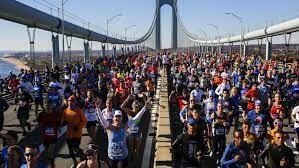
“With a year of marathon experience now under my belt, a win in Boston, and my move to the U.S., I’m coming to New York this year with more confidence and in search of a title,” Obiri said. “I’m excited to show the people of New York what I’m capable of and that my win at the United Airlines NYC Half in March was just the beginning.”
Jepchirchir is the only athlete to have won the Olympic marathon, TCS New York City Marathon, and Boston Marathon. She is also a two-time world championships gold medalist in the half marathon. In 2021, she won the Tokyo Olympic marathon to claim Kenya’s second consecutive gold medal in the event. Four months later, she won the TCS New York City Marathon, finishing in 2:22:39, the third-fastest time in event history and eight seconds off the event record. In April 2022, in a back-and-forth race that came down to the final mile, she fended off Ethiopian Ababel Yeshaneh to take the Boston Maraton title on Boylston Street in her debut in the race in 2:21:02. This April, she recorded another podium finish, taking third at the TCS London Marathon.
“I was so disappointed that I couldn’t defend my title in New York last year due to an injury, and winning again in Central Park has been my main motivation as I begin my preparations for the autumn,” Jepchirchir said. “New York is an important step in defending my Olympic gold medal next summer in Paris, and I will do my best to make my family and my country proud.”
Kosgei is the world-record holder in the marathon and has won an Olympic silver medal and five Abbott World Marathon Majors races; she will now make her TCS New York City Marathon debut. In 2019, Kosgei broke Paula Radcliffe’s 16-year-old world record by 81 seconds, running 2:14:04 to win the Chicago Marathon. It was her second Chicago Marathon victory, as she’d also won in 2018. Additionally, she won back-to-back London Marathons in 2019 and 2020, the Tokyo Marathon in 2022, and the silver medal at the Tokyo Olympic marathon.
“I am very excited to make my New York City debut this fall, and attempt to win my fourth different Major,” Kosgei said. “I am not worried about the course, as I have had success in hilly marathons before, but New York has always been about head-to-head competition, and I know I must be in the best possible shape to compete with the other women in the race.”
The 2023 TCS New York City Marathon women’s professional athlete field is presented by Mastercard®. The full professional athlete fields will be announced at a later date.
The 2023 TCS New York City Marathon on Sunday, November 5 will have 50,000 runners and be televised live on WABC-TV Channel 7 in the New York tristate area, throughout the rest of the nation on ESPN2, and around the world by various international broadcasters.
by Running USA
Login to leave a comment
TCS New York City Marathon
The first New York City Marathon, organized in 1970 by Fred Lebow and Vince Chiappetta, was held entirely in Central Park. Of 127 entrants, only 55 men finished; the sole female entrant dropped out due to illness. Winners were given inexpensive wristwatches and recycled baseball and bowling trophies. The entry fee was $1 and the total event budget...
more...When Will Eliud Kipchoge Slow Down?
What we can learn from the world’s greatest distance runner of all-time while he’s still in his prime
Eliud Kipchoge has expanded the universe of what’s humanly possible in the marathon, and he will forever remain a legend in the sport of long-distance running.
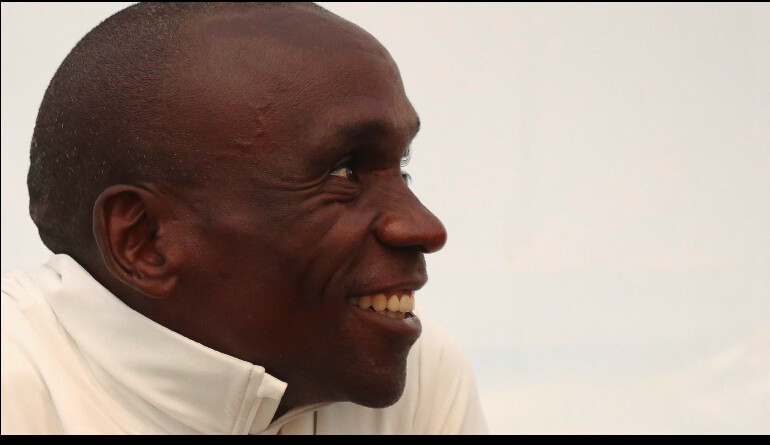
Not only for himself, but especially for those who have come after him. That includes everyone, both elite and recreational runners, who are preparing a marathon this fall or some distant point in the future. His current 2:01:09 world record and his barrier-breaking 1:59:40 time-trial effort in 2019 are legendary feats, both for the current generation of runners and for all time.
The 38-year-old Kenyan marathoner is a once-in-a-lifetime athlete, but time waits for no one, and especially not a long-distance runner. Like all elite athletes, his time at the top is limited, but fortunately, there is still time to immerse in the inspirational examples he’s providing.
Kipchoge recently announced he’ll return to the Berlin Marathon on September 24, where, last year, he won the race for the fourth time and lowered the world record for the second time. It is most likely what will be the beginning of a grand denouement as he goes for another gold medal at the 2024 Olympics next summer in Paris.
Given that he won his first global medal in the City of Light—when, at the age of 18, he outran Moroccan legend Hicham El Guerrouj and Ethiopian legend-in-the-making Kenenisa Bekele to win the 5,000-meter run at the 2003 world championships—it would certainly be one of the greatest stories ever told if he could win the Olympic marathon there next year when he’s nearly 40.
Certainly he’ll run a few more races after the Olympics—and maybe through the 2028 Olympics in Los Angeles—but, realistically, it is the start of a farewell tour for a runner who will never be forgotten.
Don’t get me wrong: I’m not at all writing Kipchoge off. In fact, I am excited to see him run in Berlin and can’t wait to watch next year’s Olympic marathon unfold. But just as we’ve watched Michael Jordan, Tiger Woods, Serena Williams, Shalane Flanagan, Usain Bolt, Allyson Felix, and other elite athletes succumb to the sunsetting of their peak performance level, so too will Kipchoge eventually suffer the same fate.
What I’m saying here is that we still have time to watch and appreciate Kipchoge eloquently working his magic and continue to be inspired in our own running and other pursuits in life. Remember how we marveled at Michael Jordan’s greatest in “The Last Dance” more than 20 years after his heyday? This is the start of the last dance for Kipchoge, who, like Jordan, is much, much more than a generational talent; he’s an all-time great whose legacy will transcend time.
Running has seen many extraordinary stars in the past 50 years who have become iconic figures— Frank Shorter, Joan Benoit Samuelson, Ted Corbitt, Carl Lewis, Steve Jones, Paul Tergat, Catherine Ndereba, Paula Radcliffe, Haile Gebrselassie, Kenenisa Bekele, Mary Keitany, Brigid Kosgei, and Kilian Jornet, to name a few—but none have come close to the body of work and global influence of Kipchoge.
Not only is Kipchoge one of the first African athletes to become a household name and truly command a global audience, but he’s done more than other running champions because of he’s been able to take advantage of this advanced age of digital media to deliberately push positive messages and inspiring content to anyone who is willing to receive it.
Kipchoge has won two Olympic gold medals, set two world records, and won 17 of the 19 marathons he entered, but he’s so much less about the stats and bling and more sharing—to runners and non-runners alike—that “no human is limited” and also that, despite our differences, we’re all human beings faced with a lot of the same challenges in life and, ultimately, hard work and kindness are what put us on the path to success.
How can an average runner who works a nine-to-five job and juggles dozens of other things in daily life be inspired by an elite aerobic machine like Kipchoge?
He is supremely talented, no doubt, but many elite runners have a similar aerobic capacity to allow them to compete on the world stage. What Kipchoge uniquely possesses—and why he’s become the greatest of all-time—is the awareness and ability to be relentless in his pursuit of excellence, and the presence and good will of how beneficial it is to share it.
If you haven’t been following Kipchoge or heard him speak at press conferences or sponsor events, he’s full of genuine wisdom and encouragement that can inspire you in your own running or challenging situation in life. His words come across much more powerfully than most other elite athletes or run-of-the-mill social media influencers, not only because he’s achieved at a higher level than anyone ever has, but because of his genuine interest in sharing the notion that it’s the simplest values—discipline, hard work, consistency, and selflessness—that make the difference in any endeavor.
This is not a suggestion to idolize Kipchoge, but instead to apply his wisdom and determination into the things that challenge you.
“If you want to break through, your mind should be able to control your body. Your mind should be a part of your fitness.”
“Only the disciplined ones in life are free. If you are undisciplined, you are a slave to your moods and your passions.”
“If you believe in something and put it in your mind and heart, it can be realized.”
“The best time to plant a tree was 25 years ago. The second-best time to plant a tree is today.”
Those are among the many simple messages that Kipchoge has lived by, but he also openly professess to giving himself grace to take time for mental and physical rest and recovery. It’s a simple recipe to follow, if you’re chasing your first or fastest marathon, or any tall task in life.
Kipchoge seems to defy age, but his sixth-place finish in the Boston Marathon in April proved he’s human. As much as it was painful to watch him falter, it was oddly refreshing and relatable to see him be something less than exceptional, and especially now that he’s tuning up for Berlin. He has nothing left to prove—to himself, to runners, to the world—but he’s bound to keep doing so just by following the same simple, undaunted regimen he always has.
There will be other young runners who will rise and run faster than Kipchoge and probably very soon. Fellow Kenyan Kelvin Kiptum—who has run 2:01:53 (Valencia) and 2:01:25 (London) in his first two marathons since December—seems to be next in line for Kipchoge’s throne of the world’s greatest runner. But even after that happens, Kipchoge’s name will go down in history alongside the likes of Paavo Nurmi, Abebe Bikila, Emil Zátopek, Grete Waitz, Shorter and Samuelson because of how he changed running and how he gave us a lens to view running without limits.
Berlin is definitely not the end of Kipchoge’s amazing career as the world’s greatest long-distance runner. I fully expect him to win again in an unfathomable time. But the sunset is imminent and, no matter if you are or have ever been an aspiring elite athlete at any level, a committed recreational runner, or just an occasional jogger trying to reap the fruits of consistent exercise, his example is still very tangible and something to behold.
by Outside Online
Login to leave a comment
Chepngetich, Hassan and Sisson to clash at Chicago Marathon
Ruth Chepngetich returns to defend her title at the Bank of America Chicago Marathon, a World Athletics Platinum Label road race, and will face a field that features London Marathon winner Sifan Hassan and US record-holder Emily Sisson.
Chepngetich won last year’s race in 2:14:18 – just 14 seconds shy of the world record and the second-fastest women’s marathon performance of all time.
Kenya’s 2019 world champion will be back in Chicago on the hunt for her third consecutive victory on October 8, following her inaugural win in the US city in 2021, when she ran 2:22:31.
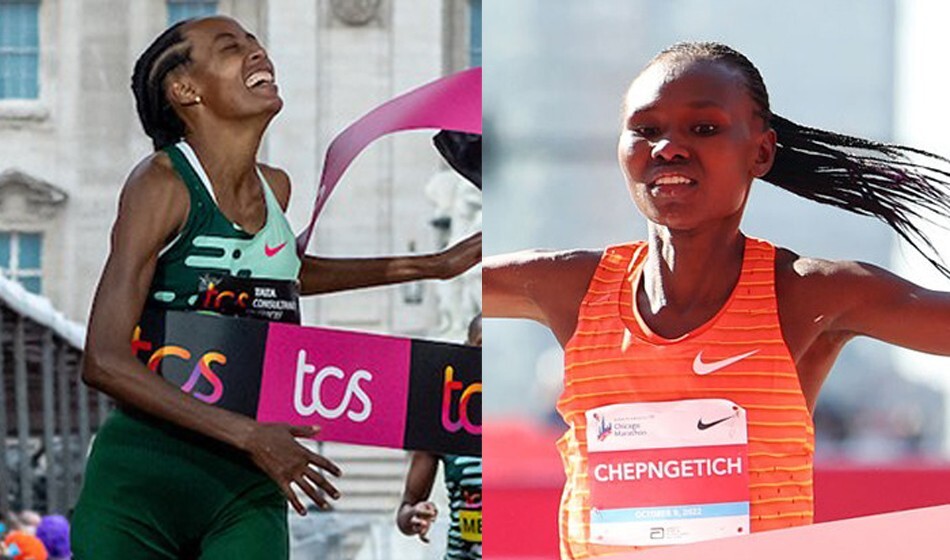
“I am planning to defend my title and improve my time,” said Chepngetich. “There's no better race in the world than the Bank of America Chicago Marathon.”
To do so, she will have to defeat double Olympic gold medallist Hassan of the Netherlands. Hassan made her marathon debut in London in April when, despite stopping to stretch twice, she closed a 25-second gap on the leaders to win and set a national record of 2:18:33.
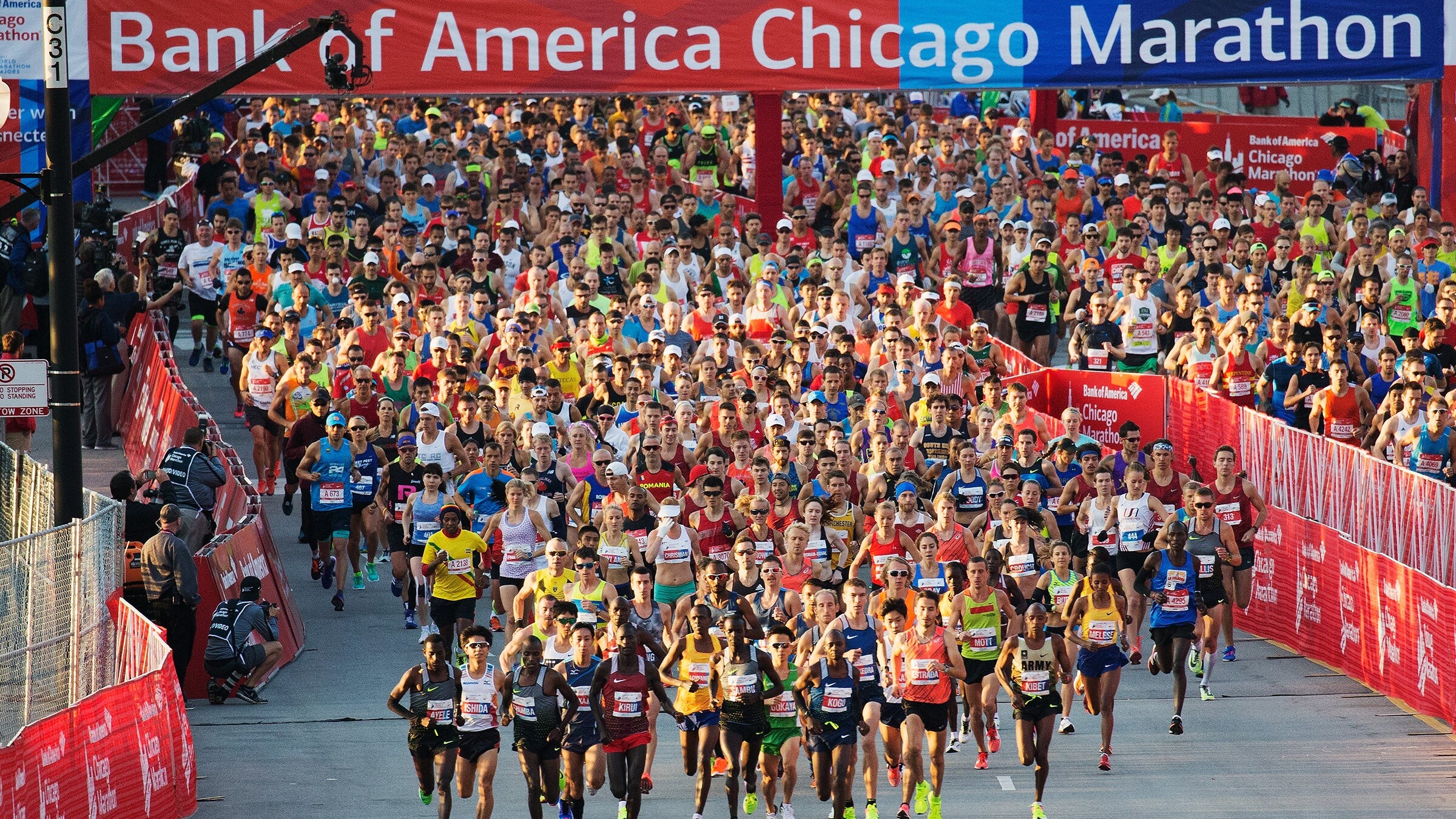
Hassan plans to compete on the track at the World Athletics Championships Budapest 23, less than six weeks before returning to the roads to race in Chicago.
“At the moment, my focus is on the World Championships in Budapest, so my marathon preparation will be very short, but as most people know, I like to be challenged,” said Hassan.
“I will see how my body responds and how my mind handles it. The good thing is that I have the experience from London so I'm looking forward to Chicago, to see what the marathon can teach me this time.”
Unlike Hassan, Sisson will skip the track season to focus on getting ready for Chicago. Last year’s runner-up, Sisson finished in 2:18:29, demolishing the US record by 43 seconds. Sisson, who also holds the US record in the half marathon, said the deep field improves her chances of running even faster this year.
“Chicago is where I set the American marathon record last year,” said Sisson. “I am really looking forward to coming back for another great race in October.”
Legendary matchups have long made for thrilling finishes in Chicago.
In 1985, a gruelling duel between Olympic champion Joan Benoit Samuelson and then world record-holder Ingrid Kristiansen saw Benoit Samuelson outlast her Norwegian competitor and set a US record.
In 2002, British world champion Paula Radcliffe defeated Kenya’s Catherine “The Great” Ndereba and shattered Ndereba' world record in the process. And in 2017, three-time Olympic gold medallist Tirunesh Dibaba took down rising star and future world record-holder Brigid Kosgei.
Chepngetich and Hassan have clashed once before, in the 2018 Copenhagen Half Marathon where Hassan broke the European record with 1:05:15 in what was her first serious attempt at the distance and Chepngetich finished fifth in 1:07:02.
The sole clash between Chepngetich and Sisson so far came at last year’s Chicago Marathon, while Hassan and Sisson have raced each other on four occasions, in the 5000m and 10,000m, with the record so far 4-0 in Hassan’s favor.
by William Njuguna
Login to leave a comment
Bank of America Chicago
Running the Bank of America Chicago Marathon is the pinnacle of achievement for elite athletes and everyday runners alike. On race day, runners from all 50 states and more than 100 countries will set out to accomplish a personal dream by reaching the finish line in Grant Park. The Bank of America Chicago Marathon is known for its flat and...
more...Chepngetich, Hassan and Sisson in Chicago Marathon clash
Ruth Chepngetich returns to defend her title at the Bank of America Chicago Marathon, a World Athletics Platinum Label road race, and will face a field that features London Marathon winner Sifan Hassan and US record-holder Emily Sisson.
Chepngetich won last year’s race in 2:14:18 – just 14 seconds shy of the world record and the second-fastest women’s marathon performance of all time.
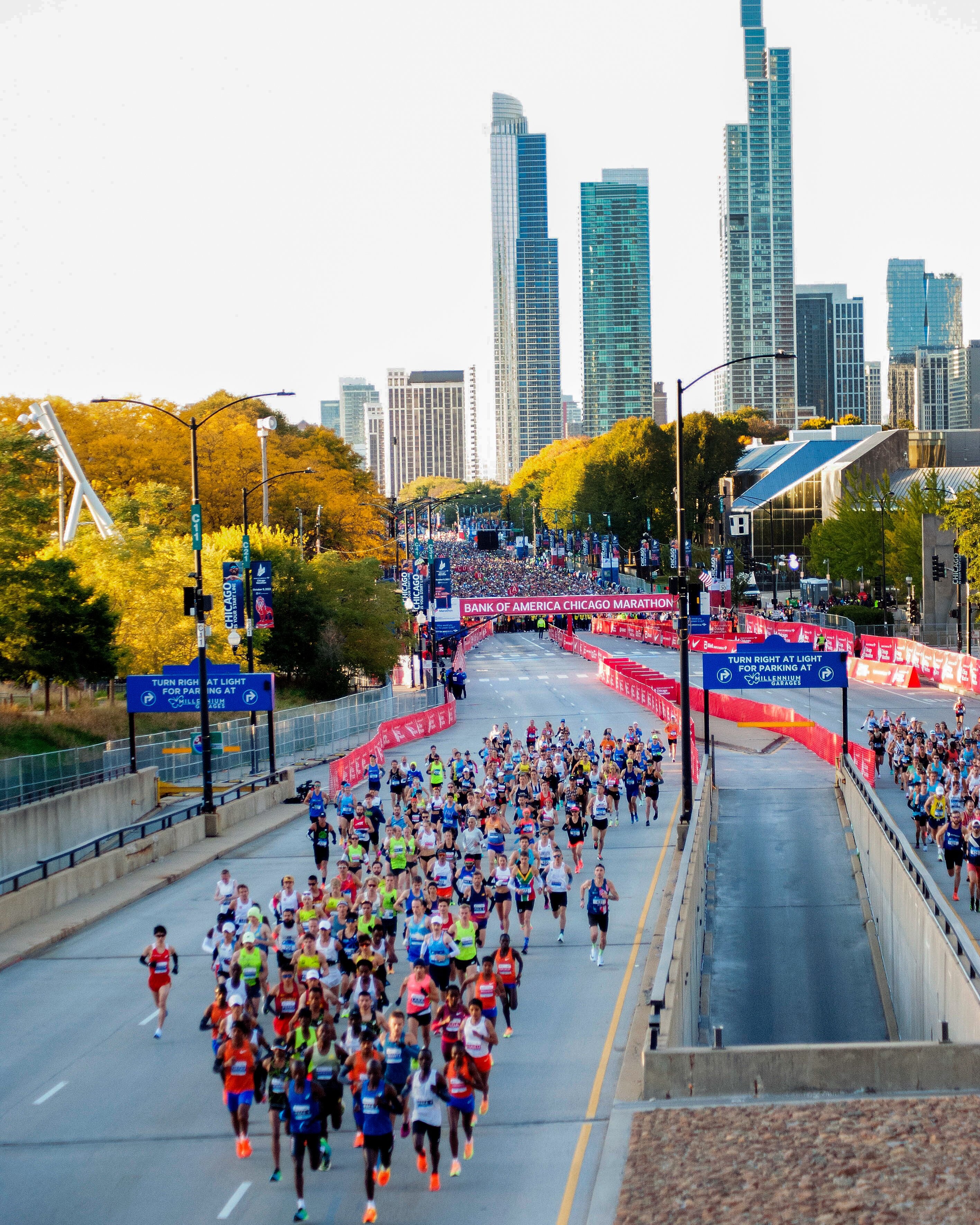
Kenya’s 2019 world champion will be back in Chicago on the hunt for her third consecutive victory on 8 October, following her inaugural win in the US city in 2021, when she ran 2:22:31. In 2023, she hopes to run her fastest time yet.
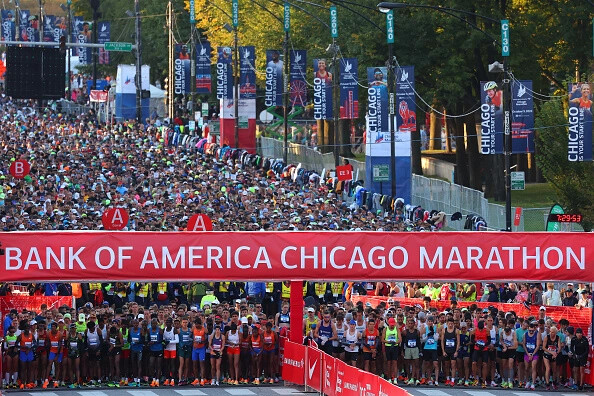
“I am planning to defend my title and improve my time,” said Chepngetich. “There's no better race in the world than the Bank of America Chicago Marathon.”
To do so, she will have to defeat double Olympic gold medallist Hassan of the Netherlands. Hassan made her marathon debut in London in April when, despite stopping to stretch twice, she closed a 25-second gap on the leaders to win and set a national record of 2:18:33. Hassan plans to compete on the track at the World Athletics Championships Budapest 23, less than six weeks before returning to the roads to race in Chicago.
“At the moment, my focus is on the World Championships in Budapest, so my marathon preparation will be very short, but as most people know, I like to be challenged,” said Hassan. “I will see how my body responds and how my mind handles it. The good thing is that I have the experience from London so I'm looking forward to Chicago, to see what the marathon can teach me this time.”
Unlike Hassan, Sisson will skip the track season to focus on getting ready for Chicago. Last year’s runner-up, Sisson finished in 2:18:29, demolishing the US record by 43 seconds. Sisson, who also holds the US record in the half marathon, said the deep field improves her chances of running even faster this year.
“Chicago is where I set the American marathon record last year,” said Sisson. “I am really looking forward to coming back for another great race in October.”
Legendary matchups have long made for thrilling finishes in Chicago. In 1985, a gruelling duel between Olympic champion Joan Benoit Samuelson and then world record-holder Ingrid Kristiansen saw Benoit Samuelson outlast her Norwegian competitor and set a US record. In 2002, British world champion Paula Radcliffe defeated Kenya’s Catherine “The Great” Ndbera and shattered Ndbera’s world record in the process. And in 2017, three-time Olympic gold medallist Tirunesh Dibaba took down rising star and future world record-holder Brigid Kosgei.
Chepngetich and Hassan have clashed once before, in the 2018 Copenhagen Half Marathon where Hassan broke the European record with 1:05:15 in what was her first serious attempt at the distance and Chepngetich finished fifth in 1:07:02. The sole clash between Chepngetich and Sisson so far came at last year’s Chicago Marathon, while Hassan and Sisson have raced each other on four occasions, in the 5000m and 10,000m, with the record so far 4-0 in Hassan’s favour.
Login to leave a comment
Bank of America Chicago
Running the Bank of America Chicago Marathon is the pinnacle of achievement for elite athletes and everyday runners alike. On race day, runners from all 50 states and more than 100 countries will set out to accomplish a personal dream by reaching the finish line in Grant Park. The Bank of America Chicago Marathon is known for its flat and...
more...Eilish McColgan has had a spectacular year and now she has her sights set on competing at the Olympics in the marathon but she has not run a marathon yet
After three decades immersed in athletics, there are not too many times now when Eilish McColgan is stepping into the unknown.
Next Sunday, however, will be one of those unusual occasions when she stands on the start line not knowing quite what to expect as she will make her marathon debut in London.

For all the thousands upon thousands of miles she has run in training over the years, she is treading new ground.
“I’ve never run 26 miles,” she says. “I don’t actually know many athletes who do the full distance in training.
“We coach amateur runners and we advise not to do more than 22 miles in training and that’s what I’ve been doing myself. There is the mental aspect of can you actually get round 26 miles? But I’ve done 22-mile runs and I had no doubt at the end of them I could have run another four-mile loop. So it’s not so much the distance for me that will be tough, it’s going to be the pace of it.
“There’s a big difference between a long run and a hard, hard effort for that long. So for me, that’s what’s unknown and not something I’ve particularly tested in training.
“I think that’s something that only comes with the experience of racing.”
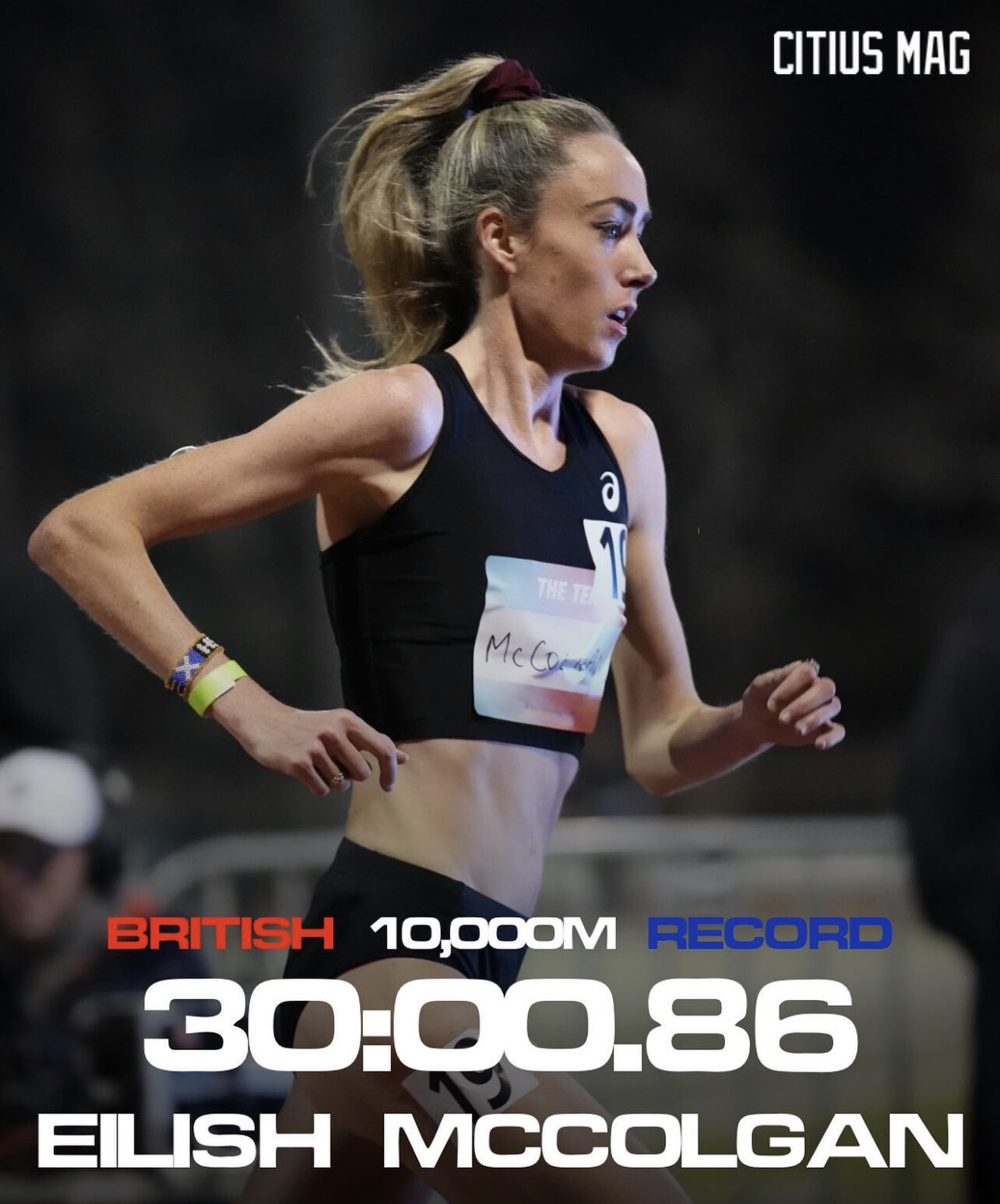
McColgan is certainly not easing herself in gently. London boasts the strongest women’s marathon field ever assembled with defending champion and world 10k record holder Yalemzerf Yehualaw, marathon world record holder Brigid Kosgei and Olympic champion Peres Jepchirchir all going to be on the start line.
However, with the 32-year-old from Dundee having had the year of her life over the past 12 months, she could not be in a better frame of mind.
McColgan has been on the international scene since 2012, when she competed in her first Olympic Games, but it was in 2022 that she really grabbed the spotlight.
Commonwealth gold in the 10,000m in Birmingham was the most memorable of her performances, but that win was accompanied by a raft of Scottish, British and European records both on the track and on the road.
McColgan has continued her sparkling form into 2023, with her opening appearance of the year a run over 10,000m of 30 minutes 0.86 seconds, breaking Paula Radcliffe’s long-standing national record and smashing her own personal best by 19 seconds.
That was followed by a win at the Berlin Half Marathon two weeks ago in yet another British record and McColgan admits that despite the trepidation that is certainly present about running her first marathon, she is in a confident mood.
“I’m really pleased with my runs. To have come away with British records and such big PBs, I was really happy,” she says. “It’s given me quite a lot of confidence knowing that the training I’m doing is really suited to me.
“I know for sure I can run a good 5k, a good 10k and a good half marathon so now the question is whether or not I can run a good marathon because it’s something I’ve never done. I’m certainly in a better place to run the marathon now than I ever have been but how I actually cope with it, we won’t know till race day.”
The one, and perhaps only, down side of McColgan’s spectacular year is that expectations from observers are now sky-high regarding what she is likely to achieve in London.
However, McColgan is far too pragmatic and too experienced to expect anything spectacular and instead, she sees next weekend’s race as the start of her marathon journey which will, she hopes, lead to the start line of the Olympic marathon in Paris next summer.
“This first marathon is about getting the experience of it,” she says. “I’m in a much stronger position than I’ve ever been and so I’ve given myself the best opportunity to run a good marathon but there’s a lot of things that come into play on the day with regard to the mental side of it, the physical side of covering that sort of distance at that fast pace and the fuelling side of things to make sure I don’t hit the wall.
“There’s a lot more elements that come into a marathon than do on the track or on the shorter road races.
“I know other people maybe expect me to go to London and be competitive but that’s not realistic.
“I’m going into the best marathon field that’s ever been assembled so I have to be realistic with what I can achieve within that. I’m certainly not going in there to win.”
McColgan may not be targeting a podium place but she is not lacking goals for the race.
With the 2024 Olympic Games already in her mind, qualification for Paris is of primary importance – and ideally sooner rather than later – but she also has her mum, Liz’s, one remaining time that is faster than her in her sights over those 26.1 miles in London.
“I have a few goals for London,” she says. “Firstly, I want to get round in one piece. That’s my No.1 goal – to get round and feel like yes, I want to do the marathon at the Paris Olympics,” she says.
“Secondly, this is the final PB that my mum still has of 2 hours 26 mins. Steph Twell took her Scottish record a couple of years ago when she ran 2:25 so I have that in my head as a time target.
“I do feel I’m capable of running faster than my mum and getting that Scottish record and it’d be a triple-whammy because it’d be a qualifying time for the Paris Olympics too.
“I’d like to be competitive against the British girls and if I can do that, I think I can knock those three goals off in the process.
“If I can achieve all my personal goals, that’d be a good day for me.”
by Susan Egelstaff
Login to leave a comment
TCS London Marathon
The London Marathon was first run on March 29, 1981 and has been held in the spring of every year since 2010. It is sponsored by Virgin Money and was founded by the former Olympic champion and journalist Chris Brasher and Welsh athlete John Disley. It is organized by Hugh Brasher (son of Chris) as Race Director and Nick Bitel...
more...Six Best Marathon Runners of all time
The marathon is one of the toughest running events. This event is set at 26.2 miles or 42.195 kilometers, as presented by the International Association of Athletic Federations (IAAF) in 1921.
It's a significantly long-distance race that most people could not complete. It takes lots of training. One of the most famous marathon is Boston coming up Monday April 17. And one of our top six will be running, Eliud Kipchoge. So here are our six marathoners as the best of all time. What are your top six?
Eliud Kipchoge
Eliud Kipchoge easily tops this list as being the GOAT (greatest of all time!) in marathon history. He's a Kenyan runner that participated in marathons and used to specialize in the 5000-meter distance. Kipchoge has already made history and set a world record last September 2018 in Berlin after he completed the distance set for the Olympic men's race with 2:01:39.
No one else was able to defeat the record for several years until Eliud Kipchoge himself broke his own record at his fifth Berlin marathon last year, September 2022 with 2:1:9. It's a 30-second gap from his initial world record, which is a significant improvement already as a runner.
Not only that but he's also been a three-time London and Berlin champion since 2015! At 38 years old, he's already achieved so much, and he's not stopping just yet. Kipchoge also informed everyone that he'll be aiming for the Paris 2024 games, so you should also wait for that and check the updates on FanDuel Sports online.
Haile Gebrselassie
Next on the list is truly one of the marathon legends who dominated the industry when he was still active. Haile Gebreselassie is an Ethiopian long-distance runner who retired last 2015 after over 20 years of long-distance running. He's been active from the late 90s to the early 2000s, and a few of his astonishing achievements include consecutively winning the Berlin Marathon four times and the Dubai Marathon three times.
He also has four World Championship titles (1993 Stuttgart, 1995 Gothenburg, 1997 Athens, and 1999 Seville) and two Olympic golds (1996 Atlanta and 2000 Sydney) in a 10,000-meter distance run. Although he's no longer in the running scene, his legendary achievements will live long.
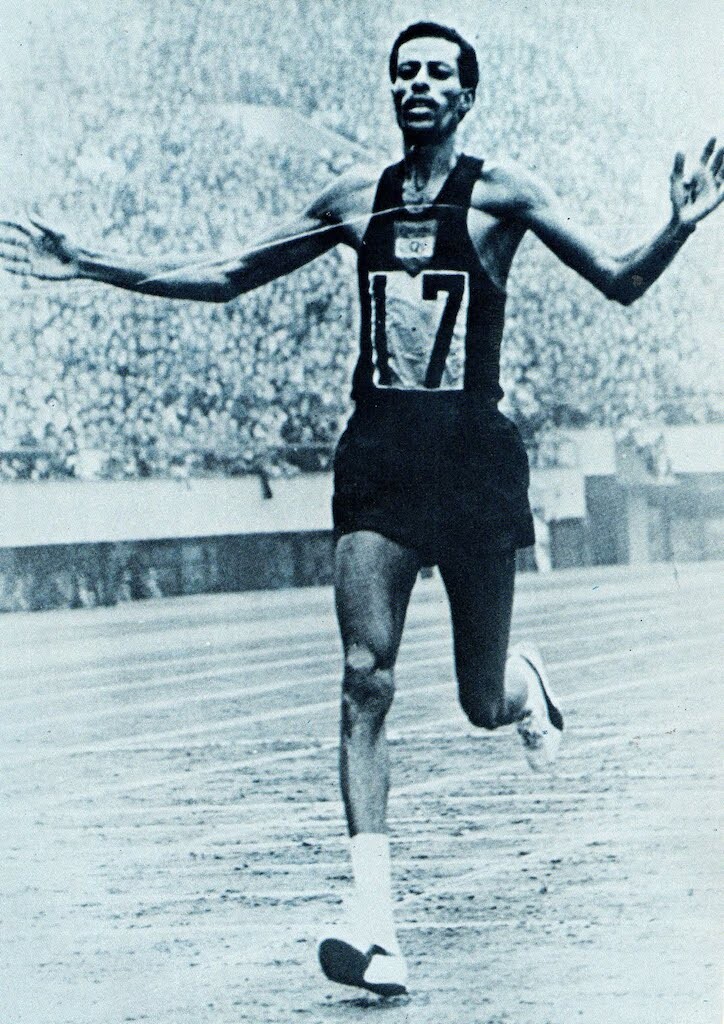
Abebe Bikila
If you're a huge fan of marathon events, you should already know about Abebe Bikila by now. He's a pioneer marathon runner that made significant feats in the history of the marathon. To start, he's the only athlete who ran barefoot during the Rome 1960 Olympics. He faced the cobblestones head-on, won a gold, and even set a world record. Bikila became the first Black African that ever topped at the Games in a 42.195km race.
Furthermore, his amazing barefoot run made it to the Guinness World Record as the fastest marathon run in bare feet at the 1960 Olympic Games with 2:15:16.2. Additionally, Abebe Bikila was also the first runner to win two Olympic marathon events after he grabbed another gold at Tokyo 1964
Mo Farah
Mo Farah is a British marathon runner who's only the second athlete to win 10,000-meter and 5,000-meter titles at successive Olympic Games. Throughout his athletic career, he accumulated 19 gold with nine silvers and two bronzes.
Moreover, he initially planned to retire but then changed his mind and participated in the Tokyo Olympics in 2020 and was even tipped by the excellent Eliud Kipchoge. He's still active to this day, but Farah shared with everyone that 2023 will be his final year after confirming that he will be participating in the London Marathon this April and giving it "one more shot."
Catherine Ndereba
Catherine, the Great Ndereba, is the first woman on this list, and she deserved it. She's one of the marathon runners that other athletes should recognize. The Olympics even regarded her achievement as one of the great.
In 2005, she was even awarded by the former Kenya president Mwai Kibaki with the Order of the Golden Aware due to her excellent accomplishments. Not only that, but she was also awarded 2004 and 2005 Kenyan Sportswoman of the Year.
Although she couldn't bring home gold from participating in the Olympic Games, she got to win silver awards for the 2004 Athen Games and 2008 Beijing Games. Additionally, she also has eight gold wins in World Championships and World Marathon Majors combined.
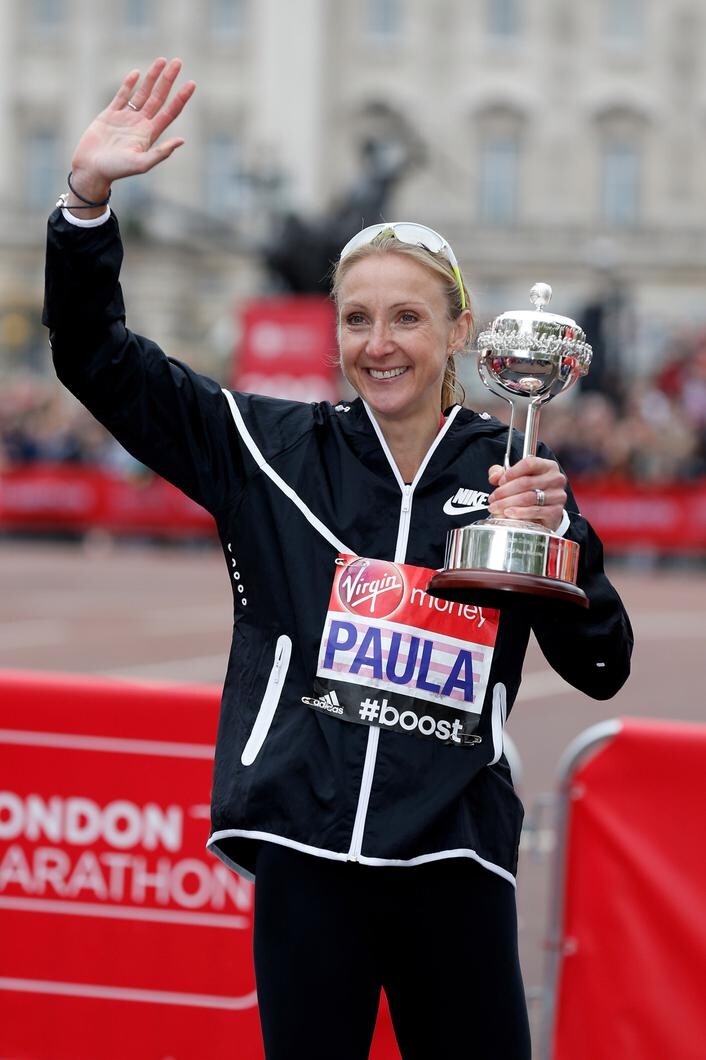
Paula Radcliffe
Paula Radcliffe is also one of the marathon runners that overcame her health issues as a child and became a successful athlete as an adult. Growing up, she struggled with anemia and asthma, but these were just a few bumps in the road as she continued to work hard and brought home several gold awards.
This British long-distance runner was the women's world record holder for over 16 years (2003 to 2019) for being the fastest female marathon runner with 2:15:25 until Brigid Kosgei broke it in 2020. Aside from that, she's also able to win New York City and London marathons three times and won 15 gold awards in total.
Final Thoughts
Marathon is an exciting sport, and no regular person can participate. It takes great understanding that a marathon is more than just running. Being as powerful as the runners mentioned above takes months of training and endurance. Although there are still other remarkable marathon runners, these six, in particular, made significant achievements in this field.
Login to leave a comment
Eilish McColgan smashes UK half-marathon record in Berlin
Victory on the roads of Germany and yet another national mark for the 30-year-old as she continues her London Marathon preparations in style
Eilish McColgan sliced 43 seconds off her own UK half-marathon record of 66:26 as she won the Generali Berlin Half Marathon in 65:43 on Sunday (April 2).
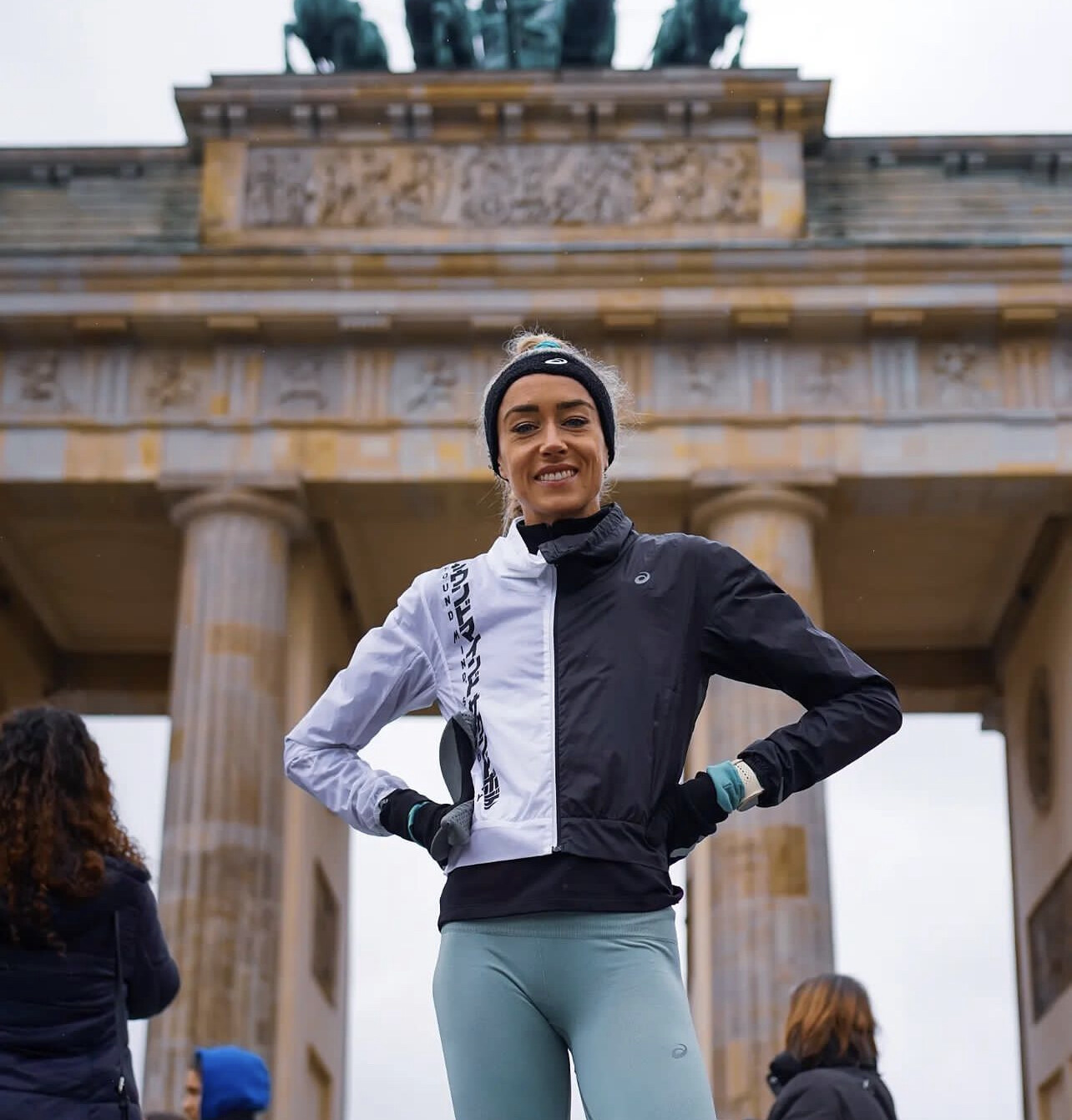
The performance comes just one month after she broke Paula Radcliffe’s long-standing British 10,000m record with 30:00.86 and in Berlin she narrowly missed the fastest-ever half-marathon by a British woman of 65:40 which was set by Radcliffe at the Great North Run – a course that is ineligible for records – in 2003.
That same year Radcliffe ran 2:15:25 to win the London Marathon, so there are natural comparisons with McColgan as she heads toward her marathon debut on April 23 in the British capital.
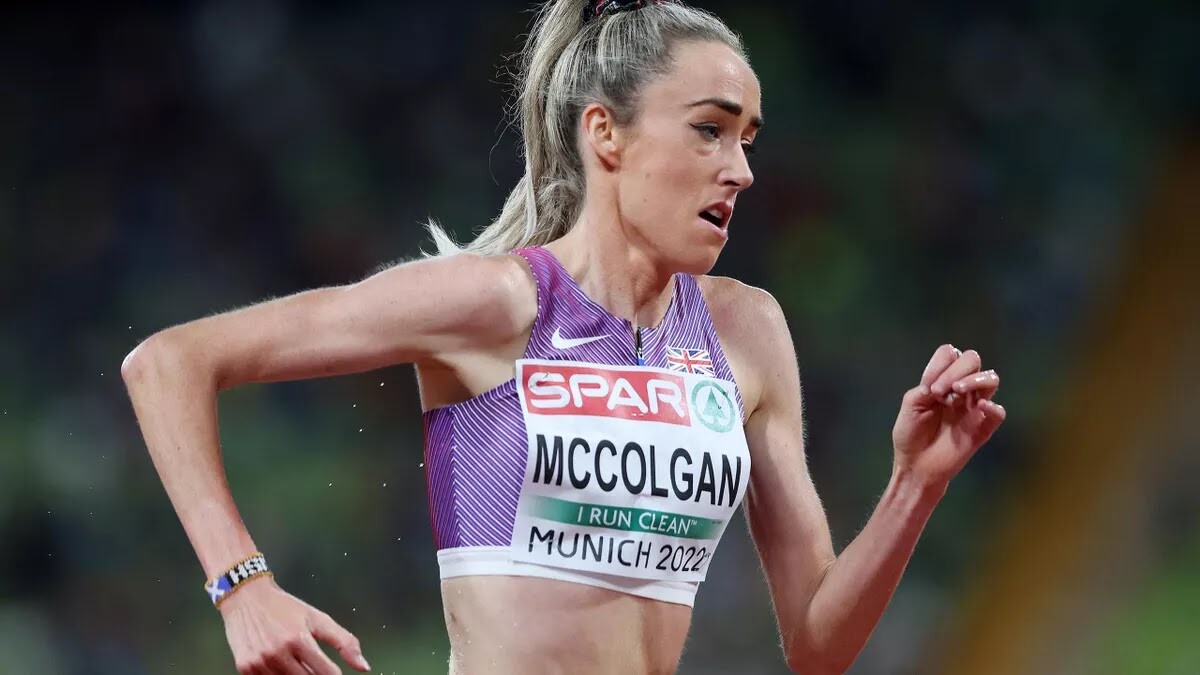
“I’m really happy,” she told organisers at the finish. “It was a bit breezy and cold but I’m Scottish so I’m used to that weather.
“The pace was super quick at the start so I panicked going through 10km. I got a bit of cramp near the end but I’m glad to get to the finish and run a national record.”
Tsigie Gebreselama had led through 10km in 30:44 with McColgan chasing 12 seconds behind. The Ethiopian, who won silver behind Beatrice Chebet at the World Cross Country Championships in Australia last month, continued to lead by 16 seconds through 15km in 46:24, but soon afterwards McColgan caught and passed her.
Into the closing stages McColgan was away and clear but battling a little cramp in her leg. Slightly worryingly, she was still wearing the same black knee support that she wore during her 10,000m run in California last month. Powering home, she flung her arms up crossing the line as she smashed her best of 66:26 which was set at the Ras Al Khaimah Half Marathon 14 months ago.
McColgan had never run the Berlin Half before but her first European medal had come in the city in 2018 when she took 5000m silver behind Sifan Hassan. The Dutch runner coincidentally holds the European half-marathon record with 65:15 with McColgan now fourth in the European all-time rankings.
Behind McColgan on Sunday, Gebreselama held on for second place in 66:13 as Yalemget Yaregal of Ethiopia was third in 66:27.
Samantha Harrison clocked a 67:19 PB to move into equal fourth place with Jess Warner-Judd on the UK all-time rankings as another Bri, Calli Thackery, shaved a second off her PB with 69:01.
The streets of Berlin almost always see fast times and the men’s race was quick too as Sabastian Sawe broke away from fellow Kenyan Alex Kibet in the closing stages to win in 59:01.
Login to leave a comment
Berlin Half Marathon
The story of the Berlin Half Marathon reflects a major part of the history of the German capital. It all began during cold war times and continued during reunification. The events leading up to today's event could really only have happened in this city. Its predecessors came from East- and West Berlin. On 29th November 1981 the Lichtenberg Marathon was...
more...Eilish McColgan set for Berlin Half Marathon test
British record-holder faces key race in Germany this weekend ahead of marathon debut in London on April 23.
Three weeks before making her marathon debut in London, Eilish McColgan will tackle the Berlin Half Marathon on Sunday (April 2) looking for a confidence-boosting performance.

The 32-year-old has dealt with a number of injury niggles so far this year such as bursitis on her knee and Achilles and calf issues. Despite this she broke Paula Radcliffe’s long-standing British 10,000m record with 30:00.86 in California at the start of March although she subsequently withdrew from last weekend’s NYC Half.
After training in altitude in Colorado, she is now set to travel to Europe this week to run the Generali-sponsored Berlin Half Marathon where her rivals include Tsigie Gebreselama of Ethiopia and Ludwina Chepngetich of Kenya, whereas fellow Brits Samantha Harrison and Calli Thackery are also set to compete.
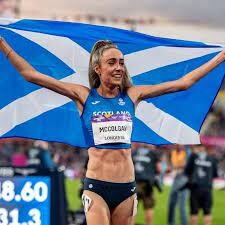
Gebreselama has run 65:46 – which she ran in Valencia last October behind Konstanze Klosterhalfen – whereas Chepngetich has run 67:30 and McColgan’s UK record is 66:26.
Gebreselama, 22, also won silver behind Beatrice Chebet in the women’s race at the recent World Cross Country Championships in Australia.
You can expect fast times because very much like the city’s annual marathon in the autumn, the half-marathon has seen quick times over the years. Sifan Hassan of the Netherlands ran 65:45 here in 2019 with the current course record held by Kenya’s Sheila Kiprotich Chepkirui with 65:02 from 12 months ago.
The men’s line-up meanwhile is led by Sabastian Sawe, whose PB of 58:02, plus fellow Kenyans Philemon Kiplimo and Alex Kibet, the latter being the 2022 winner in Berlin. Up against the Kenyans are Dominic Lobalu of South Sudan and Gemechu Dida of Ethiopia, whose PBs are 59:12 and 59:21 respectively.
by Jason Henderson
Login to leave a comment
Berlin Half Marathon
The story of the Berlin Half Marathon reflects a major part of the history of the German capital. It all began during cold war times and continued during reunification. The events leading up to today's event could really only have happened in this city. Its predecessors came from East- and West Berlin. On 29th November 1981 the Lichtenberg Marathon was...
more...Eilish McColgan will tackle NYC Half on the road to London
In-form Brit is set to face Hellen Obiri, Molly Huddle, Senbere Teferi and Karoline Grøvdal in New York next week as Joshua Cheptegei and Jacob Kiplimo lead the men’s field
After breaking Paula Radcliffe’s long-standing British 10,000m record in California last weekend, Eilish McColgan’s next big race in the run-up to her marathon debut in London is the United Airlines NYC Half on March 19.
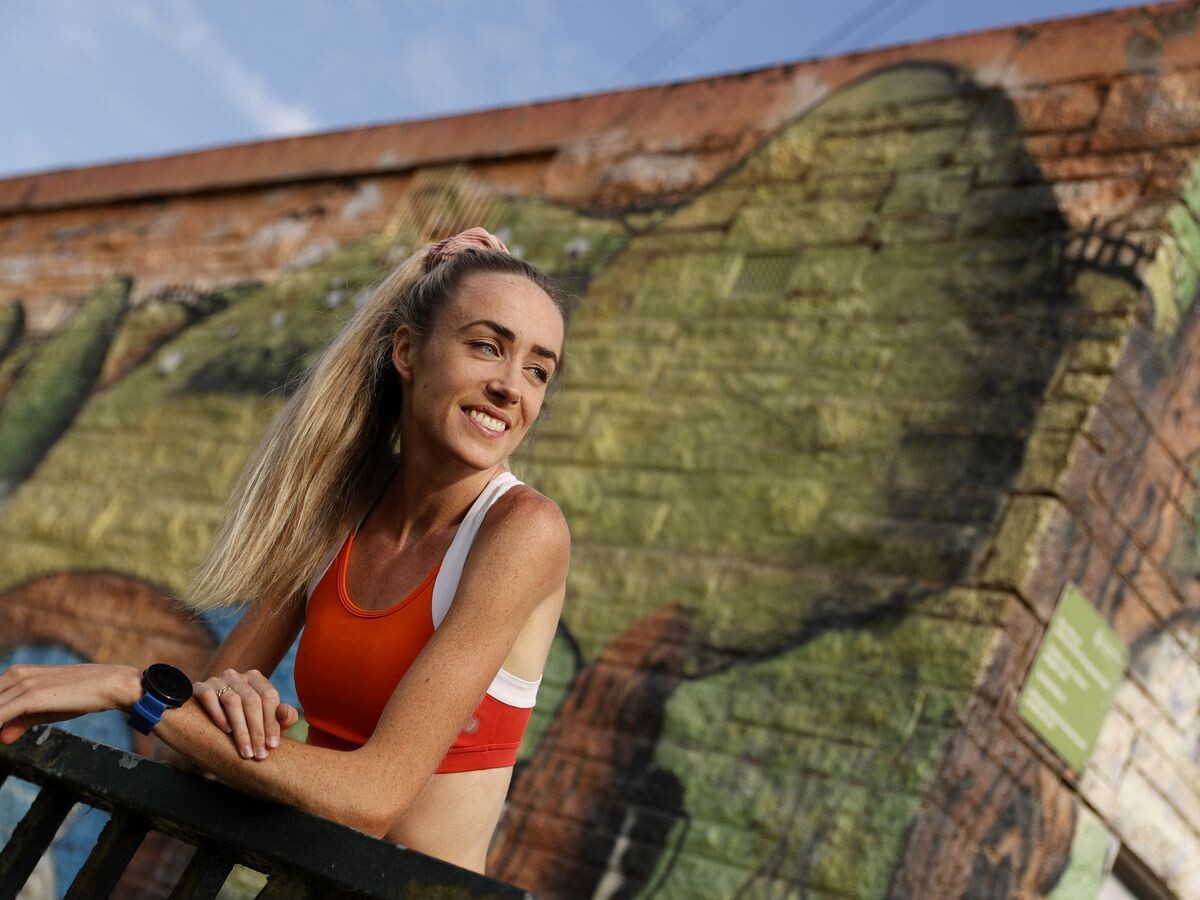
She will face Hellen Obiri, the former world cross-country champion and two-time Olympic medalist, plus three-time NYC Half winner Molly Huddle of the United States.
Senbere Teferi of Ethiopia, who holds the course record with 67:35, also runs, in addition to 2018 Boston Marathon champion Des Linden of the US and reigning European cross-country champion Karoline Bjerkeli-Grøvdal of Norway.
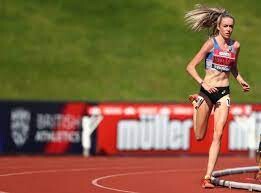
McColgan’s British record is 66:26 from last year’s RAK Half, but Obiri’s best is 64:22 from the same RAK Half, Teferi ran 65:32 in Valencia in 2019 and Huddle has a best of 67:41 from 2016.
Obiri and McColgan clashed at the Great North Run in 2021 with the Kenyan breaking away in the latter stages to win by six seconds. But the Briton has been in terrific form lately with a 30:00.86 national record for 10,000m at the Sound Running Ten event in California.
Her marathon debut in London is set to take place on April 23 too.
McColgan is among a number of Brits set to race in New York City too with others being Jess Warner-Judd, Chris Thompson and Andy Butchart. Warner-Judd ran a half-marathon PB of 67:19 in Houston in January and will be looking to revise those figures.
by Jason Henderson
Login to leave a comment
United Airlines NYC Half-Marathon
The United Airlines NYC Half takes runners from around the city and the globe on a 13.1-mile tour of NYC. Led by a talent-packed roster of American and international elites, runners will stop traffic in the Big Apple this March! Runners will begin their journey on Prospect Park’s Center Drive before taking the race onto Brooklyn’s streets. For the third...
more...Eilish McColgan (30:00.87) and Alicia Monson (30:03.82) Break National Records At The TEN
The British and American records in the women’s 10,000 meters both went down late Saturday night in California as Eilish McColgan outdueled Alicia Monson over the final lap of The TEN in San Juan Capistrano. McColgan, the Commonwealth Games champion at 10,000 who is building up for her marathon debut in London on April 23, was only added to the field this week but felt confident in her fitness after five weeks of altitude training in Colorado. It proved an inspired decision as she ran 30:00.87 to narrowly break Paula Radcliffe’s British record of 30:01.09 set in August 2002.
A few seconds behind McColgan, Alicia Monson nabbed her second American record of 2023, running 30:03.82 to smash the previous record of 30:13.17 set by Molly Huddle in the 2016 Olympic final in Rio. Three weeks ago, Monson ran 8:25.05 at the Millrose Games to break the American indoor (and overall) record for 3,000 meters.
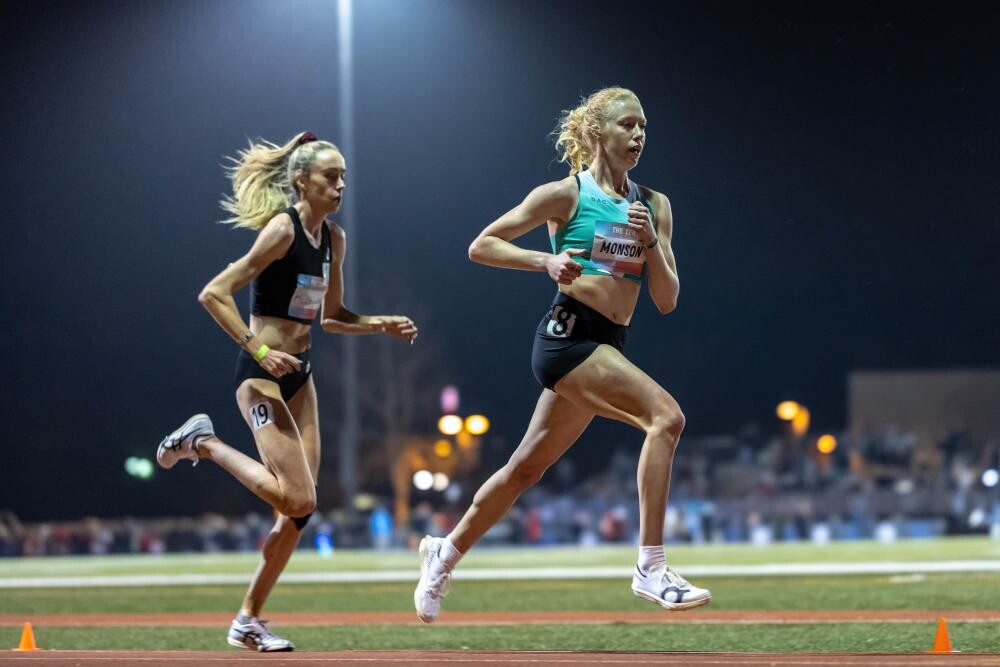
Both women were also safely under the 30:40 standard for the 2023 World Championships and 2024 Olympics on a good night for running fast (50-degree temps, still conditions).
Monson and her camp had billed the race as an American record attempt and they enlisted her On Athletics Club teammate Josette Andrews (a 14:51 5k runner) to handle pacing duties, along with Eleanor Fulton. When Andrews dropped out at 5k (15:09 for McColgan and Monson), they were actually a few seconds behind AR pace, but Monson took over and righted the ship, dropping the pace from 73-second laps to 72’s, then 71’s. By the bell, which Monson reached in the lead thanks to a 70.45 penultimate lap, the question was not whether the AR would go down, but whether either woman would break 30:00 – and of course, who would win the race?
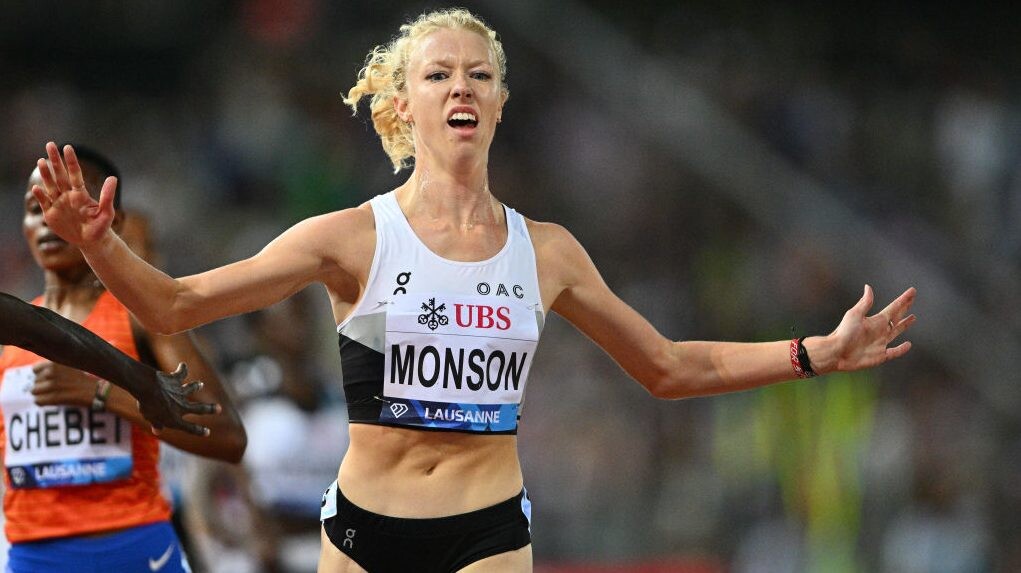
McColgan, who had clung faithfully to Monson throughout the race, finally went wide on the backstraight of the bell lap and passed Monson, and the American had no response as McColgan powered to victory with a 64.87 last 400m. Monson could not match that speed, closing out her effort in 67.99, and though she did not win, her American record was very well-deserved after so much grinding from the front.
No one else earned the World/Olympic standard, but a trio of Americans earned big personal bests in 3rd-4th-5th. Running just her second 10k, 2021 NCAA 5k champ Elly Henes won the battle for 3rd in 30:48.26 to edge 2022 Worlds team member Natosha Rogers (30:48.69) as both women moved ahead of Emily Sisson (30:49.57) and Deena Kastor (30:50.32) into 6th and 7th on the all-time US list. Rogers’ Puma Elite teammate Fiona O’Keeffe also got a pb in 5th, running 30:55.05 to become the 11th American woman to go sub-31.
Results (Analysis at bottom)
1 Eilish McColgan Asics 30:00.86 #$WRLD
2 Alicia Monson On Athletics Club 30:03.82 #$WRLD
3 Elly Henes Adidas 30:48.26
4 Natosha Rogers Puma Elite 30:48.69
5 Fiona O’Keeffe Puma Elite 30:55.05
6 Laura Galvan Hoka 31:04.08
7 Dominique Scott Adidas 31:14.00
8 Carrie Verdon TEAM Boulder 31:52.94
9 Susanna Sullivan unattached 31:55.80
10 Amy Davis-Green Hansons-Brooks ODP 32:10.59
11 Katie Izzo Adidas 32:22.47
12 Jeralyn Poe Tracksmith 32:39.10
Men’s race
The men’s race came down to a battle of the last two US 10,000-meter champions: Woody Kincaid and Joe Klecker. Just as he did five weeks ago over 5,000 meters in Boston, Kincaid earned the victory, though he made his move slightly earlier this time around, taking the lead with 900m to run and holding off Klecker on the last lap, closing in 55.96 to Klecker’s 56.92 as Kincaid ran 27:06.37 to Klecker’s 27:07.57. Both men ran personal bests (they now sit #5 and #7 on the all-time US list) and both hit the 2023 World Championship standard of 27:10, but neither was able to earn the Olympic standard of 27:00.
Klecker and Kincaid both went in with the aim of hitting the Olympic standard and joining Grant Fisher, Galen Rupp, and Chris Solinsky as the only American members of the sub-27:00 club. Klecker’s OAC teammate Ollie Hoare was the main pacemaker (though there were several: Ehab El-Sandali, Amon Kemboi, and Athanas Kioko all helped out) and he took them through 5k in 13:35, at which point British Olympian Sam Atkin, running with the lead pack, surprisingly dropped out.
When Hoare stepped off after covering 6400m in 17:23.90 (27:11 pace), sub-27:00 was within striking distance. But Klecker, despite working hard, could not increase the pace, and Kincaid showed no interest in sharing the lead despite Klecker motioning for him to do so.
By a mile to go, Klecker and Kincaid had dropped everyone else, and Kincaid, sensing the World standard slipping away, hit the front with 900 to go. Klecker stuck right with him, however, and it wasn’t until the final turn that Kincaid was able to gain real separation as both men closed well to get under the World standard – though not the Olympic standard.
Kioko, who stayed in the race, was the best of the rest, running 27:23.84 for 3rd, holding off Conner Mantz, who ran 27:25.30 in the midst of his Boston Marathon buildup (just .07 off his personal best from this meet last year).
Results (analysis below results) *Lap by lap splits
1 Woody Kincaid Nike 27:06.37 WRLD
2 Joe Klecker On Athletics Club 27:07.57 WRLD
3 Athanas Kioko pacer 27:23.84
4 Connor Mantz Nike 27:25.30
5 Jonas Raess On Athletics Club 27:26.40
6 Ren Tazawa Komazawa Univ 27:28.04
7 Nils Voigt Puma 27:30.01
8 Sam Chelagna US Army WCAP 27:38.02
9 Luis Grijalva Hoka 27:42.56
10 Alex Masai Hoka NAZ Elite 27:42.80
11 Wesley Kiptoo Hoka NAZ Elite 27:45.81
12 Ben Flanagan On Running 27:49.67
13 Kanta Shimizu Subaru 27:51.23
14 Benjamin Eidenschink unattached 27:51.74
15 Tatsuhiko Ito Honda 27:54.64
16 Aaron Bienenfeld unattached 27:55.96
17 Ahmed Muhumed unattached 27:56.99
18 Frank Lara Altra/Roots Running Project 28:00.75
19 Emmanuel Bor unattached 28:01.09
20 Alberto Gonzalez Mindez Guatemala 28:30.63
21 Zach Panning Hansons-Brooks ODP 28:35.52
Login to leave a comment
The Ten
The world's fastest 10,000m races each year have taken place in a sleepy little coastal town in southern California. More national records were broken in 2022 than any other race on the planet as the best in the western hemisphere launched into rarified zones of time and space. The best return to San Juan Capistrano this year to cap off...
more...Will Letesenbet Gidey break the women's marathon world record in Valencia on Sunday?
The undisputed fastest female distance runner in history, Letesenbet Gidey of Ethiopia, will make her highly anticipated 42.2-km debut on Sunday at the 2022 Valencia Marathon.
The 24-year-old currently holds world records over 5,000m (14:06.62), 10,000m (29:01.03), and the half-marathon (62:52), plus she is the reigning world 10,000m champion.
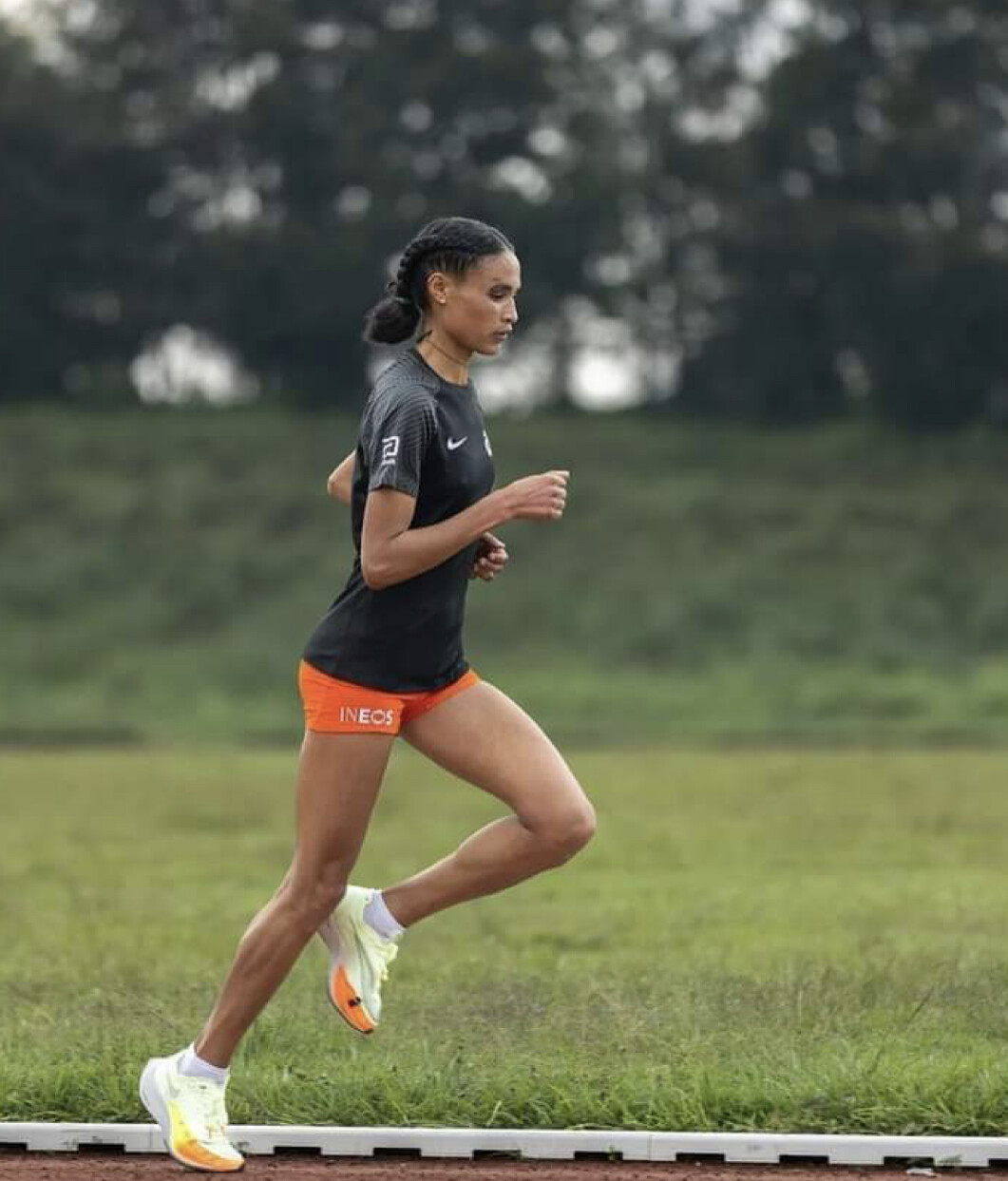
Gidey has found success in Valencia—it’s where she set two of her world records (5,000m and half-marathon). To date, she is the only woman to run under the 64- and 63-minute barrier for the half-marathon, which predicts she is ready for something fast on Sunday.
What attracts many of the world’s top marathoners to race in Valencia is the favourable weather and flat course. In the 2020 edition, 60 athletes achieved their qualification times for the Tokyo Olympics.
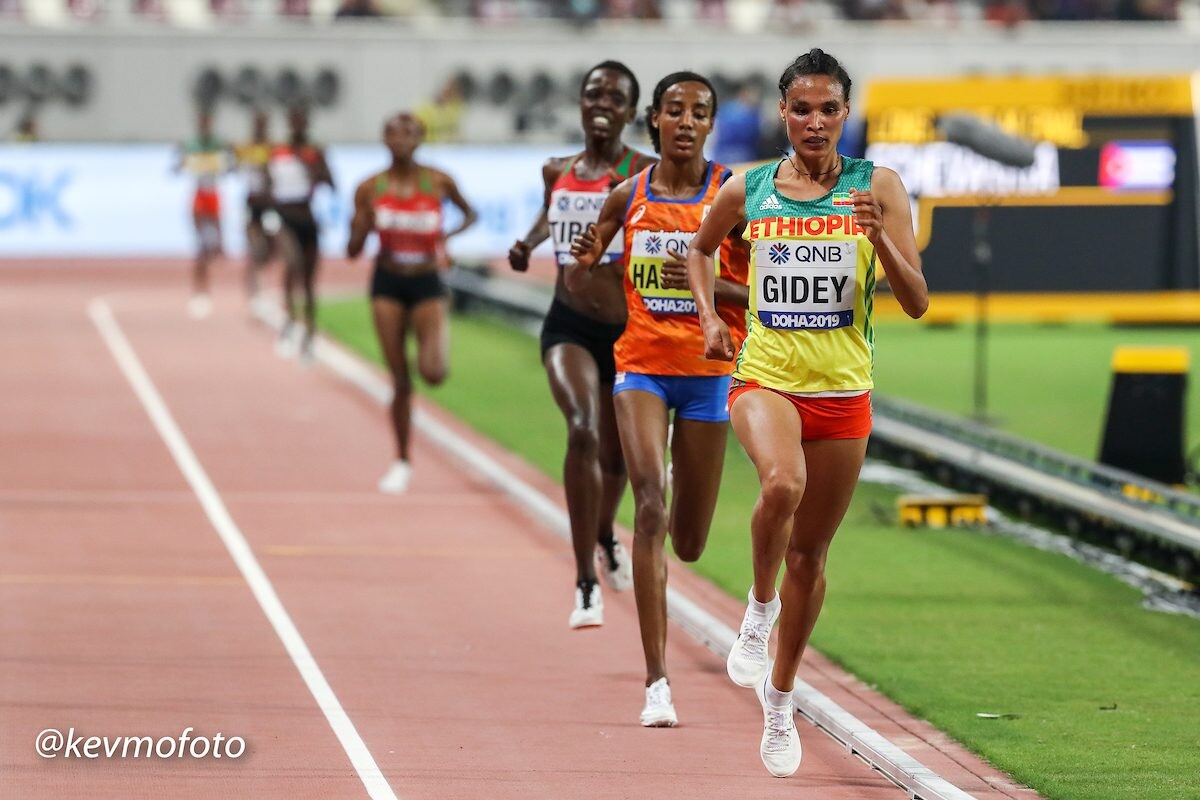
The weather for Sunday couldn’t be better for marathoning—the current forecast calls for 5 C with less than 10 km/h winds. It is reported that Gidey will have three male pacemakers guiding her, and she will be trying to run fast, says her agent.
Although Gidey has not come out and said she is chasing the world record, her previous times over 10K and 21.1 km have shown that she could be capable of something in the range of 2:16 to 2:12.
Until 2019, only one female marathoner had ever run under 2:16—Paula Radcliffe‘s 2:15:25 at the 2003 London Marathon. Since 2019, three women have broken the 2:16 mark, with Brigid Kosgei’s world record time of 2:14:04 at the 2019 Chicago Marathon leading the way. Her Kenyan compatriot Ruth Chepngetich came within 14 seconds of her record at this year’s Chicago Marathon, becoming the second-fastest female marathoner in history (2:14:18).
Letesenbet Gidey leads Sifan Hassan and the late Agnes Tirop at the 2019 World Championships in Doha, Qatar. Photo: Kevin Morris
Another time on Gidey’s mind is the Ethiopian national record of 2:15:37, which was run by Tigist Assefa at the 2022 Berlin Marathon.
Right now, Gidey is at the top of her game, and the only thing holding her back is her lack of marathon experience. Valencia offers her a chance to reach times no woman has touched, and on Sunday, we are likely to see something special.
Our prediction is something in the realm of 2:13-low, smashing the world record and achieving the title of the fastest debutante of all time.
by Running Magazine
Login to leave a comment
VALENCIA TRINIDAD ALFONSO
The Trinidad Alfonso EDP Valencia Marathon is held annually in the historic city of Valencia which, with its entirely flat circuit and perfect November temperature, averaging between 12-17 degrees, represents the ideal setting for hosting such a long-distance sporting challenge. This, coupled with the most incomparable of settings, makes the Valencia Marathon, Valencia, one of the most important events in...
more...Kiplimo, Waithaka and Chemutai are ready to run well in Seville
The Cross Internacional de Itálica in Santiponce on the outskirts of the Spanish city of Seville – the sixth Gold standard meeting in the current World Athletics Cross Country Tour – always boasts a mouth-watering line-up, and this year’s race on Sunday (20) is no exception.
The men’s 10.1km contest features world silver and bronze 10,000m medalists Stanley Waithaka of Kenya and Jacob Kiplimo of Uganda. The latter, who turned 22 earlier this week, is also the world cross-country silver medalist and already won here in 2019.
Kiplimo boasts an impressive 26:33.93 PB for 10,000m and enjoyed a fantastic summer season this year, winning double gold at the Commonwealth Games just a few weeks after his bronze medal at the World Championships. His last appearance came at the Great North Run in Newcastle a couple of months ago where he won against a strong field.
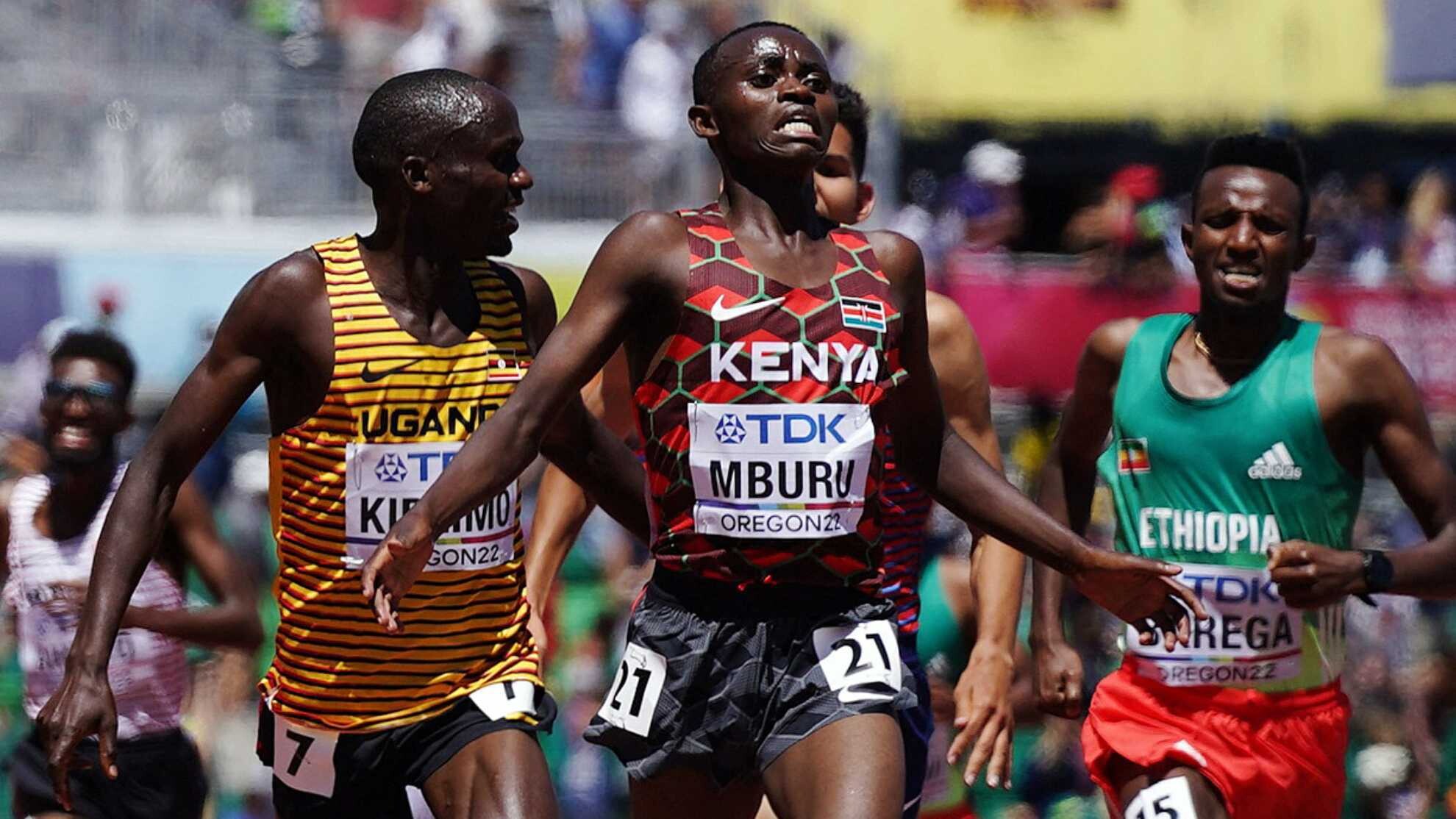
Waithaka finished seven hundredths of a second ahead of Kiplimo in Oregon to take his first senior global medal.
But they will face stiff opposition from the first four finishers at last weekend’s Cross Country Tour race in Atapuerca in the form of ThierryNdikumwenayo, Kenya's Levy Kibet, Burundi’s RodrigueKwizera and Eritrea's MerhawiMebrahtu.
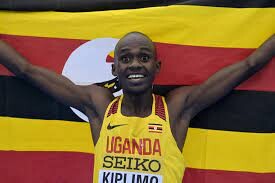
After living in the country for eight years, Ndikumwenayo was granted Spanish nationality 10 days ago, but the 25-year-old from Burundi is not yet eligible to represent Spain in international events. He proved to be in stellar form in Atapuerca and will aim to maintain that momentum on Sunday while his closest opponent there, Kibet, will be eager to confirm his runner-up place ahead of Kwizera was no fluke.
Defending champion Kwizera reportedly resumed training for this cross-country season a bit later than usual after spending some weeks in his native Burundi for family matters, but the 22-year-old is rounding into form and he should be in contention for a podium place once again. Meanwhile teenager Mebrahtu, the world U20 5000m silver medalist, will also be a contender after his recent top-four finishes in Soria and Atapuerca.
Spanish hopes rest mainly on the in-form NassimHassaous, a top-10 finisher in all his appearances so far this cross country campaign.
Entries for the women’s race, also contested over 10.1km, are headed by Uganda's Olympic steeplechase champion PeruthChemutai. Illness prevented the 23-year-old from competing in Atapuerca last weekend, but she now seems fully recovered and ready for her first outing since taking bronze at the Commonwealth Games in August.
Despite the longer than usual distance, Kenya's 2021 world U20 1500m champion Purity Chepkirui should play a key role on Sunday following her overwhelming win in San Sebastián two weeks ago and her runner-up finish in Atapuerca last Sunday.
She will be joined by her fellow Kenyan Nancy Jepleting, winner in Zaragoza last month, while Ethiopia will be represented by MeseluBerhe, runner-up in San Sebastián and seventh in Atapuerca.
Turkey's four-time European cross-country champion Yasemin Can is also entered, as is Portugal's 2019 European U20 3000m silver medalist Mariana Machado, and Spain’s Isabel Barreiro, who finished just six seconds behind Can last weekend.
Previous winners in Santiponce include KenenisaBekele (2003, 2004 and 2007), Fernando Mamede (1984 and 1985), Paul Kipkoech (1987 and 1988), Paul Tergat (1998 and 1999), Moses Kipsiro (2008 and 2009), Leonard Komon (2010 and 2011), Linet Masai (2010 and 2012) and Paula Radcliffe (2001), among others.
Weather forecasters predict a sunny day and temperatures in the 16-18C range by the time of the event.
by World Athletics
Login to leave a comment
Cross internacional de Italica
The Cross Internacional de Itálica is an annual cross country running competition it will be held on 21st of November in Santiponce, near Seville, Spain. Inaugurated in 1982, the race course is set in the ruins of the ancient Roman city of Italica. As one of only two Spanish competitions to hold IAAF permit meeting status, it is one of...
more...Paris 2024 Olympic Games reveals routes for Olympic marathon and mass event run
Paris 2024 today unveiled the routes for the Olympic marathon and the two races – a 42.195km course and a 10km course – open to the general public as part of mass event running.
The announcement was made in the presence of Tony Estanguet, President of Paris 2024; Anne Hidalgo, Mayor of Paris; Valérie Pécresse, President of the Ile-de-France Regional Council; World Athletics CEO Jon Ridgeon; Geoffroy Sirven-Vienot Vice-President of Sponsorship, Events and Partnerships at Orange; Paula Radcliffe world record-holder between 2003 and 2019, and French international marathon runner Yohan Durand.
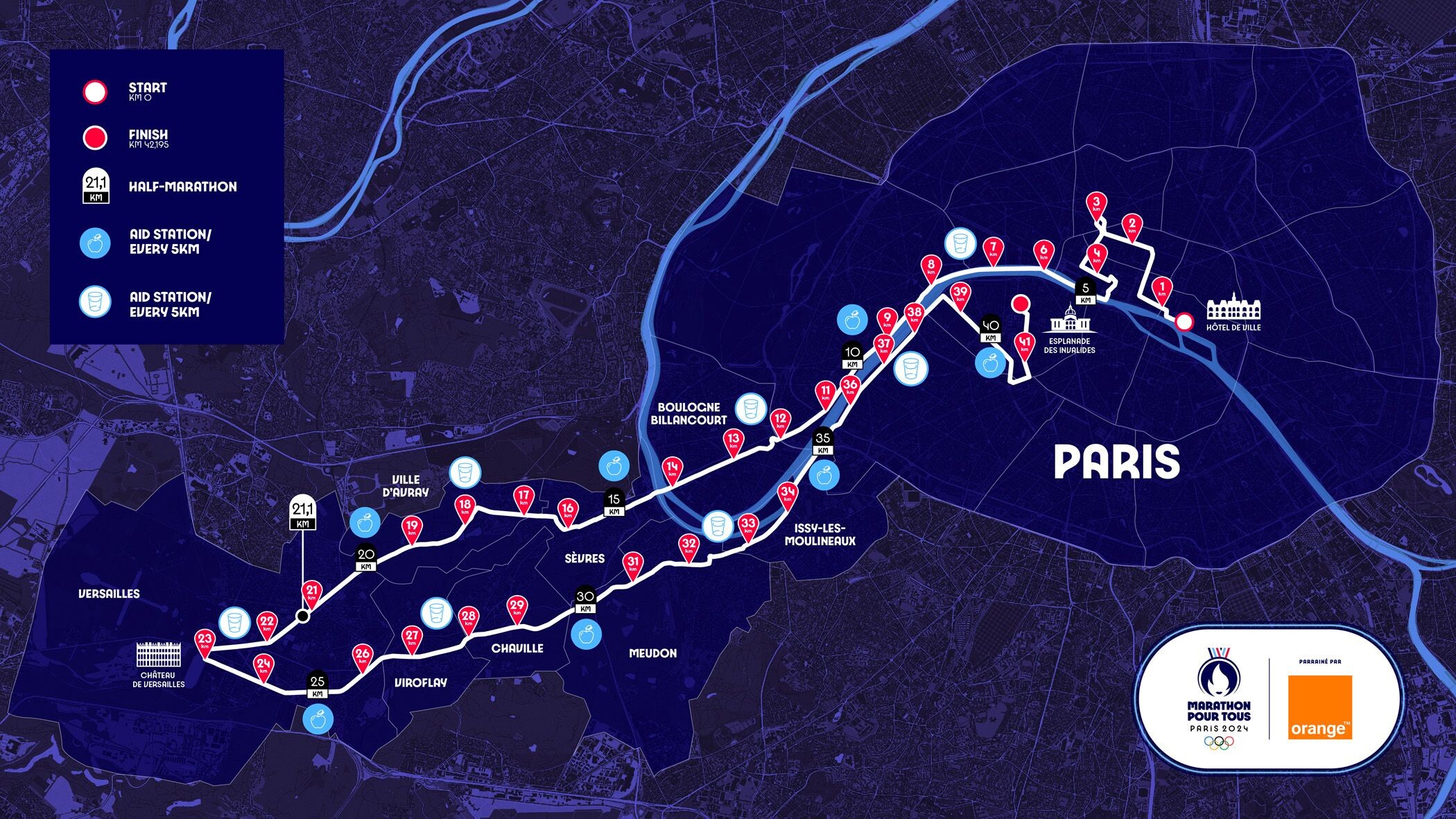
A remarkable, challenging and inspiring course
For the Olympic marathon, one of the most iconic events of the Olympic Games, Paris 2024 has unveiled a new route.

When planning the route for this legendary event, Paris 2024 drew inspiration from the ‘Women's March’ of 5-6 October 1789 when 6-7000 Parisian women marched through Paris, Sèvres and St Cloud before reaching Versailles and forcing the King back to the Tuileries Palace.
Starting at the Hôtel de Ville and finishing on the Esplanade des Invalides, the course will take in some of the most beautiful sights and monuments of Paris and its surroundings. It will deliver 42.195km of drama with the Louvre Pyramid, Grand Palais, Château de Versailles and the Eiffel Tower as its backdrop.
This Olympic Marathon also has a particularly tough profile with an overall elevation gain/loss of 438m. The route – specially designed for the Paris 2024 Games and approved by World Athletics – is unique, demanding and technical.
“With its unprecedented route, the Paris 2024 Marathon represents a great sporting challenge for the athletes, in a spectacular setting,” said Radcliffe. “This race, more unpredictable than ever, promises to be mythical.”
“Beyond a doubt, the Paris 2024 Marathon will have something special about it,” said two-time Olympic champion and world record-holder Eliud Kipchoge. “To perform in such an impressive setting, in a place so charged with history and symbolism, will be a unique experience. I could not ask for a more perfect race for the Games.”
“Paris 2024 is providing us a route that's rich in symbolism, entertainment and athletic challenge,” added Durand. “Taking up this challenge here in my home country is a lifelong ambition.”
A race open to the general public for the first time in Olympic history
With mass event running, the general public can put themselves in the shoes of their Olympic heroes and run the same marathon route.
To open up this experience to everyone, Paris 2024 will offer, in addition to the traditional 42.195km distance (20 years old and above), a 10km race accessible to as many people as possible (16 years old and up).
With 20,024 participants per race, Paris 2024 offers experienced athletes and up-and-comers a unique opportunity to participate in the Games and experience this festive, athletic gathering that is sure to leave each participant with an unforgettable memory.
by World Athletics
Login to leave a comment
Paris 2024 Olympic Games
For this historic event, the City of Light is thinking big! Visitors will be able to watch events at top sporting venues in Paris and the Paris region, as well as at emblematic monuments in the capital visited by several millions of tourists each year. The promise of exceptional moments to experience in an exceptional setting! A great way to...
more...Eliud Kipchoge can go faster 'in near future'
Marathon runner Eliud Kipchoge believes he can get even closer to a possible sub-two hour marathon after narrowing the gap by 30 seconds when setting his recent world record in Berlin last month.
The 37-year-old ran a time of two hours, one minute and nine seconds to beat his previous benchmark, which had stood since 2018.
"I believe that I still have time to show the world how to push limits," the Kenyan told the BBC World Service.
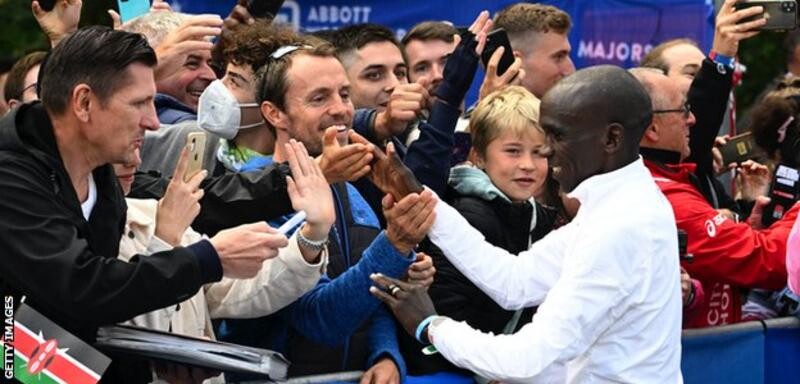
"I can still run my personal best in the near future. I can still try again."
Four years ago, Kipchoge took 78 seconds off compatriot Dennis Kimetto's 2014 record of 2:02.57.
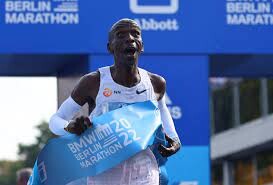
He then became the first man to run a marathon in under two hours in 2019, yet the time in Vienna could not be an official world record since it was not in open competition and he used a team of rotating pacemakers, among other measures.
Kipchoge ran the first half of late September's race in Berlin in 59 minutes and 51 seconds, prompting thoughts that he may become the first runner to break the two-hour mark in an official race.
He had played down his chances of a world record in the build-up, but admits lowering his time had been his stated aim in the German capital.
"My plan was not to run under two hours, my plan was to break a world record," he said.
"I realise that we are fast enough to run under an hour in a half-marathon, which was really motivating for me.
"And it's a good sign also that the future is clear. I'm showing the people that you can [go] as fast as you can for the half-marathon and still do something good at the end of it."
Kipchoge turns 38 next month and now says winning the Olympic marathon at the Paris Games in 2024 is on his "bucket list".
He was won the past two Olympic titles - becoming just the third person to defend a marathon title when he crossed the line in Tokyo - and a third successive triumph would be a first for a man or woman.
"I trust that all things will carry me well up to 2024 to present myself at the starting line," he said.
"What I like is history. To be the first human being to run back-to-back-to-back for three times and win Olympic marathon gold medal, it's my bucket list.
"It's there in my mind. I don't know what will happen but still, for now, I want to concentrate on recovering my body."
Paris victory would be 'phenomenal'
Former women's marathon world record holder Paula Radcliffe says she is "in awe" of Kipchoge's continued "stunning performances".
"I think we all thought that if anybody was in shape right now to take down that world record, it would be him," the 48-year-old Briton told the BBC World Service.
"Each year as he gets a year older, the odds are against him a little bit more - and he still manages to defy them.
"He doesn't put limits on himself. And I think that really helps his mind set. He loves setting himself those targets just to get better, to try and move things forward to move the bar that little bit higher all the time.
"If he gets that balance perfectly right between the first and second half, he can maybe take it (the world record) down even further."
Already regarded as the greatest marathon runner of all time, Radcliffe says that if Kipchoge were to win a third Olympic gold in Paris it would rank along his sub-two hour marathon as his greatest achievement.
"I think even to get it right for two marathons in a row is hugely impressive, especially given the way the goalposts moved with the Tokyo Olympics," she said.
"To put it in perspective, it's getting it right one day every four years, for 12 years. And history shows that that's extremely difficult to do.
"If anybody can do it, he can do it. But it will be a phenomenal achievement that perhaps would put him on the level with having gone through that two-hour barrier."
by BBC Sport
Login to leave a comment
Paris 2024 Olympic Games
For this historic event, the City of Light is thinking big! Visitors will be able to watch events at top sporting venues in Paris and the Paris region, as well as at emblematic monuments in the capital visited by several millions of tourists each year. The promise of exceptional moments to experience in an exceptional setting! A great way to...
more...Yehualaw and Kipruto cruise to convincing wins at London Marathon
In just the second marathon of her career, Yalemzerf Yehualaw overcame a heavy fall to win the women’s race at the TCS London Marathon, while Kenya’s Amos Kipruto made a decisive move with two miles to go to take the men’s title at the World Athletics Elite Platinum road race on Sunday (2).
Yehualaw won in 2:17:26 – the third-fastest time ever achieved on the streets of London – while Kipruto’s closing speed brought him home in 2:04:39.
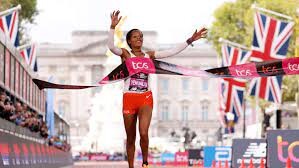
The opening pace in the women’s race was swift, as it often is on the slightly downhill section of the course. The lead pack of eight women – including Yehualaw and defending champion Joyciline Jepkosgei – passed through the first 5km in 16:01 and they reached 10km in 32:18. That early pace suggested a finishing time of 2:16:15 – well inside the women-only world record of 2:17:01 – but the tempo soon started to drop.
The same eight women were still together through 15km (48:51) and at half way, which was reached in 1:08:46. Hiwot Gebrekidan was unable to stay with the pack for much longer and the lead group was reduced to seven women by 25km (1:21:29), the pacemakers having now dropped out.
Asefa Kebede started to push the pace as the lead group embarked on the second half, with Yehualaw biding her time near the back of the pack. Jepkosgei and Joan Chelimo Melly, meanwhile, looked comfortable in the middle of the pack.
With about 10km to go, Yehualaw tripped on a bump in the road and fell hard, just as she had done at the 2020 World Half Marathon Championships where she went on to take bronze. She quickly got back up on her feet and rejoined the lead pack a minute or two later.
Melly and Ashete Bekere were next to drop off the pace, followed by Kebede, leaving just four women in the lead pack: Jepkosgei, world silver medallist Judith Jeptum, Alemu Megertu and Yehualaw. They reached 35km in 1:54:30, their predicted finishing time now outside 2:18:00, but the real racing was just beginning.
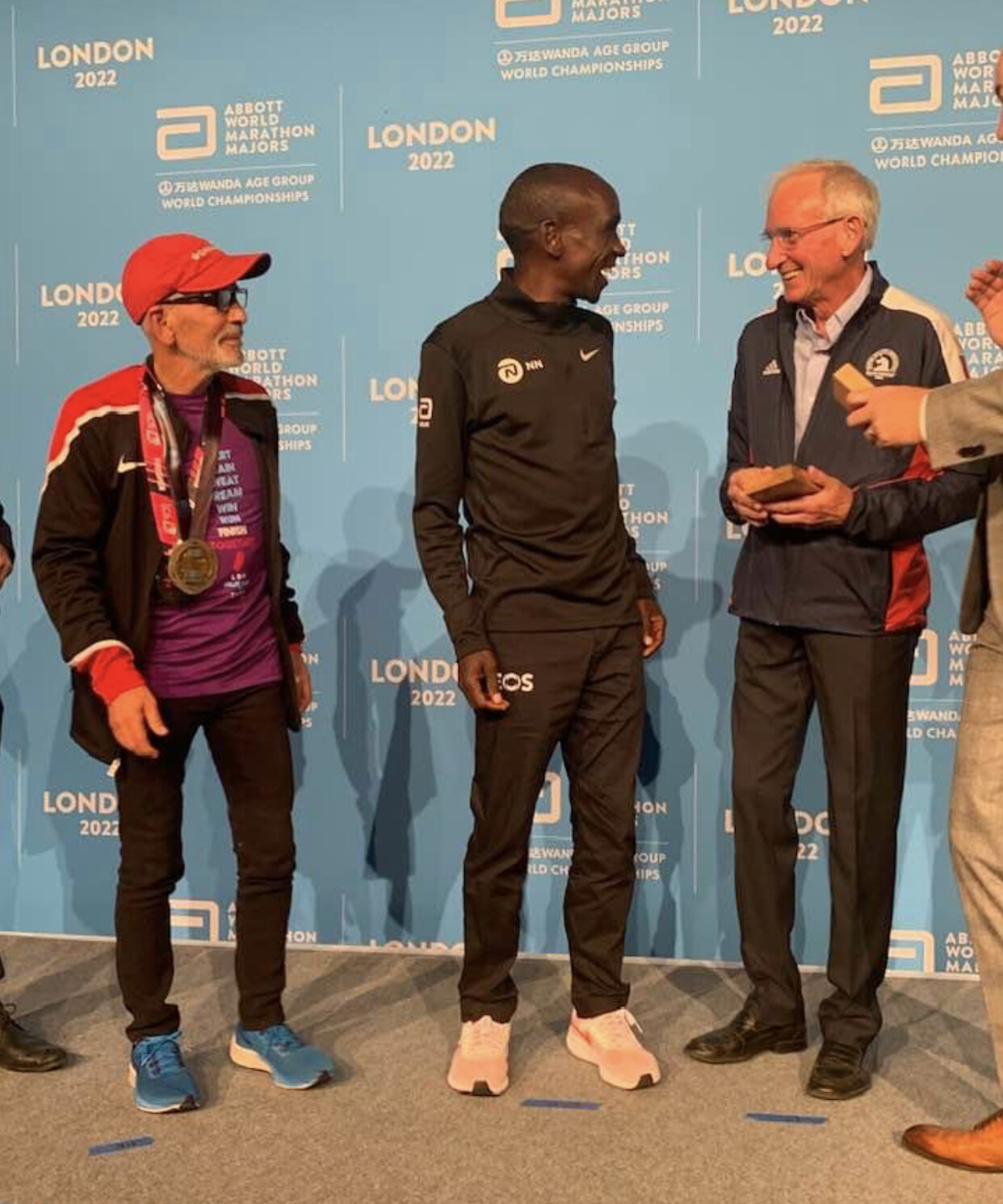
After two hours of running, Yehualaw started to increase her pace. A sizzling 4:43 split for the 24th mile broke up what was left of the lead pack, and within a couple of minutes the Ethiopian had a clear lead over Jepkosgei with Megertu and Jeptum further behind.
Showing no ill effects of her earlier fall, and running with the confidence of a seasoned marathon runner, Yehualaw continued to forge ahead in the closing stages and went on to win by 41 seconds in 2:17:26, just three seconds shy of the PB she set on her debut in Hamburg earlier this year. It’s also the third-fastest time ever recorded in London, behind the world records set by Paula Radcliffe (2:15:25) and Mary Keitany (2:17:01, women-only).
"I am so happy to win here in London," said Yehualaw. "I have worked very hard to prepare for this race and to take the victory is amazing."Jepkosgei held on to finish second in 2:18:07 and Megertu completed the podium in 2:18:32, a PB by 19 seconds. For the first time ever, six women finished in 2:19:30 or quicker.
Kipruto conquers quality field for first world marathon major
The opening pace in the men’s race was more steady and consistent than the women’s race, but the race unfolded in a similar fashion with a group of seven men running together through the early checkpoints. They covered 5km in 14:45, 10km in 29:26 and 15km in 44:20, suggesting a finishing time inside 2:05.
Kenenisa Bekele featured prominently in the lead pack, while defending champion Sisay Lemma held back slightly near the rear of the group. World and Olympic bronze medallist Bashir Abdi and Kenya’s Amos Kipruto were also in contention.
They reached 25km in 1:13:41, still on course for a finishing time just outside 2:04 and with the same seven men still running together. At about 33km, Bekele started to fall off the pace of the lead pack, but he stayed in the race and kept the leaders in sight.
About 15 minutes later – and at roughly the same part of the course where Yehualaw made her move in the women’s race – Kipruto accelerated away from the rest of the pack, opening up a significant lead within a relatively short space of time. A 4:21 split for the 25th mile proved decisive and it soon became clear that victory would be his.
He went on to win by more than half a minute, crossing the line in 2:04:39 to achieve his first victory in a marathon major, following three podium finishes in Berlin and Tokyo in recent years. Ethiopia’s Leul Gebresilase came through to take second place in 2:05:12, seven seconds ahead of Abdi.
Kinde Atanaw was fourth in 2:05:27, followed by Bekele in fifth in 2:05:53, his fastest time for three years. He also becomes the first 40-year-old to run a marathon faster than 2:06.
third photo: Gene Dykes on podium after winning the 70-74 age group with Eluid Kipchoge, the Goat!
by Jon Mulkeen (World Athletics)
Login to leave a comment
TCS London Marathon
The London Marathon was first run on March 29, 1981 and has been held in the spring of every year since 2010. It is sponsored by Virgin Money and was founded by the former Olympic champion and journalist Chris Brasher and Welsh athlete John Disley. It is organized by Hugh Brasher (son of Chris) as Race Director and Nick Bitel...
more...London Marathon chief urges Mo Farah to take inspiration from Kipchoge
Mo Farah has been urged not to make any hasty decisions about retirement and to take inspiration from the world record holder Eliud Kipchoge when he returns to run the London Marathon on Sunday.
Farah, who turns 40 in March, has looked a shadow of his best over the past couple of seasons. However the London Marathon’s event director, Hugh Brasher, said it would be wrong to write him off after a couple of poor performances.
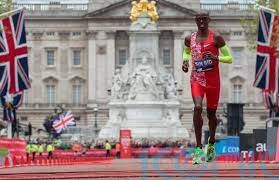
“I think Eliud is proving aged 37 and running a PB that the age barriers that we used to think existed do not necessarily now exist,” Brasher said.
“I think that what we should be doing is allowing Mo time to decide what he wants. One bad performance, a couple of bad performances, do not mean that people should write somebody off. He is an absolutely superb athlete and he will always be welcome back.
“I hope he runs fantastically well but you never can tell because marathon running is the hardest thing. If you’re 99% not 100% you won’t get away with it – it’s really, really hard.”
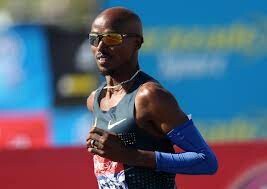
Farah has given no indication he plans to retire yet, despite failing to qualify for the Olympics last year or any major championships in 2022. And Brasher made it clear he would be delighted for him to run in London next year – and also promised him a special retirement send-off when he decided to finally quit.
“The door will always be open to Mo – he is Britain’s greatest endurance athlete in terms of number of Olympic gold medals and world championship gold medals. We have a long history with him, going back to the mini marathon through the fact that we supported him through his university time, which is something that’s not publicised.
“When you look at what happened with Paula Radcliffe, her final run was in the London Marathon in 2015. It was the most incredible send-off that I think that the British crowd were ever able to give any athlete and they came out in their droves. Whenever Mo decides to do his last marathon we would absolutely love it to be London. I think the crowd would love it. He should be celebrated.”
by Sean Ingle
Login to leave a comment
TCS London Marathon
The London Marathon was first run on March 29, 1981 and has been held in the spring of every year since 2010. It is sponsored by Virgin Money and was founded by the former Olympic champion and journalist Chris Brasher and Welsh athlete John Disley. It is organized by Hugh Brasher (son of Chris) as Race Director and Nick Bitel...
more...Eliud Kipchoge sets new world marathon record in Berlin clocking 2:01:09
Eliud Kipchoge sliced half a minute from his own world record to win the BMW Berlin Marathon, clocking a sensational 2:01:09 at the World Athletics Elite Platinum Label road race on Sunday (25).
There was also a stunning breakthrough for Ethiopia’s Tigist Assefa in the women’s race as she smashed the course record by more than two minutes with 2:15:37, becoming the third-fastest woman in history.
Just when it seemed Kipchoge had achieved everything he possibly could over the classic distance, the legendary pushed the world record further out of reach for the rest of the distance-running world.
Unlike his last world record run, the double Olympic champion went out hard on this occasion, passing through 5km in 14:14 and 10km in 28:22 – not just comfortably inside world record pace, but also well inside a projected two-hour finish.
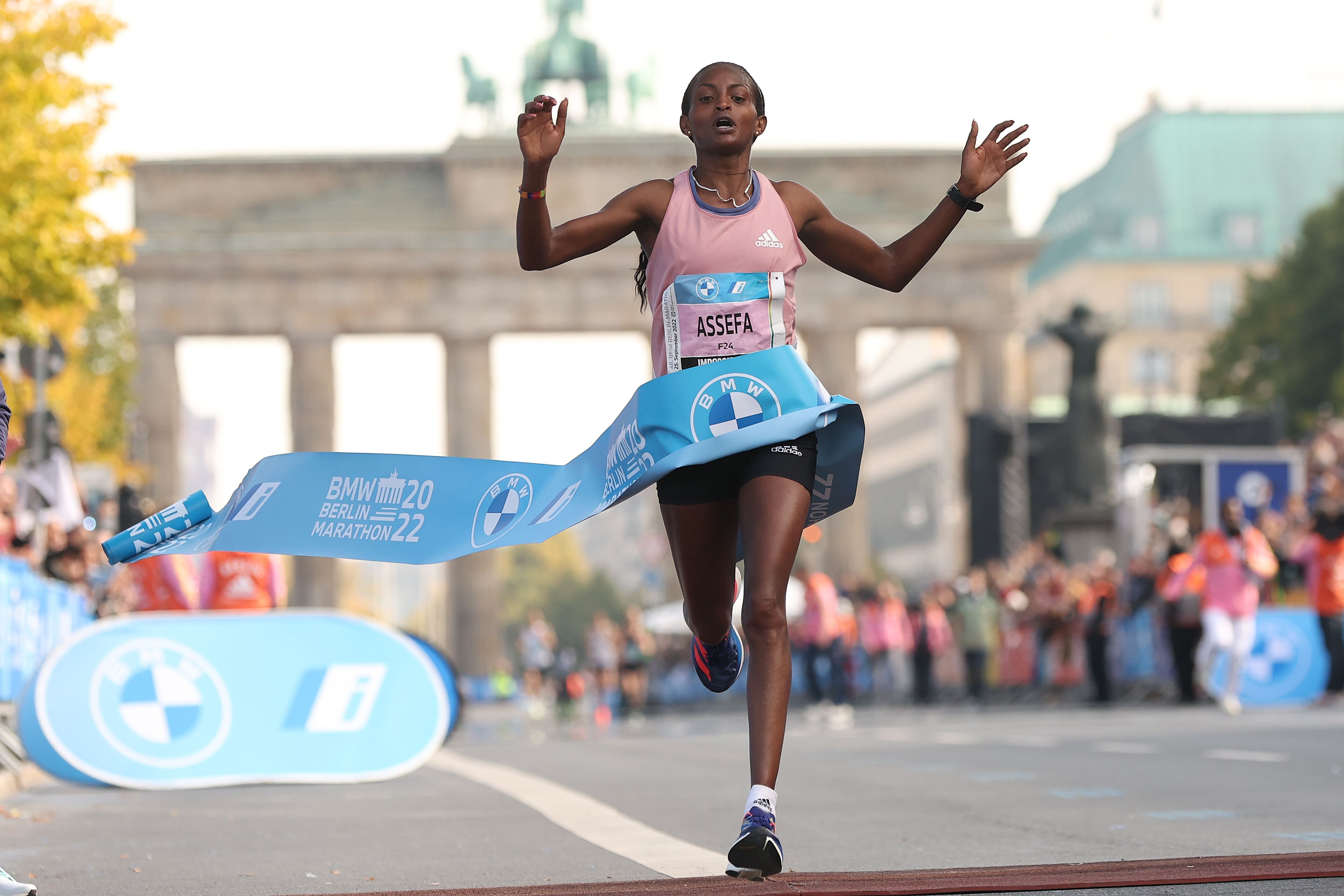
Kipchoge maintained that pace through half way, which was reached in 59:50, but his pace started to drop slightly from then on, and by 25km (1:11:08) his projected finish had slipped to just outside two hours – still more than a minute inside world record pace, though.
Ethiopia’s Andamlak Belihu was just about staying level with Kipchoge up until this point, but the Kenyan superstar then gradually pulled clear and was out on his own.
He passed through 30km in 1:25:40, then reached 35km in 1:40:10. By the time he passed through 40km in 1:54:53, his lead had grown to move than four minutes with Mark Korir having moved into second place.
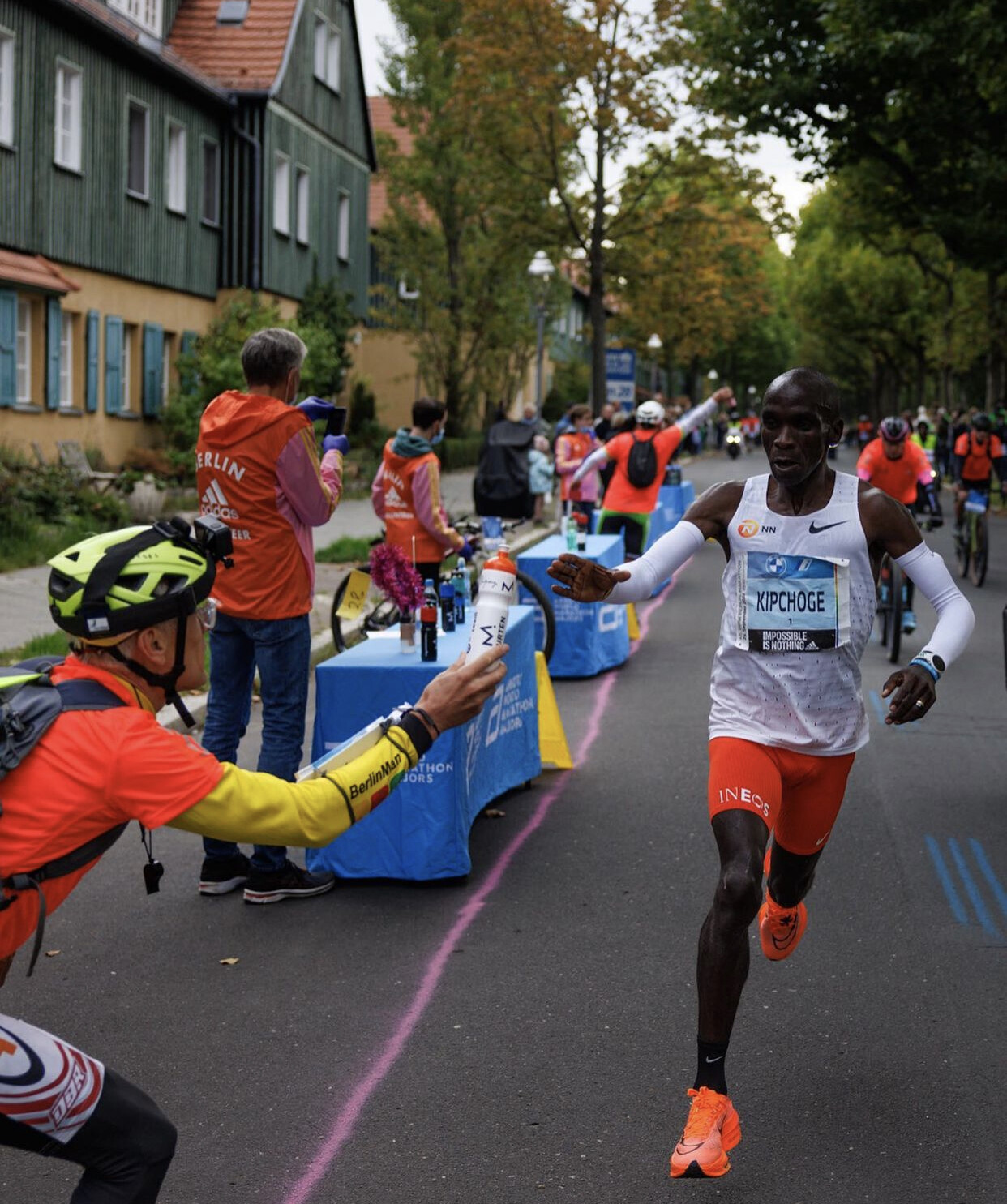
His victory – and world record – nor a formality, Kipchoge went on to cross the line in 2:01:09, taking 30 seconds off the world record he set in the German capital four years ago. Korir held on to second place in 2:05:58 and Ethiopia’s Tadu Abate came through to finish third in 2:06:28.
"I am overjoyed to have broken the world record in Berlin," said Kipchoge. "I wanted to run the first half so fast. No limitations.
"After 38km I knew I would be capable of breaking the world record. The circumstances were great, and so was the organisation of the event. I’m really happy with today and impressed by the fans and their support."
By contrast, several runners were in contention for most of the women’s race. A group of six women passed through half way in 1:08 - well inside course record pace – but by 30km, reached in 1:36:41, just three women remained at the front: Assefa, along with Ethiopian compatriots Tigist Abayechew and Meseret Gola.
Despite running significantly quicker than she ever had done before, Assefa – a former 800m specialist – maintained her relentless pace and opened up a gap of about 20 seconds by 35km.
She continued to pull away from the rest of the field and crossed the line in an Ethiopian record of 2:15:37 – a time that has only ever been beaten by world record-holders Brigid Kosgei (2:14:04) and Paula Radcliffe (2:15:25).
Kenya’s marathon debutante Rosemary Wanjiru came through to take second place in 2:18:00, finishing just three seconds ahead of Abayechew.
Leading results
Women
1. Tigist Assefa (ETH) 2:15:37 2. Rosemary Wanjiru (KEN) 2:18:00 3. Tigist Abayechew (ETH) 2:18:03 4. Workenesh Edesa (ETH) 2:18:51 5. Meseret Gola (ETH) 2:20:58 6. Keira D'Amato (USA) 2:21:48 7. Rika Kaseda (JPN) 2:21:55 8. Ayuko Suzuki (JPN) 2:22:02 9. Sayaka Sato (JPN) 2:22:13 10. Vibian Chepkirui (KEN) 2:22:21
Men
1. Eliud Kipchoge (KEN) 2:01:09 2. Mark Korir (KEN) 2:05:58 3. Tady Abate (ETH) 2:06:28 4. Andamlak Belihu (ETH) 2:06:40 5. Abel Kipchumba (KEN) 2:06:49 6. Limenih Getachew (ETH) 2:07:07 7. Kenya Sonota (JPN) 2:07:14 8. Tatsuya Maruyama (JPN) 2:07:50 9. Kento Kikutani (JPN) 2:07:56 10. Zablon Chumba (KEN) 2:08:01
by World Athletics
Login to leave a comment
BMW Berlin Marathon
The story of the BERLIN-MARATHON is a story of the development of road running. When the first BERLIN-MARATHON was started on 13th October 1974 on a minor road next to the stadium of the organisers‘ club SC Charlottenburg Berlin 286 athletes had entered. The first winners were runners from Berlin: Günter Hallas (2:44:53), who still runs the BERLIN-MARATHON today, and...
more...1,500m world record holder Genzebe Dibaba to run Amsterdam Marathon
Dibaba, 31, will follow older sisters and fellow Olympic medallists Tirunesh Dibaba and Ejegayehu Dibaba into the marathon.
On Tuesday, the TCS Amsterdam Marathon confirmed on Instagram that the women’s 1,500m world record holder, Genzebe Dibaba, will make her marathon debut on Oct. 16 in Amsterdam.
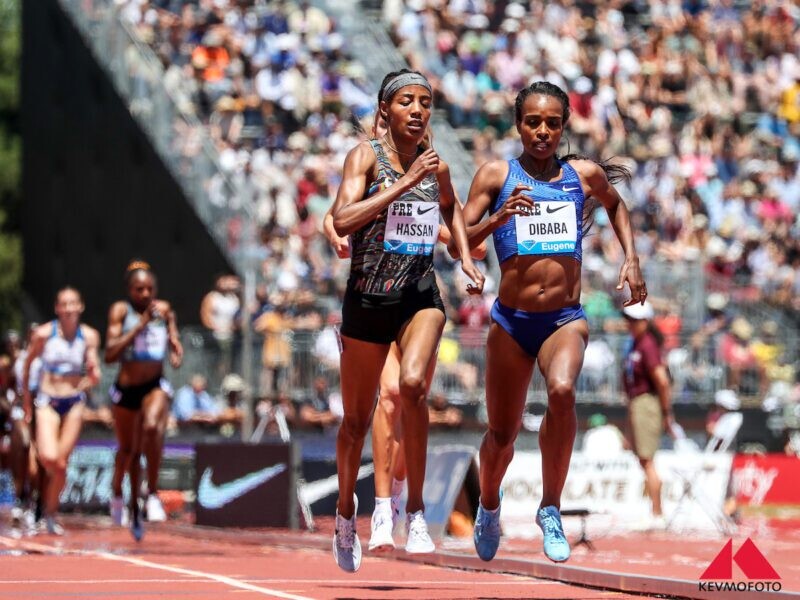
Dibaba, 31, follows older sisters and fellow Olympic medallists Tirunesh Dibaba and Ejegayehu Dibaba into the 42.2-kilometre distance. Her 1,500m personal best of 3:50.07 from the 2015 Monaco Diamond League still stands as the world record, though Faith Kipyegon of Kenya ran the second-fastest 1,500m time in history (3:50.37) on Aug. 10.
Kipyegon beat Dibaba for the 1,500m title at the 2016 Summer Olympics in Rio.
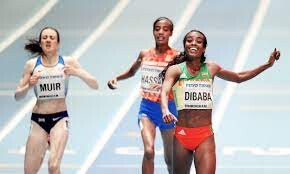
Dibaba has competed fewer than five times since she missed the 2019 World Championships and 2020 Olympics due to a foot injury. She has only raced the half-marathon distance once, at the Valencia Half Marathon in 2020, which at the time was the fastest-ever debut half marathon by a woman (65:18).
Joining Dibaba on the start line is her Ethiopian compatriot and 2016 Olympic 10,000m champion Almaz Ayana, who is also making her marathon debut. Ayana finished third at the Great North Run in Newcastle, U.K., last weekend in 67:10 and has run 29:17.45 over 10,000m.
The fastest debut marathon by a woman was 2:18:56 by Paula Radcliffe at the London Marathon in 2002.
by Marley Dickinson
Login to leave a comment
TCS Amsterdam Marathon
Do you want to enjoy Amsterdam in October and all that the city has to offer you? Want to feel a real athlete and start and finish in the historic Olympic stadium? Or run across the widely discussed passage under the beautiful National Museum? Then come to Amsterdam for the annual TCS Amsterdam Marathon in October! The TCS Amsterdam Marathon...
more...VO2 Max Output As A High-Performance, Anti-Aging Superweapon
This article is purely theoretical. Some readers will think that the theory is obvious on its face, and others will think that it's wrong. The joy of talking about training theory at the intersection of science and anecdote is that there are too many physiological metrics to track, and too many variable responses to interventions, so the resulting conclusions fall somewhere on the spectrum between fundamental truth and biased bullshit. Throughout, I'll try to check my biases and acknowledge the unknowns.
You know I'm nervous about writing an article when the first paragraph is undercutting myself with disclaimers. To be fully real with you: I am unsure on this one.
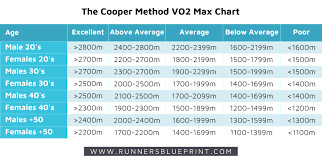
This article tries to articulate an unexpected observation that now forms a cornerstone of my coaching approach, but I have too much self-doubt to ignore my biases. It's like looking at a diagram of constellations in the night sky. The diagram might say: "This is the mighty hunter, pursuing the courageous bear."
So remember, as I try to break this down, I'm describing a scene with a mighty hunter, but I'm painfully aware it might just be dots and a phallus.
Here it is, distilled down to 3 sentences:
Output at VO2 max while climbing (measured via grade-adjusted pace) may have a high predictive value for athlete progression and regression over time, particularly with age.
The metric likely is a proxy variable for limitations of mechanical output that are faced by some athletes from the start of their running journeys, and confronted by all athletes with age.
Constant reinforcement of the metric may improve performance at all effort levels, including long ultras, and can seem to reverse the athletic decline process in some cases.
That's it. To paraphrase The Lion King: Simba, let me tell you something that my father told me. Look at the stars. YOU SEE WHATEVER YOU WANT TO SEE.
Observations From Athlete Training
Let's have some fun with training theory, reverse-engineering why I think this conclusion is significant and may be overlooked. When my co-coach/wife Megan and I started coaching (we talk about this topic more on episode 114 of our podcast), we began as acolytes to coaches like Renato Canova and Jack Daniels who excelled with Olympic-level athletes on the road and track.
We added some wrinkles here and there based on data we saw along the way, which seemed to especially manifest themselves with athletes that might not have Olympic-level VO2 maxes, whether due to genetics or age (VO2 max measures peak oxygen utilization during exercise, has a strong genetic component, declines with age, and is not highly trainable). You have probably seen me write about a lot of those wrinkles: plenty of fast strides, a higher proportion of short yet controlled intervals, and the heavy use of hill intervals year-round.
But Megan and I both kept hitting the same stumbling block: athletes over age 40 just didn't respond as well as we would like.
So we tried something new. With sub-ultra trail runner Mark Tatum and a few other athletes, we moved almost every workout into the hills, with an astounding number of power hill strides, and at least one session most weeks with short hill intervals. Mark and some others had breakthroughs, seemingly giving a big middle finger to the aging process. For Mark, a few years of training later, it led to an overall win at the Dipsea Race.
That made sense with aging athletes. Hills reduce impact forces and may increase muscle recruitment/mechanical demand (2017 review article in Sports Medicine), and short intervals may counteract natural VO2 max reductions, so they are great for the aging athlete. I've written about that before, as have others. It was nothing new, although maybe the approach was more committed to the bit.
But then something fascinating happened. A few younger athletes that we coached also seemed to have issues where traditional speedwork didn't lead to the expected adaptations. Maybe it was repeated injury cycles without clear explanations, or maybe it was just an unexplained performance reduction. So we tried a similar intervention. While results varied, the hill emphasis had a substantial effect size on results in our team, including preceding a couple national championships.
Now we were intrigued. Is it just the specificity of hills for trail running? Possibly, but we saw similar improvements in some road runners. Could it be an improvement in the VO2 max variable? That's doubtful, since there's little evidence that it can increase much in trained athletes. Lower injury rates? That likely plays a big role, but later we started to see similar results in athletes who rarely got injured. Or, to summarize: The hunter, or a random association of dots?
As we started to incorporate short hills more for all of our athletes, with all different backgrounds, we started to hone in on one primary explanation: the unique neuromuscular and biomechanical demands of mechanical output in running.
Here, mechanical output is shorthand for how aerobic processes interact with the musculoskeletal, biomechanical, and neuromuscular systems to create speed. A thorough explanation of mechanical power output is in this 2018 article in the Journal of Biomechanics, but just think of it as how each stride transmits force, rather than as conveying everything that goes with the technical term. For our purposes, effort level at VO2 max does not refer to the specific physiological measure, but is a general shorthand for high-yet-controlled outputs.
We have seen that if an athlete can improve their output around VO2 max on hills, they can counteract - even reverse - part of the athletic aging process at all distances. The reason that the short hills should lead to more broad-ranging development is that athletes accumulate lots of aerobic work over time, and those lower-level aerobic gains accumulate.
There is nothing new about this concept. For example, Norwegian training principles are so hot right now. Most of the focus is on the high volume of threshold work. But if you look closely at some of the sample weeks, you'll sometimes see a day full of short, fast hills (and that's for young, immensely talented athletes). Similar concepts were rumored to be included in the training of Jake Wightman, World Champion in the 1500 meters. Whether it's Lydiard-based systems from the 1960s and 1970s, Canova-inspired hill sprints, or hybrid approaches, once you start looking, you'll see these elements all over, even for athletes that seem to have almost no genetic or age limitations.
Possible Physiological Explanation
Okay, let's go back to first principles. VO2 max peaks at a young age, and it isn't highly trainable. So how do athletes keep getting faster if their peak oxygen intake is staying flat or declining?
The answer is that their output at VO2 max improves, usually measured as velocity at VO2 max, even as the denominator doesn't improve. The prototypical example is Paula Radcliffe (see this 2006 study in the International Journal of Sports Science & Coaching), whose VO2 max actually decreased from when she was a champion junior athlete, but her running economy (the amount of energy she used to run fast) improved by 15 percent. Those running economy improvements likely come from some mix of lower-level aerobic development leading to more efficient cellular processes of fatigue management, neuromuscular/biomechanical efficiency, and mechanical output. I'm not concerned with how much oxygen an athlete can consume, but what they do with the oxygen they have.
Running economy can be measured across multiple intensity levels. At the intense end of the spectrum, you have velocity at VO2 max (think 10ish minute effort, with variance). More toward the middle is critical velocity or velocity at lactate threshold (~30- to 60-minute effort). At the easier end of the spectrum is velocity at aerobic threshold (2-3+ hours, depending on the athlete). With age, vVO2 goes down first (often in an athlete's mid-20s), followed by vLT (30s or later), then vAeT (which can stay higher for a long time due to the aerobic component). That makes intuitive sense-athletes move up in distance with age by necessity as VO2 max and mechanical output go down, while long-term aerobic development is ongoing.
Side note: there are 10 statements in the preceding paragraphs that are controversial in exercise physiology. Sorry about that. If there's anything I learned from eating a lot of cereal as a kid, it's that if you spot them all and mail proof of purchase to General Mills, they might send a free toy!
Back to it. Our theory is that focusing too heavily on the aerobic side of the running economy equations misses out on the mechanical power side. Yes, VO2 max will decrease with time. But based on what we have seen, the mechanical output associated with VO2 max doesn't need to decrease much at all. And it can even go up very far into an athletic journey!
Mechanical Limitations
Why is that significant for an athlete competing in longer races? Think back to the experienced 60-year old athlete who progresses a bunch with short hill intervals. Their VO2 max number likely can't change much at that point of their athletic journeys, but we think that their mechanical output can. And because mechanical power is a strong performance indicator at all efforts in aging athletes, it doesn't matter that the short hills are non-specific to their race distances. It's the highest-yield stimulus for output, and it pushes back the strongest against the inertia of aging, so they get faster at everything.
If you're 50+, I think that you can take that to the bank. Focus on mechanical output/strength alongside aerobic development, and you'll be rich as hell. Now, let's dive into a more speculative investment.
The hardest logical leap is to take these principles and apply them to younger athletes. Why might they progress even when they aren't limited by mechanical output in the same way?
Our theory: they are limited in that same way, just to a less clear extent. In fact, most of us have some mechanical limitations that are semi-independent of traditional aerobic development.
Talented, elite athletes are the origin point for many training theories, and most of those athletes have few limits associated with vVO2-that's why they're elite in the first place. So they can focus more heavily on the aerobic-input components of speed, plus specific training for their events. But for most of us, mechanical power at the top-end of aerobic capacity is a limiter from when we are young, and it only gets worse with time.
That's one reason we strongly encourage athletes to eat enough, always. Running is a power sport, even if it doesn't always feel that way. And that may add another explanation of why athletes who restrict food almost never improve over time.
Theoretical Implications
Since mechanical output is the true theorized limiter, it may be better to do many of the sessions targeting it on uphills. Flat intervals are fantastic and important at times, but many athletes end up not having the biomechanical and neuromuscular efficiency to translate their aerobic ability into the same output. In our data, an athlete who is not extremely fast (in a road/track sense) will often have a faster grade-adjusted pace on a 2-minute hill interval than pace on a 2-minute flat interval, often by 20-30 seconds per mile. Combined with the higher muscular demand and lower injury risk, output around VO2 max seems to be optimized on hills.
A quick disclaimer: we could easily be confusing cause-and-effect here. Perhaps it's all driven by reduced injury rates and lower soreness levels, creating more consistency over time (or any other explanation you can think of). Going backwards from outcome to mechanism is problematic for 99 reasons, and for the strength of this theory, each and every one of them is a bitch.
But the practical takeaway is this: we have seen that if an athlete can improve their output around VO2 max on hills, they can counteract - even reverse - part of the athletic aging process at all distances. The reason that the short hills should lead to more broad-ranging development is that athletes accumulate lots of aerobic work over time, and those lower-level aerobic gains accumulate.
The aerobic system can continue to improve, but for many athletes, it runs into a ceiling that we think is often set by mechanical output. If you raise that ceiling, there can be a positive feedback cycle where improved mechanical output allows the improving aerobic system to translate to better running economy, which improves mechanical output more, and so on.
The Big Takeaway
Don't let your mechanical output be too strong of a limiter, no matter what training approach you use. For us, that involves three main elements.
First, athletes do hill strides year-round to encourage max power development. That can be as simple as 2 sessions of 4-6 by 20-30 second fast hills in the 2nd half of runs each week, or adding hill strides after a flat workout. Or it can be bigger, dedicated sessions like in the Norwegian training sample weeks. Flat strides can also work for this purpose, particularly for advanced athletes.
Second, athletes periodically do moderately hard hill intervals, as often as weekly for aging or injury-prone athletes, and as little as every 6 weeks in durable track or road athletes (with other sessions being on flat or rolling terrain). Our usual guideline is 12-20 minutes of total intervals, with each interval being 3 minutes or less with run down recovery between them. Simple go-to examples are 16-20 x 45 seconds, 8 x 90 seconds, 6 x 2 minutes, or 5 x 3 minutes, though you can get creative with it based on what's the most fun for you. Mix up the gradient, with the sweet spot being 8%, but it's cool to have fun with steeper or shallower grades, too.
Third, do strength work. We are partial to Mountain Legs and Speed Legs, but anything that improves your strength can work. Just avoid overdoing it.
And remember: this is just one element of our training theory, and our training theory is a grain of sand on the beach of training theories that are out there for free on the internet. Even for us, it interacts with hundreds of other concepts. Listen to your body and do what works for you. Ignore this if you disagree. Send all of your complaints to General Mills.
But don't accept that getting weaker is a foregone conclusion. Aging is inevitable. If you zoom out far enough, slowing down is inevitable, too. But slowing down is not inevitable tomorrow or next year. And I think there's a strong argument that it's not inevitable 5 or 10 years from now either. What do we say to
by Trail Runner Magazine
Login to leave a comment
Gotytom Gebreslase Wins World Marathon Gold in Championship Record
With a strong downhill surge in the 41st kilometer, Gotytom Gebreslase of Ethiopia won the 2022 world marathon title in 2:18:11. The time set a new championship record; the previous mark of 2:20:57 was held by Paula Radcliffe.
Judith Korir of Kenya, who led Gebreslase by half a step for most of the closing miles, finished second in 2:18:18, and Lonah Salpeter of Israel took the bronze medal in 2:20:18.
Sara Hall was the top American finisher, placing fifth in 2:22:10. Emma Bates placed seventh in a personal best of 2:23:18, and U.S. record-holder Keira D’Amato finished eighth in 2:23:34. D’Amato was added to the team at the beginning of the month after Molly Seidel withdrew because of injury. The three ran together through the middle miles until Hall, ninth at halfway, pulled away and started picking off former members of the lead pack.
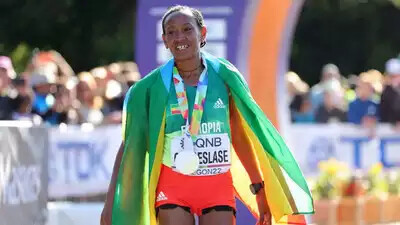
Today’s 5-7-8 is the best team performance by a U.S. squad, male or female, since the marathon world championship was first run in 1983. They succeeded thanks to just the right mixture of aggressiveness and patience.
“I went out with the leaders, but then I could tell it was a little too fast,” Hall said. “So fortunately I had talked to Emma and Keira and been like,‘Hey, I’d love to work with you guys. I don’t want to mess up your mojo, but if we’re together somewhere I’d love to work together.’ So thankfully Emma and I found each other.
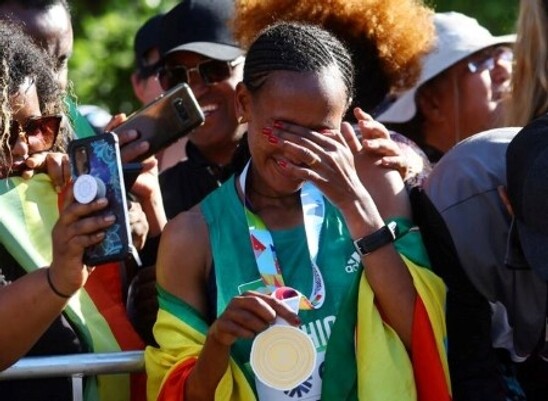
"I was checking our splits and we were running plenty fast out there, so I didn’t really want to run faster than that,” Hall continued. “It was awesome to get to work with [Emma] for so much of the race.”
Bates, who was the top American at Chicago last October, said, “My coach and I had decided that I go out in 70-minute pace for the first half. Which I had never done before, that’s close to my PR for the half marathon. We knew I could be in 2:20 range, fitness-wise.
“I went out with Sara. We were planning on working together before the race, so it was great the first lap to be with each other and then the second lap. Sara took off the later portion of the second lap. So proud of her today for going after it. She really pulled me along that first bit.
“I’m very happy,” Bates continued. “I always want more, we always want more. But to be top 10 in the world is something really really cool, especially on U.S. soil. And to run a PR doing it, it’s something that I won’t forget.”
Well past 30K, Hall was still acknowledging cheering spectators (including Olympian and fellow Flagstaff resident Rachel Schneider).
“I think this is the most fun I’ve ever had in a marathon,” Hall said. “I wanted to smile as much as I could early on, ’cause you know its gonna turn to a grimace eventually. But I was even smiling that last lap. I’m really thankful for everyone that turned out, ’cause I knew that this would be so special. I don’t know if I’ll ever get the opportunity to run a championship like this in the U.S. again.”
How the Race Was Won
Within the opening kilometer, it was obvious that the script for yesterday’s men’s marathon—a huge lead pack running cautiously for the first half—would be ignored. Headed by three Kenyans and three Ethiopians, the leaders took off at 2:17 marathon pace. D’Amato started with the pack but dropped back in the fifth kilometer; in the 12th kilometer, a chase pack led by Bates and Hall caught D’Amato, who then tucked in.
Toward the end of the first of three 14-kilometer loops, the chase pack got within 11 seconds of the leaders. Korir then spurted ahead just before an aid station. That reestablished a quicker tempo for the leaders, and the chase pack’s hope of joining the leaders was permanently ended.
The first significant event occurred in the 19th kilometer, when defending champion Ruth Chepngetich of Kenya stepped off the course, apparently looking for tall grass in which to make a pit stop. Sensing an opportunity, Gebreslase and fellow Ethiopian Ababel Yeshaneh surged on a downhill stretch. Subsequent kilometers of 3:05 and 3:09 (an average of roughly 5:00 mile pace) pared the group to four. They passed halfway in 69:01; the chase pack, including the three Americans, hit halfway in 70:17.
Toward the end of the second lap, Korir again surged approaching an aid station. Her teammate Angela Tanui briefly lost contact for the second time, clawed her way back, but was then dropped for good. In the 27th kilometer Yeshaneh started grabbing at her side and was left by the eventual gold and silver medalists.
Korir and Gebreslase ran within inches of each other for most of the third lap; the Ethiopian was usually just off of Korir’s right shoulder. Korir occasionally motioned to her rival to either help with the pace or back off a bit. It was hard to tell who was feeling more feisty or fatigued.
Or at least it was until the overpass over Route I-5. After cresting the summit, Gebreslase leaned into the long, gradual descent toward the finish. She almost immediately had two, then three, then five seconds on Korir. Gebreslase, who won Berlin last fall, had judged her effort perfectly. For the second day in a row, an Ethiopian won the world title in a championship record.
by Scott Douglas
Login to leave a comment
World Athletics Championships Budapest23
Budapest is a true capital of sports, which is one of the reasons why the World Athletics Championships Budapest 2023 is in the right place here. Here are some of the most important world athletics events and venues where we have witnessed moments of sporting history. Throughout the 125-year history of Hungarian athletics, the country and Budapest have hosted numerous...
more...British half-marathon record-holder Eilish McColgan to make marathon debut in London
Eilish McColgan will make her much anticipated marathon debut in London on October 2 as she takes on a world-class field around the streets of the British capital.
The 31-year-old Scot broke Paula Radcliffe’s British half-marathon record of 66:47 on February 19, after clocking 66:26 at Ras Al Khaimah and now feels like it’s the right time to take on the marathon.
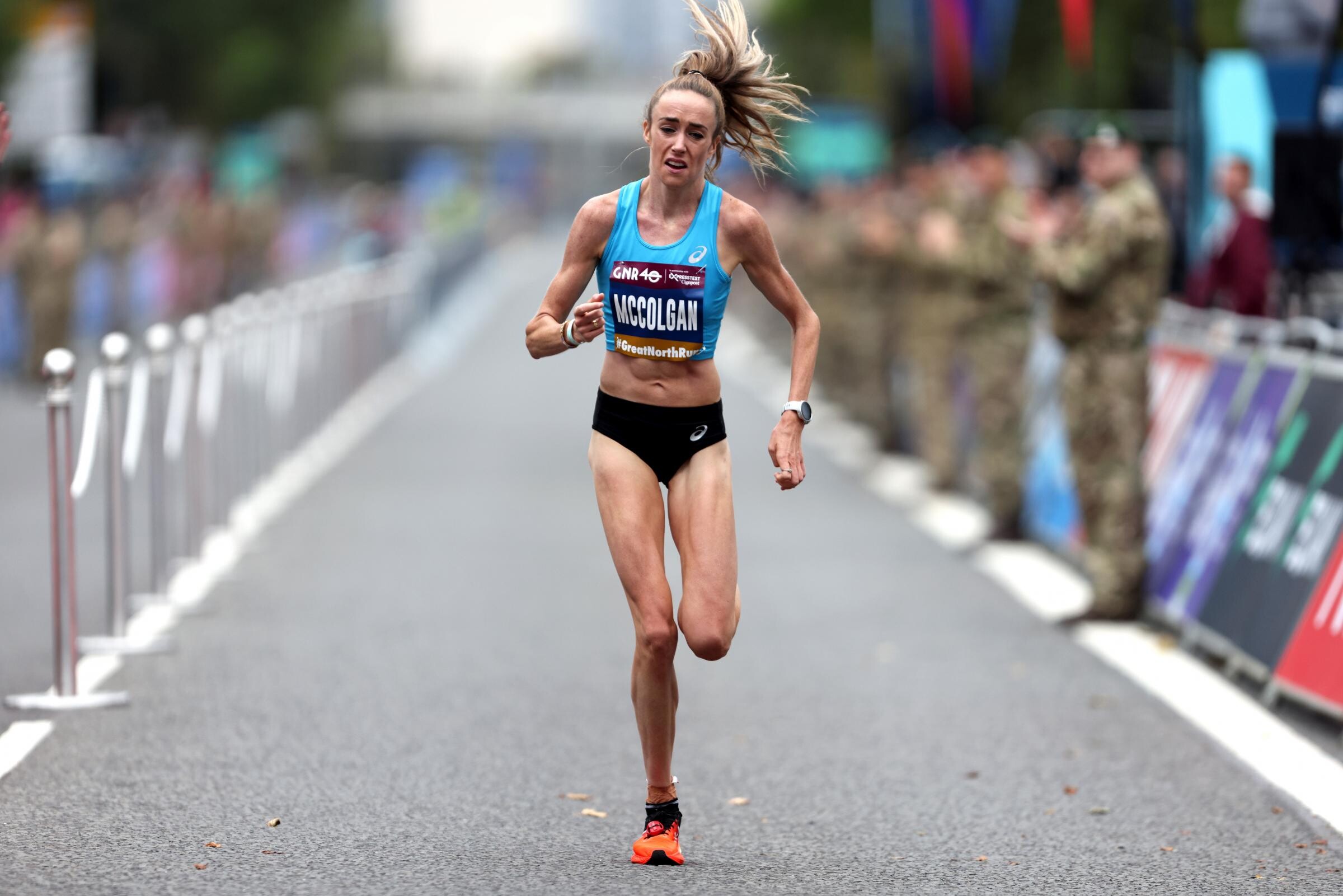
Since McColgan started competing on the roads she has broken the British 5km record, European 10km record and set a British best over 10 miles.
Given her natural progression through the longer distances on both track and field, it was always a question of not if but when McColgan took on 26.2 miles.
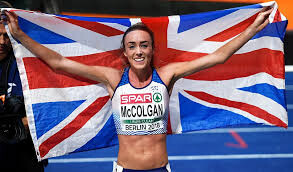
“It’s really just coming from a confidence side of things,” McColgan says. “I think I’ve known for like a very long time that this is where my career would go. I think my mum and my dad have known even longer than I have. From being a young kid they always said the marathon was the event I’d end up going to.
“The way I’ve progressed over the years now through the distances, taking on both the 5km and 10km, I remember thinking, ‘I’ll never ever run a half-marathon’. And yet now, I’m excited. I couldn’t wait to get out and race it against some of those the top athletes in the world.
“It is my choice. I feel I’m going to do it when I’m ready to do it and I think that’s that time is coming now. I think there’s no better place to do that than the London Marathon.
McColgan takes to the streets of the British capital 26 years after her mum, Liz McColgan won the race. Like Eilish, Liz started out on the track and gradually progressed to the marathon, winning on her debut in New York in 1991 before her triumph in London five years later.
“It’s amazing and it’s a bit surreal,” McColgan adds. “The more iconic images I’ve got in my head as a youngster were my mum running the London Marathon with Buckingham Palace in the background. It’s just incredible that so many years later I’m following in her footsteps and I think she’s excited to see that finally come into action.
“It’s always the iconic event. It was the one where I always watched my mum run as a kid when I sat in the hospitality area and ate all the free food! There’s not a London Marathon that my mum and dad have ever missed. It’s just got a buzz and everyone speaks about it, even those who don’t know much about athletics.”
Although this is McColgan’s debut marathon she does have experience of the London circuit though, having been the pacemaker for Charlotte Purdue last year.
Purdue is also part of the line-up this year which includes world marathon record-holder Brigid Kosgei, defending champion and fellow Kenyan Joyciline Jepkosgei and the fastest-ever female marathon debutante Yalemzerf Yehualaw of Ethiopia.
“It just feels surreal to me [to hear that],” McColgan adds. “I remember watching Paula [Radcliffe] on the side of the road in Athens and being as devastated as she was. I watched her run the world record in 2003 and it was strange watching it because, given her pace, it was like watching a robot. You thought there was no way somebody could keep it up for 26.2 miles.
“Out of all the records she set this is by far the one the hardest she set. It’s difficult for me to believe that’s it’s almost possible but if you asked me two years ago would I run 30 minutes for 10km, I’d have told you no chance but now I believe I can break that record.”
McColgan also has a busy summer on the track as she races over both 5000m and 10,000m at the World Championships in Oregon before representing Scotland at the Commonwealth Games in Birmingham.
Ahead of Paris 2024, she wants to focus on the marathon and compete in more road races in the near future.
by Tim Adams
Login to leave a comment
TCS London Marathon
The London Marathon was first run on March 29, 1981 and has been held in the spring of every year since 2010. It is sponsored by Virgin Money and was founded by the former Olympic champion and journalist Chris Brasher and Welsh athlete John Disley. It is organized by Hugh Brasher (son of Chris) as Race Director and Nick Bitel...
more...The 16th edition of Ras Al-Khaimah Half Marathon announced for February 2023
The Ras Al-Khaimah Tourism Development Authority announced that the 16th edition of the Ras Al-Khaimah Half Marathon will take place on Saturday, Feb. 18, 2023, with leading sportswear brand Under Armour named as the new technical partner.
Al-Marjan Island will again host the world’s fastest half marathon, which will see some of the best long-distance athletes, running enthusiasts and amateurs from across the globe compete in one of the key sporting events on the UAE calendar. Registration for next year’s race is now open.
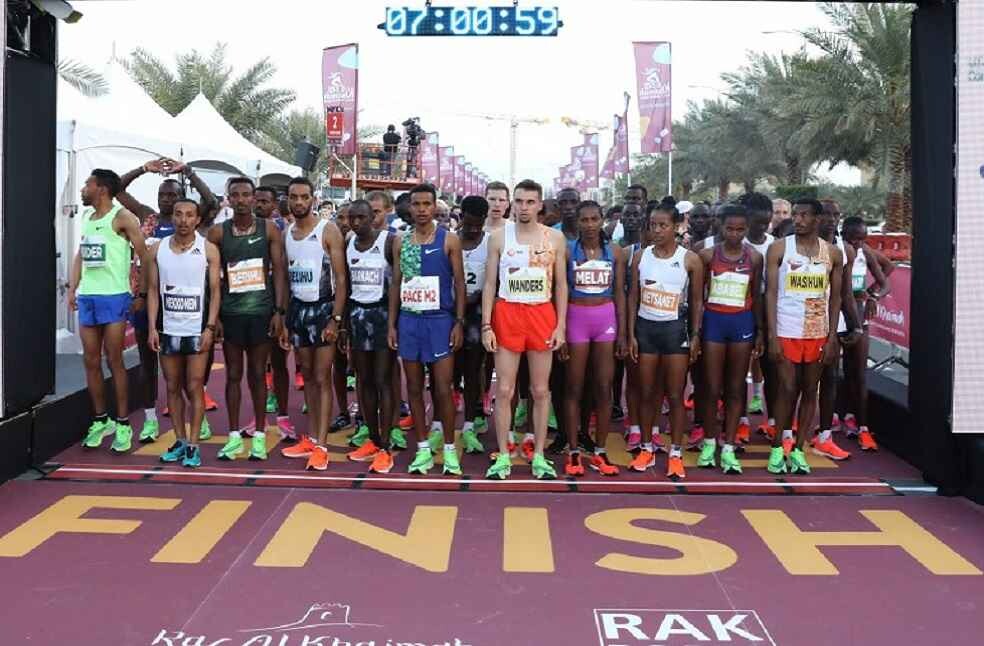
Iyad Rasbey, executive director, Destination Tourism Development & MICE at RAKTDA, said: “We are thrilled to announce the 16th edition of the world’s fastest half marathon to our nature emirate. The Ras Al-Khaimah Half Marathon has gone from strength to strength with each passing year and I am confident that the 2023 edition of the race will be no different.
“The standard of high-level performances along with the number of records broken that we witnessed in February truly demonstrates how popular the Ras Al-Khaimah Half Marathon is, attracting some of the world’s best elite runners and participants from across the world as well as the local community,” he added.
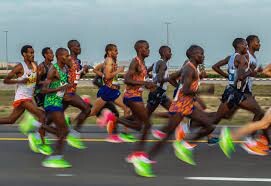
RAKTDA also announced that Under Armour will sponsor the half marathon as technical partner. The sports brand will provide all participants with its latest, top-of-line apparel to help ensure comfort while improving performance as runners take to the fast and flat course track.
“We are incredibly proud and excited to partner with the Ras Al-Khaimah Tourism Development Authority and the RCS Sports & Events organization for what is one of the world’s leading running events,” said Lee Devon, vice president of Under Armour. “At Under Armour, it is our mission to make all athletes better and we do this through the lens of great product, innovation and by providing opportunities for all athletes to take part in sport. We recently opened our first store in Ras Al-Khaimah. This and our other stores across the emirates will become hubs for all athletes as they prepare for this event.”
The announcement comes only a few months after world half marathon record holder Jacob Kiplimo of Uganda (57:56) and Ethiopia’s Girmawit Gebrzihair (1:04:14) set new course records in the men’s and women’s elite categories respectively. Their triumphs were among the highlights of the Ras Al-Khaimah Half Marathon, which saw a number of new records being set on the day, as well as some impressive performances and times across the categories.
As well as Kiplimo producing a 15-km world best time of 40:43 on his way to victory, the event also featured a new British record by Eilish McColgan. In just her second competitive half marathon, she smashed Paula Radcliffe’s British 21-year-old half marathon record, clocking an incredible total time of 1:06:26.
Login to leave a comment
Rak Half Marathon
The Rak Al Khaimah Half Marathon is the 'world's fastest half marathon' because if you take the top 10 fastest times recorded in RAK for men (and the same for women) and find the average (for each) and then do the same with the top ten fastest recorded times across all races (you can reference the IAAF for this), the...
more...Eilish McColgan sets British and European 10k record at Great Manchester Run
Eilish McColgan set a British and European 10km record as she finished runner-up at the Great Manchester Run.
Dundee's McColgan, 31, took two seconds off Paula Radcliffe's mark from 2003 with a time of 30 minutes 19 seconds, four seconds behind Hellen Obiri.
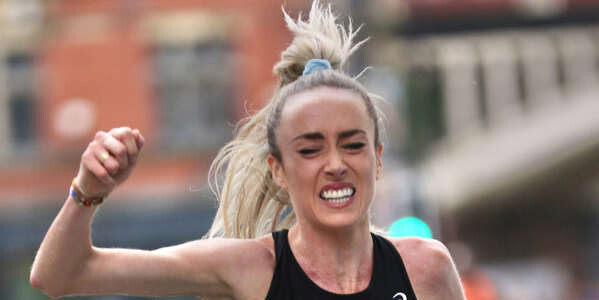
Obiri's fellow Kenyans Ruth Chepngetich (30:29) and Sharon Lokedi (31:05) were third and fourth.
Charlotte Purdue was seventh (32:55) with fellow Briton Steph Twell (33:12) eighth.
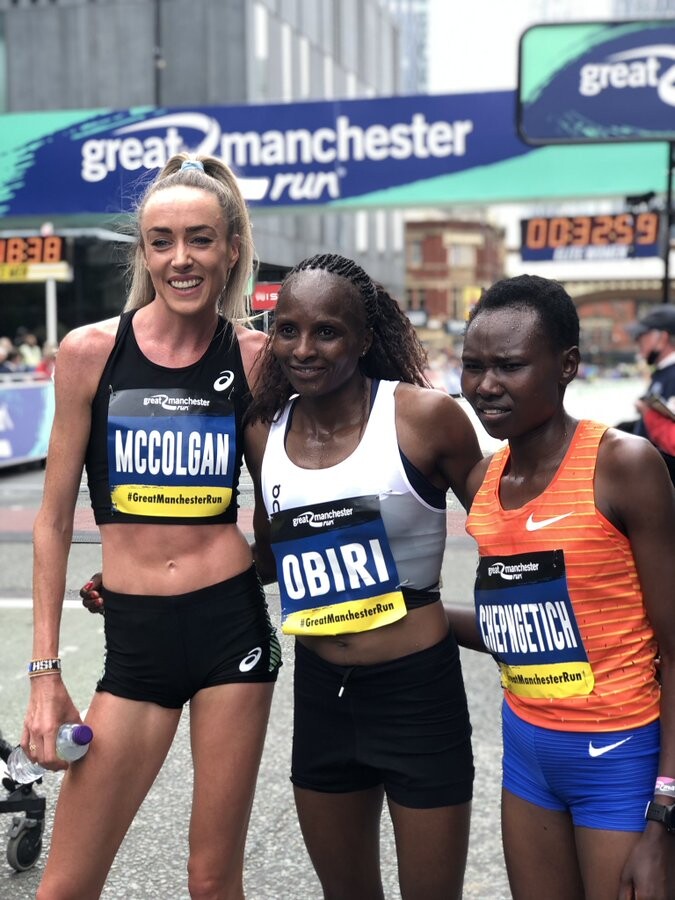
The men's race was won by New Zealand's Jake Robertson in 28:06, ahead of Australian Jack Reyner, with Liverpool's Abdulqani Sharif in fifth place.
More than 20,000 racers took part, with applause before the start for the 22 victims of the 2017 Manchester Arena terror attack, on its fifth anniversary.
Login to leave a comment
Great Manchester Run 10k
The Great Manchester Run, established in 2003, is an annual 10kilometer run through Greater Manchester and is the largest10K in Europe. Usually held in mid-May, it is the third-largest mass participation running event in the United Kingdom behind the Great North Run and the London Marathon. It is part of the Great Runs series of road races in the UK....
more...Hellen Obiri and Eilish McColgan will renew rivalry at the Great Manchester run
Last September Hellen Obiri beat Eilish McColgan by six seconds in the Great North Run and this Sunday (May 22) the duo renew their rivalry over the shorter distance of 10km at the Great Manchester Run.
McColgan has been in brilliant form, with a UK 5km record at the start of this month followed by victory in the Vitality London 10,000 where she missed Paula Radcliffe’s British record of 30:21 by only two seconds.
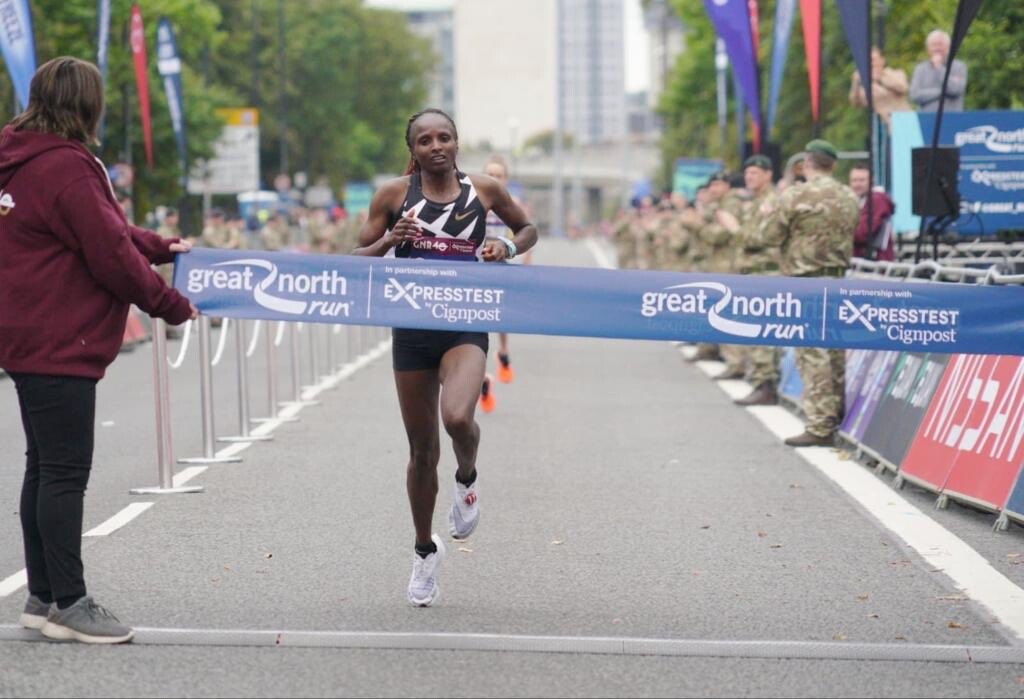
Obiri’s achievements make her the athlete to beat, though. As well as winning two world 5000m titles on the track, the Kenyan is the reigning Commonwealth 5000m champion and world cross-country gold medalist.
McColgan chose to give last week’s Night of the 10,000m PBs in London a miss in order to focus on training in the French Pyrenees. She will hope to push Obiri close again but the quality fields assembled for Manchester mean this won’t just be a two-horse race.
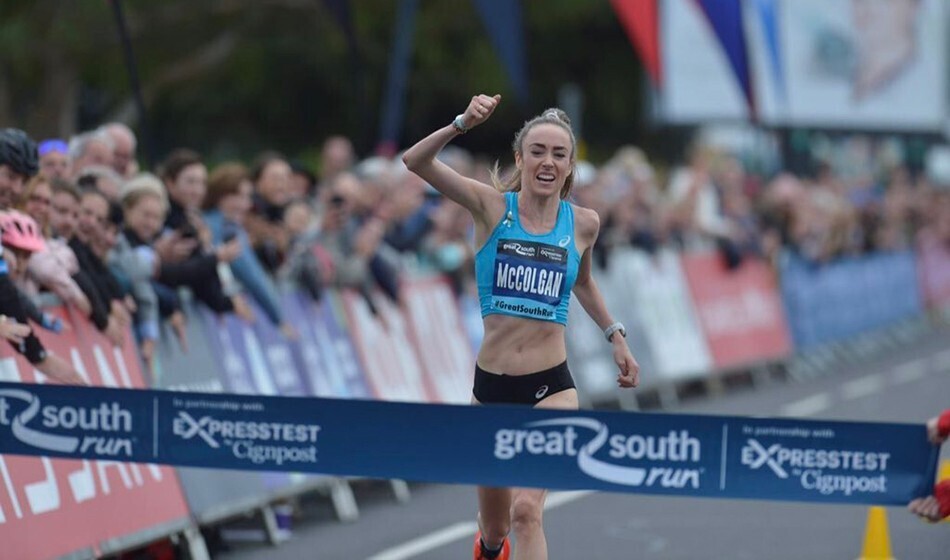
Ruth Chepnegetich defied horrendous heat and humidity to win the world marathon title in Doha in 2019 and the Kenyan has clocked 64:02 for the half-marathon, which was a world record when she ran it 13 months ago but has since been beaten by Letesenbet Gidey.
Sara Hall of the United States will be familiar to British fans after her runner-up performance at the 2020 London Marathon. She also held the US half-marathon record until recently, has a marathon best of 2:20:32 and is looking for a strong run in Manchester on Sunday.
Gerda Steyn, the South African ultra-marathon specialist, is also set to test her speed over 10km.
In addition to McColgan there are of course a number of other Brits in the elite women’s race. They include Jess Piasecki, the Stockport Harriers athlete who went No.2 on the UK all-time marathon rankings earlier this year with 2:22:27.
Steph Twell, the Tokyo Olympic marathon runner, is racing in Manchester ahead of the European Cup 10,000m in France a few days later.
After finishing ninth in the Boston Marathon in 2:25:26 in April, Charlotte Purdue also lines up in Manchester. Look out, too, for Lauren Heyes, Lily Partridge and Calli Thackery, the latter of whom is also racing at the Diamond League in Birmingham 24 hours earlier.
Like Thackery, Stewart McSweyn is also racing in Birmingham the day before the Manchester event as he continues to try to race himself into shape following a bout of Covid. He is joined by fellow Australian Jack Rayner plus New Zealand brothers Jake and Zane Robertson and Spaniard Antonio Abadia in the men’s 10km.
Sadly Mo Farah pulled out of the event following his under-par run at the Vitality London 10,000 earlier this month. But the winner that day, Ellis Cross, is set to race in Manchester and all eyes will be on him to see if he can repeat his form.
Mo Aadan, the Brit who finished third at the Vitality London 10,000, is in Manchester too. Further British contenders, meanwhile, include Ben Connor, Chris Thompson, Adam Craig, Josh Griffiths, Ross Millington, Phil Sesemann and Andrew Heyes.
by Jason Henderson
Login to leave a comment
Great Manchester Run
The Great Manchester Run, established in 2003, is an annual 10 kilometer run through Greater Manchester and is the largest 10K in Europe. Usually held in mid-May, it is the third-largest mass participation running event in the United Kingdom behind the Great North Run and the London Marathon. It is part of the Great Runs series of road races in...
more...Eilish McColgan motors to victory in the Vitality London 10,000 in 30:23
Eilish McColgan came within two seconds of Paula Radcliffe’s long-standing British and European 10km record at the Vitality London 10,000 on Monday (2) morning.
After a frantic sprint finish, McColgan stopped the clock at 30:23 to miss the record by a tantalising margin. However, Eilish did relieve her mother and coach Liz of yet another family record as she improved her Scottish record of 30:38 which had stood since 1989.
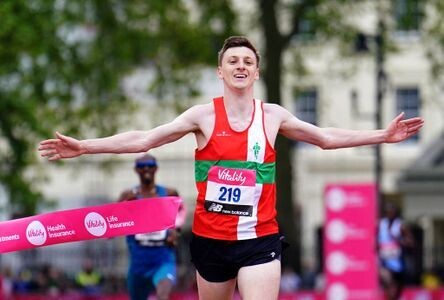
This was McColgan’s second near-European record in just over a week, proving the European 5000m silver medallist is back in top shape after testing positive for coronavirus in March. In Malaga last week, McColgan clocked 14:45 for 5km to fall one second short of Sifan Hassan’s European standard bearer.
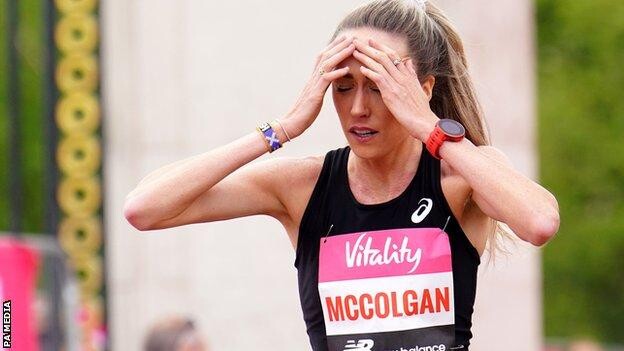
At twice the distance eight days later, McColgan came within touching distance of Radcliffe’s 10km mark of 30:21 from 2003 which also stood as a world record for more than a decade. However, the European all-time list is headed by Lonah Chemtai Salpeter’s 30:05 clocking from Tilburg in 2019 although that time was not ratified for record purposes.
“I am gutted to have missed the British record by a couple of seconds. I probably didn’t believe I could do it, so I went into the race thinking I’d be happy to run 31:40, but I’m in much better shape than I give myself credit for,” said McColgan.
McColgan passed through halfway in 15:15 - by contrast Radcliffe rocketed through 5km in 14:48 when she clocked 30:21 - and despite mustering up some of her track speed in the last 200 meters, McColgan couldn’t quite revise the record books.
“I only saw the clock when I turned the corner towards the finish line, and I thought: ‘Oh my god, I could make it in time. I think I probably ran a 200m PB in the push for the finish line. I was so desperate to get the record but hopefully there will be another opportunity to go for it again later this year,” said McColgan who holds the European 10km record in a women’s only race at 30:52.
McColgan won the women’s race by more than one minute from fellow Olympian Jess Piasecki in 31:28 with Samantha Harrison third in 31:44.
In the men’s race, British international Ellis Cross achieved a significant victory over multiple Olympic, European and world 5000m and 10,000m champion Mo Farah who was racing for the first time in almost one year due to a stress fracture.
Cross broke clear of Farah in the last two kilometers for victory in 28:40 to Farah’s 28:44. "I’m lost for words – I did not expect this in a million years. Honestly, I know it’s a cliché, but I couldn’t believe it. I just felt very good from the get-go. Obviously, I knew Farah had a finish, so the last 2K I thought I’d try and wind it up a bit – try to sting his legs a little bit to hold him off,” said Cross.
Login to leave a comment
Vitality London 10,000
The Vitality London 10,000 takes you past many landmark sites, including the London Eye, Buckingham Palace and the Bank of England – so you even get to do a bit of sightseeing along the way! You will run alongside elite runners and have coverage from the BBC, making this 10km one of the highest in profile of its kind....
more...

